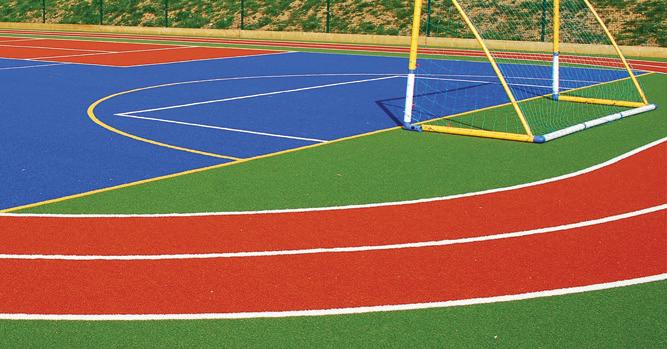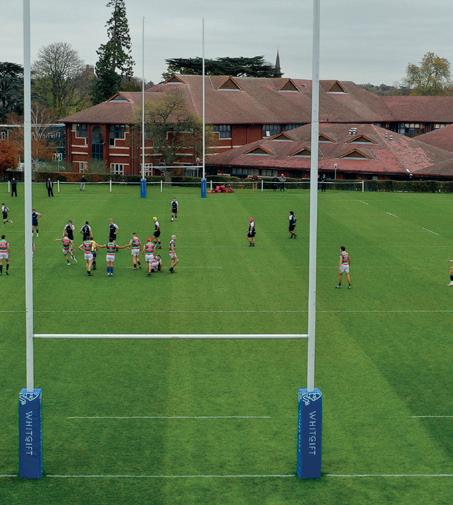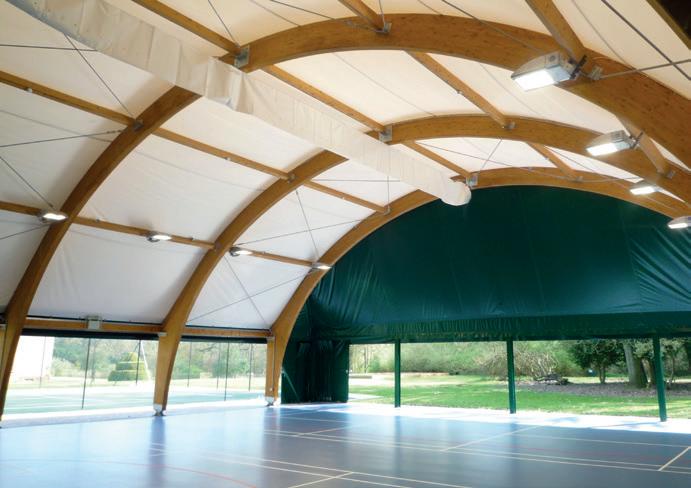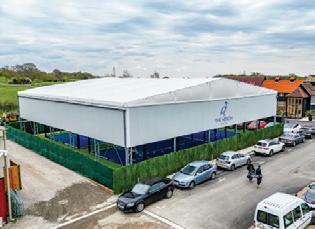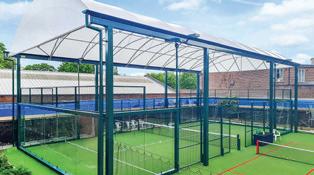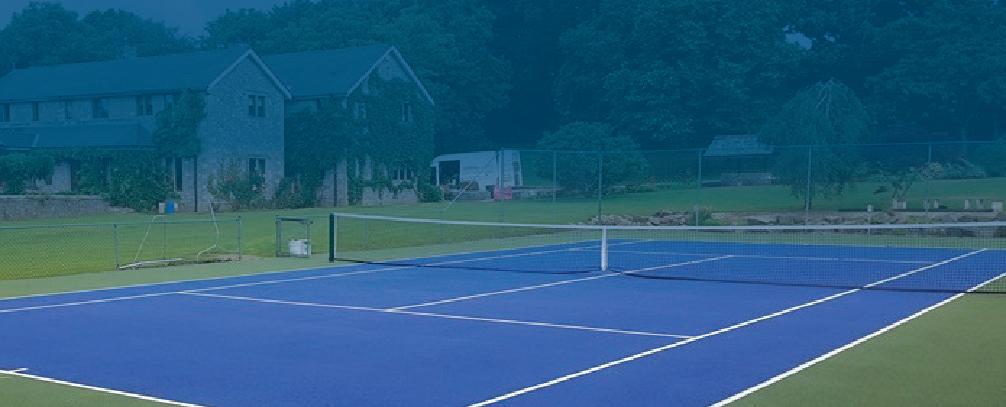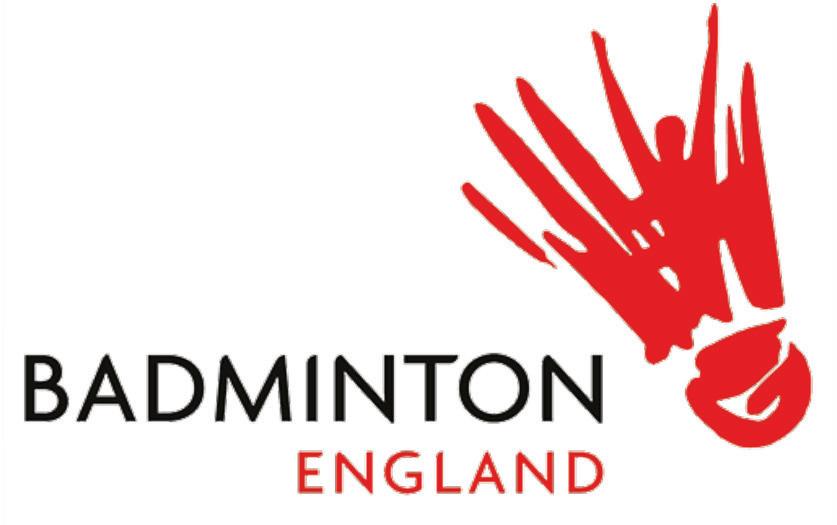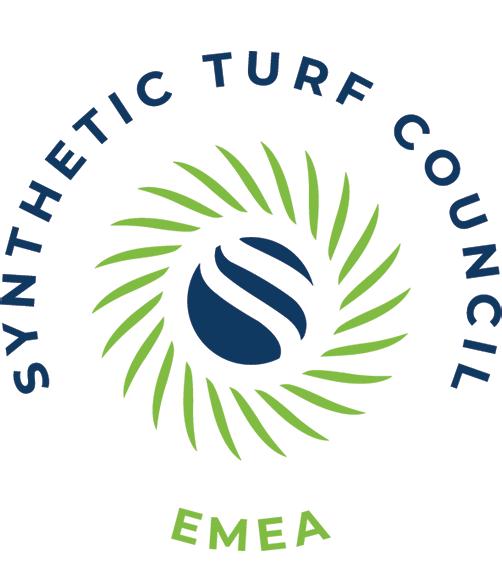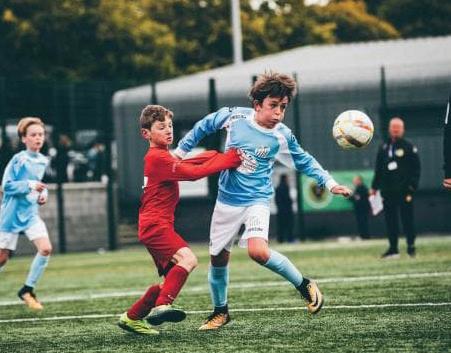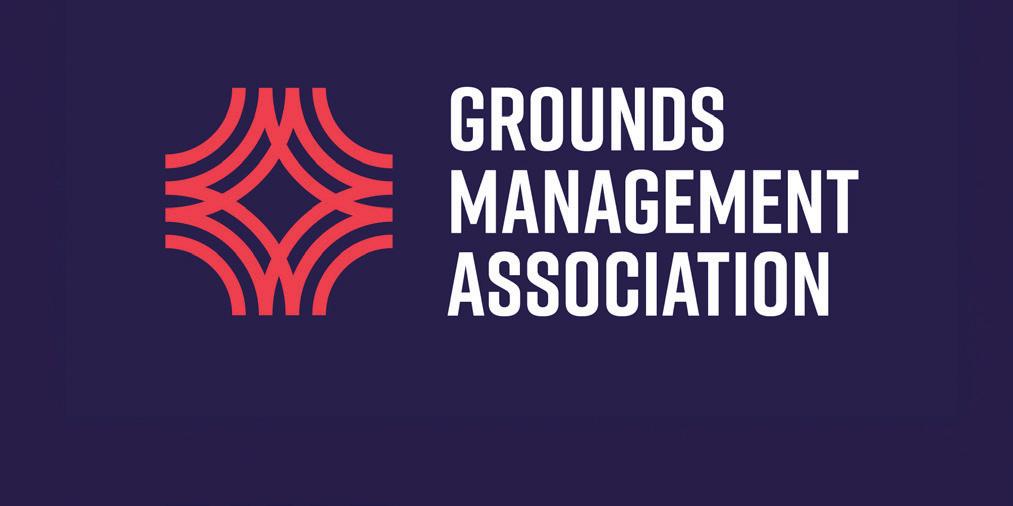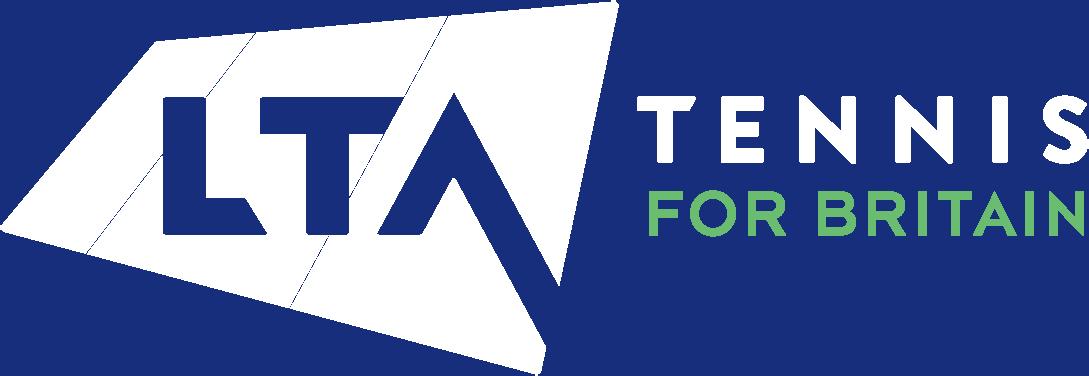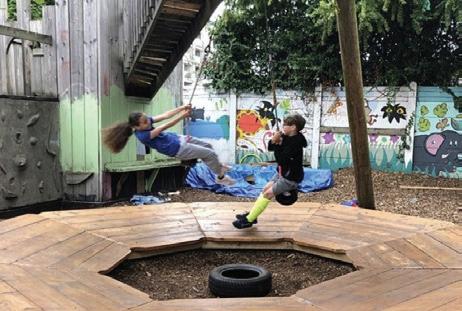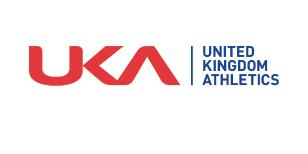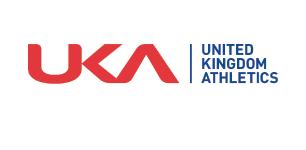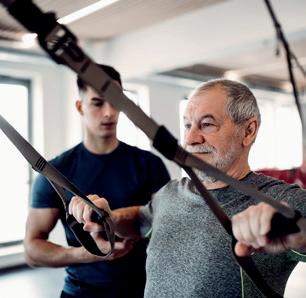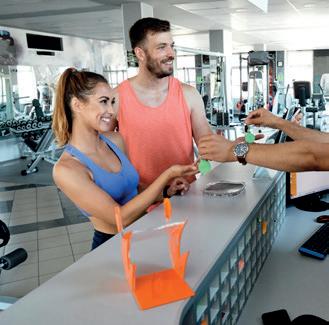



















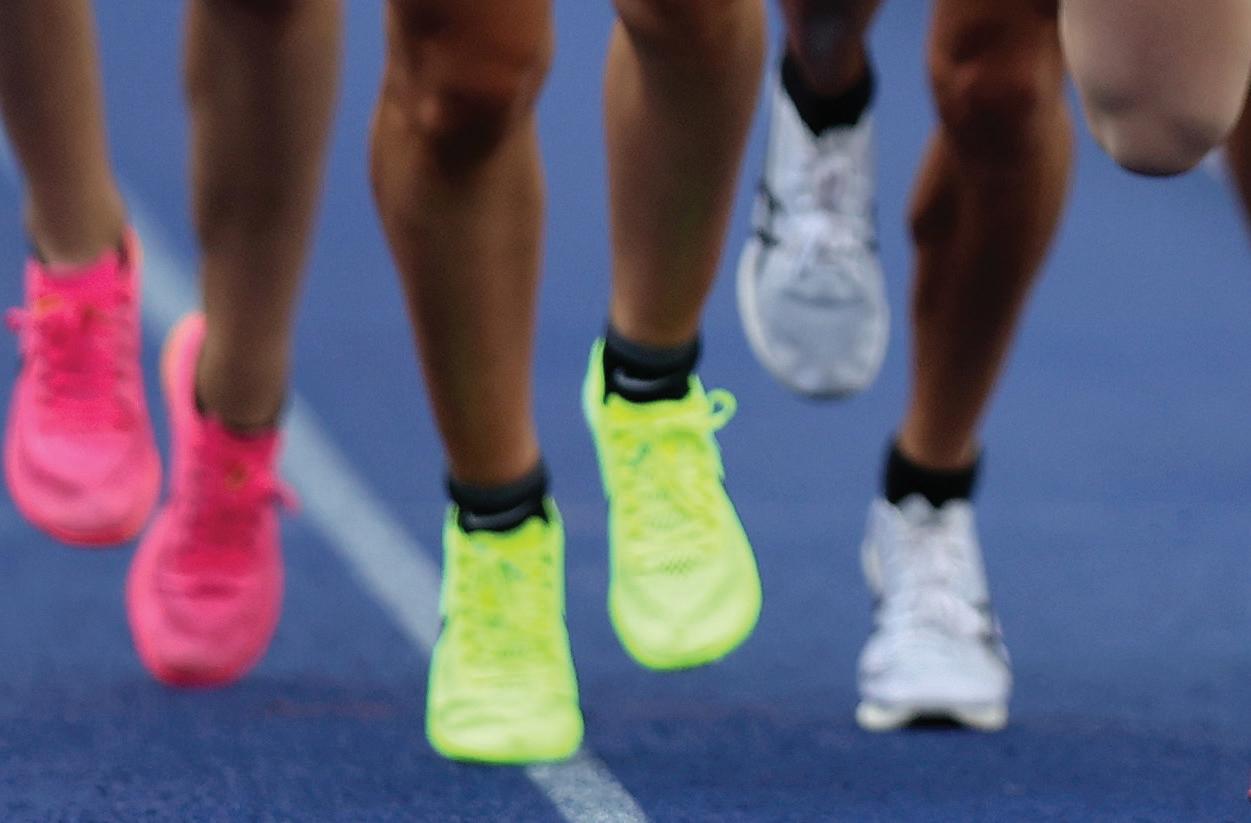









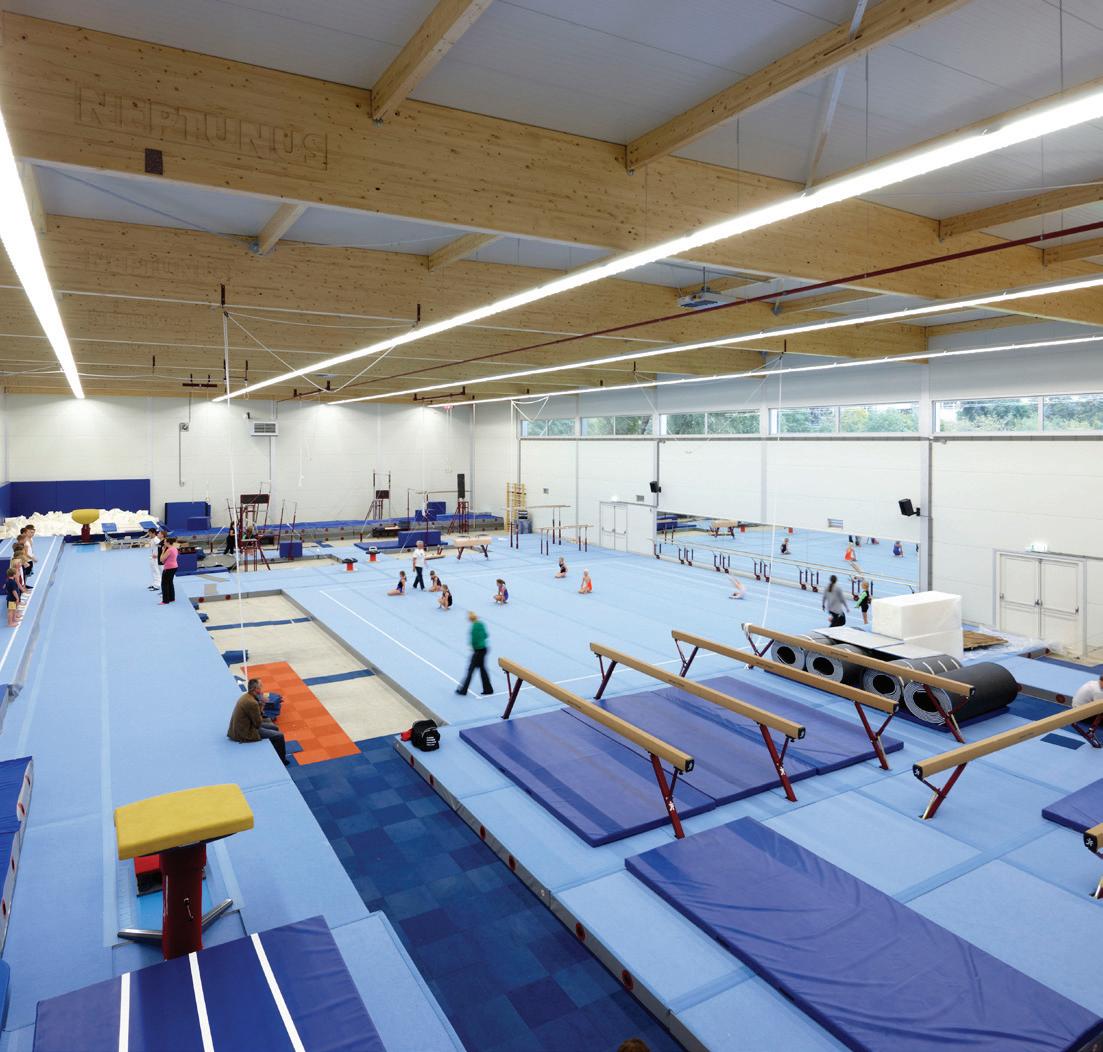
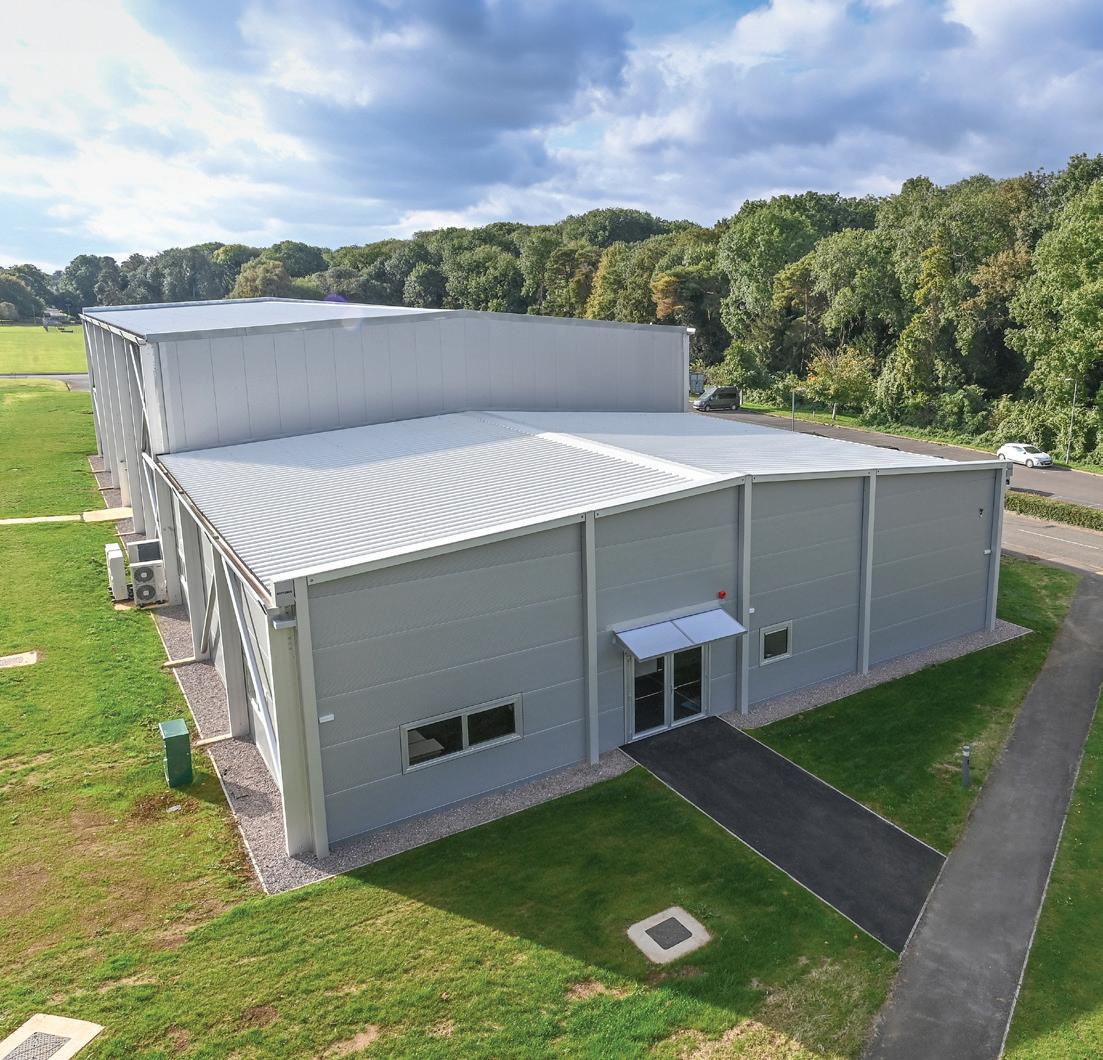
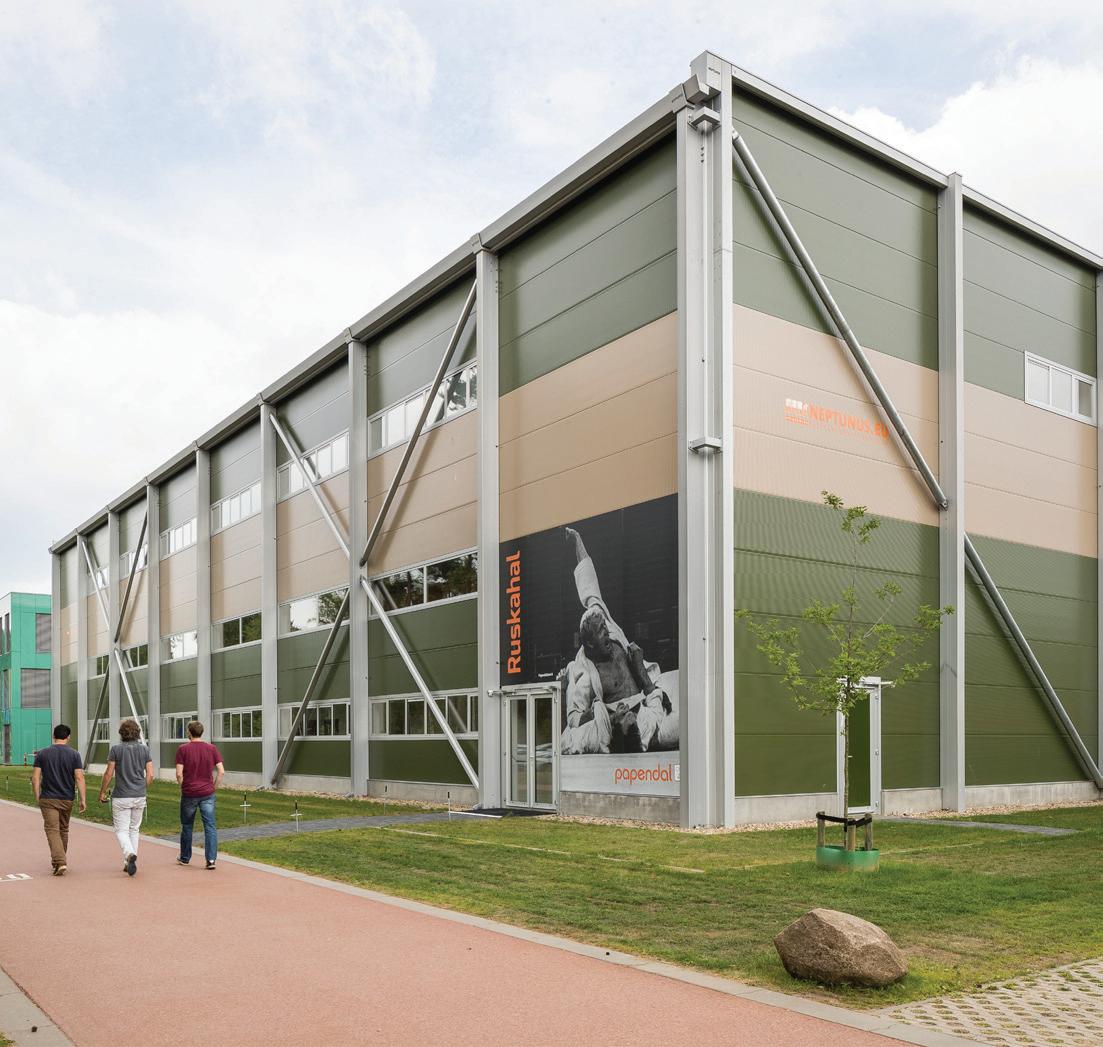

















More than one in four of the UK’s adult population are classified as obese - and this figure, like our waistlines, is slowly increasing year on year. With this comes all the associated issues, such as increased costs to the NHS through chronic conditions and worsening mental health. As well as lower economic productivity, it also means that millions of people are simply not able to enjoy healthy and fulfilling lives.

Speaking during a debate on school swimming, John Cryer, MP said the importance of swimming and water safety lessons in school “should never be underestimated”. He is also now backing calls for PE to be made a ‘core’ subject. Let’s hope that these calls are successful as swimming and physical activity in general are key life skills and should be treated as such.
The current - and future - government need to address this issue by tackling the causes, as well as the effects. We should be looking to embed physical activity in the lives of children, teaching them the joy of movement through play, sport, swimming and active travel. According to a study led by German life sciences consultancy Stradoo, children who are severely obese are at risk of halving their life expectancy if they don’t lose weight. Is this really what we want for our young people?
We should also be looking at policies and initiatives that make it easy and compelling for adults to access as broad a range of sports and activities to keep them fit and mobile for as long as possible. Not only will this help to tackle the weight-gain crisis, but in an aging population exercise is known to prevent disease, lower the risk of falls, improve mental health and improve cognitive function. The outcomes are positive for everyone, from health providers and employers to the individuals concernedit just needs greater government support.
John Challinor, Publisher
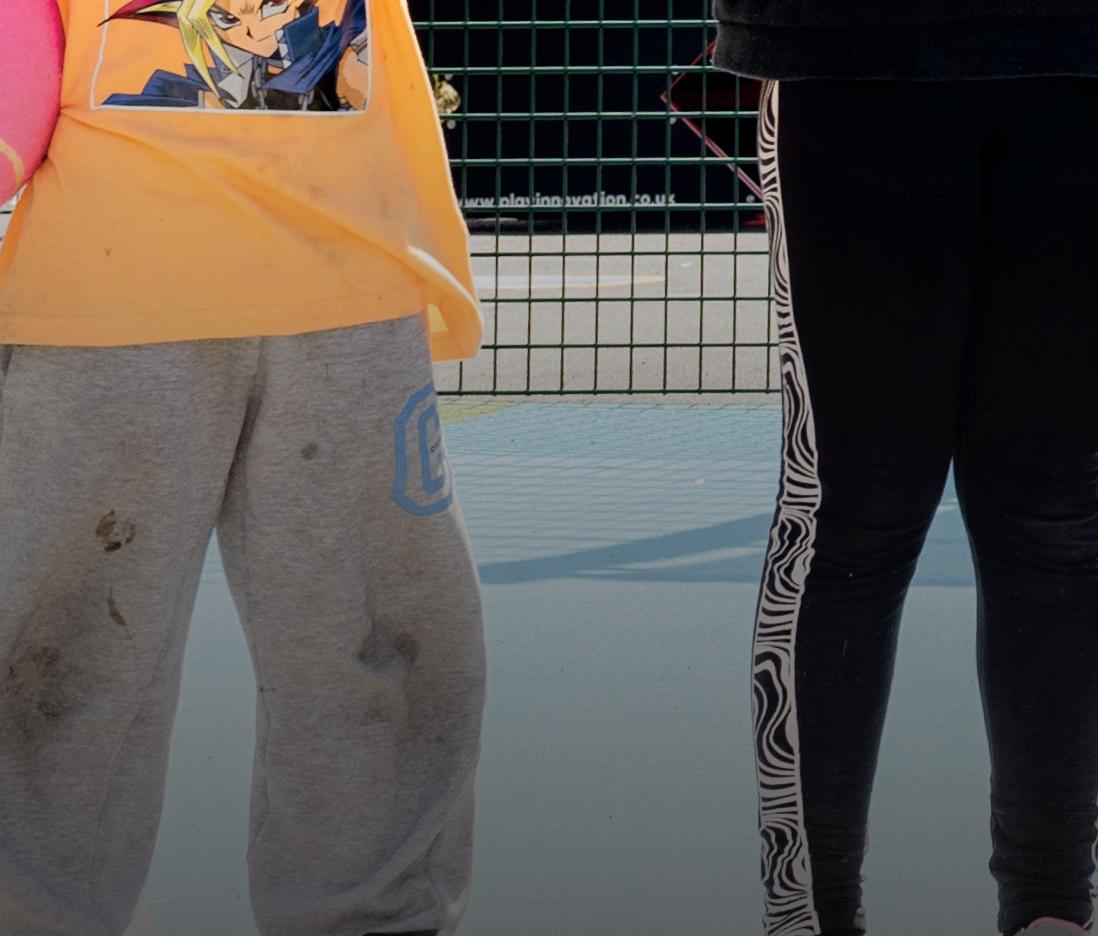

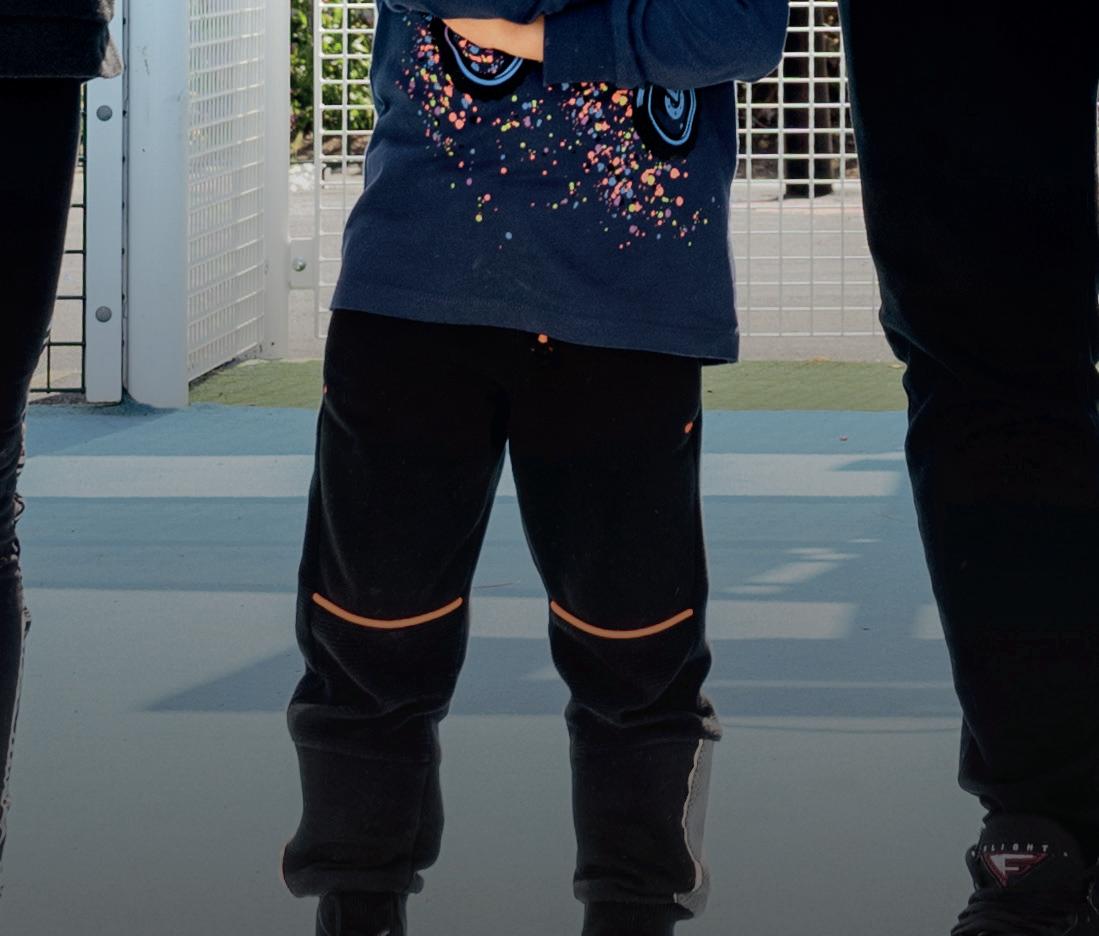









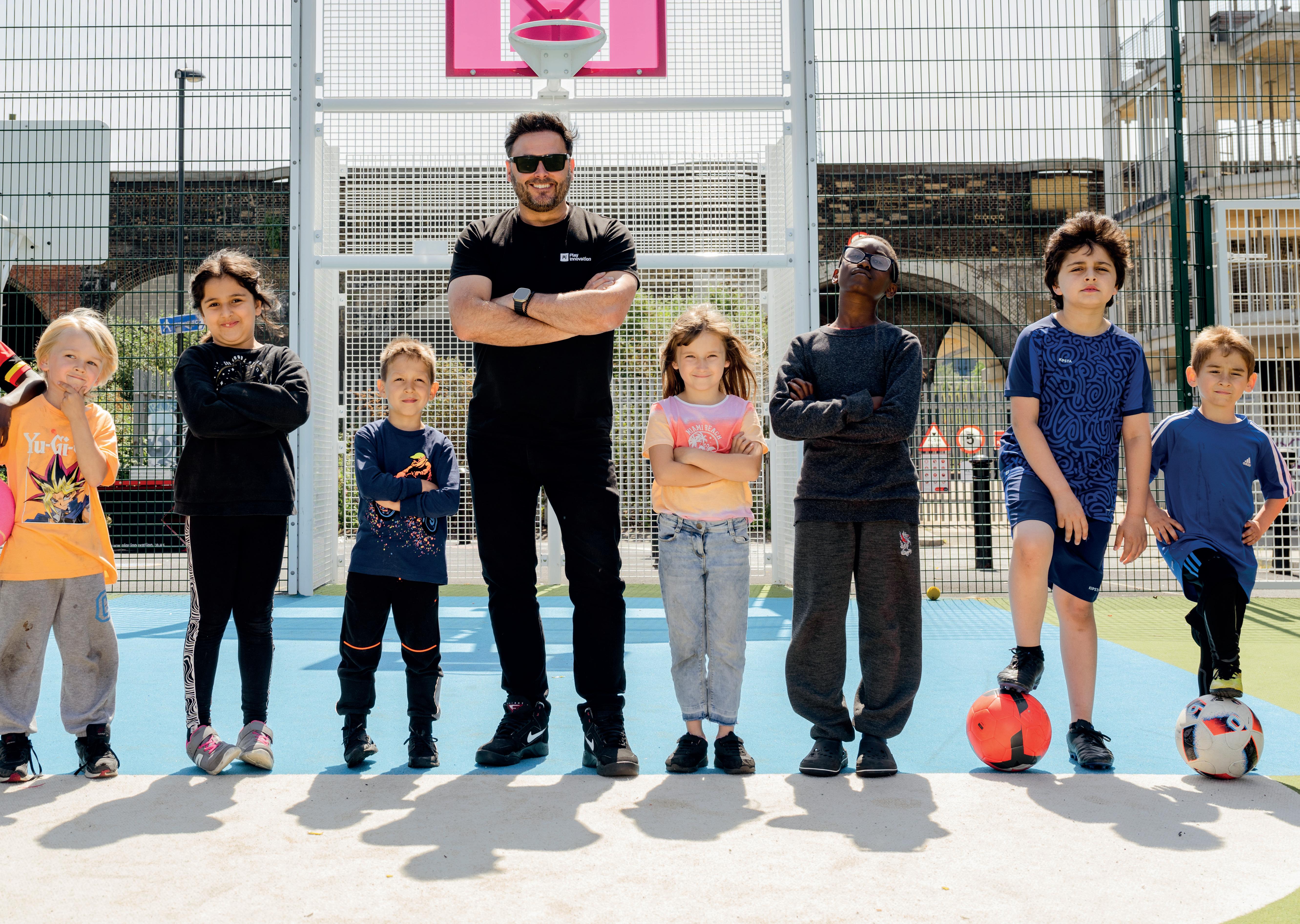


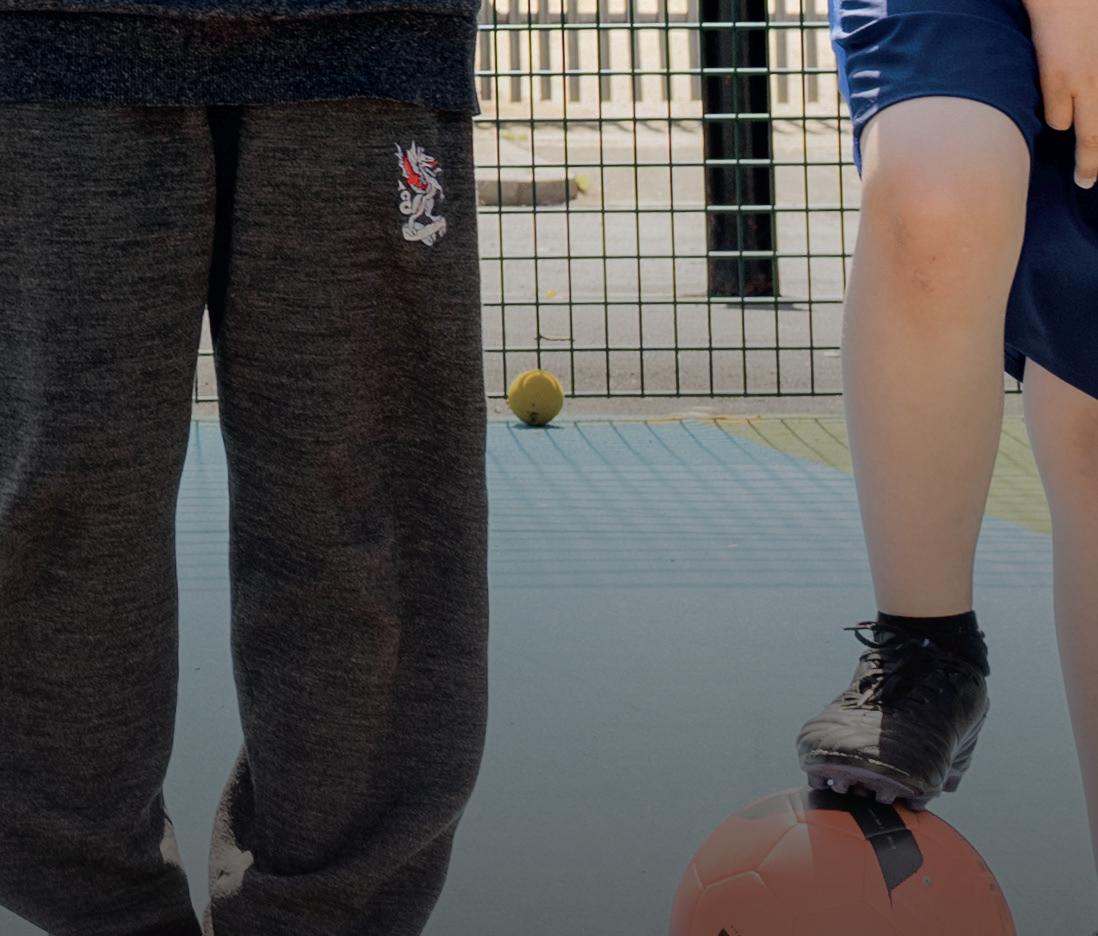

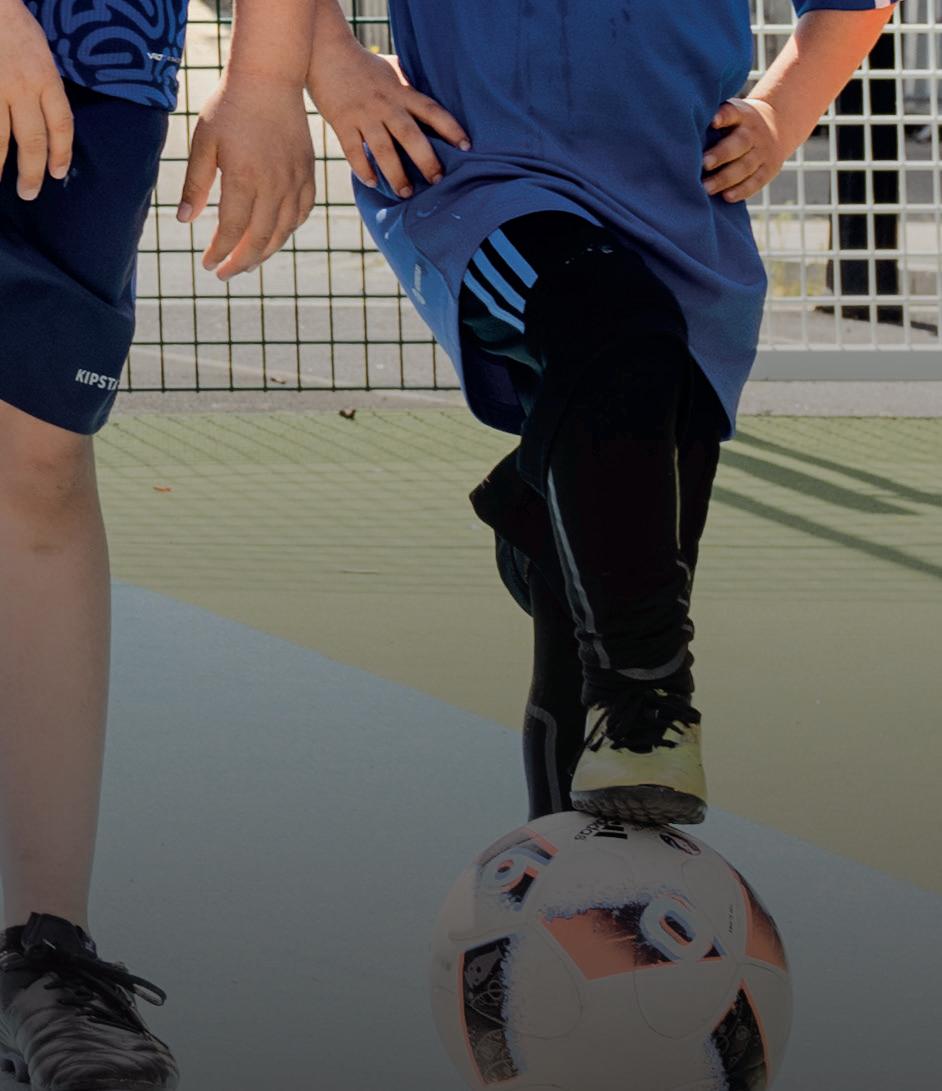





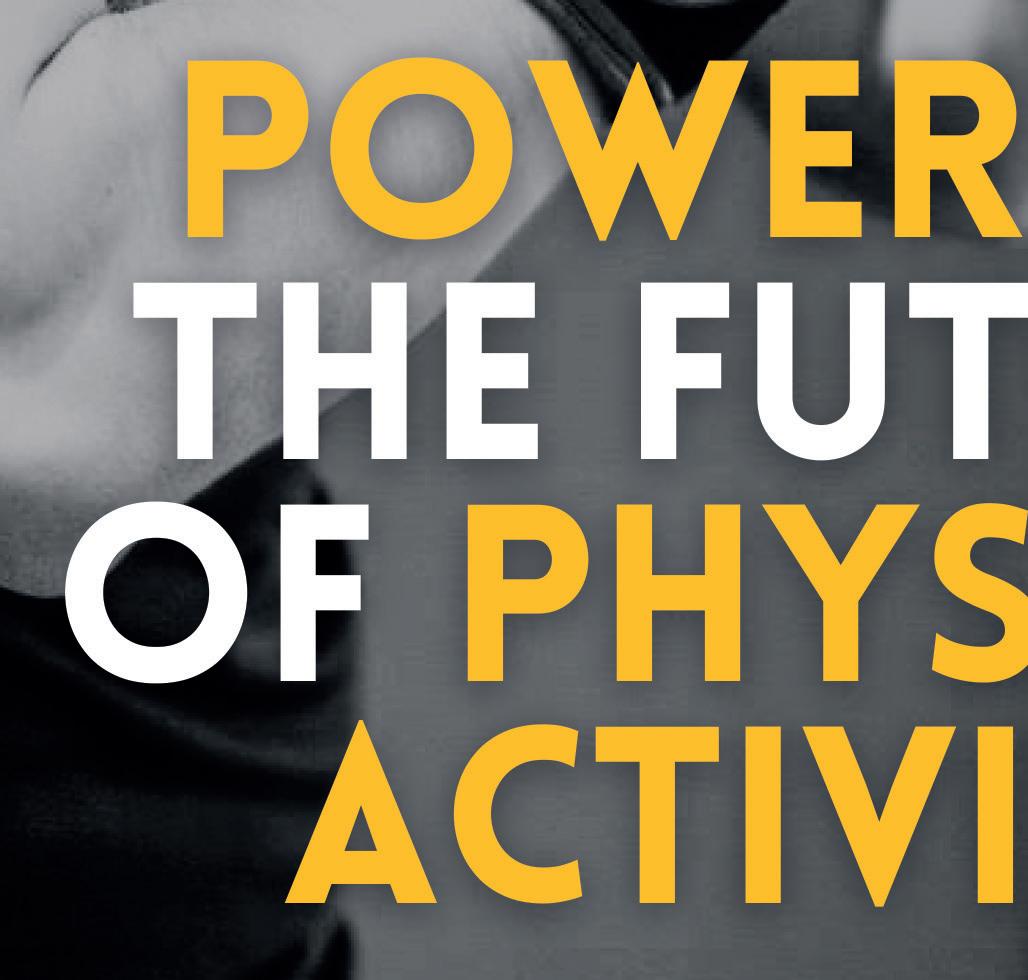












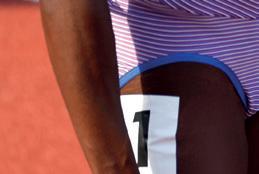

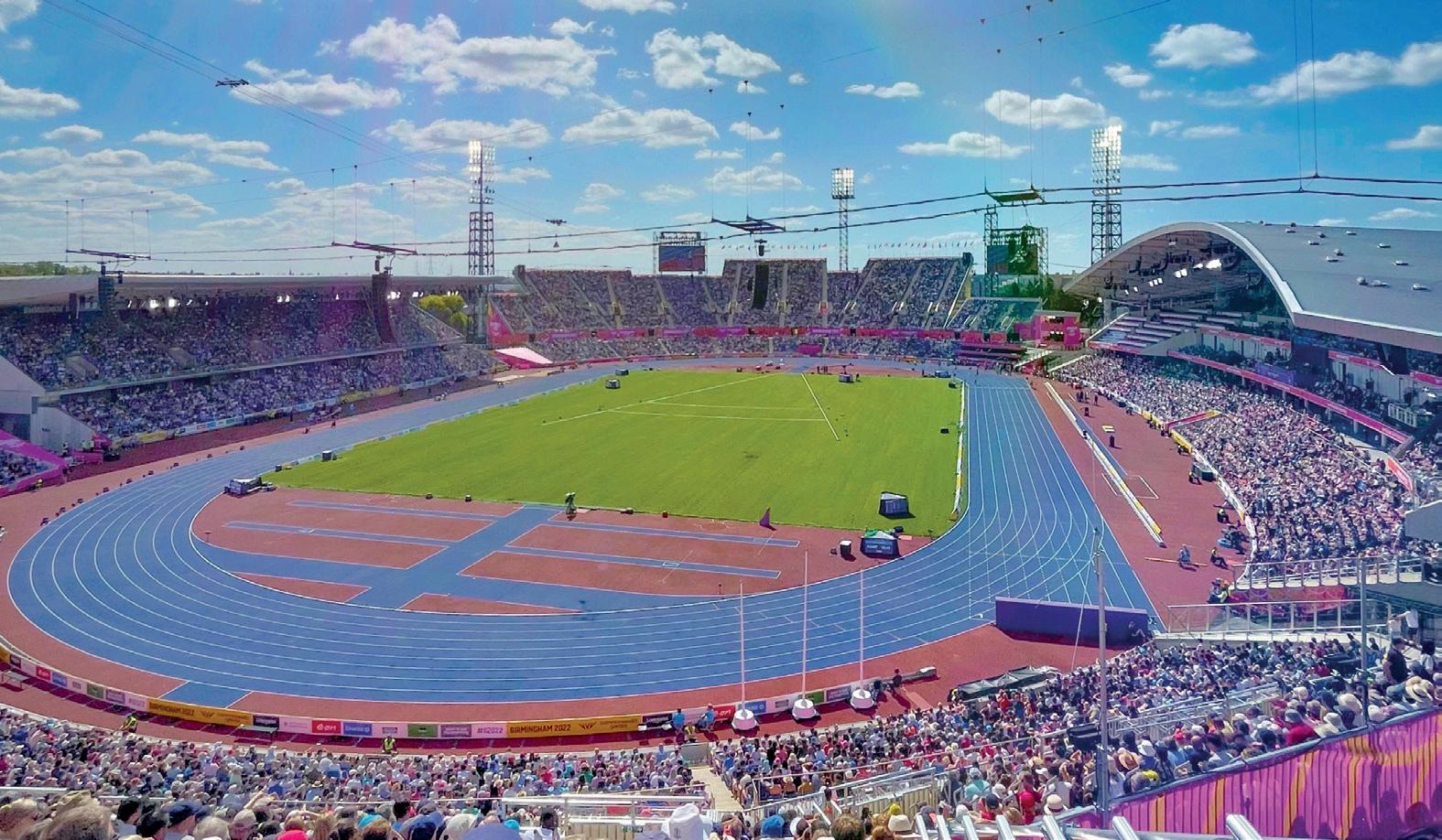


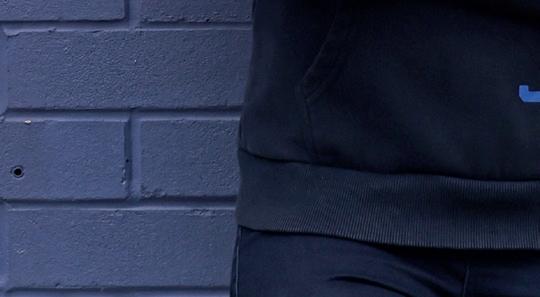








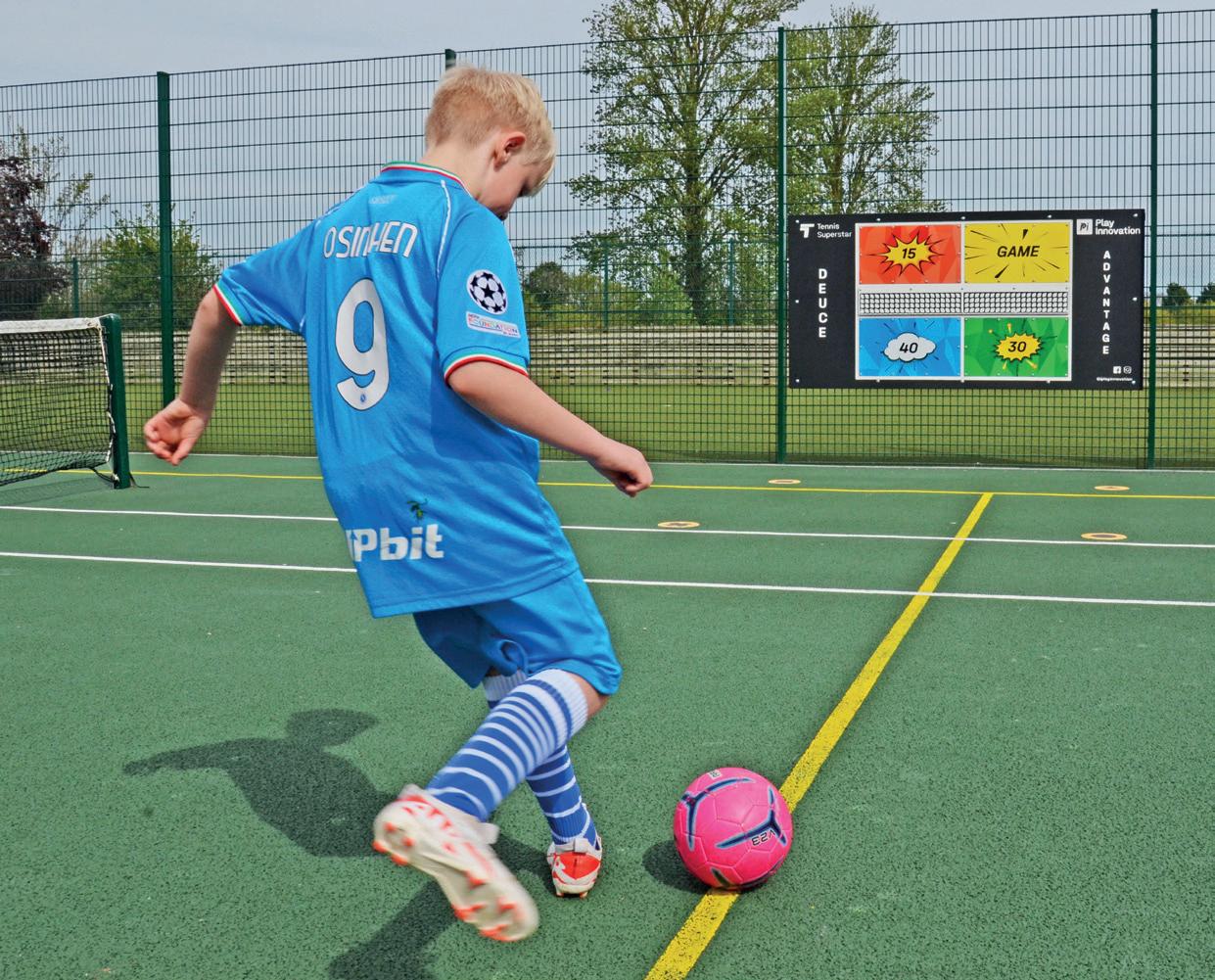


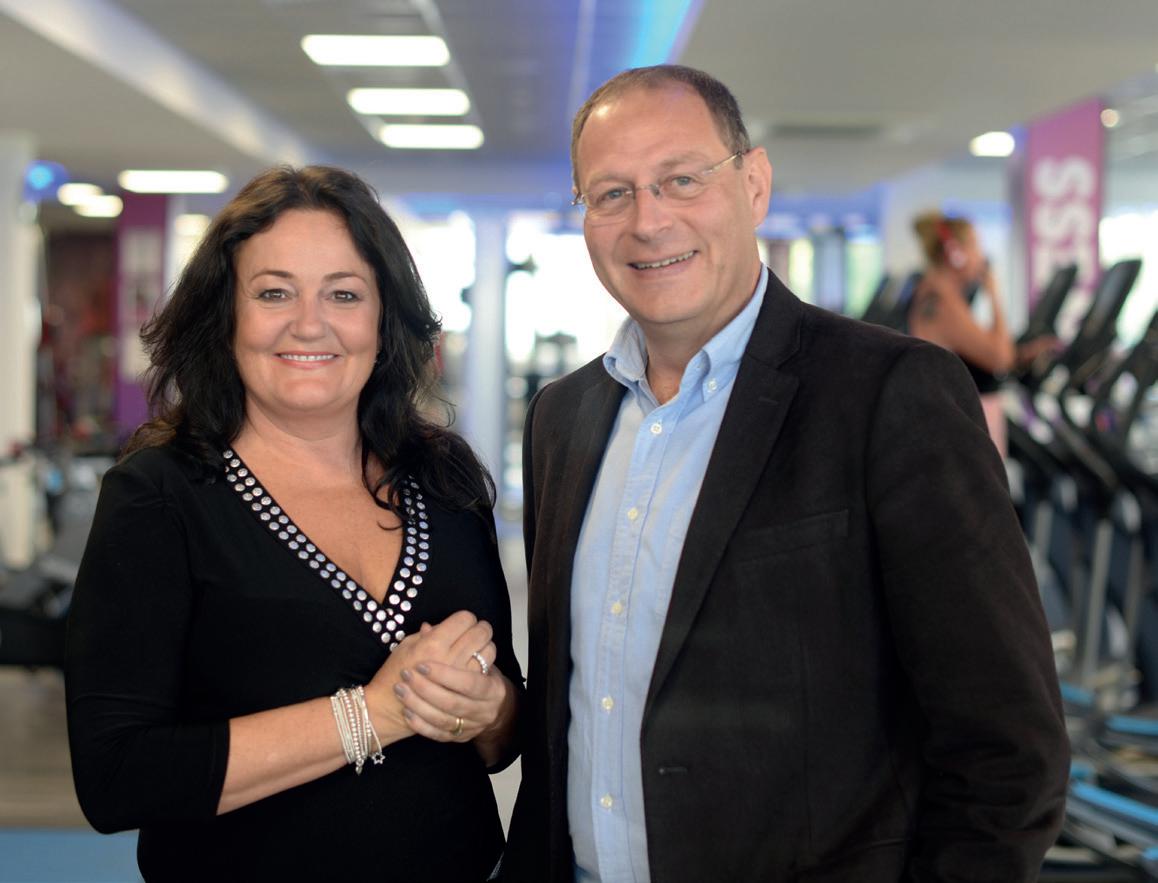
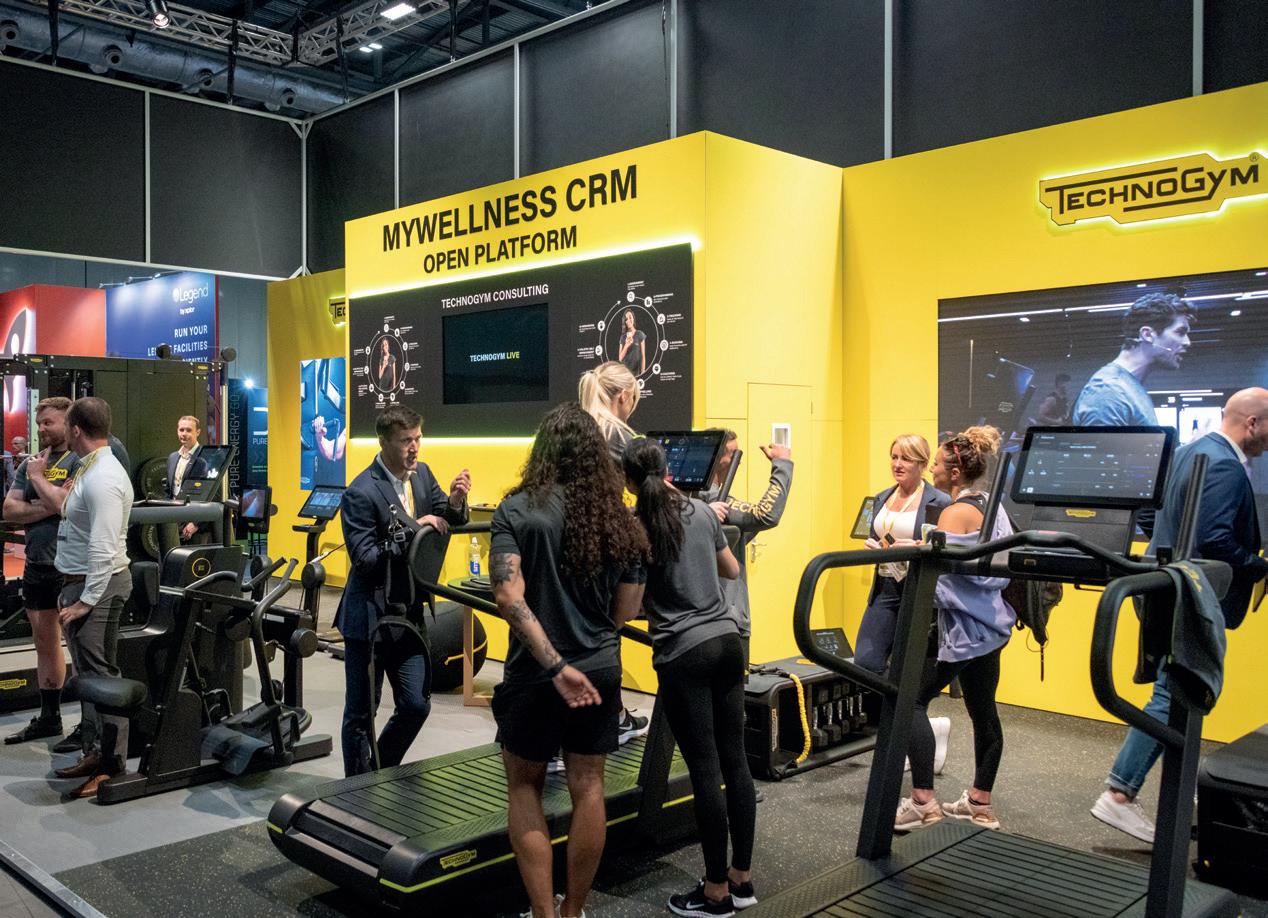
Do
A
Why


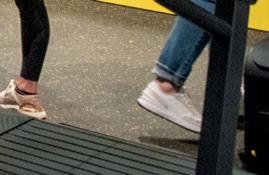
preview: Elevate Arena
Elevate, the UK’s largest tradeshow for fitness and physical activity takes place in London in June
Event review: Active-Net


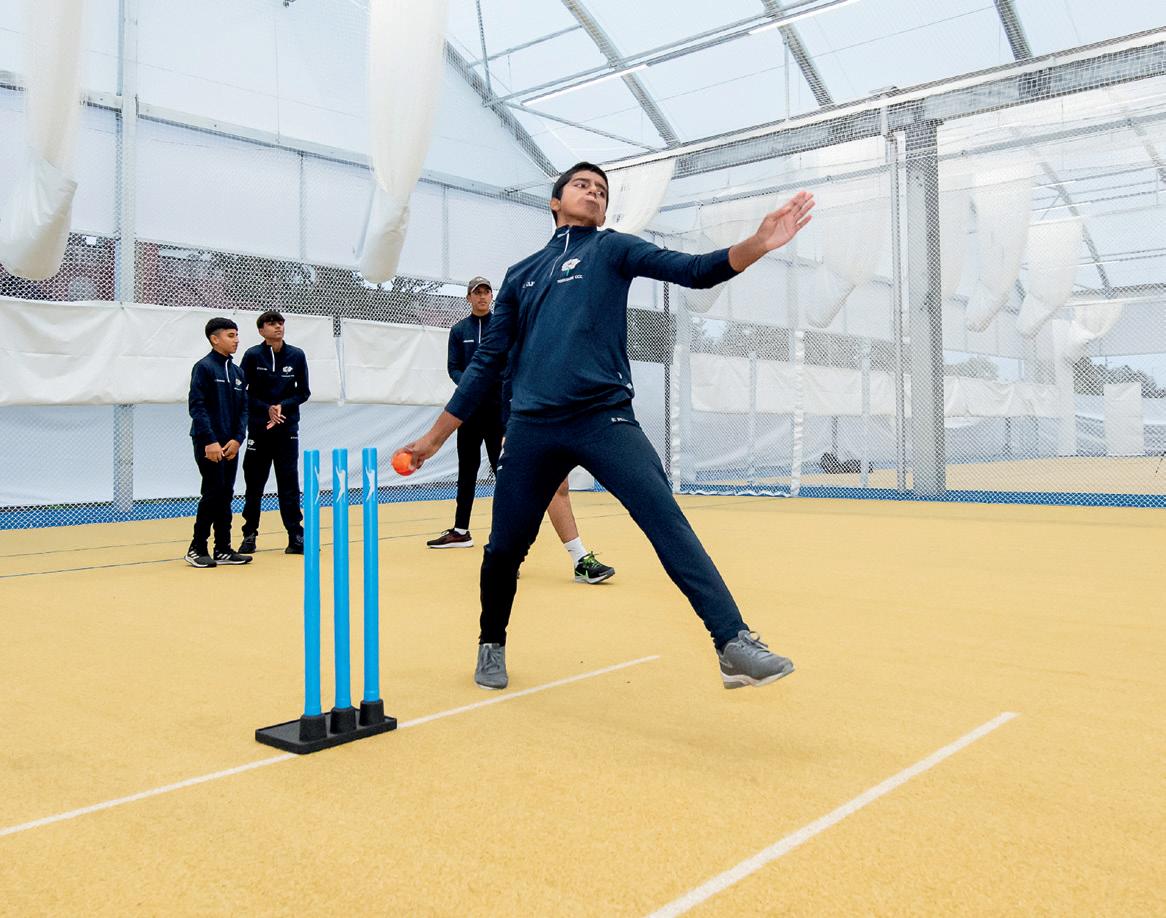


A report from the physical activity sector’s leading networking event which this year celebrated its 10th anniversary
Event review: BASIS Conference
Dominic Goggins reports on the biggest ever BASIS Sustainable Sport Conference, held in April
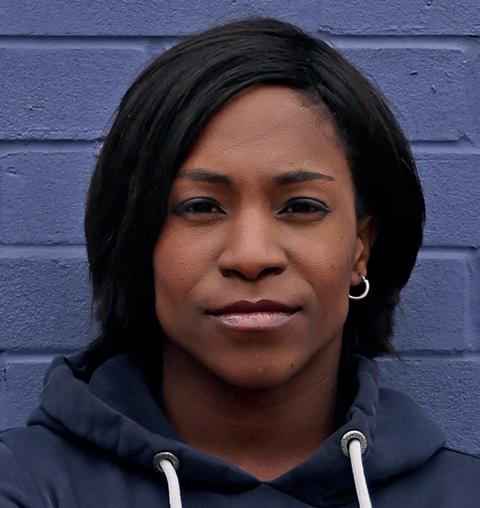

Maggie Alphonsi World Cup winner
England Women’s rugby team
@ MaggieAlphonsi
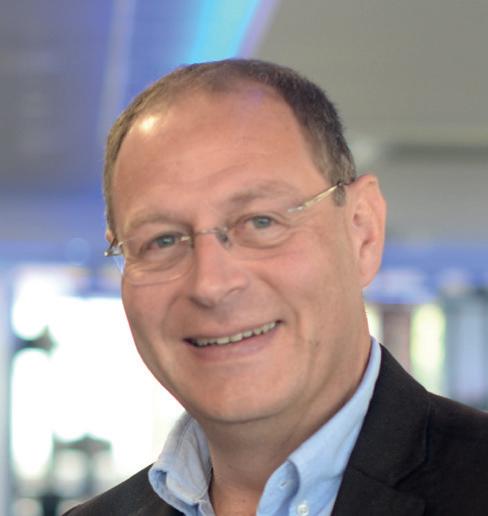
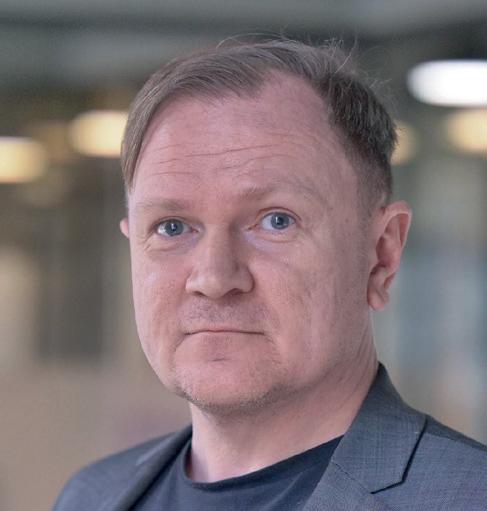
Paul Cluett Managing Director Alliance Leisure @AllianceLeisure
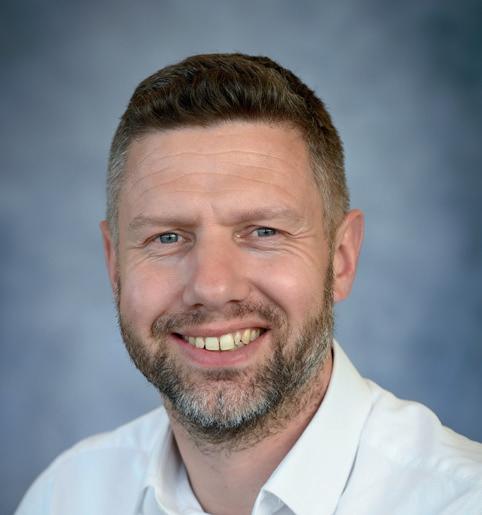
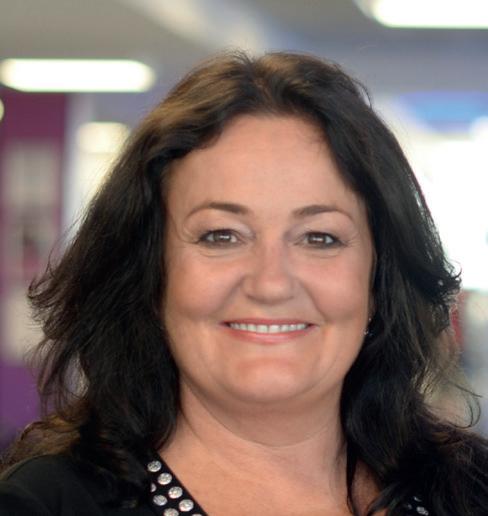
SportsNation is the single, authoritative voice for the provision, delivery, maintenance and management of sports and physical activity facilities. Published bi-monthly, the magazine focuses on the people, places, policies and products that help to build active communities throughout the UK. Subscribe now and we will email you a complimentary copy of the magazine every two months.
As the official magazine of SAPCA (the Sports and Play Construction Association), every issue of the magazine will also include information about technical guidance, funding, standards and product innovations.
www.sportsnation.org.uk
Advertising opportunities Contact John E: john@sportsnation.org.uk www.linkedin.com/ company/sportsnation @SportsNationMag FOLLOW US:
SportsNation is published by SportsNation Ltd in association with the Sports And Play Construction Association (SAPCA). www.sapca.org.uk
This publication is protected by copyright and no part may be reproduced, transmitted or stored in any print or electronic format without the written permission of the publisher. Every effort has been made to ensure the accuracy of the contents of this publication and SportsNation accepts no responsibility for any error or misrepresentation. Opinions expressed by the contributors and advertisers are not necessarily those of the publisher and we do not accept responsibility of losses or damages arising from them.
Printed by BCP Media Group Ltd. ISSN 2755-0621 (Print) ISSN 2755-063X (Online)
There was no real increase in the number of physically active adults during 2023, with a quarter of the adult population still deemed physically inactive.
Figures from Sport England’s latest Active Lives Adult Survey report show that, between November 2022 and November 2023, 63.4% of the adult population met the Chief Medical Officers’ guidelines of doing at least 150 minutes of moderateintensity physical activity a week.
The figure is practically unchanged from the 63.1% the year before (2022).
Worryingly, the number of people classed as inactive – averaging fewer than 30 minutes a week – is showing no signs of decreasing, with 25.7% of the population (11.9m) falling into the category (compared to 25.8% in 2022).
The report also reveals that many long-standing inequalities remain, with women, those from
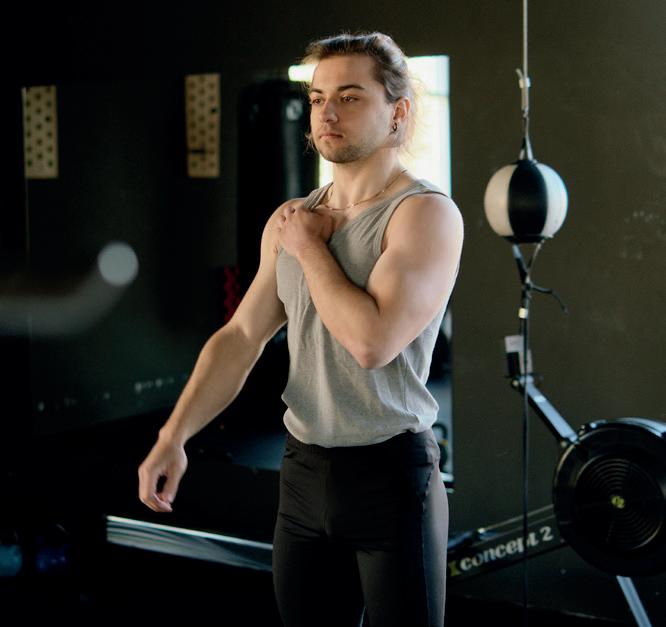
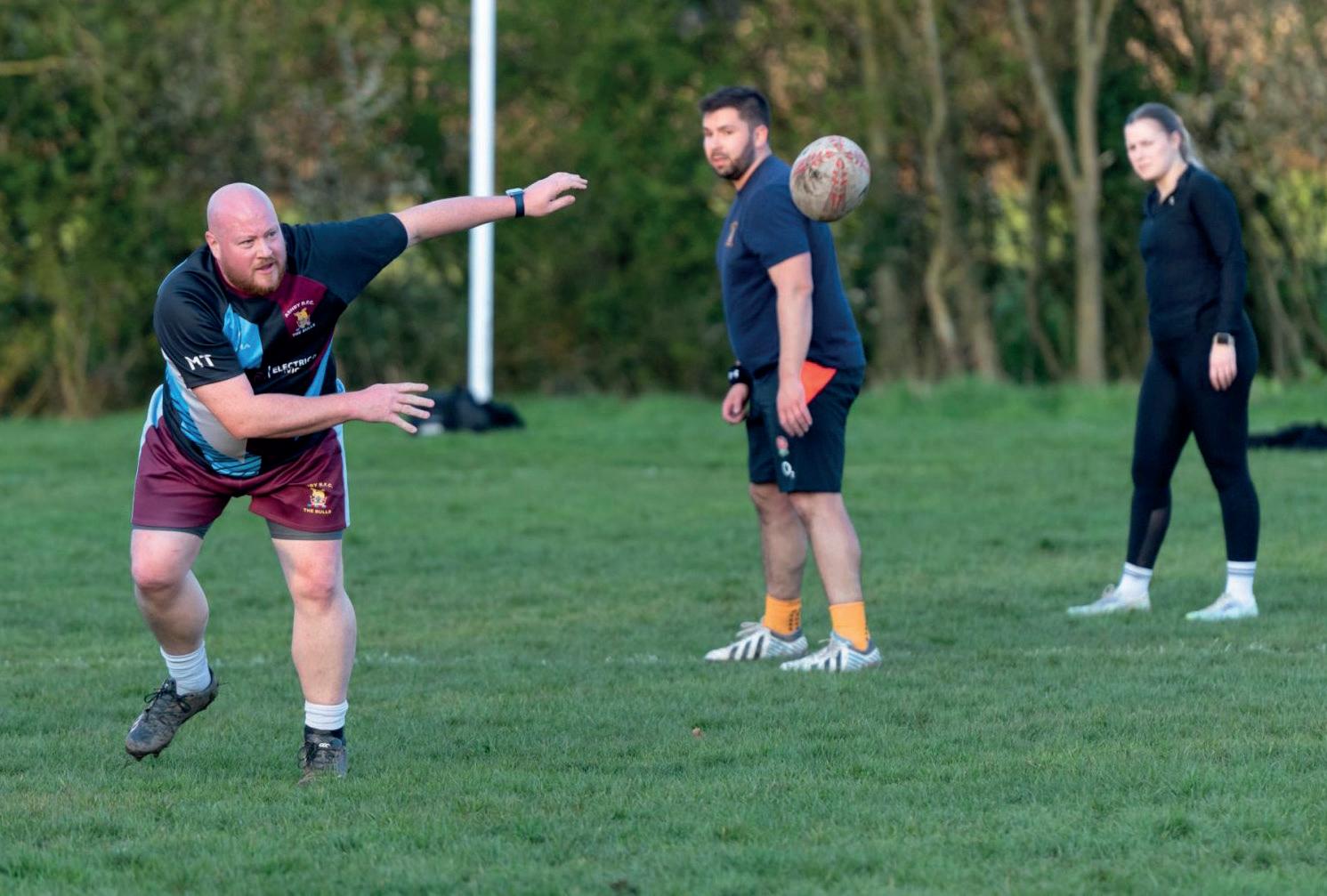
lower socio-economic groups and Black and Asian people still less likely to be active than others.
This despite Sport England – the agency tasked with getting people more active – saying it has put “tackling inequalities at the heart” of
its Uniting the Movement strategy, which it launched more than three years ago, in January 2021.
According to the Active Lives report, the activities to have seen significant growth included active travel and fitness activities.
Leading physical activity sector organisations have joined forces to establish a “stronger ecosystem of industry standards” for the UK.
The development of The Active Standard (TAS), which is set to launch later this year, has seen industry body, ukactive, engaging with Sport England and Right
Directions, which deliver Quest –the Continuous Improvement Tool currently in place for leisure facilities.
The launch of TAS will see the three partners working together to establish and promote a comprehensive framework supporting operators in the public and private sectors.
Lord’s cricket ground is set for another multi-million pound redevelopment as the venue’s owner, Marylebone Cricket Club (MCC), approved plans to invest £61m in improvements.
The project will see the Tavern and Allen Stands – the two oldest stands at Lord’s – being transformed and capacity increased by 1,100. The redevelopment will see an extra tier added to both stands. In the Allen stand, this will be facilitated by the relocation of the scoreboard. In the Tavern stand, it will involve the introduction of a new cantilevered fourth-floor seating level above the retained existing structure, which is extended back to the site boundary.
The existing Allen Stand dates to the 1930s and will be demolished entirely. Designed by architects WilkinsonEyre, The Tavern stand’s roof profile is inspired by the shape and ribbed construction of a series of

upturned traditional slip cradles, and continues the theme of innovative architecture around Lord’s. Food and beverage facilities of the stands will also be improved, including the introduction of pitch-facing bars at all levels. Expected to be completed by 2027, the work follows
a significant £53m overhaul of its Compton and Edrich stands in 2021.
John Graham Construction Ltd is the preferred bidder for the main contract to build the development and MCC will now proceed to finalise the contract with them over the coming weeks.
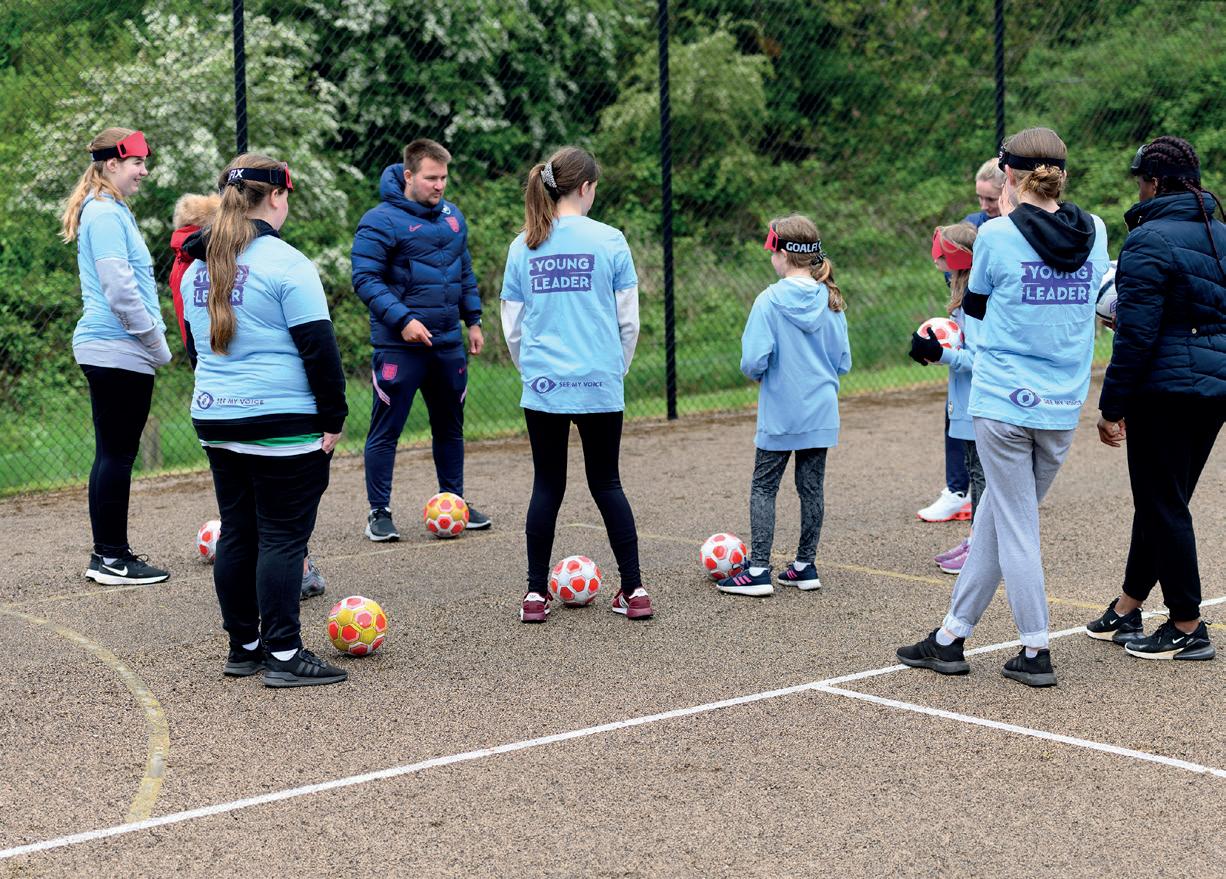
The
Sport England has changed its small grant application process in an effort to make it easier for sports clubs and other organisations to secure funding for their projects. The new Movement Fund, launched this week, aims to simplify funding applications and help those with the “greatest need”. Worth £160 million over the next four years, the new fund replaces Sport England’s existing Small Grants Programme and Active Together fund.
Aimed at community groups, local clubs and grassroots organisations, Movement Fund will offer investments of between £300 and £15,000. The launch coincides with the introduction of a new Movement Hub pilot, designed to make it easier for organisations to find Sport England’s existing tools and resources.
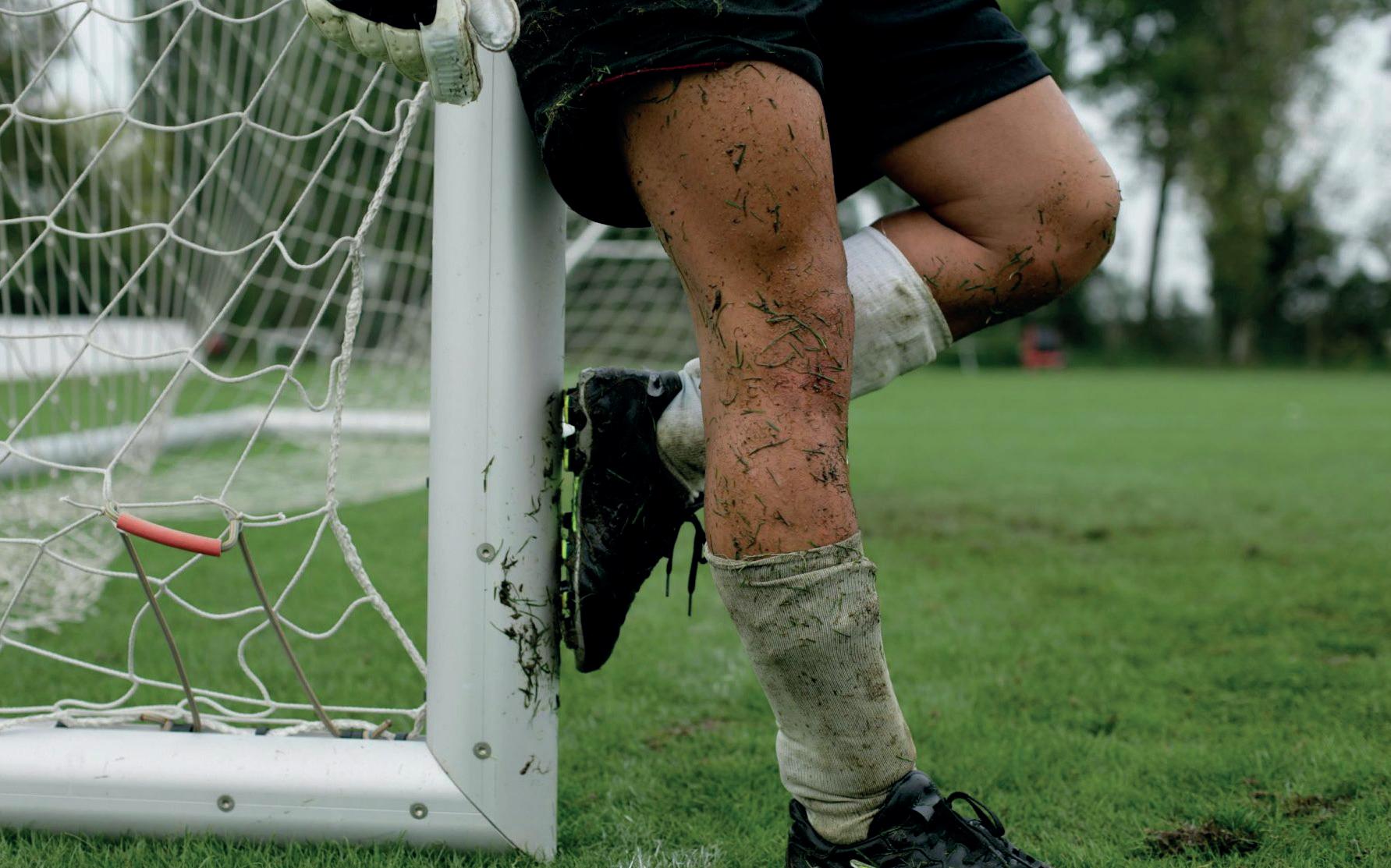
A multi-million-pound refurbishment project of Doncaster’s iconic The Dome sports and leisure centre has taken a step forward, having been approved by City of Doncaster Council’s Cabinet.
Bad weather making grass pitches unplayable during the winter months remains among the biggest threats to grassroots football in the UK.
According to fresh research, 92% of clubs experienced match cancellations due to adverse weather over the past year (2023-2024).
Conducted by football equipment retailer, Forza, the research also shows that clubs are struggling financially, with seven out of 10 clubs not feeling they have sufficient funding to support their activities.
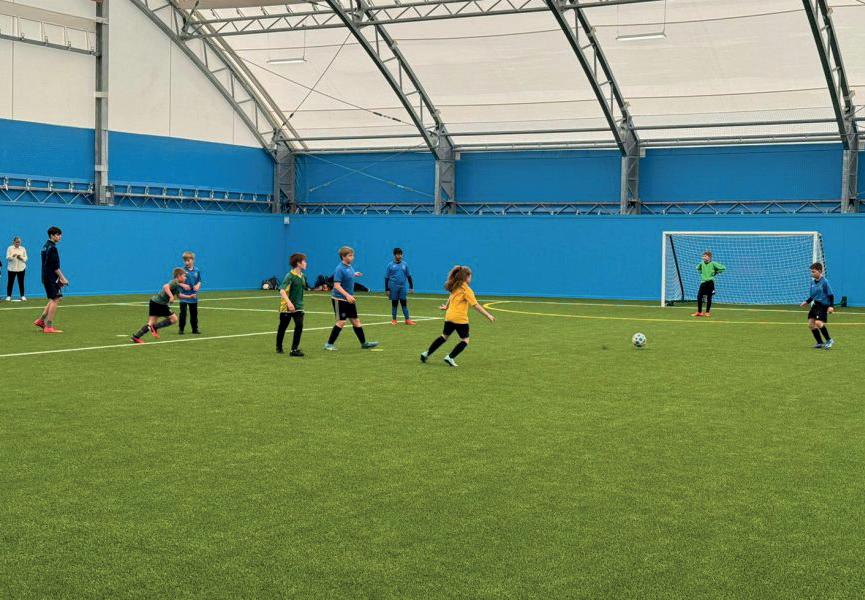
The study was based on a survey on 186 football clubs across England – comprising more than 600 teams and 6,000 players – collected between February and March 2024. It shows that less than half (46%) of clubs rate their facilities as “good” or “very good”, with the rest (54%) describing them “average”, “below average” or “poor”.
“The significance of pitches for clubs cannot be overstated,” the report states. “However, the turbulent events of recent years have meant that funding them is getting more difficult.”
The £14.4 million project will include the redevelopment of the Dome’s famous lagoons, which will see them closed for up to a year.
The venue’s other facilities and services – such as the ice rink and health club – will remain open.
Doncaster Dome first opened in 1989 and is in need of modernisation. Operated by Doncaster Culture Leisure Trust, the centre was made a Grade II Listed building last year.
Councillor Nigel Ball, Doncaster Council’s Cabinet Member for Public Health, said:
“This investment in leisure is vital and is a testament to our dedication to health and leisure at a time where other councils are closing venues.”
A Swansea leisure centre has received a major redevelopment, including a new indoor “sports barn” with a 3G pitch capable of hosting several sports.
The steel-framed dome housing the new pitch was built by SAPCA member, Copri Systems, and is part of a £7.5
million investment in facilities at Cefn Hengoed Community School and Leisure Centre. Other facilities include a new health club with a gym and fitness studio featuring a big screen, sound system and rainbow lighting, new changing rooms and a new reception area with café.
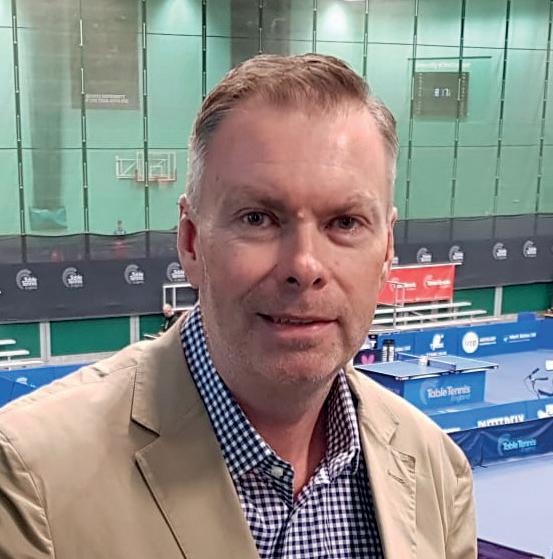
Adrian Christy, CEO of Table Tennis England, will step down from his role in December 2024. Christy, who has spent the past 30 years in the sports industry, said the move will allow him to “transition into a new world of retirement”. He was appointed interim CEO of Table Tennis England in December 2021, before being named full-time CEO in May 2022.
Before that, Christy spent 15 years as CEO of Badminton England.
Commenting on Christy’s decision, Table Tennis England Chair, Nick
Chelsea Foundation has appointed Laura Cordingley as its new chief executive.
Cordingley joins Chelsea Foundation from cricket charity Chance to Shine, where she spent six years as chief executive. During her career, she has also worked at the Mayor of London’s office as assistant director, responsible for Team London, and held roles at Marylebone Cricket Club, Durham City School Sports Partnership and Volleyball England.
Cordingley will start her new role at Chelsea Foundation in August and will lead the Foundation’s work using the power of football to motivate, educate and inspire its communities.
Cordingley said: “I’m honoured to have been given the opportunity to lead the Chelsea Foundation in its next chapter. The Foundation has a wonderful ability to change lives and connect communities through its social impact.
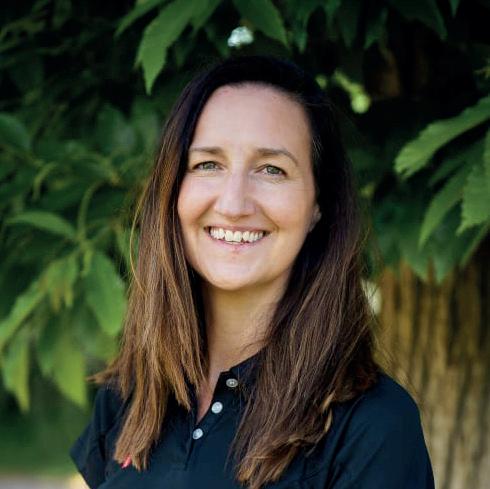
Cordingley was previously the CEO of cricket charity Chance to Shine
“I can see huge opportunity to further this impact and I very much look forward to working with the passionate team at the Foundation to achieve this in the future.”
Chair of the Foundation, Lord Daniel Finkelstein OBE, added: “We are one of the world’s leading football social responsibility programmes and Laura will elevate our work even further.”
Donald, said: “Adrian joined Table Tennis England in December 2021, at an incredibly challenging time for the sport and the sector more widely.
“Emerging from the pandemic he has led the organisation in reshaping its strategy and reforming its governance structure to be far leaner, more focused and aligned to its growth ambition.
Christy said: “I’ve spent more than 30 years in sports, having been blessed to work with some extraordinarily talented people.”
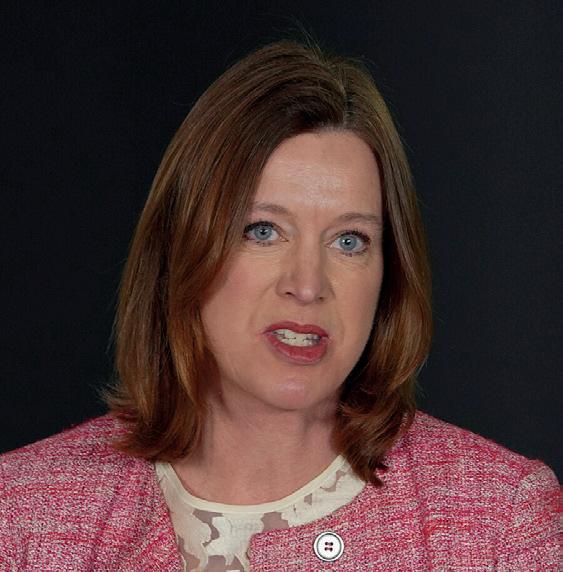
Catherine Calderwood has joined Women in Sport’s board of trustees.
A prominent figure in public health, Calderwood served as CMO for Scotland from 2015 to 2020.
She has dedicated her career to improving health outcomes, with a particular focus on disparities which disproportionally affect women and girls.



CREATE SPACE TO PLAY IN ALL THE YEAR ROUND
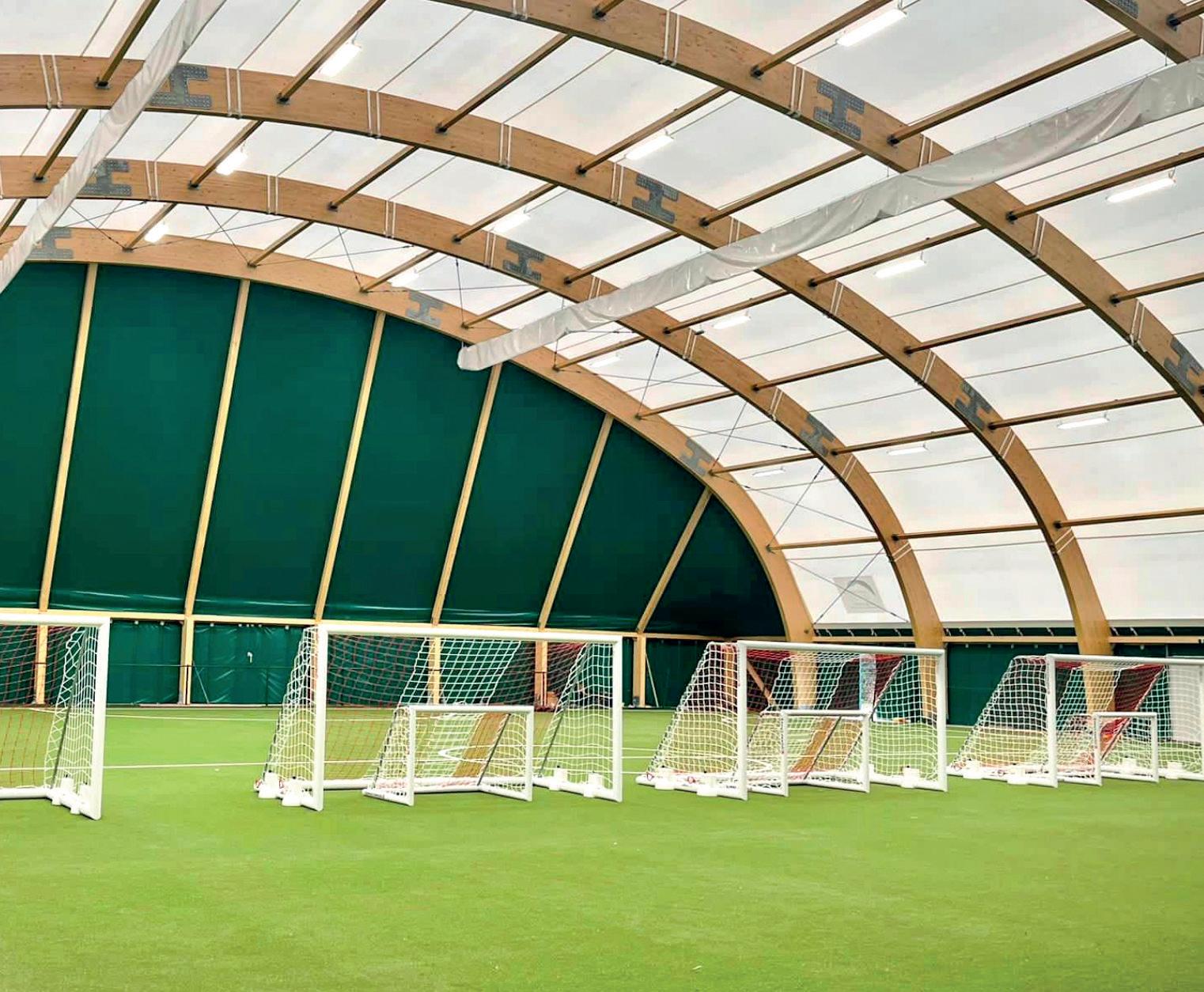
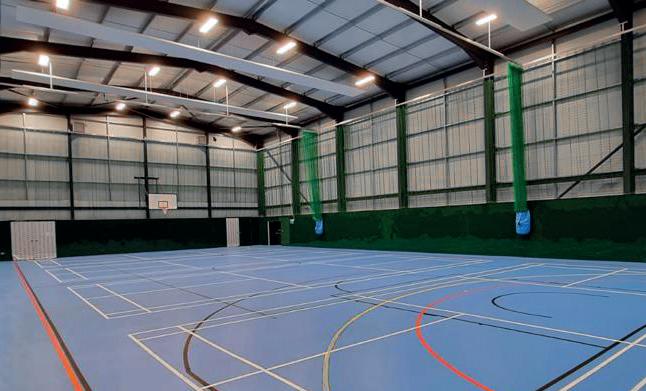
CopriSystems bespoke sport structures use natural light and ventilation to create amazing spaces to play in all year round.
All our structures conform to the relevant building codes and we are SAPCA approved.

For a site visit or quick quote: call us on 01380 830 697 email sales@coprisystems.com visit www.coprisystems.com
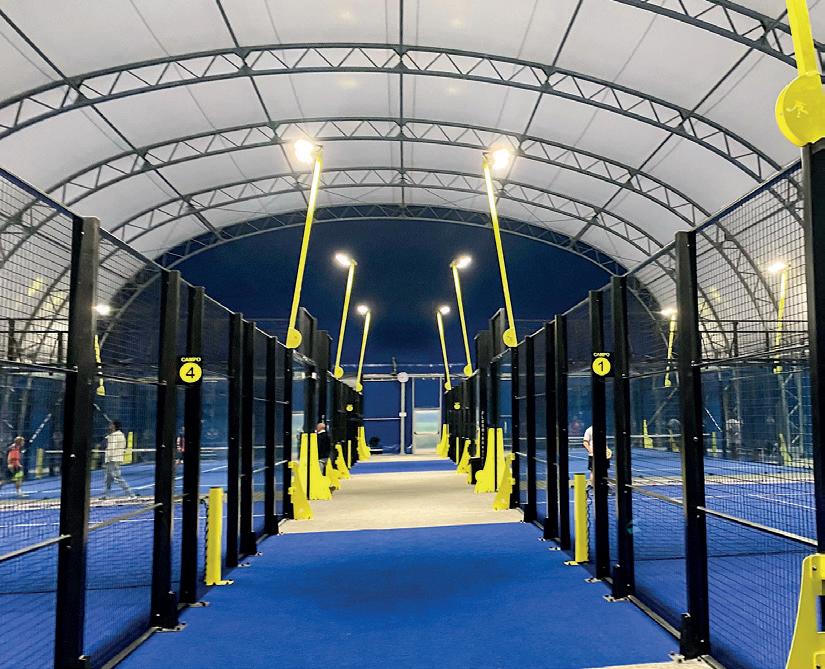
>Free consultation
>Individually designed structures
>Affordable finance options available

The National Sector Partners Group (NSPG) has called for stronger measures to reduce inequalities in physical activity.
The call is a response to the latest Active Lives study from Sport England, which shows there remain “long-standing inequalities” based on gender, ethnicity and disability. Women, those from lower socio-economic groups and Black and Asian people are still less likely to be active than others.
Worryingly, there has been a fall in the number of Black and Asian adults who are classed as physically active.
This despite Sport England saying it has put “tackling inequalities at the heart” of its Uniting the Movement strategy, which it launched more than three years ago, in January 2021.
NSPG – a coalition of lead representative bodies from across the sport, recreation and physical
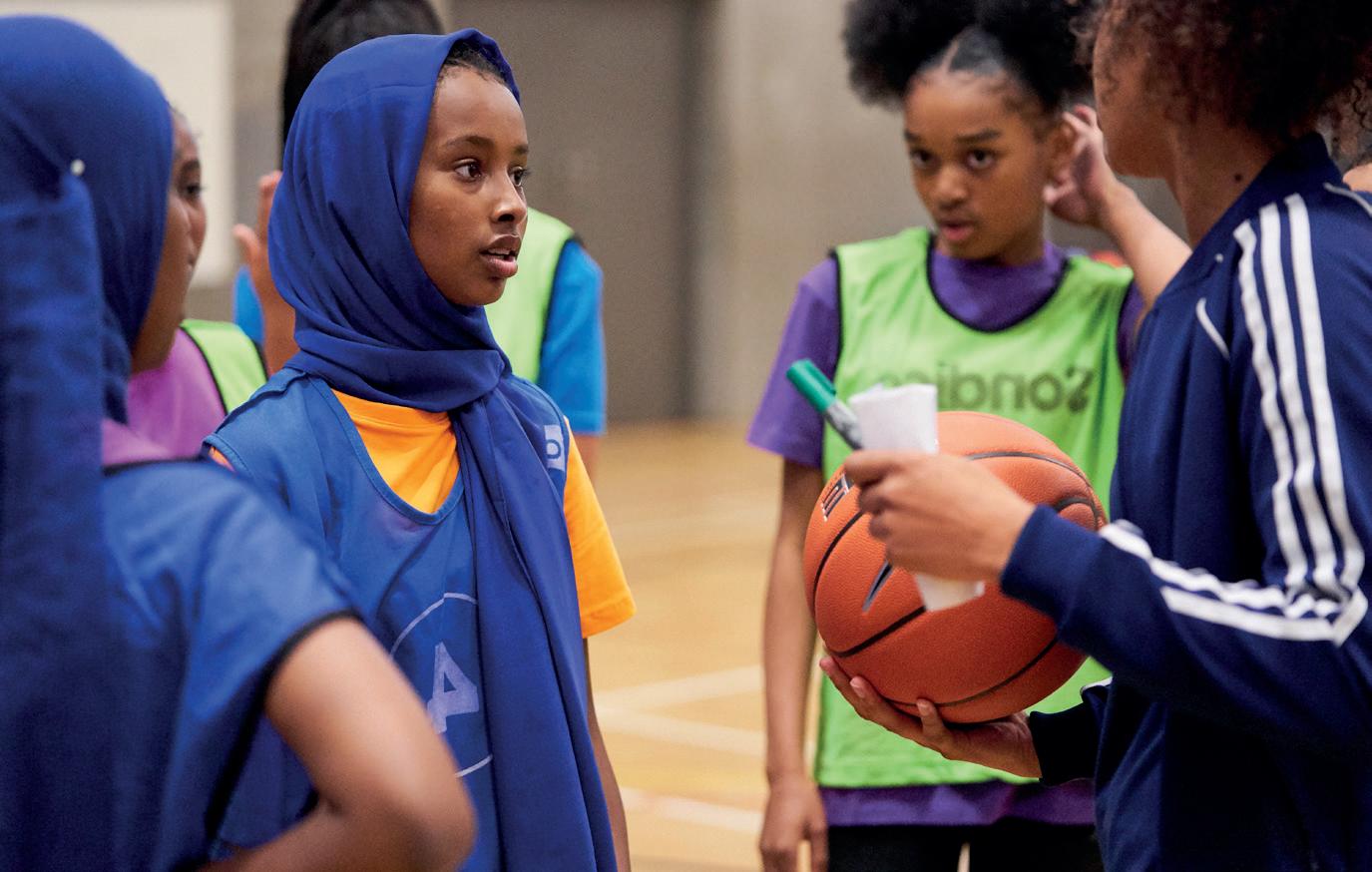
There has been a fall in the number of physically active BAME adults
activity sectors – also highlighted how the UK is currently 11th out of 15 comparable European nations for activity levels.
“Data from the Active Lives study clearly demonstrates that we must work harder and faster to generate transformative change in
our nation’s health and wellbeing,” the NSPG said in a statement. These results show a growing gap in levels of activity among different income and deprivation demographics. This was identified as a clear focus of the government’s Get Active strategy announced last year.
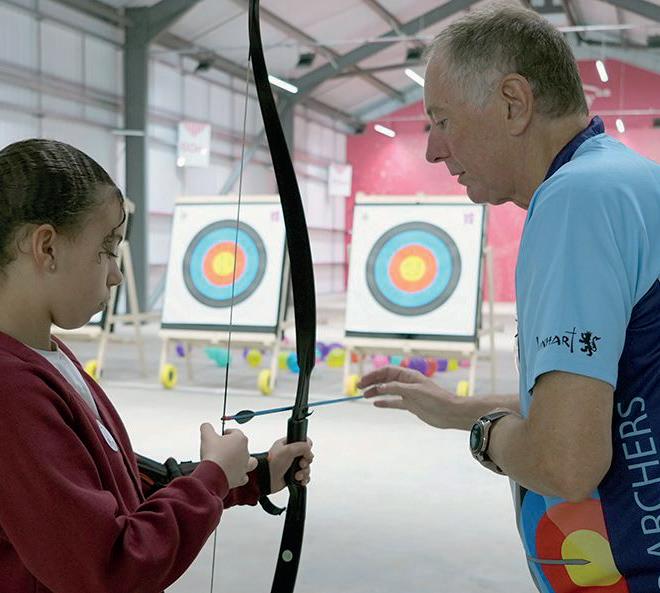
Funded jointly by Sport England and UK Sport, the £3.6 million centre is the new home of British performance archery and will also host community and grassroots activities.
The new facility features a 70m indoor and outdoor shooting range, enabling year-round shooting, changing rooms, coaching and training support areas, toilets and car and cycle parking. As all facilities are on the same level, the centre is fully inclusive and accessible.
It also features several environmentally-friendly solutions, including an array of south-facing solar panels on the roof, along with additional battery storage to ensure the benefit is gained all year round.
Among the first users will be Team GB archers in the run up to the Paris 2024 Games.
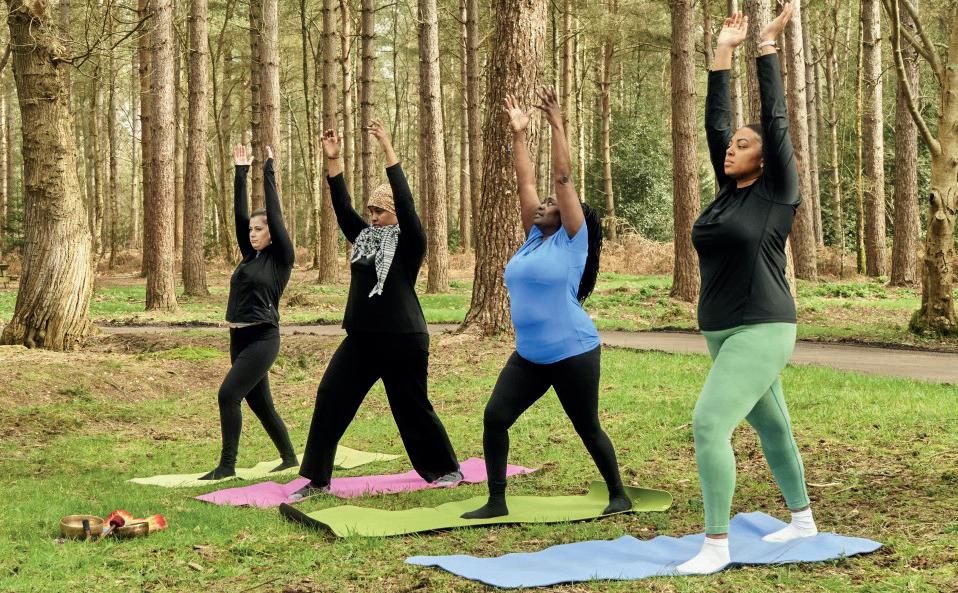
A new campaign looks to inspire more women to enjoy the many benefits of being physically active outdoors.
The Let’s Get Out There initiative was launched by Sport England’s This Girl Can team and includes a range of new resources to help promote outdoor activities.
Created in partnership with Forestry England, Canal & River Trust and Ordnance Survey, the resources have been designed to be used by sports and physical activity providers. They include editable assets, photos and
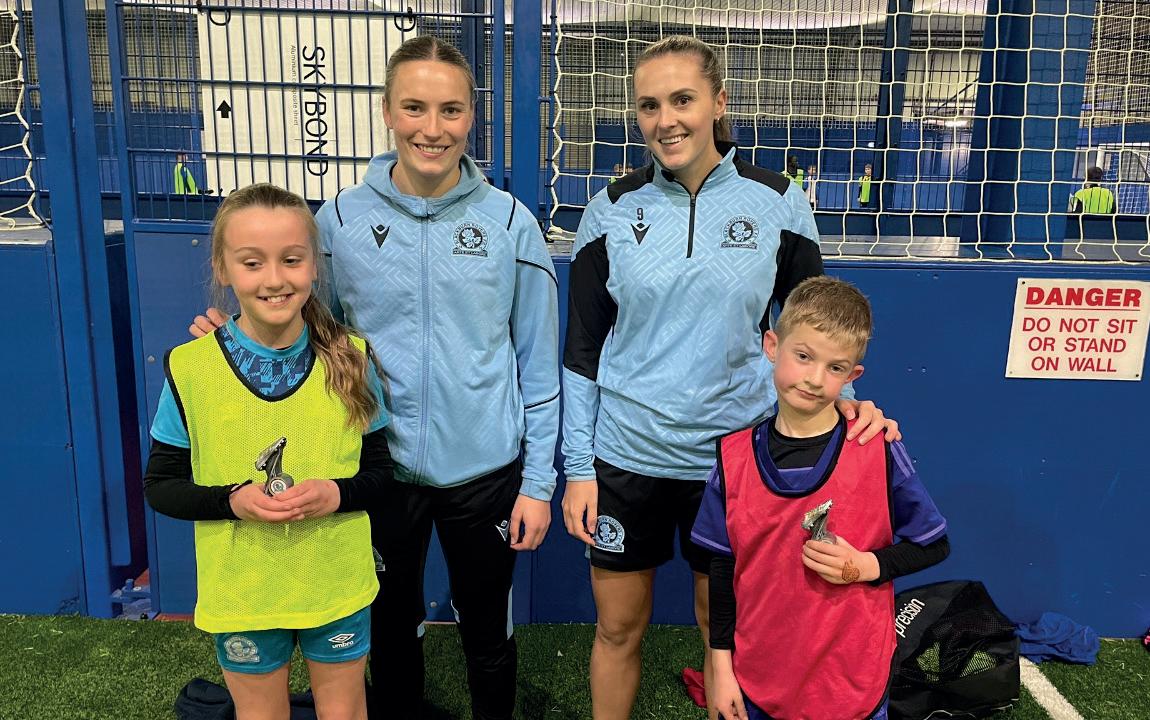
social copy for organisations to use and make them specific to their audience, sport, physical activity or local area. A toolkit will also be available for those who provide and promote experiences for women in natural spaces, featuring guidance on how to create activities and communicate effectively with women from culturally diverse backgrounds.
The new campaign pages also feature information for members of public, highlighting that natural environments and outdoor spaces are for all women, regardless of age, background or fitness level.
Sporting organisations, coaches, officials and volunteers in Northern Ireland are set to benefit from a major new learning resource.
Sport NI is launching a new Digital Learning Hub, designed to offer an accessible platform for learners within the sports sector to enhance and develop their knowledge and skills. Learners can complete courses in their own time and at their own pace, logging in at home or on the go via the app.
“With the launch of our Digital Learning Hub, we are ushering in a new era of education within Sport NI,” said Richard Archibald, Interim CEO, Sport NI.
“This initiative not only enhances accessibility and flexibility but also fosters a culture of continuous learning and improvement within the sporting community.”
Accessible via smart phones, tablets and laptops, the hub allows users to fit learning around their daily commitments.
A redeveloped indoor football centre has opened its doors at Ewood Park, home of the Blackburn Rovers Football Club (BRFC).
BRFC and Blackburn Rovers Community Trust have invested £400,000 in upgrading the venue, which runs a wide range of projects and programmes targeted for people
of all ages. The centre is owned by BRFC and is managed by the trust. The improvement works, which included the installation of new 3G playing surfaces, were funded in part by a £165k grant from the Football Foundation, with Blackburn with Darwen Council providing a further £50,000 towards the works.
Dwellcourt Group has made a significant investment in padel centre operator PadelStars Limited. Under the terms of the agreement, Dwellcourt will take a significant stake in PadelStars and provide strategic advice as well as operational and administrative know-how to fast-track the development of the business.
PadelStars was founded by Andy Knee and Jamie Brooke and works with existing sports clubs and leisure facilities to introduce padel tennis to their sites.
Dwellcourt is the owner of the Silvermere Golf & Leisure complex and Kingswood Golf and Country Club.
Andy Knee said: “We’ve met several times with Dwellcourt over the past year and discussed multiple opportunities. This has resulted in us gaining an understanding of how they have built such an impressive
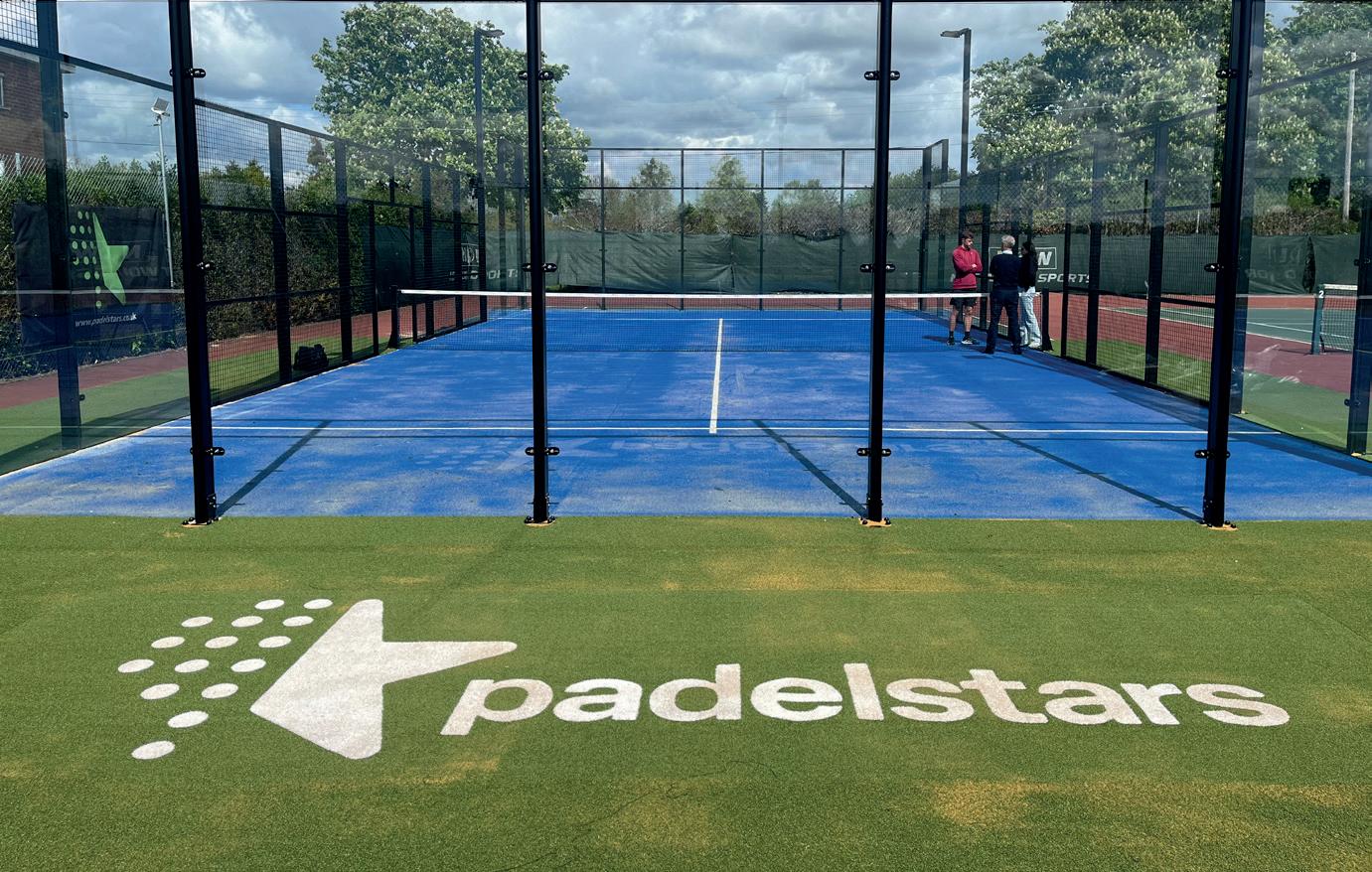
PadelStars recently opened its first padel facility in Reading
business, and we have enjoyed getting to know them as people.
“It’s a great match, we’re very excited about what their investment and expertise will bring to the PadelStars business.”
Jeff Hilliard, Chair of Dwellcourt Group, said: “Having had several
approaches by padel operators hoping to build courts on our sites, PadelStars stood apart for its vision, dynamism and professionalism.
“With a pipeline of strong new sites being secured, we have decided to once again back impressive people with an impressive offer.”
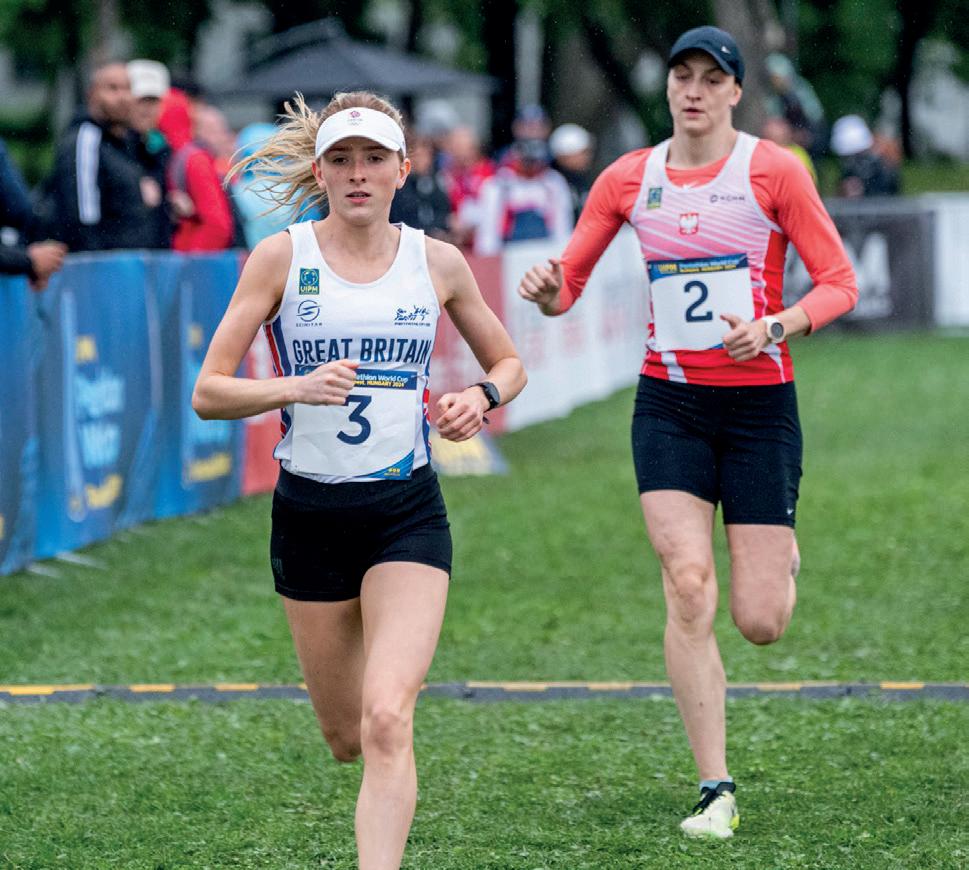
Pentathlon GB, the national governing body for the Olympic sport of Modern Pentathlon, has launched a series of seven hubs across the UK to help increase participation.
The hubs, launched in April, have been designed to “decentralise talent” from the sport’s historic home base of Bath. The hubs will be located at:
• Millfield School in Somerset
• Leweston School in Dorset
• North West Hub near Clitheroe in Lancashire
• The Warriors Pentathlon and Athletic Club in Merseyside
• University of Bath in Somerset
• Kings College in Taunton
• Vine Conference Centre in Dunfermline
A second phase of hubs will open later in 2024.
solutions for growth
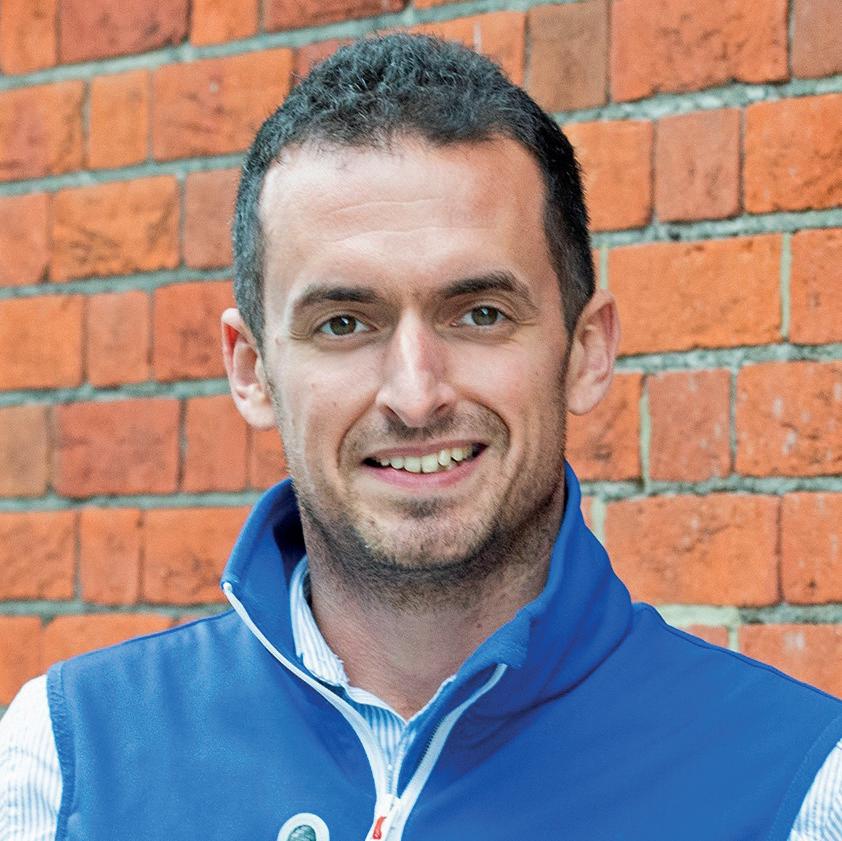
What services does World of Swimming provide?
We provide small classes for swimming lessons for children and adults across the UK and currently we are hosting 2,000 swimmers every week through World of Swimming.
What was your course management like before you introduced CoursePro?
I would highly recommend CoursePro to other swim schools & activity providers
Before CoursePro, we had a very manual process in place, running off mainly spreadsheets which involved lots of administrative work for the team. Now, we have half the resources working on schools ten times the size - which has enabled us to use our valuable skill sets in other areas of the business.

What benefits have you seen in your business since using CoursePro?
The interface is a great way for our teachers, parents and office team to interact and boost communication within the business, and with an added bonus of enabling direct debits, it has transformed the way we do business!
How has CoursePro enhanced your team’s performance and time?
Through ‘contact triggers’- new updates such as automatic waiting lists are a brilliant way to ensure the smooth operation of our business. It allows the team to focus on offering higher levels of support to our customers and provide a greater experience overall.
If you have explored other course management systems, what stood out about CoursePro that made it your provider of choice?
We’ve looked at a lot of course management systems over the years, but we know that CoursePro continues to improve its systems and offerings with regular updates - and this progression is really important to us as it demonstrates the qualities of true partnership. In addition, the CoursePro support team is super helpful and always on hand when the team needs help.
Why would you recommend other businesses to consider using CoursePro?
I would highly recommend Coursepro to other swim schools and activity providers because it allows your business to grow, become more efficient and provide customers with a higher level of service.
l www.fitronics.com/coursepro/
The Chartered Institute for the Management of Sport and Physical Activity (CIMSPA) has published its inaugural local skills plan for sport and physical activity.
Covering Leicester, Leicestershire and Rutland, the plan is the first of its kind and identifies key skills improvements, workforce challenges and priorities for local sport and physical activity, as well as recommendations and actions to shape future work.
Developed by the Leicester, Leicestershire and Rutland Local Skills Accountability Board, the sport and physical activity local skills plan aims to support the wider Local Skills Improvement Plan for that area.
The plan has three key recommendations: to recruit, train, support and retain a representative and inclusive workforce, to support education establishments working with local employers, and
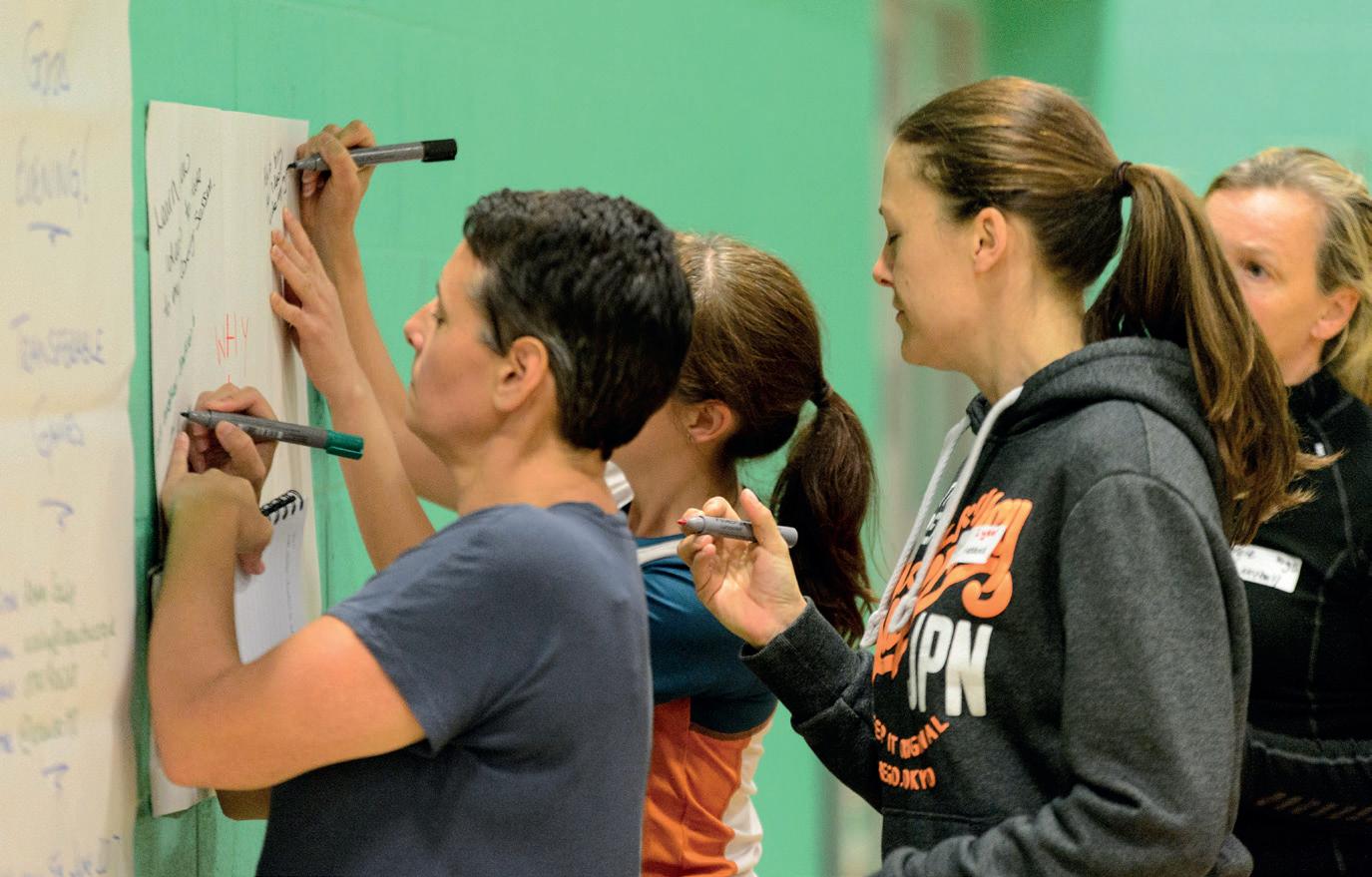
The plan identifies key skills improvements, workforce challenges
to adopt a data-led approach to sector workforce development.
The publication of the skills plan follows CIMSPA’s new strategy Releasing The Power Of Our Profession, launched earlier this year. The strategy outlines plans for interventions such as the Local
Skills Plans to deliver the individual and collective recognition that the sport and physical activity sector workforce “needs and deserves”.
Tara Dillon, CIMSPA CEO said: “This is the first local skills plan for sport and physical activity of many across the country.”

A total of 80 sports clubs across Wales have been awarded Energy Saving Grants during 2023-24 to help make their facilities more energy efficient.
The majority of the clubs who have received grants – which add up to nearly £1.4m in total – will use their funding to install solar panels. Other projects include the upgrading of lighting to LEDs, insulation improvements, new heating systems and sustainable water sourcing.
The energy-saving measures funded by the grants will significantly reduce clubs’ energy bills, meaning that they are much more financially sustainable for the future. As well as creating more environmentally friendly facilities, it is hoped that the lowered running costs will help clubs provide affordable activities. Of the 80 clubs a total of 47 plan to install solar panels.
Olympic and Paralympic athletes returning from this summer’s Paris 2024 Games will be supported to get out into their communities and make a difference to the causes they care about.
The ChangeMaker initiative will help athletes maximise their impact upon their return from the Paris 2024 Olympic and Paralympic Games and give back to the communities that have supported them.
Athletes can choose the social impact project they wish to support – which can be anything from grassroots sports projects to mental health initiatives and environmental programmes – and will be helped to make a difference to this cause back home in the UK in the two weeks immediately after the Olympic and Paralympic Games.
The initiative will matchmake athletes to causes that reflect their passions and provide them with
The
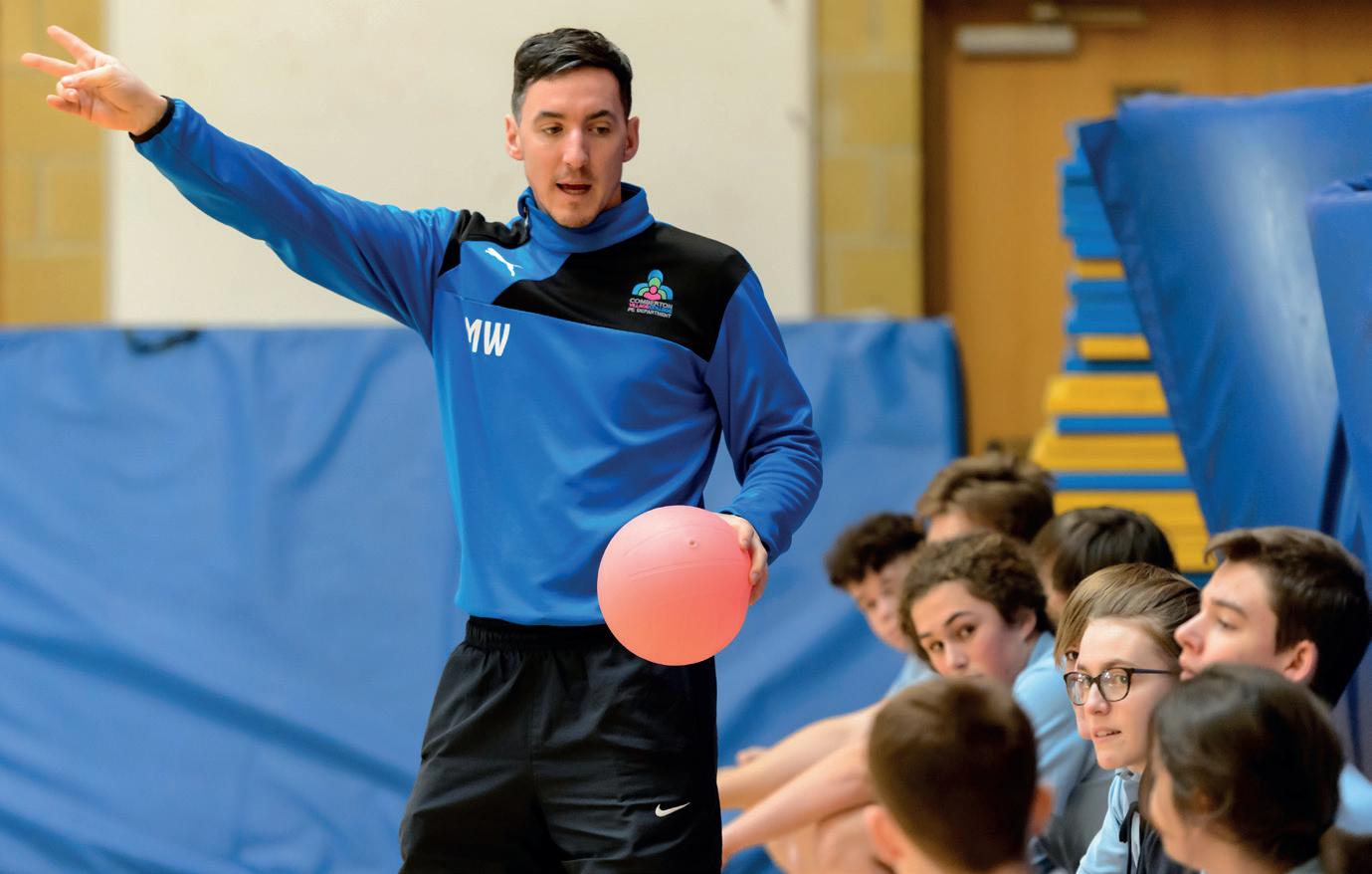
support to ensure that they can use their voice to make a difference.
The campaign is a partnership between The National Lottery’s operator, Allwyn, Team GB, ParalympicsGB and UK Sport.
It is being made possible by Allwyn, which has pledged to set
up an annual £1m Social Value Fund. This will see the new operator create additional value to existing lottery funding and collaborate with a wide range of partners to amplify the overall impact that The National Lottery has on high streets and communities.
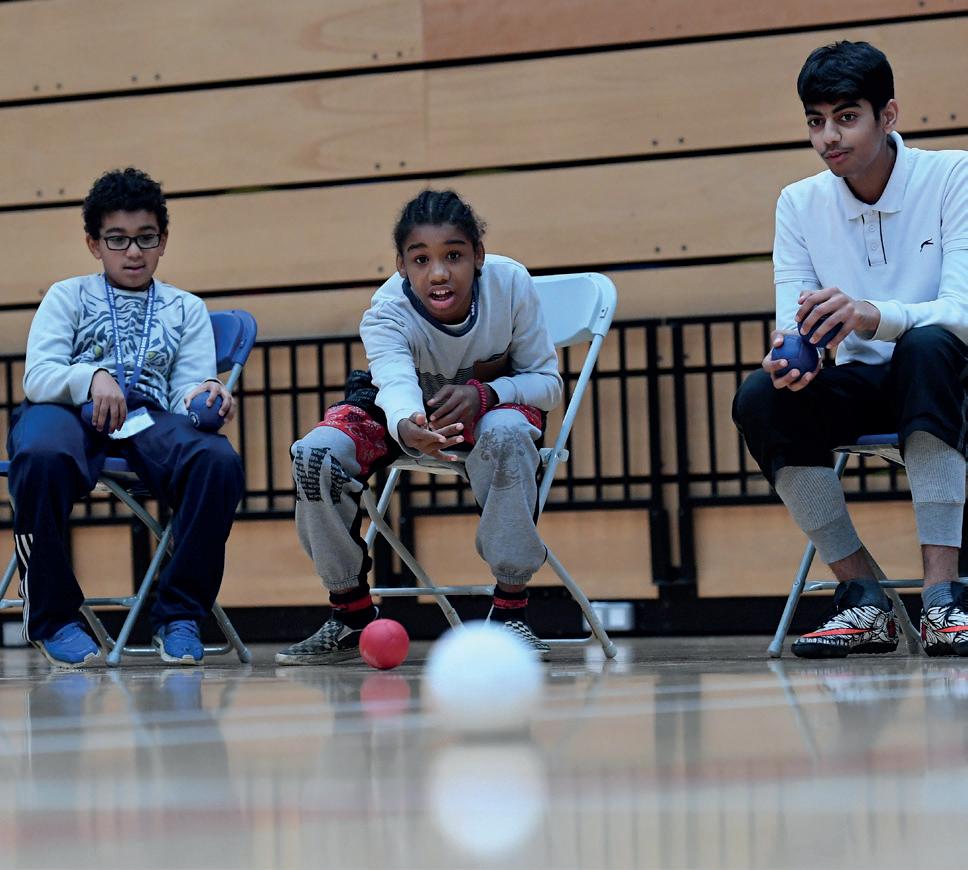
Activity Alliance has updated two of its engagement fact sheets, focussing on the importance of research and insight and how best to use it to help engage with disabled people and to get them physically active.
“Research and insight help us to understand which sport and physical activities disabled people currently enjoy, which they do not and what they would like to take part in if given the opportunity,” a spokesperson for the Activity Alliance said.
“Also, the amount of information available to help organisations and clubs reach disabled people can be overwhelming, so it is important to have a clear idea of what they want to find out.”
The updated resources are part of a series of fact sheets designed to help organisations embed inclusive practice and engage more disabled people.
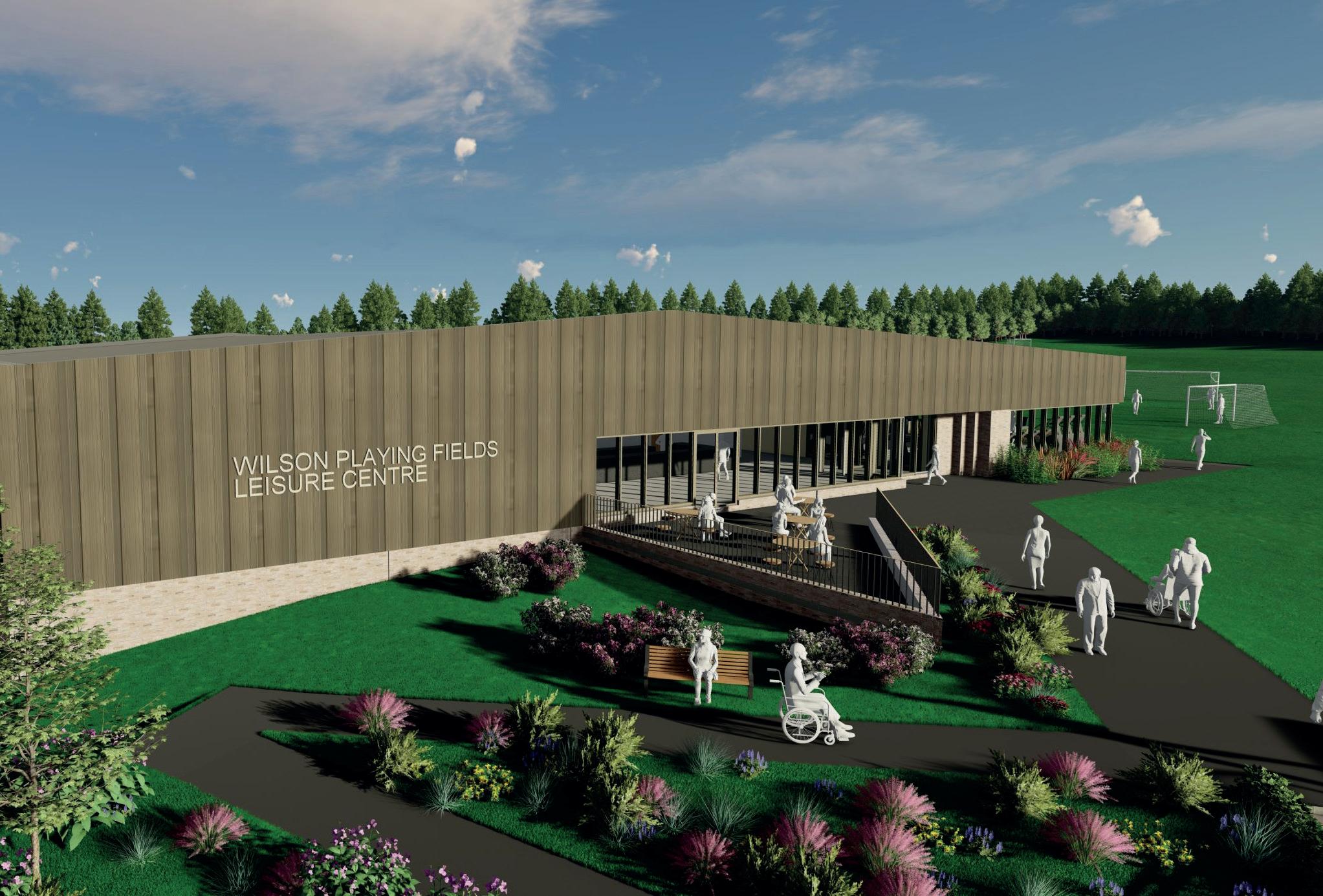
Construction work is now underway on a £12 million leisure and sports complex on Wilson Playing Fields in Clayton-le-Moors, Lancashire.
Funded by Hyndburn Borough Council as part of the borough’s leisure transformation plans, the new Wilson Sports Village will include a four-lane, 25-metre swimming pool, a fitness suite, a sauna and steam room, group exercise studio, café and a large changing village.
Dedicated changing facilities will also be built for the various, existing outdoor sports facilities.
Wilson’s Sports Village will also optimise energy efficiencies with several environmentally-friendly solutions – supporting Hyndburn Borough Council’s carbon reduction strategy and ambitions to achieve net zero. These include air source heat pumps, solar panels and the utilisation of low and zero carbon technologies. The facility was designed by a team led by Pozzoni Architecture and is being developed through the UK Leisure Framework by Alliance Leisure, in consultation with Hyndburn Borough Council, Hyndburn Leisure and Sport England.
Community Leisure UK (CLUK) has teamed up with the Workers Education Association (WEA) to deliver a series of carbon literacy training for those working in public leisure.
CLUK has designed a new Carbon Literacy course, building on its expertise in supporting charities and social enterprises working across public leisure and culture.
Delivered in partnership with the WEA, the training is open to anyone working in the charitable public leisure and culture sector. It is also fully accredited by the Carbon Literacy Project. CLUK will deliver sessions directly to its members, while WEA will provide sector-wide training sessions.
Jennifer Huygen, Head of Policy and Strategic Partnership at Community Leisure UK said: “Climate change is an urgent priority for CLUK and we recognise our responsibility as a membership association to support our members in taking impactful action.”

UK Athletics (UKA), the national governing body for athletics, has joined forces with London Marathon Events and the Great Run Company (GRC) to deliver major sports events in the UK.
The trio have partnered to launch a new joint venture, Athletic Ventures, which is set to “transform
the future and growth of athletics in the UK”. Athletic Ventures will deliver the 2026 European Athletics Championships in Birmingham and the annual edition of the Diamond League in the UK. It will also lead the potential bidding process for the World Athletics Championships to return to the UK in 2029.
The Rugby Football Union (RFU) has launched its new Impact ’25 campaign, a “transformational legacy programme” that looks to create and improve opportunities for women and girls to get involved in rugby.
Impact ’25, which has already seen £12.13m of Government funding committed to the sport in England and the home unions up to the end of March 2025, will be delivered by the RFU in partnership with UK Government, Sport England and UK Sport. The programme will provide substantial improvements in facilities and greater opportunities for females at all levels of the game in England, with a range of support being offered to clubs across four key pillars: Facility Development, Coaches and Match Officials, Playing and Volunteering, and Community and Fan Engagement.
RFU Chief Executive, Bill Sweeney, said: “The opportunity to grow
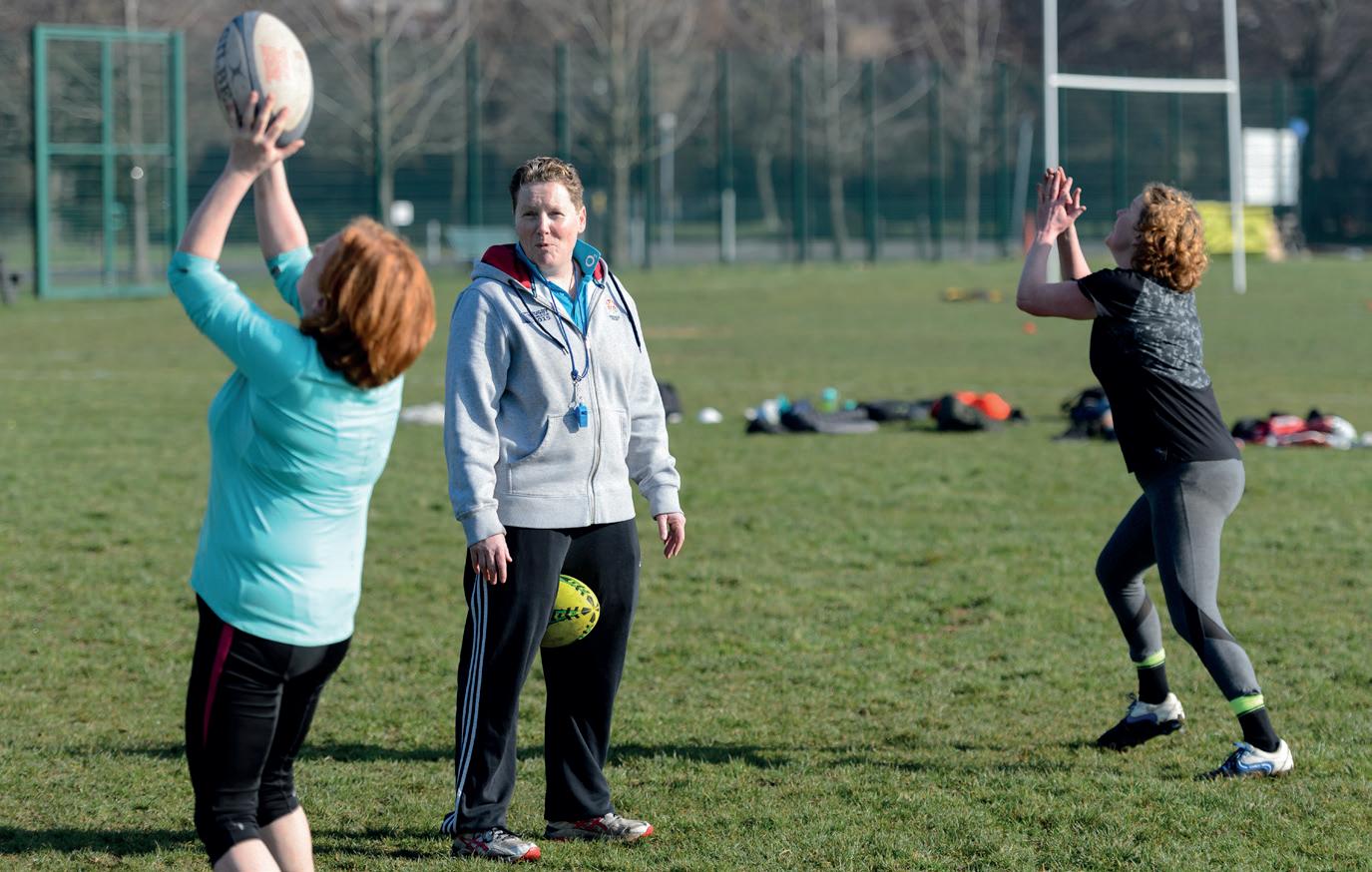
The programme will provide substantial improvements in facilities
the women’s and girls’ game was a primary driver behind our bid to host Women’s Rugby World Cup 2025, and we are very grateful to Government for committing funding to this transformational programme as part of the tournament. Working together with Government, UK
Sport, Sport England and World Rugby we will create a legacy for women’s rugby in England and the home nations, both in terms of attracting more fans and people to play, coach, officiate and volunteer.”
The RFU has an ambition of having 100,000 female players by 2027.
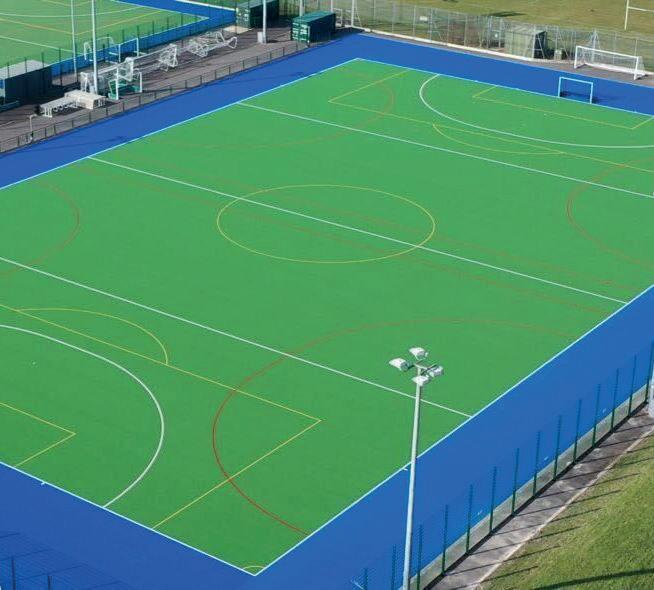
Work has now been completed on the UK’s first “dry” hockey pitch in Basingstoke.
Construction work started in January to replace the Basingstoke and Deane Borough Councilowned old artificial pitch at Down Grange Sports Complex in Kempshott, Basingstoke.
Having reached the end of its life, the old pitch next to the athletics track has been replaced with a new Poligras Paris GT pitch –the world’s first carbon zero hockey pitch. Designed by SAPCA member, Polytan, the Poligras Paris GT zero Dry Hockey Turf embraces sustainable hockey. The pitch uses TurfGlide Technology, which means ball roll and ball speed is more controlled. The pitch is also perfect for more fast paced hockey when it’s slightly irrigated.
The golden rule for synthetic surface maintenance is “one hour of brushing for every 10 hours of play”. But are you aware of the impact that changes to infill materials will have on the frequency and type of maintenance required?
The understanding of the health and environmental issues associated with 3G pitches, in particular micro-plastics and polymeric infill, is driving the industry towards a different specification of surface. While the vast majority of carpets we see are still currently using conventional SBR rubber, the UK is in a transitional phase where new installations will be specified with a natural infill alternative by 2032. In addition to lower pile height, a combination of sand and natural infill such as cork and pine is expected to become the industry standard.
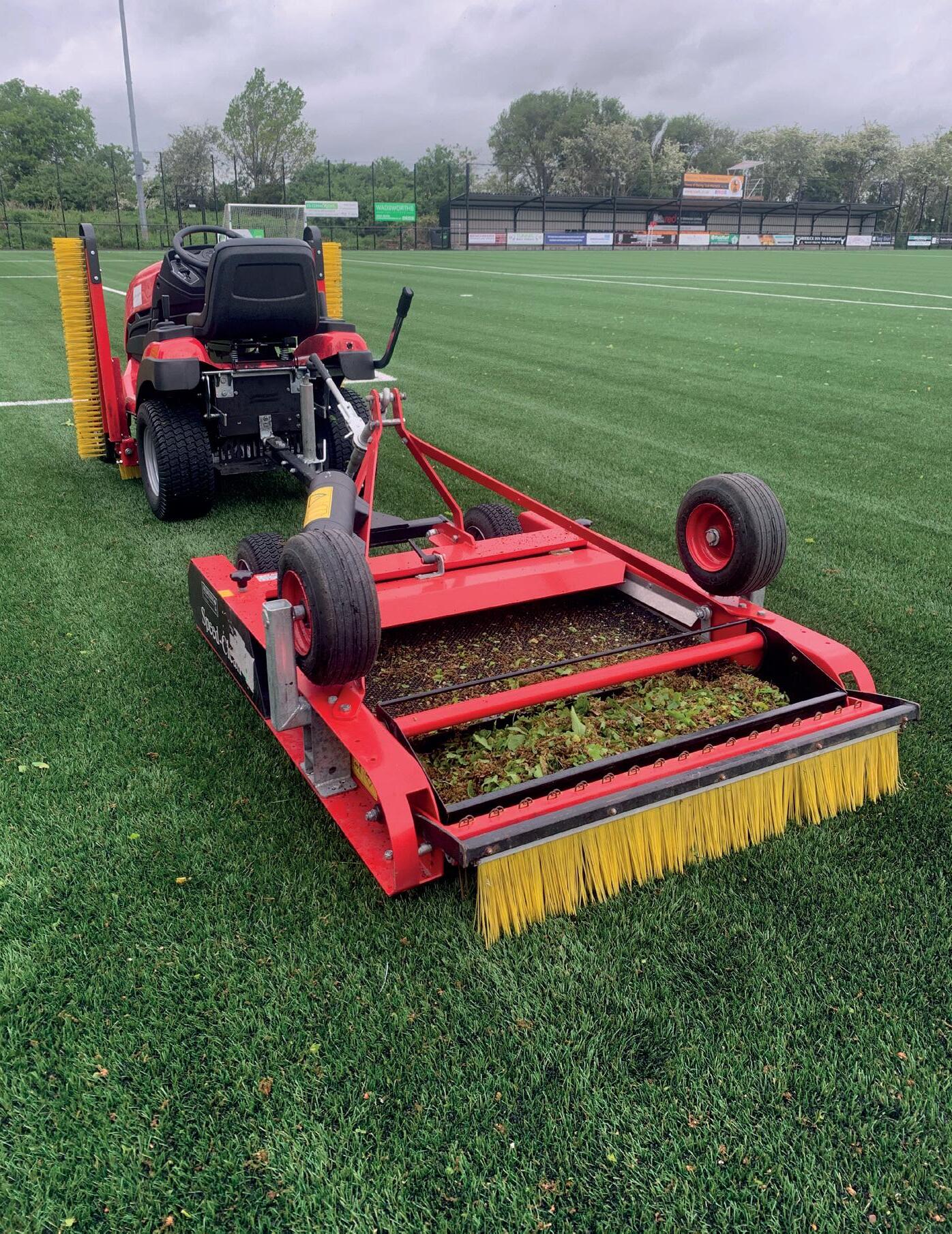
run the risk of sub-par performance and health hazards?
Due to their more mobile nature, and increased susceptibility to bacterial and airborne contamination, fields with this natural infill will need more attention than conventional SBR pitches. In practical terms this means that cleaning systems, which would once be considered a more specialist tool, will become a weekly usage item. For facilities relying on external maintenance contractors, this will inevitably present a dilemma. Significantly increase the frequency of site visits – rocketing costs and seeing the surface out of action more frequently while the work is conducted – or
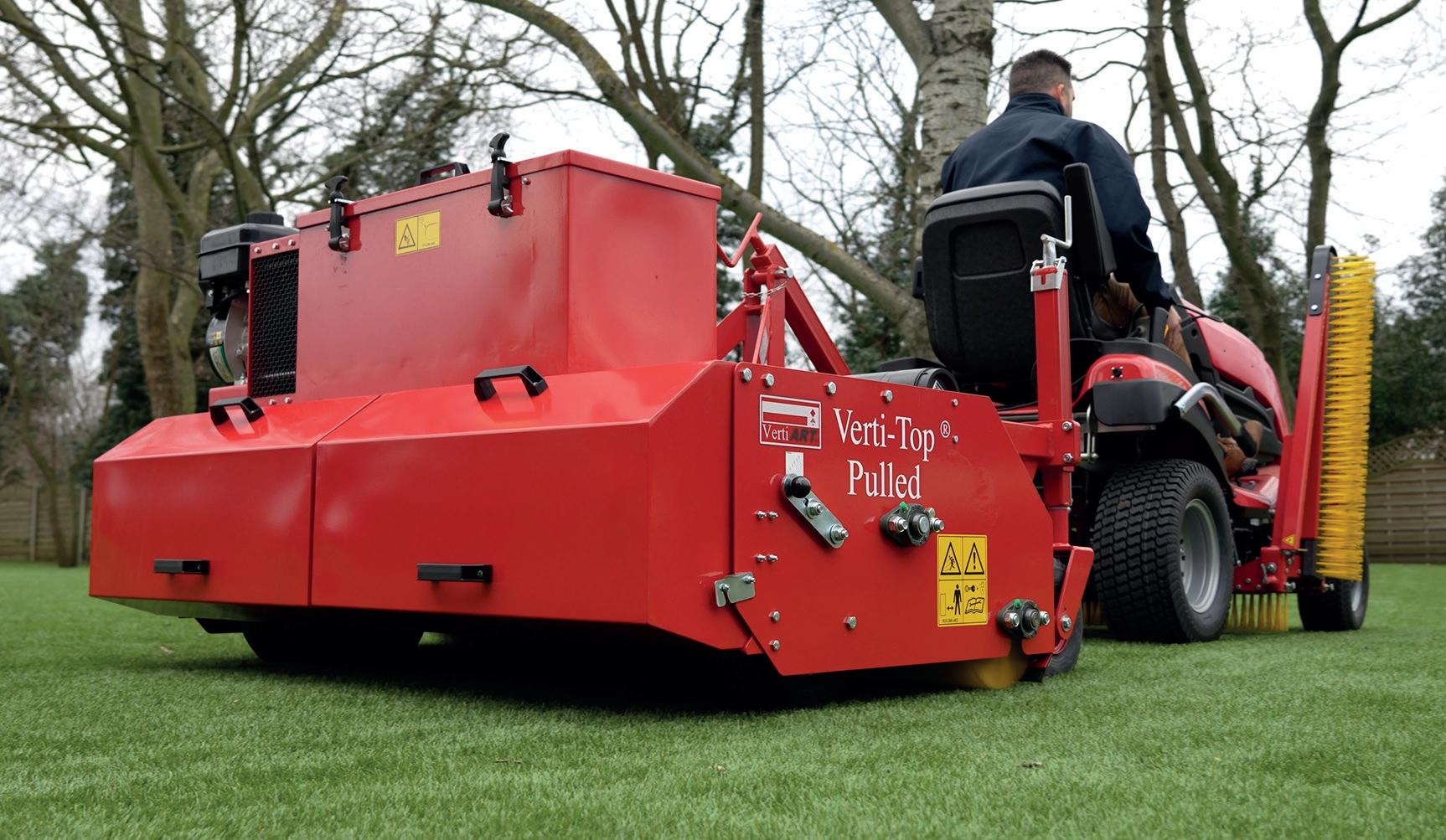
The solution may be to, instead, invest in extra maintenance equipment to satisfy the need for more frequent maintenance which should alleviate many of the issues listed above from occurring in the first place. Equipment to suit all specifications of surface are available from Redexim, including the Speed-Clean land-driven sweeper. The paddle brush system of the Speed-Clean effectively lifts infill, where detritus is separated via an oscillating sieve and collected in bins on the rear of the unit. The cleaned infill is then returned to the surface, restoring a carpets permeability and playability. In addition, a magnetic bar can be affixed to the rear of the unit for the removal of debris such as jewellery or paper clips.
The Verti-Top™ is another complete cleaning system, recently crowned ‘Product of the Year’ at the 2024 SAPCA awards. Available with threepoint linkage or in a dedicated tow-behind format that utilises a 6.5hp engine, the versatility of the Verti-Top™ makes it ideal for the fast and effective removal of contaminants and smaller particulates.
With the changing regulations around infills and current estimates for a 3G pitch in the region of £300k, now is a good time to consider the necessary steps to protect both people and your investment for the future.
Schools in England will receive new guidance this summer on how to deliver two hours of PE a week and offer equal access to sport and PE.
The guidance, published by the government, has been designed to help “inspire the next generation of British athletes” by supporting schools to boost highquality PE and school sport.
Drawing on case studies from across the country, the advice will inspire schools on how they can remove barriers to participation in PE by taking the specific needs of pupils into account, embedding plans into the school’s strategy and building relationships with local and national sport bodies.
The new guidance aims to help schools to meet both the ambitions of the national curriculum and the Chief Medical Officers’ physical activity guidelines, which recommends that children
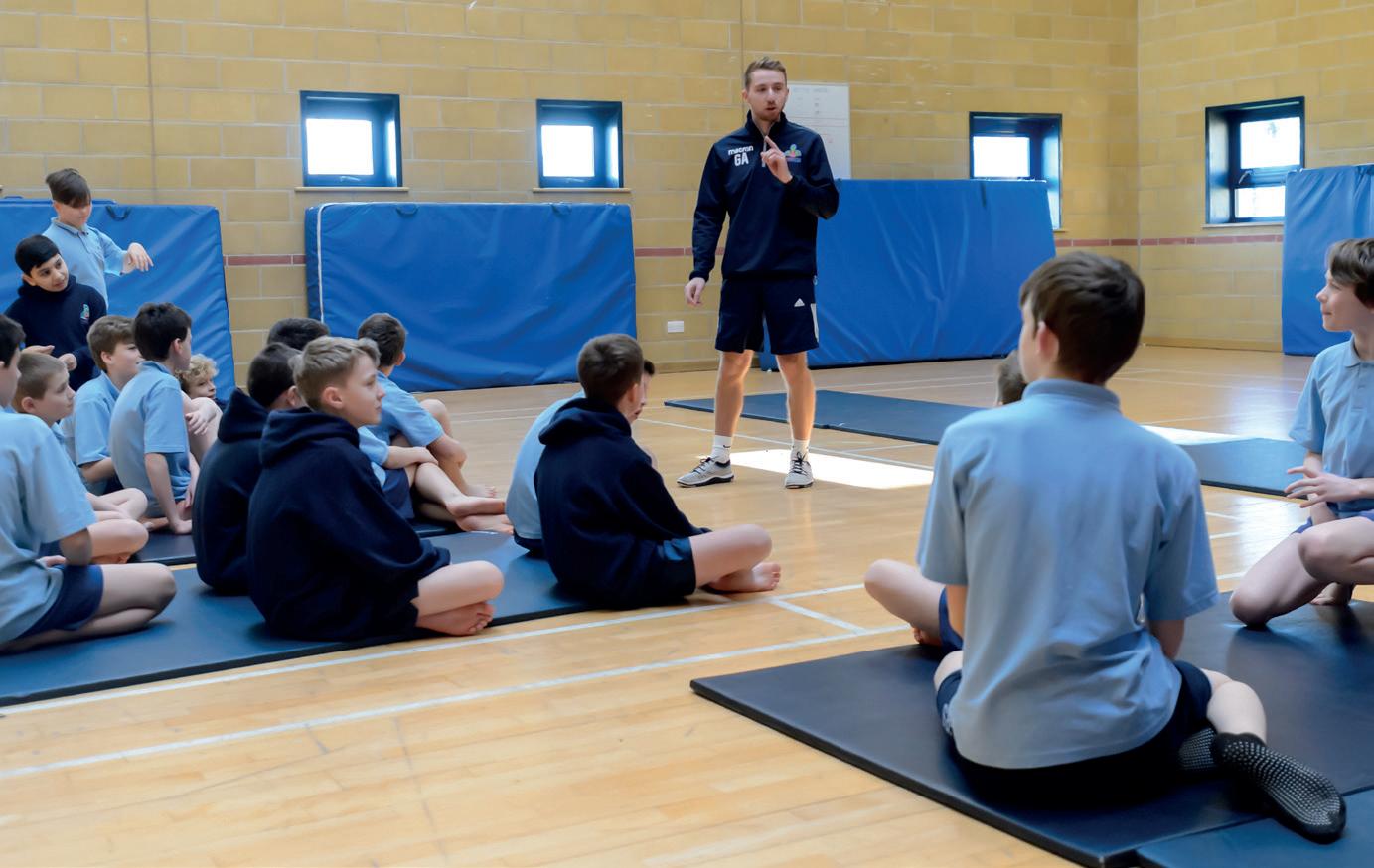
The
new guidance will help schools meet the CMO’s physical activity guidelines
should take part in moderate to vigorous physical activity for an average of 60 minutes a day.
Examples cited in the guidance include Shoreham Academy, where PE staff worked closely with their Inclusion and Learning Support team to make sure that pupils with special
education needs and disabilities (SEND) were able to take part in PE.
By purchasing new equipment for accessible activities like Boccia and Goalball, pupils with disabilities such as Muscular Dystrophy and Downs Syndrome have been able to participate fully in school sports.
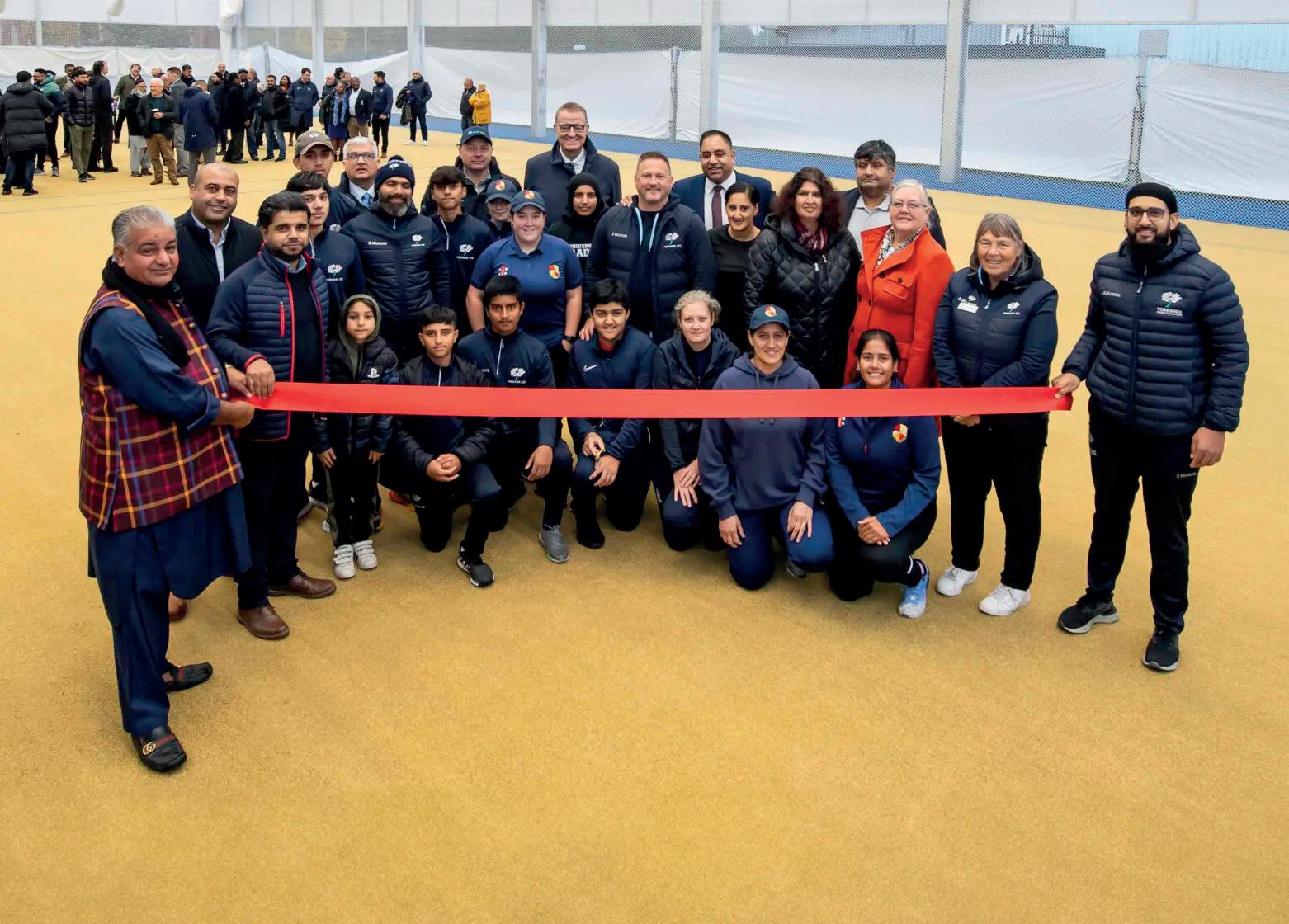
Major UK sports bodies have invested a record £173.4 million worth of broadcast revenues into grassroots and the growth of sports in the past year. The funding forms part of the Voluntary Code of Conduct on the Broadcasting of Major Sporting Events, which is administered by the Sport and Recreation Alliance.
It requires the UK’s major sporting bodies to put a minimum 30% of net broadcasting revenues back into their respective sports and to make their events available to free-to-air broadcasters so they can be viewed by as many people as possible.
Investments made through the code are focused on improving facilities and increasing participation.
Examples of funding include £1.7m by the ECB enabling the building of a covered outdoor cricket facility at Bradford Park Avenue.
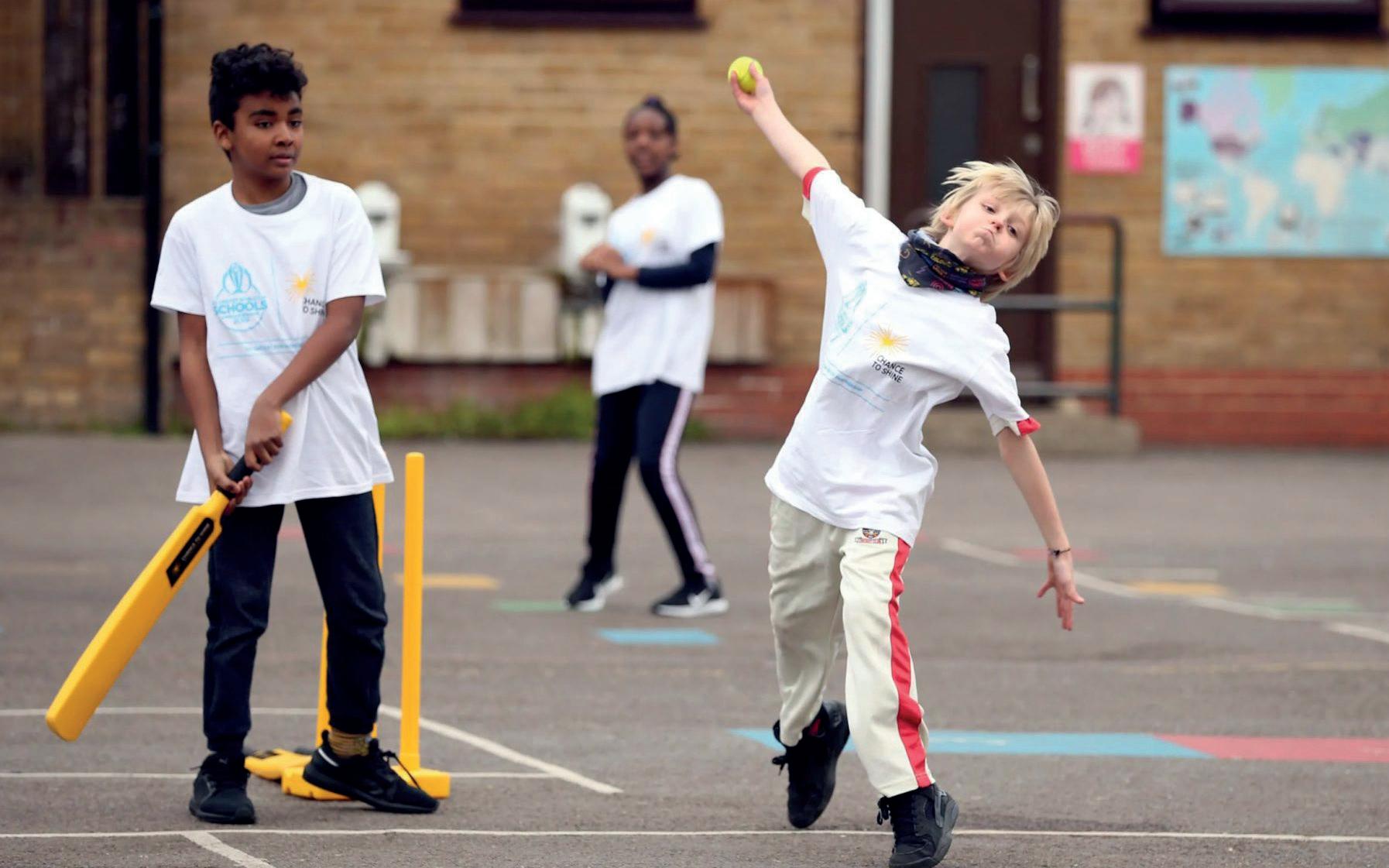
The fund will support increasing participation in diverse communities
Prime Minister, Rishi Sunak, has announced a £35 million investment in grassroots cricket facilities and widening access to the sport within state schools, enabling over 900,000 young people to play cricket over the next five years.
The investment includes a major capital programme that will see 16 indoor cricket domes built across England.
The domes are covered and wind-protected and will allow for participation in cricket throughout the year – connecting school, community and talent

programmes. Each dome will be built within diverse communities where figures have indicated low levels of physical activity.
It follows the first cricket dome opened in Bradford in November last year. The other domes will be built in cities acting as hosts to the high-profile tournaments set to be held in England over the next six years – the 2026 ICC Women’s T20 World Cup and the 2030 ICC Men’s T20 World Cup.
The funding package will also enable an extension to the ECB and Chance to Shine’s in-school cricket partnership.
Haden Hill Leisure Centre in Birmingham is undergoing an extensive upgrade. The leisure centre, in Cradley Heath, will receive a £24 million makeover which includes the demolition and rebuild of the swimming facilities and an extensive upgrade to the rest of the building to bring the facilities up to modern standards. First opened in 1976, the centre has served the community for nearly half a century. A partial ceiling collapse last year (2023) in the pool area has meant the swimming facilities have been closed for 12 months. The centre closed its doors in March 2024 and work on the facility is due to be completed by Autumn 2026. Plans include a community pool, learner pool, sauna and steam rooms, gym, two dance studios, an indoor cycling studio and sports hall. The works are being funded by a £20 million grant from the central government’s Levelling Up Fund, a £2m investment from Sandwell Council and funding from other partners.
Sport Ireland has published a guidance document to assist the Irish sport sector with decisionmaking and policy development for the inclusion of transgender and non-binary people in sport.
The document provides recommended steps and considerations when putting a
policy in place for the participation of transgender and non-binary people in a particular sport. It also highlights practical considerations for the implementation and review of these policies. The guidance is underpinned by a consultation process which took place over six months involving 4,000 people.
The Royal Life Saving Society UK’s (RLSS UK) National Pool Lifeguard Qualification (NPLQ) has been approved for UCAS Tariff points from May 2024, to enhance the appeal of lifeguarding among students even further and alleviate lifeguard shortages across the UK and Ireland.
NPLQ now carries eight UCAS Tariff points after being elevated to a Level 3 qualification and being officially registered with UCAS (Universities and Colleges Admissions Service) – which will help students secure a place at university or further studies.
Lifeguard shortages remain a critical issue in the health and fitness industry. Yet, according to CIMSPA’s 2023 Workforce Insights Report by CIMSPA, lifeguarding ranks among the most sought-after skills by employers, with 40% of job postings for sports and leisure assistants in 2022 requiring lifeguarding expertise.
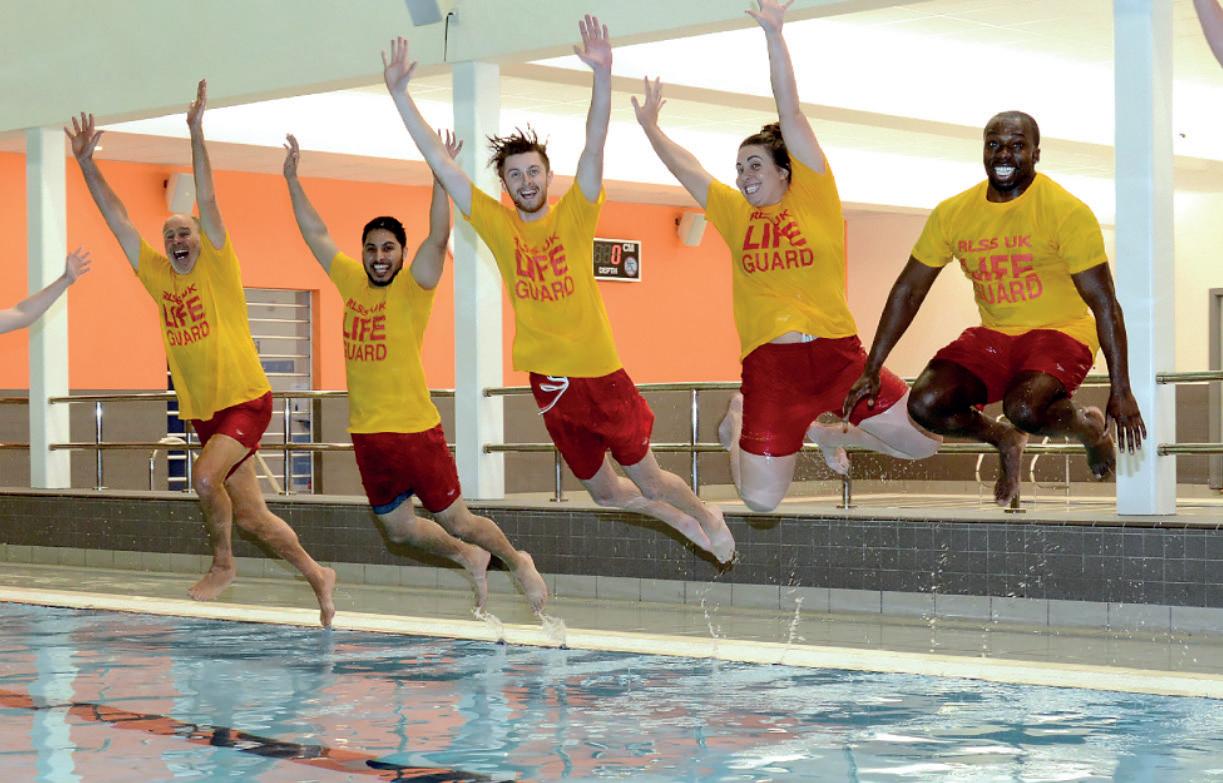
“Students are a viable solution for operators looking to address lifeguard shortages and their vacancies,” said Jo Talbot, commercial director from RLSS UK. Statistics from RLSS UK’s 2023 Lifeguard Survey demonstrate the popularity of lifeguarding among
students, with two-thirds of the 2,456 current lifeguards surveyed enrolled in full or part-time education. An overwhelming 96% of lifeguards intending to go to college or university in the next two years are interested in continuing their lifeguarding duties alongside studies.
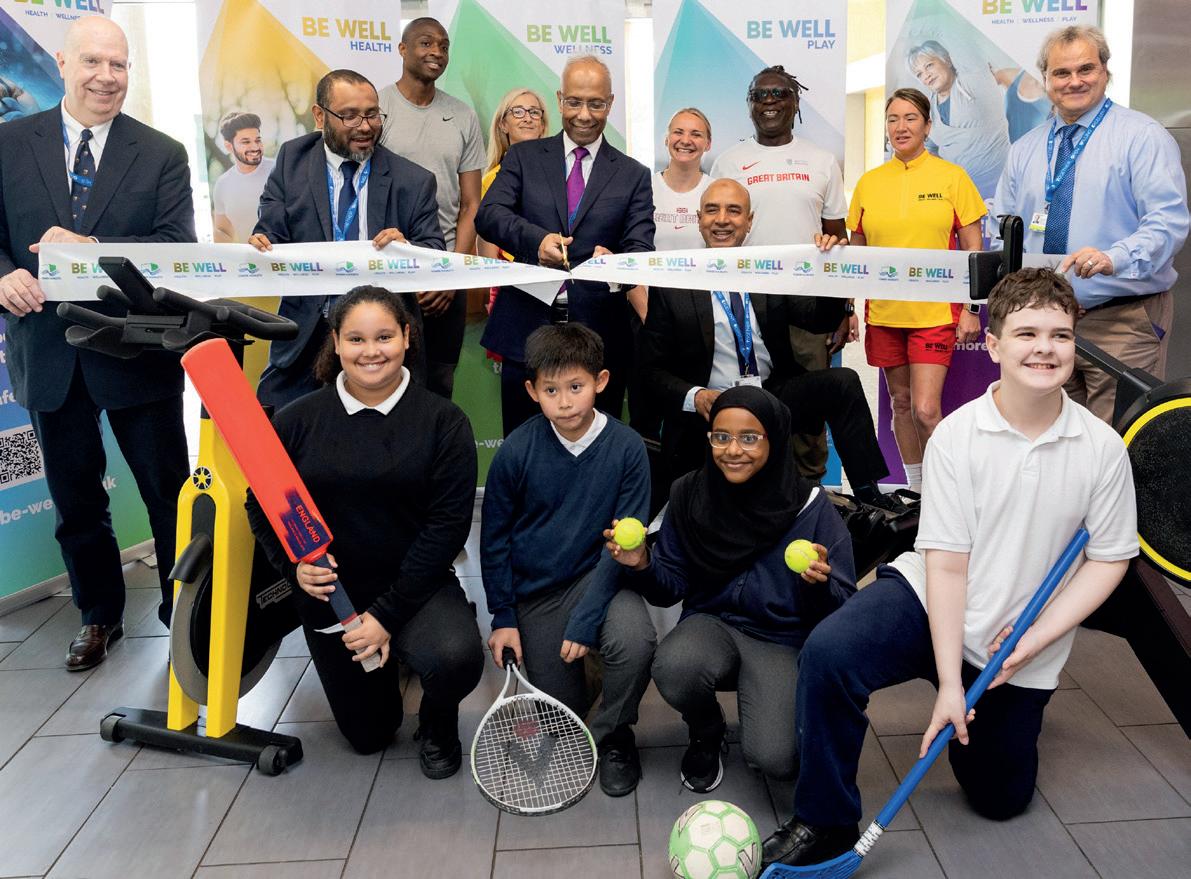
The new service, called Be Well, will take a “holistic view of activities
The management of seven leisure centres in Tower Hamlets has been brought in-house to the council following the expiration of a management contract with facility operator GLL.
The new service, called Be Well, will take a “holistic view of health and wellbeing”, focusing on increasing participation and access for residents with a particular emphasis on women and girls, older adults and people at risk of, or living with, long-term conditions.
Lutfur Rahman, Mayor of Tower Hamlets, said: “The new service prioritises creating opportunities and increasing access to leisure services for those groups who have difficulty doing so –with a focus on women and girls. Investing in our leisure service is one of many steps we are taking to tackle health inequalities.”





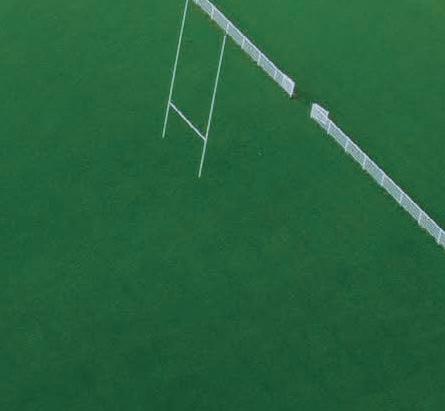








info@obriencontractors.co.uk www.obriencontractors.co.uk/sport

 by Schmitz Foam Products
by Schmitz Foam Products

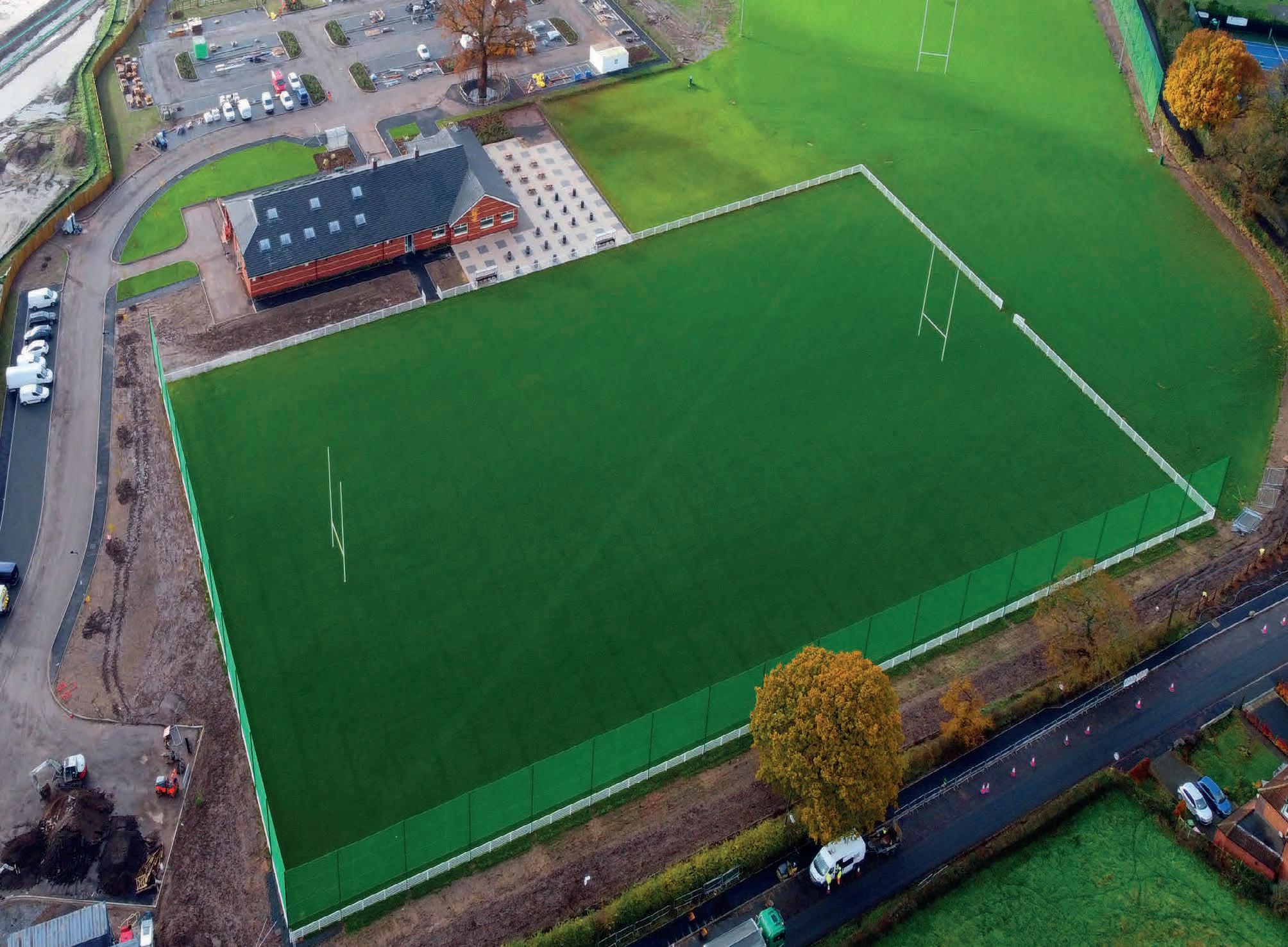
Schmitz Foam Products B.V. is the global supplier of ProPlay ®, the perfect shock pad with drainage qualities for high quality artificial grass systems in sports and playgrounds.
• Meets quality standards of International Sports federations
• Excellent vertical and horizontal drainage capacity
• 25 years warranty for the owner of the field
• Circularity is key:
– Produced from post-industrial recycled foam
– Can be reused or recycled at the end of life of the field
Request your ProPlay® sample at: www.schmitzfoam.com/contact



We will shortly start work on putting together a SAPCA Code of Practice for Sports Lighting. The work is being driven by a working group, chaired by Chris Barry, Head of Technical at the Football Foundation.
Our codes of practice are at the heart of what we as an association do and are key to ensuring that we offer value both to our members and the wider industry. We provide our codes freely on our website to ensure that everyone has easy access to the standards that they should be able to expect from their sports and play projects.
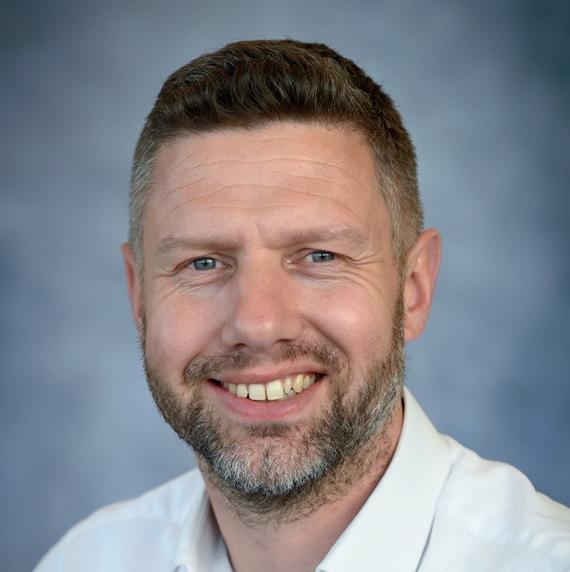
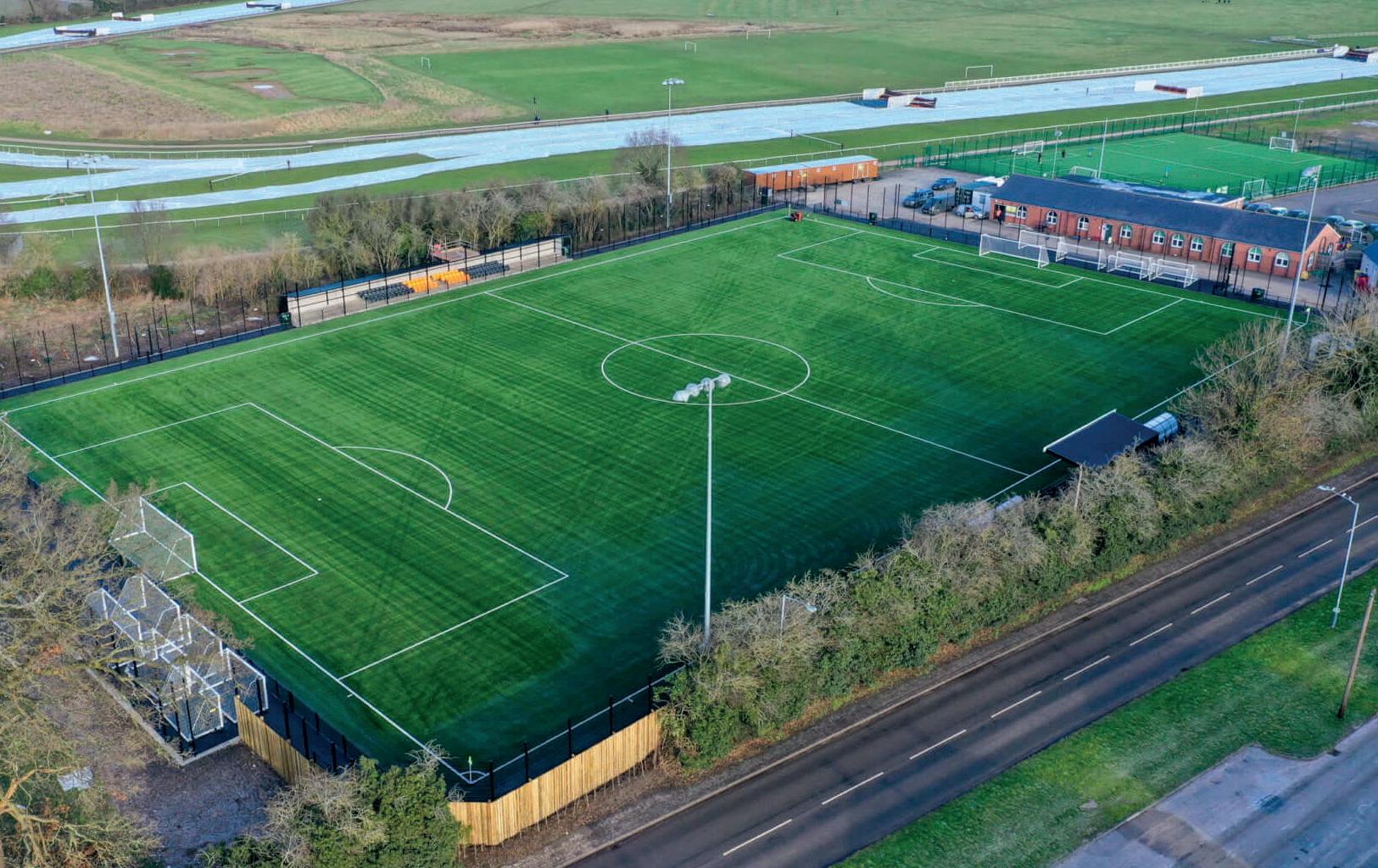
The codes are built on the back of the time given, expertise lent and willingness of our members to drive forward the standards for sports and play. This ensures the codes remain rooted in the industry and ensure that they are widely applicable.
The desire of SAPCA members to hold themselves accountable to standards – and the scrutiny that comes with the approach – is a perfect example of why the SAPCA membership badge is valued so highly. The goodwill of companies, in sitting down with competitors to establish the codes, speaks to the determination of our members to do the right thing for an industry of which they are rightly proud.
So here we are, asking for our members to volunteer their time, so that clubs, organisations and facility operators have free access to the best information. I personally want to say thank you for the time, effort and thought that goes into these.
The desire of SAPCA members to hold themselves accountable to standards is a perfect example of why the SAPCA membership badge is valued so highly
The codes are there for the entire industry. They are designed to ensure that the facilities and venues that are built to get the nation active are fit for purpose. So, if you are looking at a facility project, please use the SAPCA Codes of Practice –and feel free to get in touch for help and support. But most importantly, always look for the SAPCA badge when talking to companies. By working with those who are SAPCA members, you can rest assured that your project is in good hands.
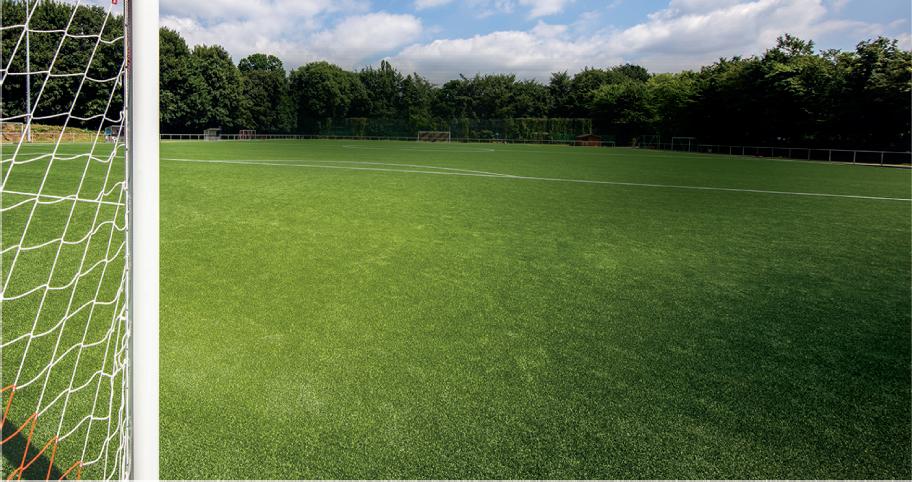







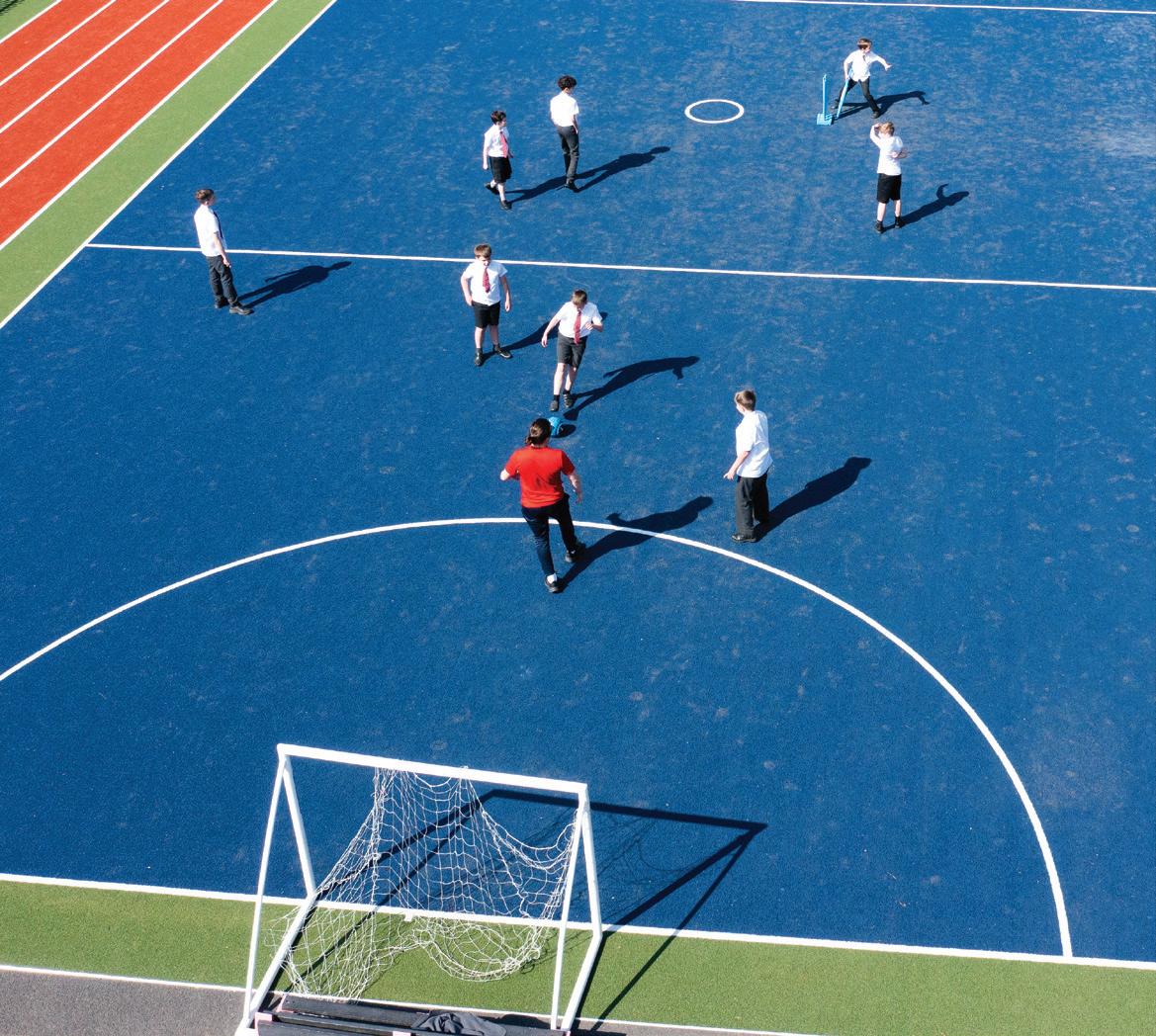


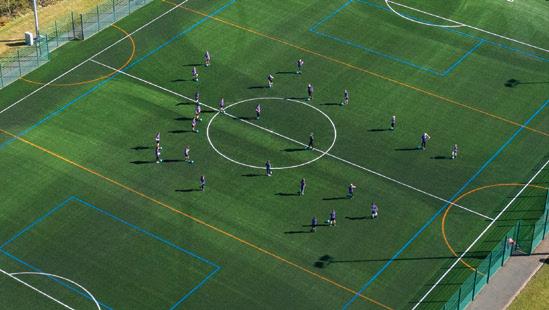

The north London derby in the Women’s Super League (WSL), played in March, was not just a display of toptier women’s football, but also a celebration of women in the grounds management industry. For the first time in football, an all-female grounds team, supported by the Grounds Management Association (GMA), prepared the Emirates Stadium pitch for the Arsenal vs Tottenham game, marking a significant milestone for the grounds management sector.


The initiative, a collaboration between the WSL, Women in Football, Arsenal FC, and the GMA, saw 13 pioneering female grounds professionals from across the industry showcase women at the forefront of the sector. This was a deliberate effort to encourage more women to consider careers in grounds management, an industry where women represent only 2% of the workforce. The GMA’s involvement underscores our commitment to diversifying the sector and promoting inclusivity.
The match itself was a testament to the quality of the WSL and the growing popularity of women’s football. A sold-out crowd witnessed a 1-0 victory for Arsenal, with the all-female grounds team’s efforts contributing to a seamless game experience.
It was incredible to see a team of 13 experienced and talented women prepare the iconic pitch in front of hundreds of thousands of spectators and viewers across the UK. The lack of visibility of women in this field remains a significant barrier, but we’re confident that
It was incredible to see a team of 13 experienced and talented women prepare the iconic pitch
moments like these will be pivotal in convincing more young people, especially females, to explore this promising career path.
The team of women who took part are incredible ambassadors for the industry, and I have no doubt that their work will have inspired many and shed light on the grounds management profession.
This initiative demonstrates progress in terms of improving inclusivity - shining a light on the possibilities that exist for women in the grounds management industry and more broadly across sport. With the continued support of organisations like the GMA, WSL, and Women in Football, the future of women in the grounds management industry looks brighter than ever.
The GMA is looking forward to delivering similar activity in the near future.

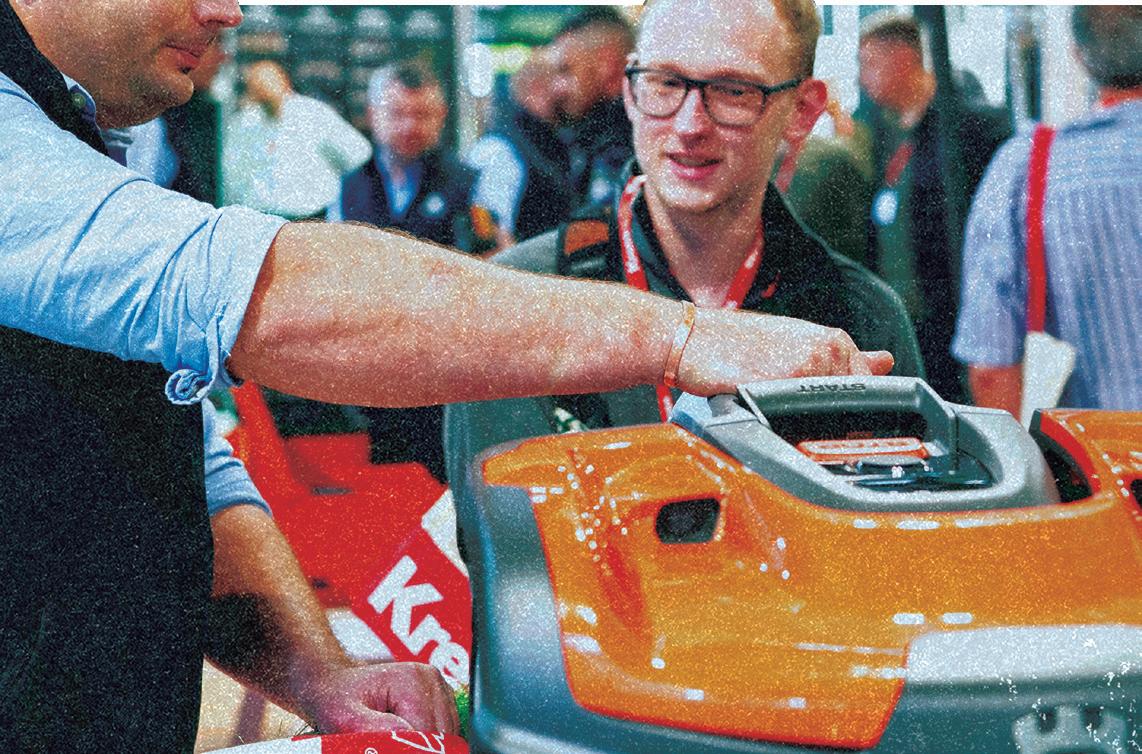
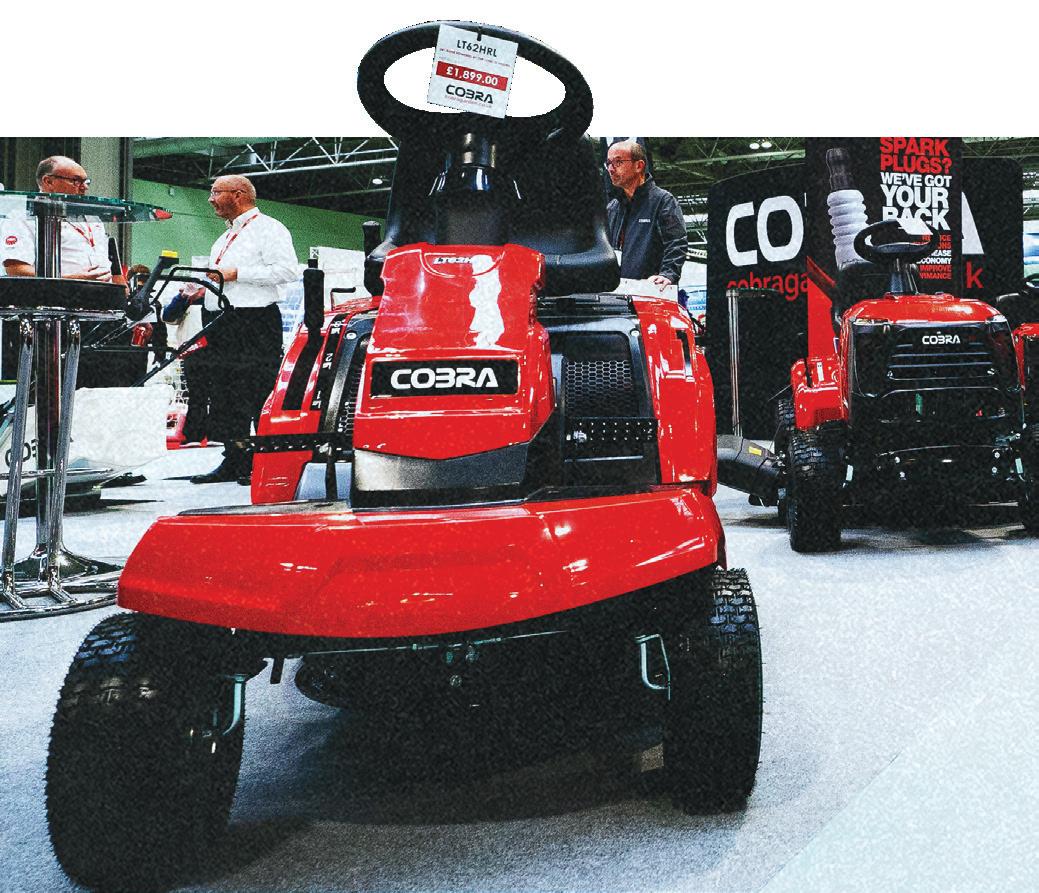

EUROPE’S PREMIER GROUNDS MANAGEMENT SHOW
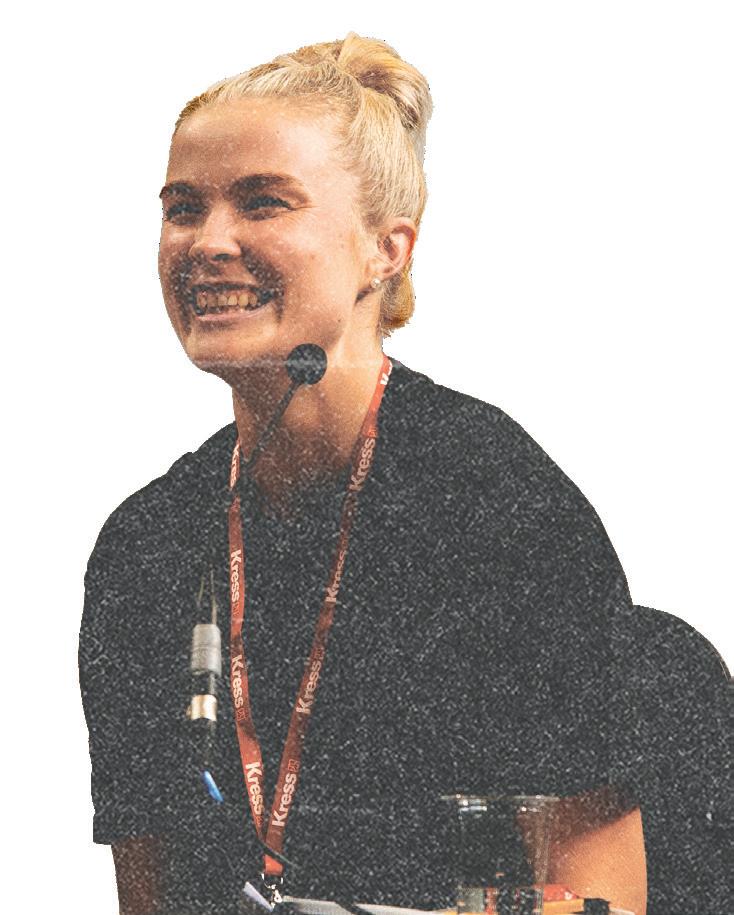
JOIN THE WAITING LIST

There is an ever-growing dependency on gyms, pools, and leisure centres to drive physical activity levels in our country, and this is reflected in the last two sets of Active Lives Surveys published by Sport England in the last six months, covering both adults and young people.
These figures show that fitness and swimming activities remain major drivers of physical activity as the third biggest source of activity for adults – behind only walking and active travel. With an increase of 1.5% on the previous year (approximately 800,000 more people), it mirrored the popularity demonstrated in Sport England’s survey of children and young people last year.
This growth is also clear from our own findings in ukactive’s Private Sector Benchmarking report, released in April. The data showed that private operators across the UK have seen a 10% growth in gym memberships at their facilities since January 2022 and this growth was also evident in the recent report from EuropeActive and Deloitte on the European health and fitness market.
What’s abundantly clear is that our nation’s gyms, swimming pools and leisure centres are essential in supporting the health and wellbeing of communities and consumers are continuing to look towards our sector to help them to lead active, healthy lives.
But what cannot be ignored is the challenging backdrop that operators continue to navigate to keep providing these essential services. In our latest Energy Risk Register survey of members, operators told us that ongoing pressures in the form of high energy costs, staffing concerns, and the cost of living are major concerns and without the right support, this could put communities at real risk of restricting or, at worst losing, their vital access to support.
These figures should be a note of caution to the government if there is to be any hope of addressing the decline in our national health. The government’s Get Active Strategy sets targets for growing activity

As we approach a General Election, any future government needs to put in place a strategy that uses all the levers it has at its disposal
levels by getting 2.5 million more adults and 1 million more children active by 2030 and the government will need these facilities to operate with confidence and security if their target can be achieved.
Furthermore, as we approach a general election, any future government needs to put in place a strategy that uses all the levers it has at its disposal if it’s serious about making the nation more active, healthier and happier. This can be achieved in several ways but by working hand-in-hand with the representative bodies from the UK’s physical activity, sport and recreation sector (the National Sector Partners Group), alongside our members, the government can provide a focused strategy on areas such as children and young people, and the workforce, and show how it will support the renewal and growth of the sector’s facilities.
This involves working in partnership with us, understanding how our facilities are instrumental in preventing ill health, and empowering our sector to be the leading force in solving some of the Government’s biggest priorities, such as record levels of long-term sickness and growing NHS waiting lists.
What is reassuring is that our sector is already playing its part in tackling these challenges and we’re making real strides in building this political will within government as part of our wider lobbying work, including showcasing our members’ facilities across the UK. We’re doing everything we can to ensure our sector gets the representation and support it deserves. It is now up to the government - and our next government - to recognise our role in delivering its ambitions.
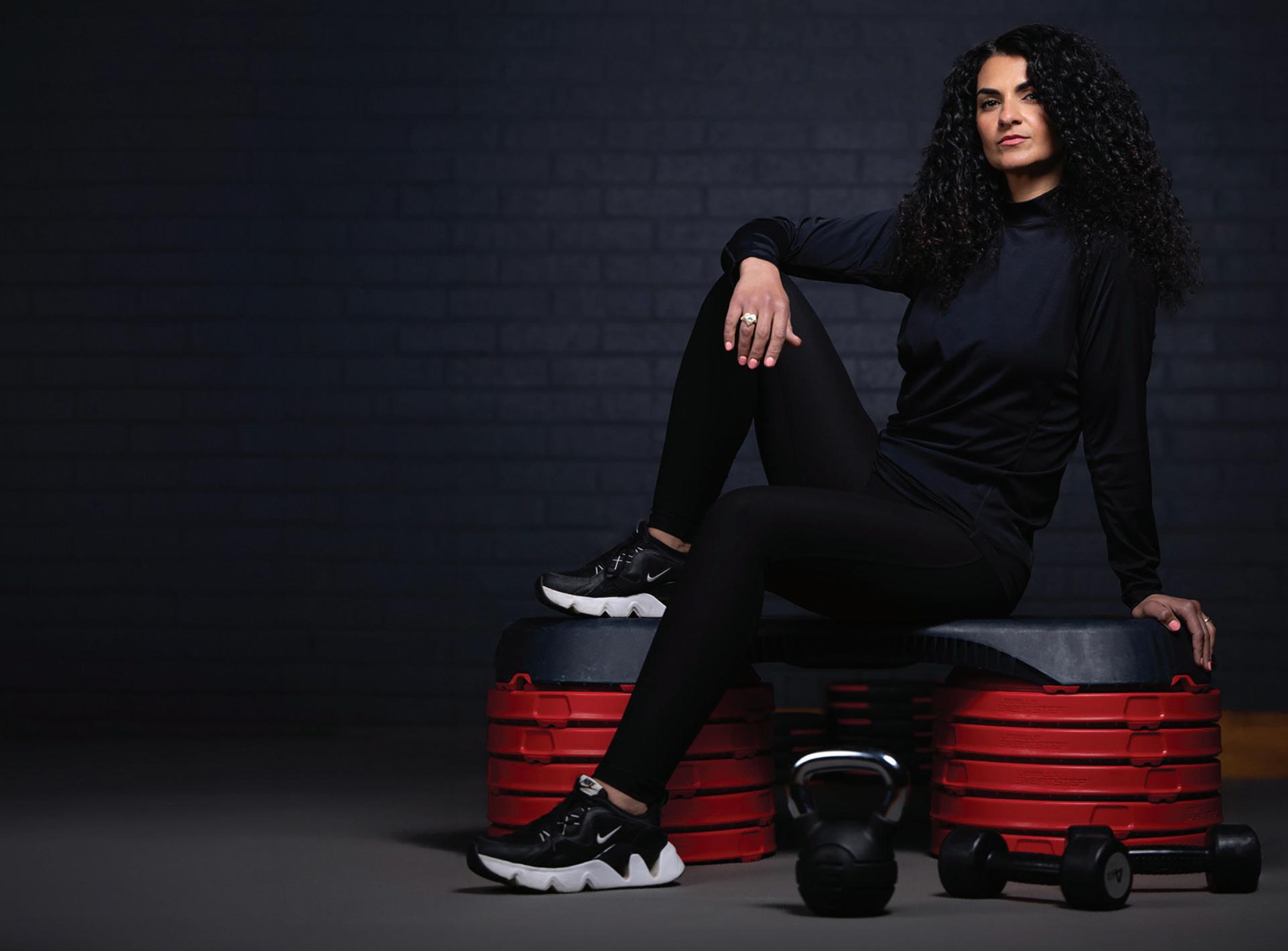

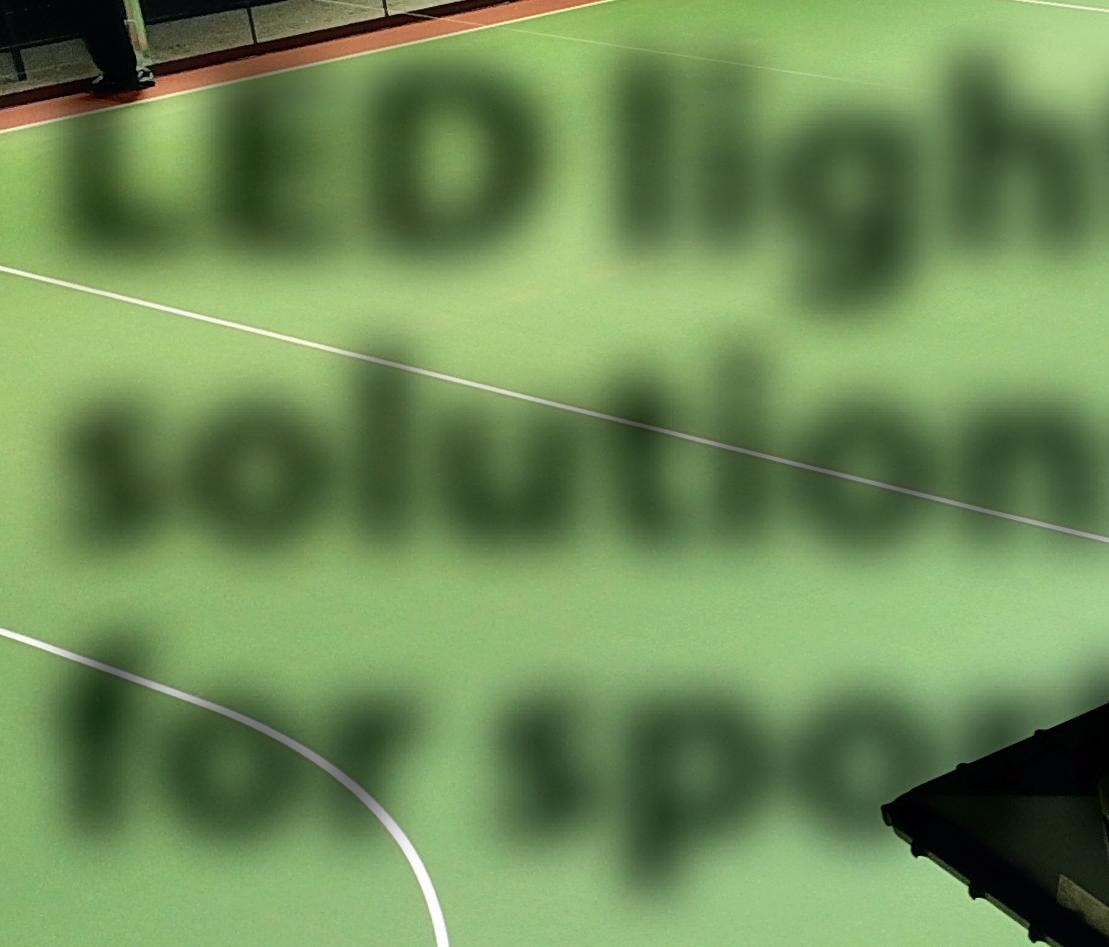




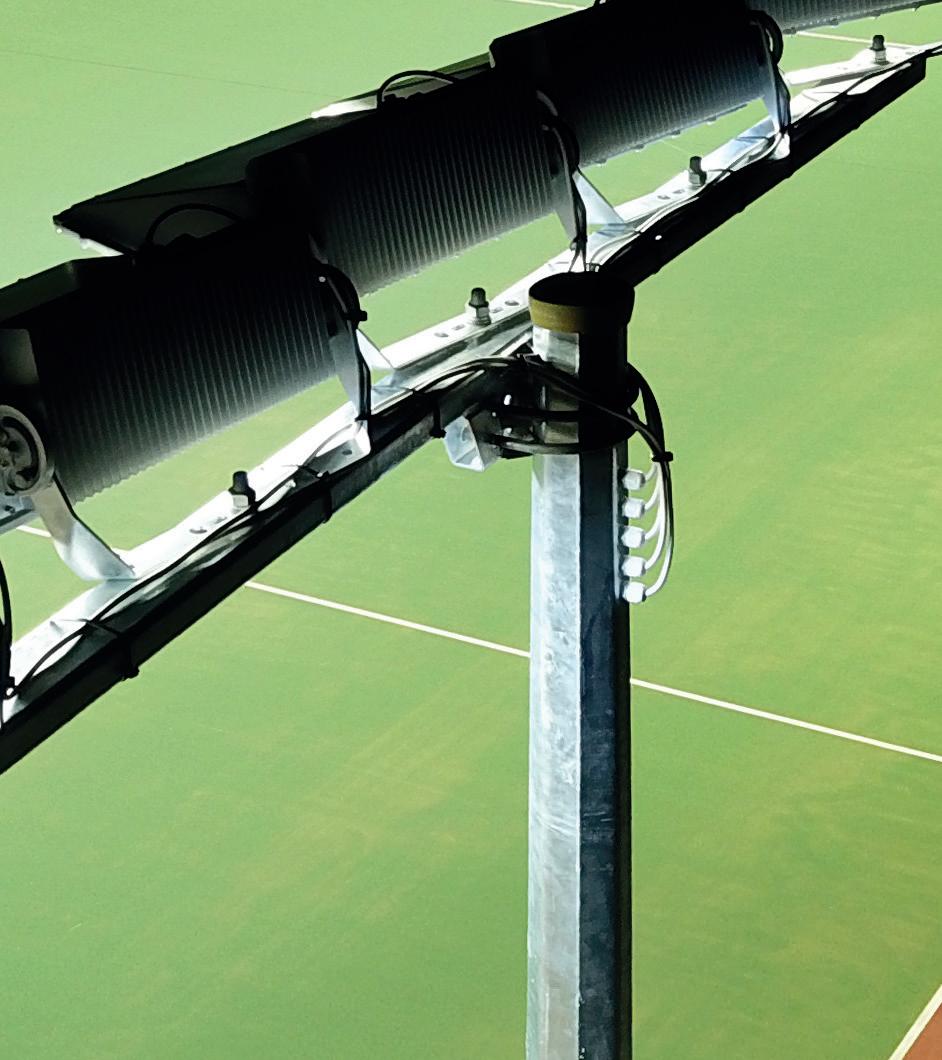

ukactive has launched its first ever Consumer Engagement report, which uncovers the motivations and barriers for people using sports facilities, gyms and leisure centres
Improving mental health is one of the leading reasons for people to join a leisure centre, health club or gym. The finding comes from the first-ever Consumer Engagement report, published by industry body ukactive, which shows that 79% of consumers responding to the survey listed mental health as a key consideration for becoming a member of a gym, physical activity facility or service provider.
The report also shows that, while improving or maintaining physical strength and fitness (82%) came top of the pile when people were asked to list their motivations for joining, three quarters (75%) also mentioned improving overall confidence as a major reason. Two-thirds (67%) were looking for physical activity to improve their sleep.
While the findings demonstrate growing recognition of the holistic benefits of physical activity in these environments, the report also highlights the potential for a much greater role in supporting community
Motivations for taking out gym memberships and accessing sports and physical activity facilities:
1 To improve/maintain physical strength and fitness – 82%
2 To improve mental health and wellbeing, including managing anxiety or depression – 79%
3 To improve my overall confidence – 75%
4 To improve / maintain my physical appearance – 75%
5 To improve my sleep – 67%
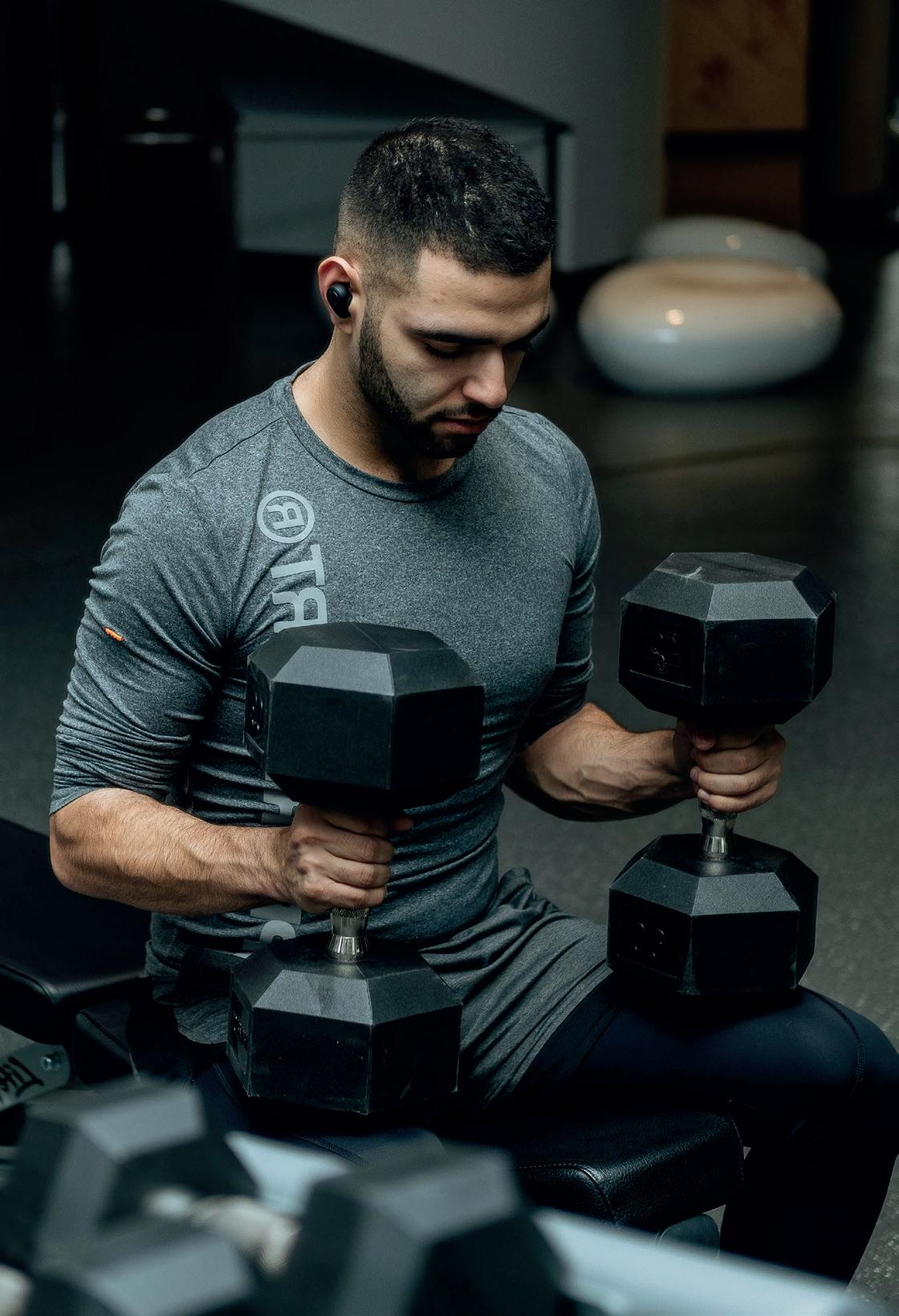
health and the economy. This is demonstrated in only 17% of respondents with a health condition being aware of programmes within their local gym or fitness facility that could support their recovery or management of their condition. The figure is even lower for those with a health condition who have never been a member of a facility, with just 6% having an awareness of such programmes (compared to 44% for current members).
This suggests that millions of Britons could be missing out on opportunities to help them manage, support and improve their condition through physical activity. These opportunities are growing too, as physical activity operators are increasingly looking to offer preventative health services. These include the MSK (musculoskeletal) Hubs pilot, which has seen strong growth across more than 100 sites. Another proven programme is GM Active’s (Greater Manchester Active) Prehab4Cancer initiative, which helps newly diagnosed cancer patients improve their outlook through physical activity.
Ill health among working-age people is projected to cost the UK economy approximately £150bn a year, with £70bn of this being a direct cost to the Government. Following the publication of the report, ukactive is now calling for the Government
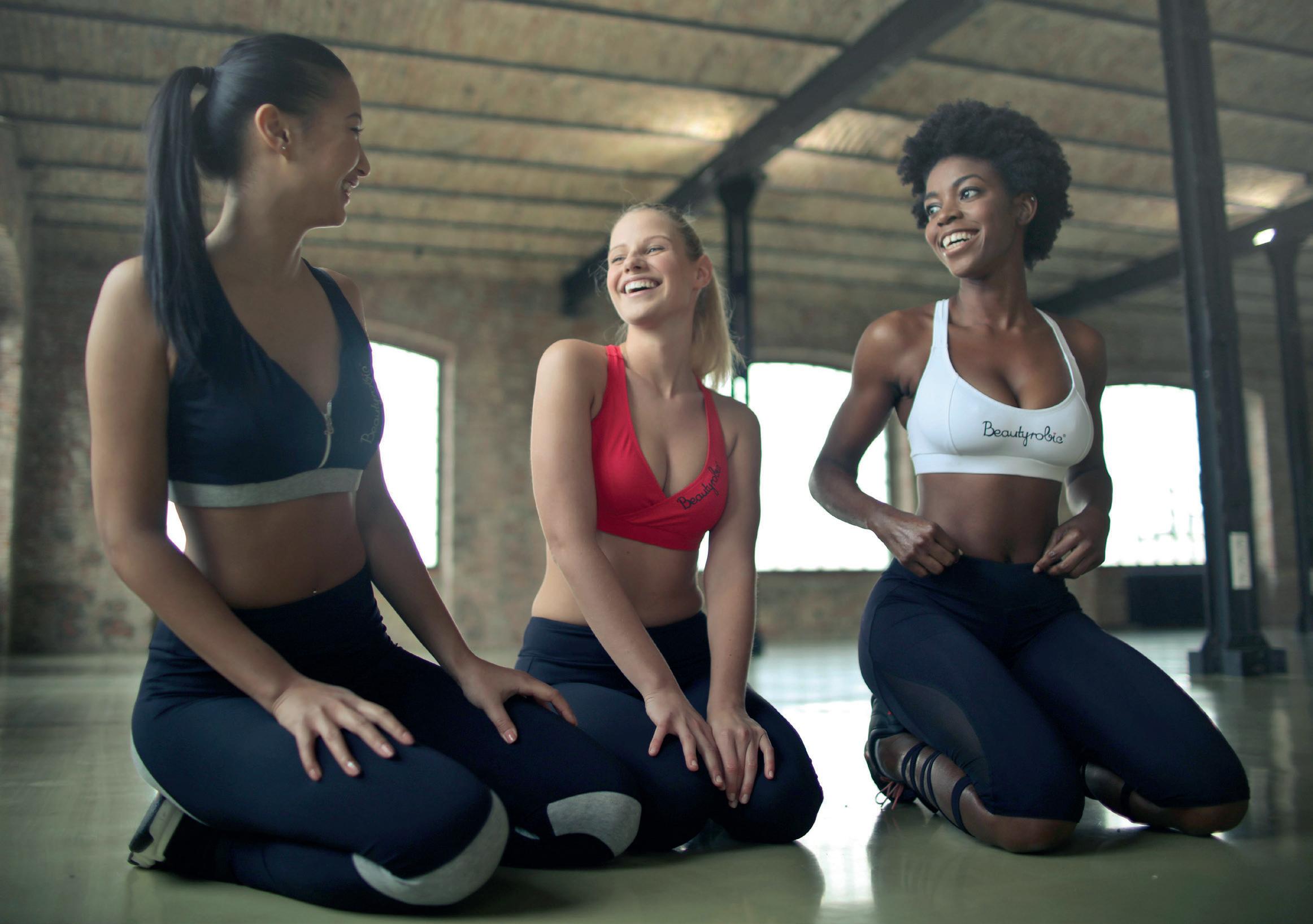
75% of gym members said improving overall confidence was a major reason for joining
to tap into growing consumer demand for gyms and leisure centres. The industry body wants the government to work in partnership with the sector, to raise awareness of the options, the support, and the benefits of accessing physical activity facilities.
Huw Edwards, Chief Executive of ukactive, said: “We are proud to launch this major new report which provides the data and insights necessary for our sector and the Government to do more to get the nation active.
“It shows that today’s gym member recognises the myriad benefits of being active for their mental health and wellbeing, as well as their physical condition. However, it also shows that too many people are unaware of the incredible options and services available in their community to support their overall health or to help manage a condition.
“Gyms and leisure centres can support mental health and pathways into employment, meaning that if we can reach more people, the Government could save hundreds of millions when it comes to NHS costs and economic inactivity.
Any future Government must prioritise three simple things if it is serious about shifting the dial on the nation’s health and our economy.
“The first is working with our sector to recognise the fullest role it can play in supporting the nation’s mental health. The second is empowering our sector to reach even more people, which can be achieved through reforms to the tax and regulatory system that would help operators to lower prices.
“Finally, collaborate with our sector on a national campaign to increase awareness of the fantastic health programmes in gyms and leisure centres.”
The Consumer Engagement report monitors the UK’s relationship with gyms, swimming pools and leisure facilities, with the inaugural report based on 16 months’ worth of data from more than 10,000 consumers.
Polling is collected each quarter in partnership with Savanta and tracks trends on a range of topics, including activity levels and motivations to participation
The annual Consumer Engagement report will be followed by regular quarterly insights which provide valuable analysis of consumer attitudes and trends.
Women in Sport research shows that girls and women face negative attitudes from some boys and men, whether conscious or unconscious. Women in Sport’s Head of Engagement, Sarah Bellew, says that the finding underlines why it is important to help boys to become allies, not opponents
Women’s sport has been catapulted into the limelight over recent years and the ‘Lionesses effect’ has spurred increased investment, media coverage and support for women’s sport, even beyond the realms of football. You’d be forgiven then for thinking that it is job done. At the risk of sounding like a broken record, we are not there yet. Recently I had the chance to chat to a group of year 6 girls at a primary school about their experiences of sport and PE. Despite their initial enthusiasm a troubling reality emerged. One girl, a Chloe Kelly fan, voiced her frustration: “I’d love to score more, but the boys never pass to me. They don’t think girls can hit the back of the net.” Her words dripping with disappointment. Each girl in that room had a story to tell – a story of sidelined dreams and dashed hopes. A story that demands immediate action.
“My uncle said that I have to be ten times better than girls.”
The above is an actual quote taken from our latest research which reveals that boys as young as five have learnt that sport is not for girls. It found boys are surrounded by expectations that to be masculine they must be good at sport, strong and dominant.
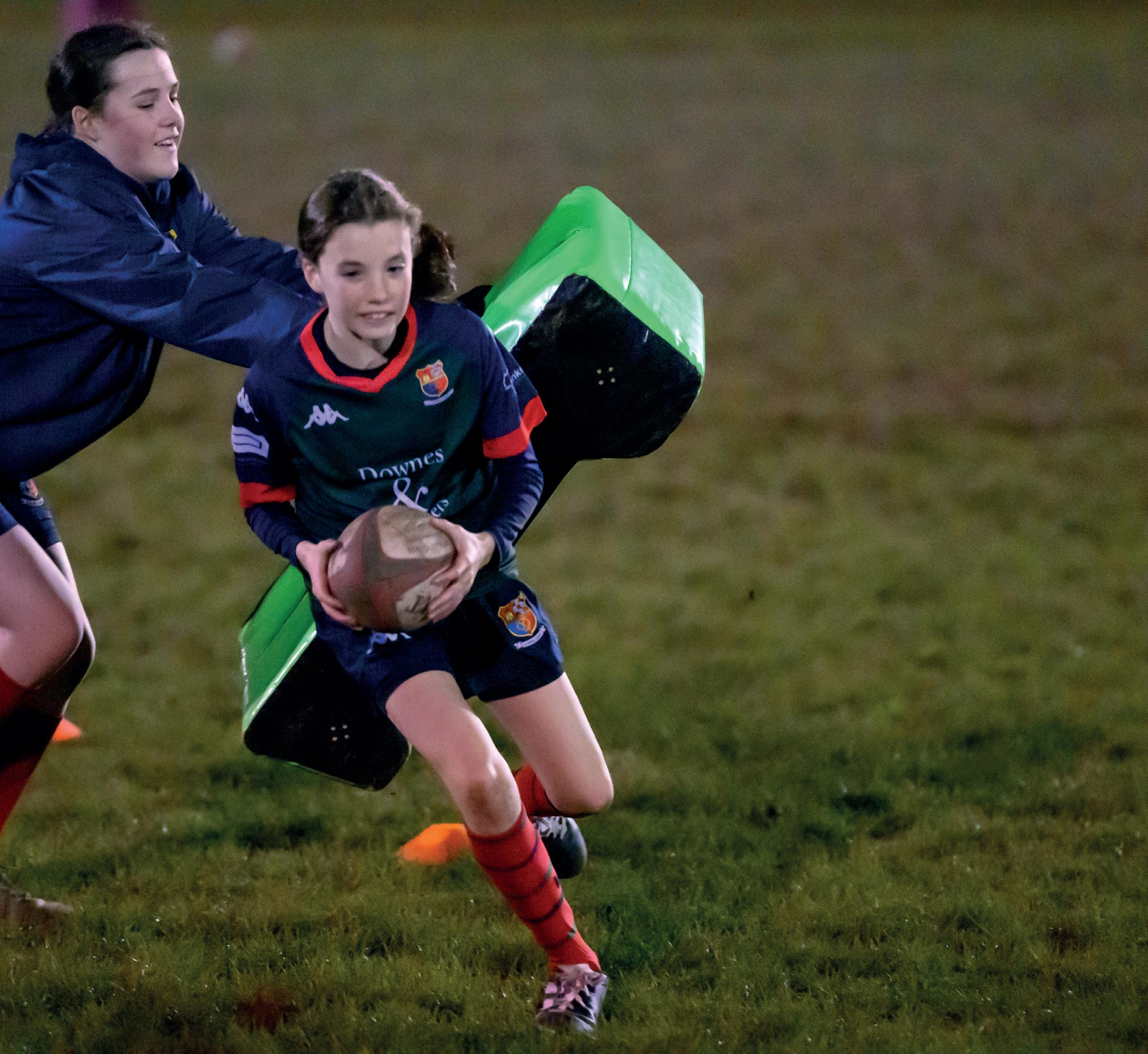
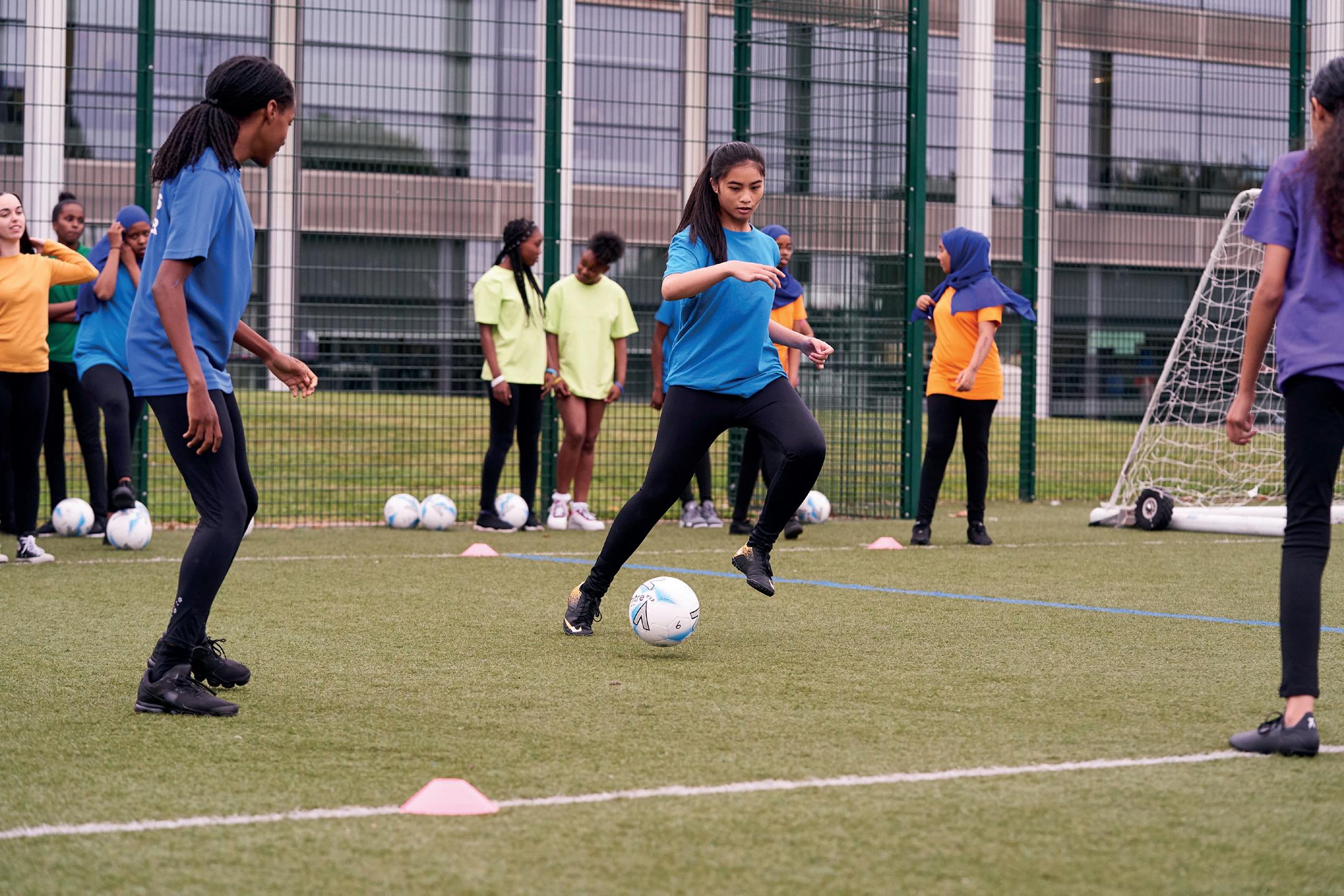
There has been a huge increase in girls playing football in recent years
Even before school starts the development of girls’ sports skills have usually been held back
In contrast, our previous research showed that girls are mostly pushed towards aesthetic activities and away from contact and team sports. Even before school starts the development of girls’ sports skills have usually been held back.
These divergent stereotypes then limit opportunities to build mutual respect between boys and girls in sport. Boys can be reluctant to include girls in sport, being tougher on them when they make mistakes, and doubting their abilities, especially in football. Ultimately, they don’t think girls can help them win. Girls’ self-belief is undermined, and their confidence is gradually eroded.
Ultimately girls are made to feel they don’t belong in sport. But there is hope for change.
Part of the problem is that stereotyping is invisible. Without meaning to we unknowingly pass down the same messages to our children, generation after generation. We can all be more aware of the consequences of stereotyping and
boys and men, whether dads, uncles, brothers or cousins, can also make a real difference to how girls feel about sport. Their words and actions can have a lasting impact. With their support girls are much more likely to feel they belong.
So, whether you’re a coach, teacher or parent you can play part in breaking down negative attitudes to girls in sport, try to:
l Recognise and challenge limiting stereotypes
l Understand and explain the value of sport for boys and girls
l Help boys to become allies not opponents
l Create gender-equal sporting environments
l Celebrate girls and women in sport
Together we can increase young children’s understanding, empathy and acceptance and create a more respectful, level playing field in sport. We know that boys, and the men they will become, can be agents of change for girls and women in sport, and in life.



England rugby legend, Maggie Alphonsi, talks to SportsNation’s Tom Walker about the current state of her sport – and why visible role models are key to increasing participation
Maggie Alphonsi made her England debut in 2003 at the age of 19. Throughout her rugby career – which has continued in a number of roles after she hung up her boots as a player in 2014 – she has been a pioneer both on and off the pitch.
During her 11-year international career, Alphonsi played for England a total of 74 times, scoring 140 points. She won a World Cup and helped England win a record-breaking seven consecutive Six Nations crowns. During her career, she became – for many – the face of international women’s rugby and also one of the most wellknown names in women’s team sports. She was named Sunday Times Sportswoman of the Year in 2010 and received her MBE in 2012.
The trailblazing has continued after she retired. She has become a consummate media professional and regularly commentates on live rugby matches for SKY Sports and the BBC. In 2015 she became the first ever former female player to commentate on men’s international rugby when she was signed up by ITV for the Rugby World Cup.
Yet, born with a club foot and hailing from a single-parent family living on a council estate in Lewisham, southeast London, she might have not been everyone’s first pick to go on to represent her country in a sport dominated by players
educated in private schools. Alphonsi herself, however, attributes her success to exactly that – her upbringing in challenging conditions.
“Opportunities were low,” she says. “My mum was a single parent and an amazing woman, she had two jobs so I could have a life. In the environment I grew up in, we all had this same attitude - if you want to be successful you have to work really, really hard, go above and beyond.”
SportsNation asked Alphonsi for her views on the state of rugby on a wide range of topics – from making the sport more inclusive to the importance of role models in inspiring the next generation of players.
How inclusive do you see rugby union as a sport at the moment?
At the grassroots level on the pitch, I believe our game is inclusive and is continuing to grow. What makes our game unique is how open it is. At the elite level this is improving, but I believe more still needs to be done.
In terms of gender, rugby has become one of the fastest growing sports for women and that is reflected at the elite level. Where I would like to see greater progress is race/ethnicity.
In the women’s game, at the elite end, I still feel there are some barriers to entry and this is also seen in leadership roles off the field.
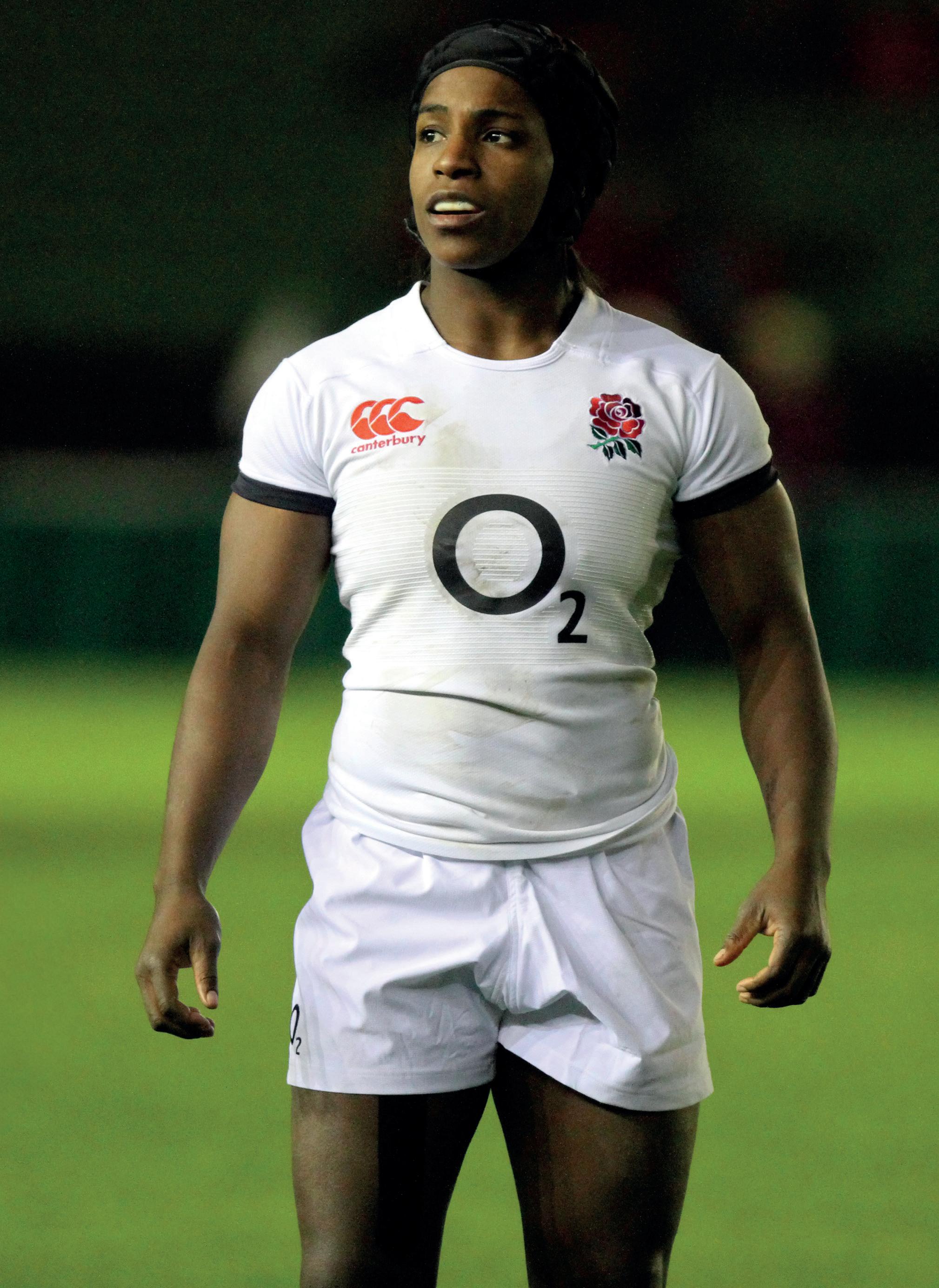










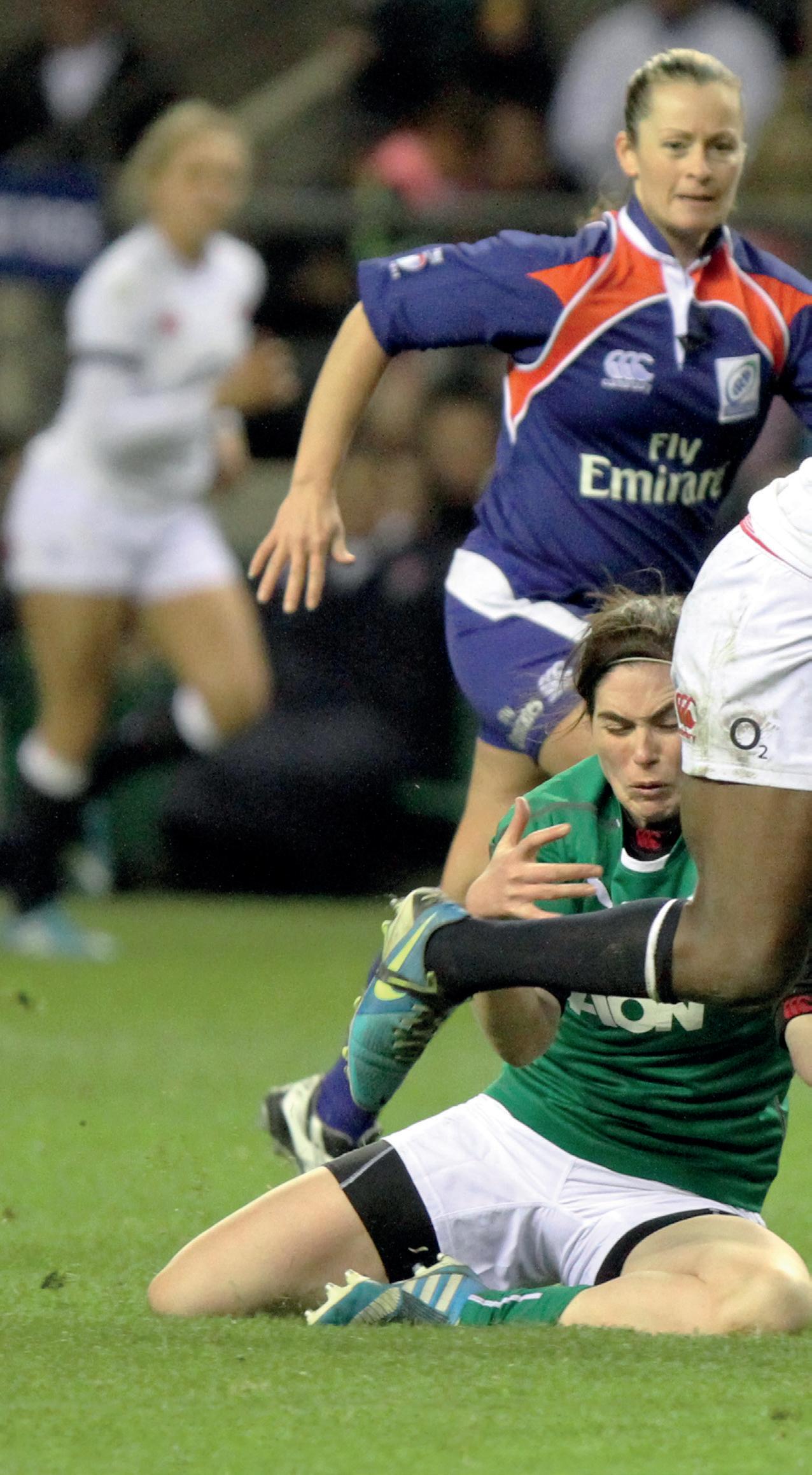
If you were given a free hand to make rugby more inclusive, what things would you change and how would you change them?


At the grassroots level. I would make rugby clubs the heart of the community. Not just make the club all about rugby, I would open it up so it can be used for other activities that people within the community will want to use and see the club as a place for them.
There are many clubs around the country where I have seen this work well and through opening their doors they have seen new people join the club from within the community who would have initially not seen rugby or the rugby club for them, but now they feel they belong to the club/sport.
I would also encourage more outreach work and go into the communities where rugby is
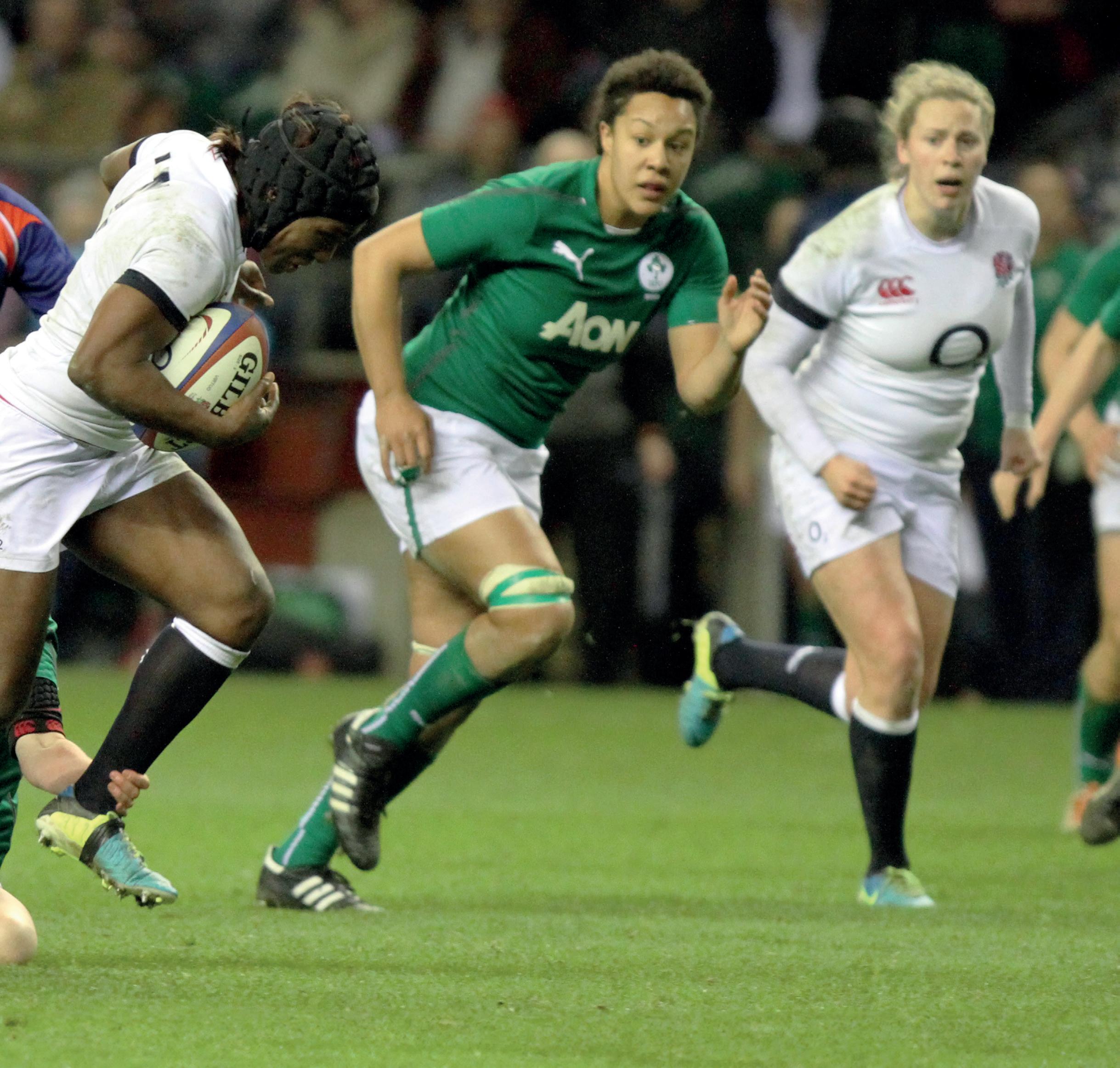
not an option. I would conduct taster sessions and share the positive values of the sport. At the elite level, I would continue to share the stories of those that have progressed to that level and tell their journey of how they did it, so others can learn and follow. I would also open up leadership roles so more people from different communities and backgrounds can apply for them.
If you did a SWOT test on rugby union across the entire sport, what would you consider as the sport’s:
The main strength of our sport is that it’s seen as a game for all and it appeals to a wide variety of people of different shapes and sizes.
Alphonsi won a World Cup and helped England win a record breaking seven consecutive Six Nations crowns
To slightly contradict the point above, the sport still has its stereotypes and we need to do better at selling it and sharing those positive stories.
There are huge opportunities when it comes to continuing to grow the women’s game, similar to what we’ve seen with women’s football. The audience – attendances and viewing figures – are growing and the commercial opportunities are there.
Managing the well-being of our participants and making sure our sport continues to be safe and the players’ welfare is at the heart of everything we do.







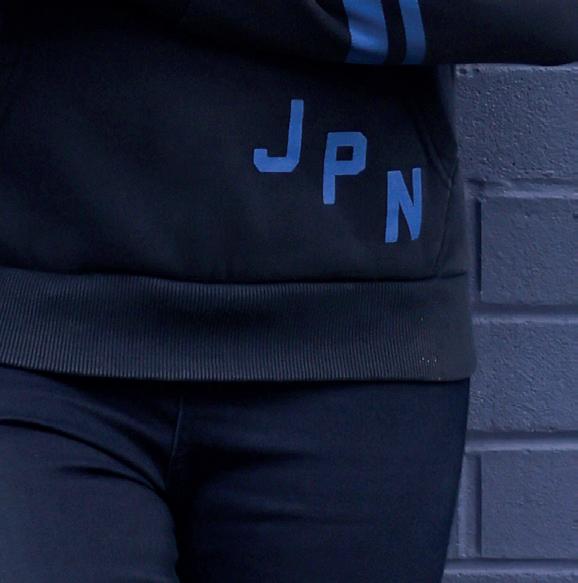
Growing up I looked up to Denis Lewis because she was a viable role model on the TV and I saw myself in her

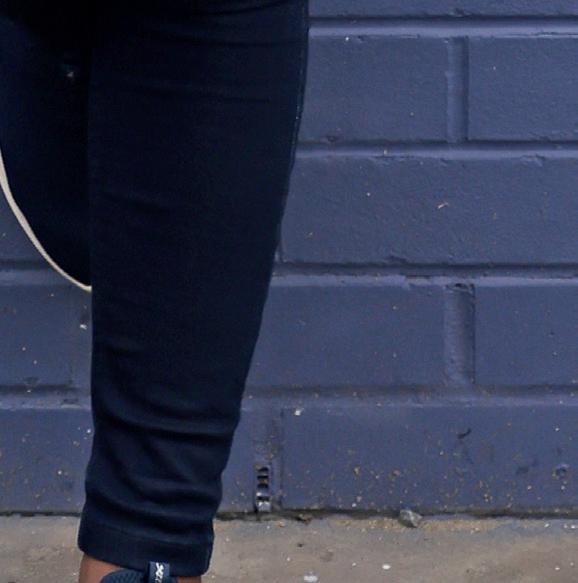
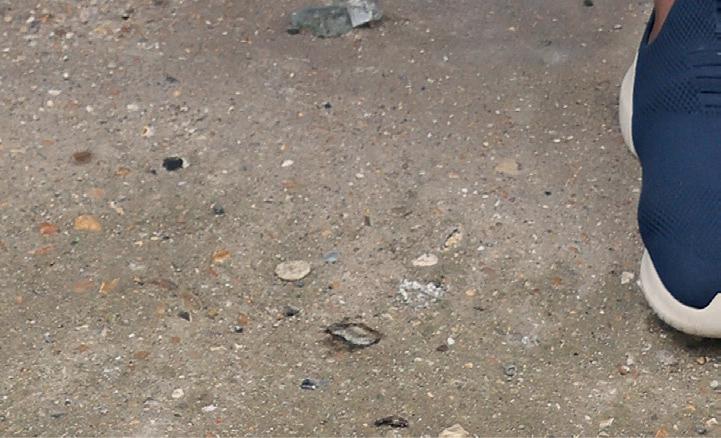




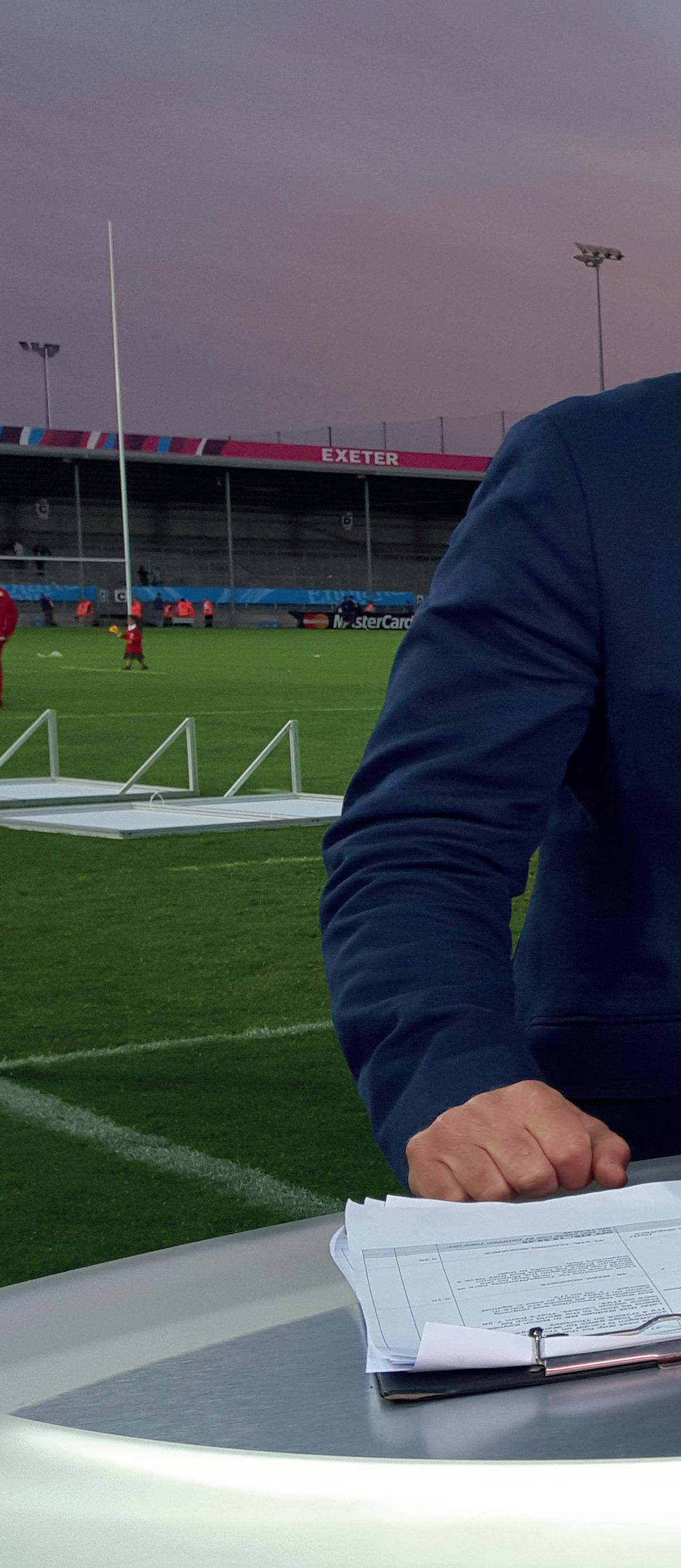
One of your school teachers was Welsh rugby legend, Liza Burgess, who you’ve credited with helping you discover rugby. How can we help young people meet their “own Liza Burgesses” –and use sport for positive change in their lives? What Liza did for me is she saw my strengths and not my weaknesses. Easier said than done, but it’s important that leaders, teachers and deliverers see the potential in young people and what they can do, rather than what is wrong and what they can’t do. Liza never gave up on me, she saw past my troubles and directed me towards a sport that would play towards my strengths.
You have been involved with rugby at every level – as player, coach, administrator and broadcaster. How important is it for young people to have role models that “look and sound” like them? It is very important. Visible role models are key. To see yourself, in what you hope to be definitely makes you feel it’s possible. Growing up I looked up to Denis Lewis because she was a viable role model on the TV and I saw myself in her. I was inspired by her background and achievements and I wanted to be her, but in rugby union.



Do you do any mentoring?
I don’t do any mentoring in a formal capacity anymore, but I do provide advice and support to those individuals (mainly women) who are looking to follow a similar path to me in broadcasting. I help provide insight into the industry and how best to navigate it.



In 2015 you became the first ever former female player to commentate on men’s international rugby. Today, nearly a decade later, having female commentators working on men’s sport is considered standard across all sports – how proud are you to have been one of the pioneers? I am incredibly proud. What is pleasing is that I may have been the first pundit, but I am definitely not the last. There are so many women working as pundits/ commentators across various sports on the TV. Sadly, we still get a lot of negativity for working
Alphonsi released her autobiography, Winning the Fight, in August 2023. The book outlines her compelling against- all- the-odds tale to becoming the best player in the world – rising to the top of her sport despite facing racism, sexism and prejudice.
in men’s sports. Thankfully, it is not stopping us. If anything, it just galvanises us and makes us more driven. The aim is to inspire the next generation of women and girls out there to follow in our footsteps.
It’s a general election year. If the incoming government were to ask you to devise one policy which would make the biggest impact in getting more young people from all backgrounds to play sport, what would that be? I would increase time for physical activity in the school curriculum. I used to work for the Youth Sport Trust and our focus was all about the importance of physical activity in schools. I have always been incredibly passionate about making sure children are exposed to more sport and benefiting from the physical/mental attributes that come with it. Give children more options and variety to be active.
A ‘one year on’ evaluation report on the Birmingham 2022 Commonwealth Games shows the event has contributed almost £1.2 billion to the UK economy and provided a “lasting impact” on widening access to sport and physical activity
The 2022 Commonwealth Games in Birmingham brought together 6,600 athletes and team officials from across 72 Commonwealth nations and territories. In April this year (2024), the Department for Culture, Media and Sport (DCMS) published an evaluation report, detailing the social and economic impacts of the event after the first full year, up until the end of 2023. The 184-page document provides an indepth analysis of the Games’ wide-ranging legacy across both the West Midlands and the UK not only in sport and physical activity, but as a whole – in areas such as skills, education, culture and business development.
The headline figure from the report shows that the event contributed £1.2 billion to the UK economy, with nearly half of that in the West Midlands alone. The event has also contributed £79.5 million in social value, including community benefits and increases in wellbeing and earnings of volunteers and those trained as part of the Games.
The event was the biggest multi-sport event to be held in England since London 2012 and broke the record for ticket sales at a Commonwealth Games. As a result, Birmingham saw a significant jump in visitors due to the Games, with a 6 per cent increase in visitor numbers when compared
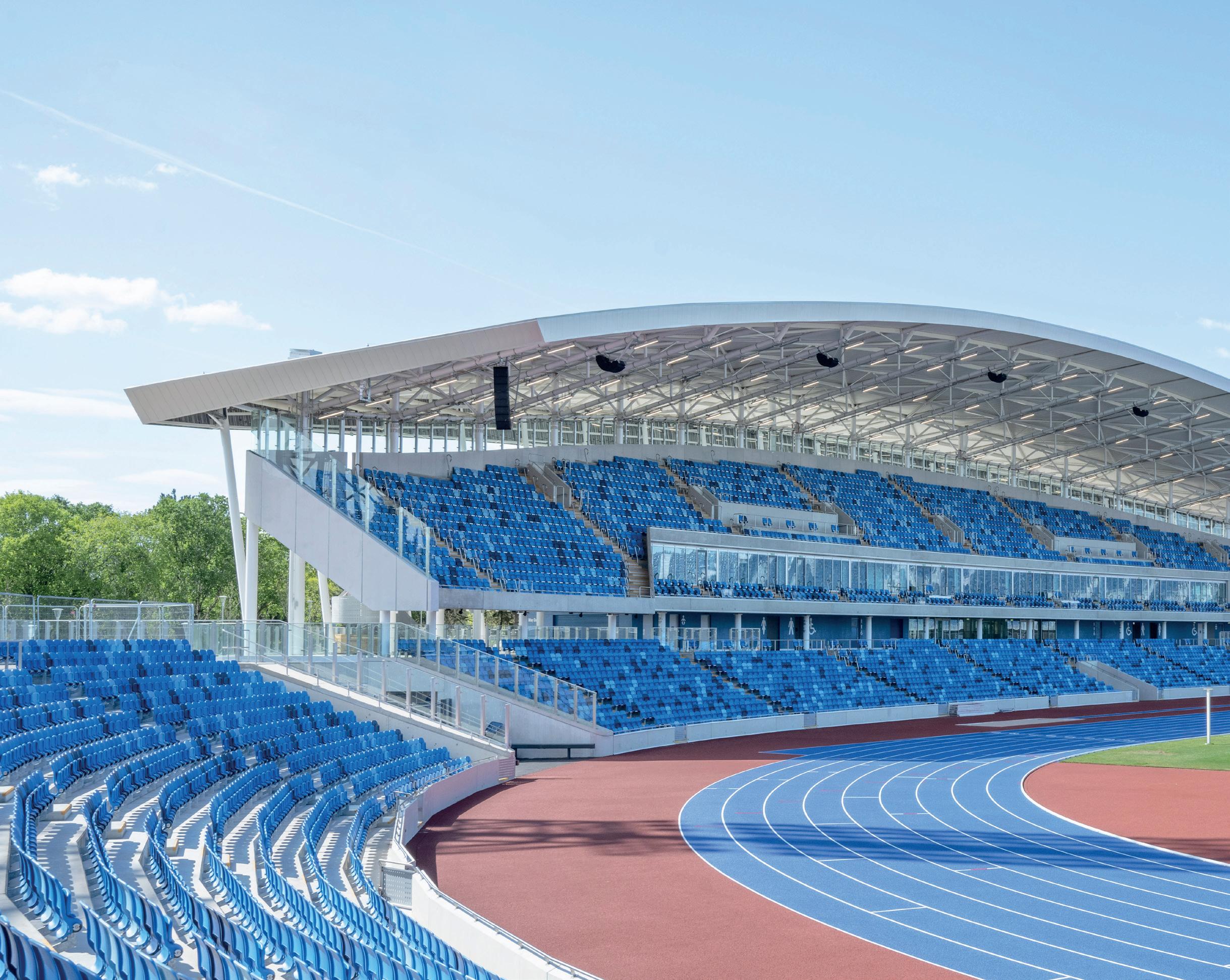
The redeveloped Alexander Stadium is providing a legacy for British athletics
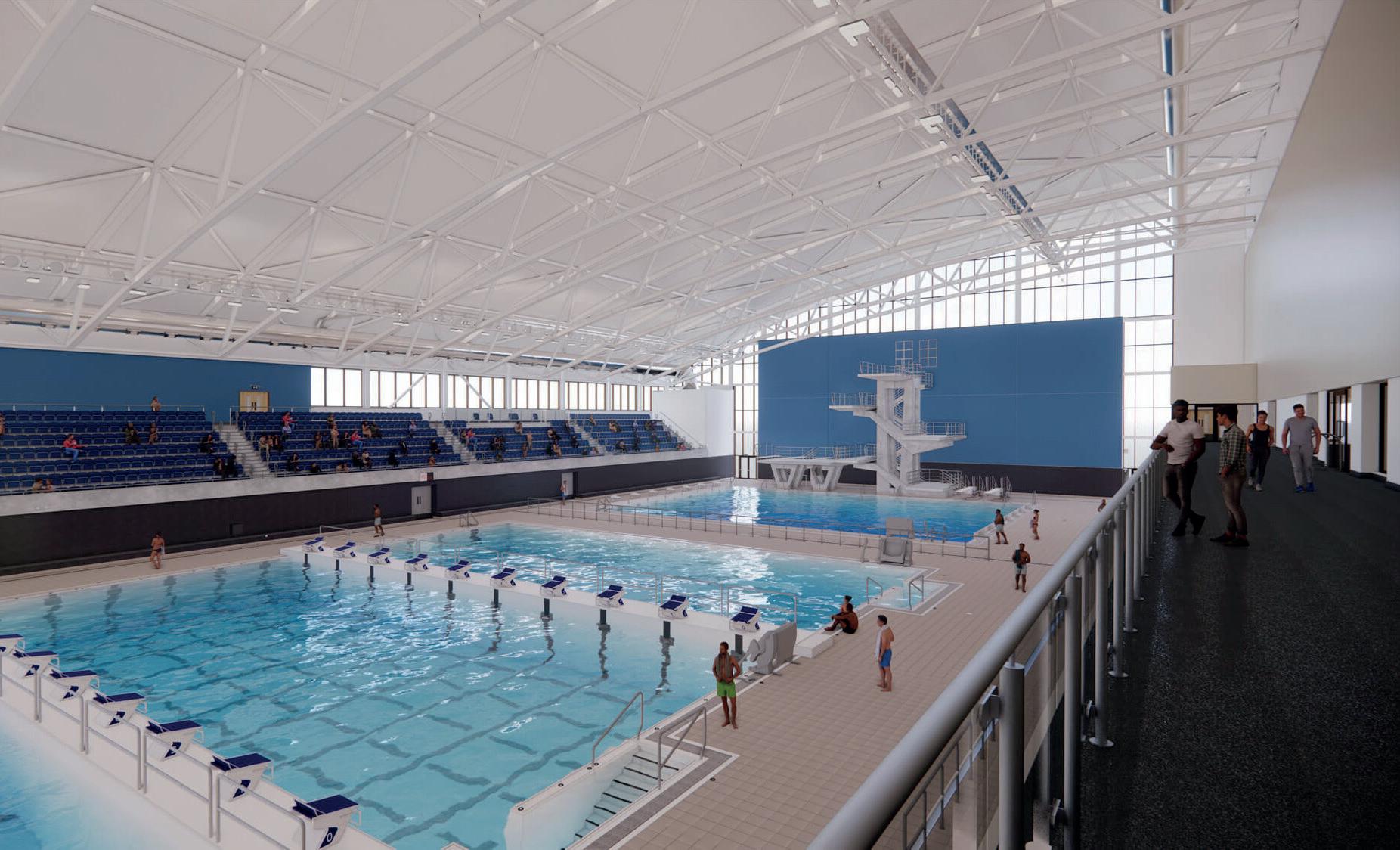
to pre-pandemic levels. There were also global TV views of 834.9 million, over 215 million digital views and 141 million interactions on social media.
The Games were delivered on time and under budget, with £70 million of surplus funding being reinvested in the West Midlands region as part of the Commonwealth Games Legacy Enhancement Fund. The fund has been designed to support business growth, inspire young people through sport participation programmes and youth projects, and financially support grassroots organisations.
In addition, the West Midlands saw a 27 per cent increase in foreign direct Investment projects between 2021-22 and 2022-23, almost seven times higher than the rest of the UK. The report also outlines that the Games could lead to over £150 million of further social value in the longer term, largely as a result of increased future earnings among those trained as part of the Games.
“With more than 1.5 million tickets sold, the Birmingham 2022 Commonwealth Games was a record-breaking event that is still having a positive impact on the region two years on,” says Sports Minister, Stuart Andrew.
“The report shows that hosting major sporting events in this country boosts growth, creates jobs and has a lasting social impact for communities.”

One of the Games’ stated ambitions was to inspire and enable people to improve and sustain levels of physical activity, with a particular focus on the most inactive and under-represented groups.
According to the report, event-related activities during the Games engaged a total of 6.9 million attendees, participants, volunteers and employees. The data shows that a large proportion were from Birmingham and the West Midlands.
A range of Games-related programmes and initiatives were delivered with the aim of removing community barriers to being active and improving levels of physical activity locally. These included the 21 national governing bodies (NGBs) involved in the Games activating more than 402,300 participants through the rollout of various sports programmes and events. The activities were driven through a £6.5m investment made by Sport England in the 21 NGBs to help them develop innovative, nontraditional or digital ideas to drive participation.
Other Games-related initiatives included 70 Active Street festivals which saw more than 10,400 people take part, while more than 2,450 schools engaged with Games-related Daily Mile resources. Local clubs also received a boost, thanks to more than 16,000 pieces of used Games equipment provided free of charge or donated to over 290 West Midlands organisations.

The Games gave us a wonderful platform to create lasting impact at community level
The report states: “Evidence indicates that the initiatives delivered contributed to removing community barriers to being active and improving levels of physical activity for those involved. Ongoing benefits are expected to be realised from the targeted physical activity programmes and the improved systems and services will support physical activity participation, delivering longer term health and wellbeing benefits in the region.”
At the local population level, more than half (52%) of the Birmingham residents surveyed in the one year post-Games Residents Survey perceived a positive impact of the Games on the quality of local infrastructure for walking and cycling. A similar figure (53%) also stated the Games had positively impacted the quality of local facilities for sports and physical activity.
According to the report, the Games-related investment appears to have substantially enhanced the quality, accessibility, and capacity of local sports facilities, and reduced proportions of ‘unmet demand’ across the Games host local authorities.
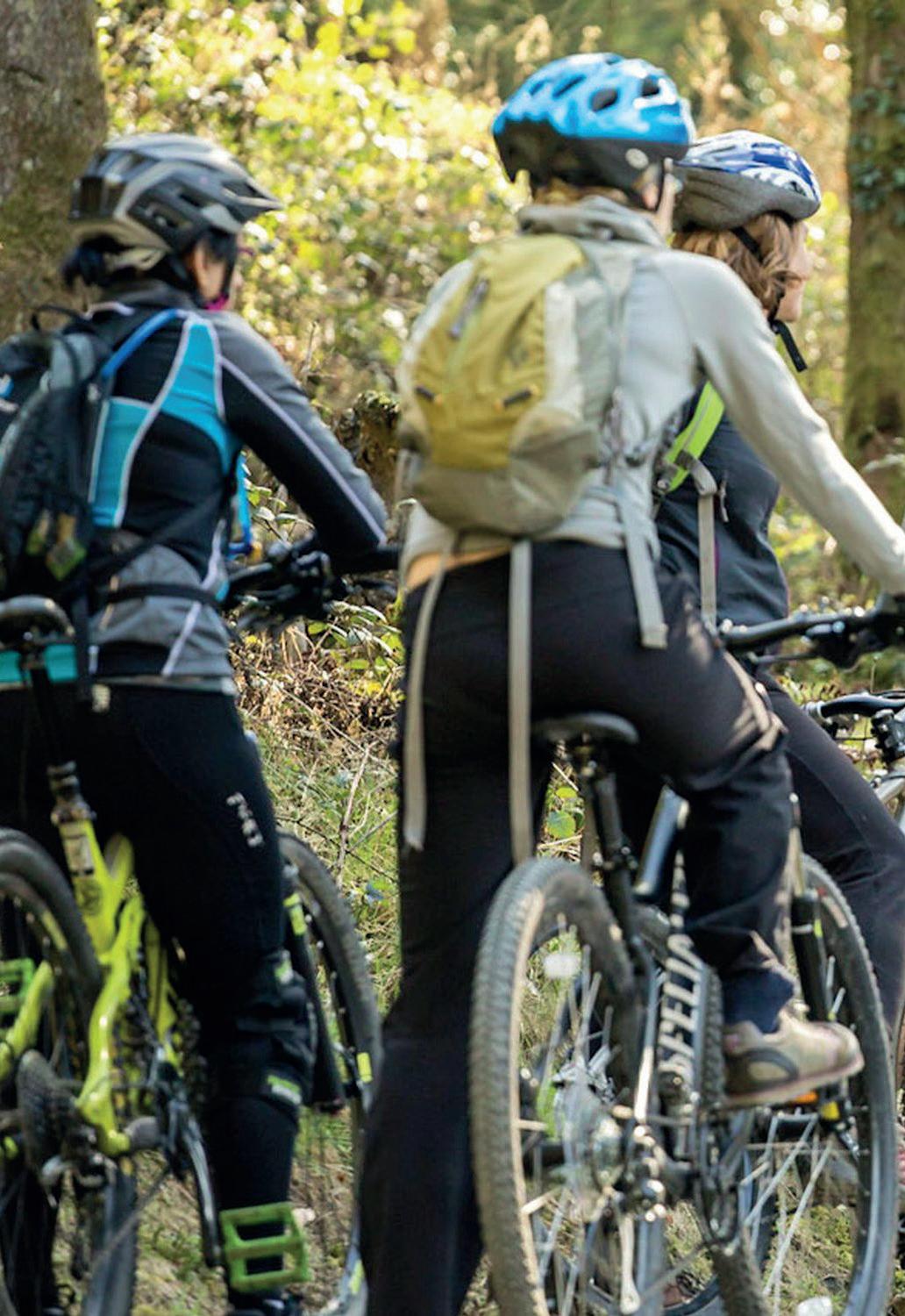
The Games’ facility strategy was to rely on existing venues, rather than build new ones, with Sandwell Aquatics Centre the only brand-new venue for the Birmingham 2022 Commonwealth Games. There were, however, significant upgrades made to a number of facilities, including Alexander Stadium and Cannock Chase Forest – the latter hosting the Games’ mountain bike competition.
The report shows that “projections suggest lasting positive impacts” on community health and wellbeing.
“This is particularly evident through the investments and facility improvements made at Cannock Chase Forest, the Sandwell Aquatics Centre, and Alexander Stadium,” the report reads. “Evidence from the one year postGames Residents Survey shows over half of Birmingham, Perry Barr, and Sandwell residents reported satisfaction with their local sports facilities (55%, 52% and 57% respectively).”
The impact of the Games on sport and physical activity participation can also be seen through Sport England’s Moving Communities
The mountain bike venue, Cannock Chase Forest, is now a popular destination for cyclists

platform data. One month after its opening, the Sandwell Aquatics Centre had acquired 4,400 members and welcomed over 60,000 visitors, with 70% of these participants coming from Indices of Multiple Deprivation (IMD) 1-3 areas.
In addition, average monthly throughput across all leisure centres in the Games host local authorities, as recorded on the Moving Communities platform, saw a 17 percentage point increase from pre- to post-Games, in comparison to a five percentage point increase observed in statistically comparable neighbouring areas that did not host the Games.
In total, Sport England invested £35 million on new facilities and other projects designed to increase participation levels following the Games. Following the Games, Sport England also agreed a 10-year, £5.5m partnership with the West Midlands Combined Authority, with the aim of making it easier for the region’s residents to walk, cycle, take part in exercise and play sport more frequently.
According to Sport England CEO, Tim Hollingsworth, the report shows how major sports events can be the catalyst for positive change at community level.
“The evaluation report for the 2022 Birmingham Commonwealth Games is very heartening,” Hollingsworth says. “It illustrates – done right –the legacy of major events can be positive for improving access to sport and physical activity.
“The Games gave us a wonderful platform to create lasting impact at community level across the country by bringing us together through sport, community and friendship. Our £35million investment in the Games was targeted where it was most needed, delivering new facilities and creating ongoing volunteering and activity opportunities for local communities in the West Midlands.
“I’m proud of what we have achieved already and, through our 10-year partnership with the West Midlands Combined Authority, we’ll continue to create inclusive opportunities for people to play sport and get active.”

England Athletics published its 12-year strategic document in May 2021. Three years into it, SportsNation looks at how the NGB’s plans to grow the sport across all levels – and to make it more inclusive – have advanced
Ensuring success at major events is one of the NGB’s strategic goals
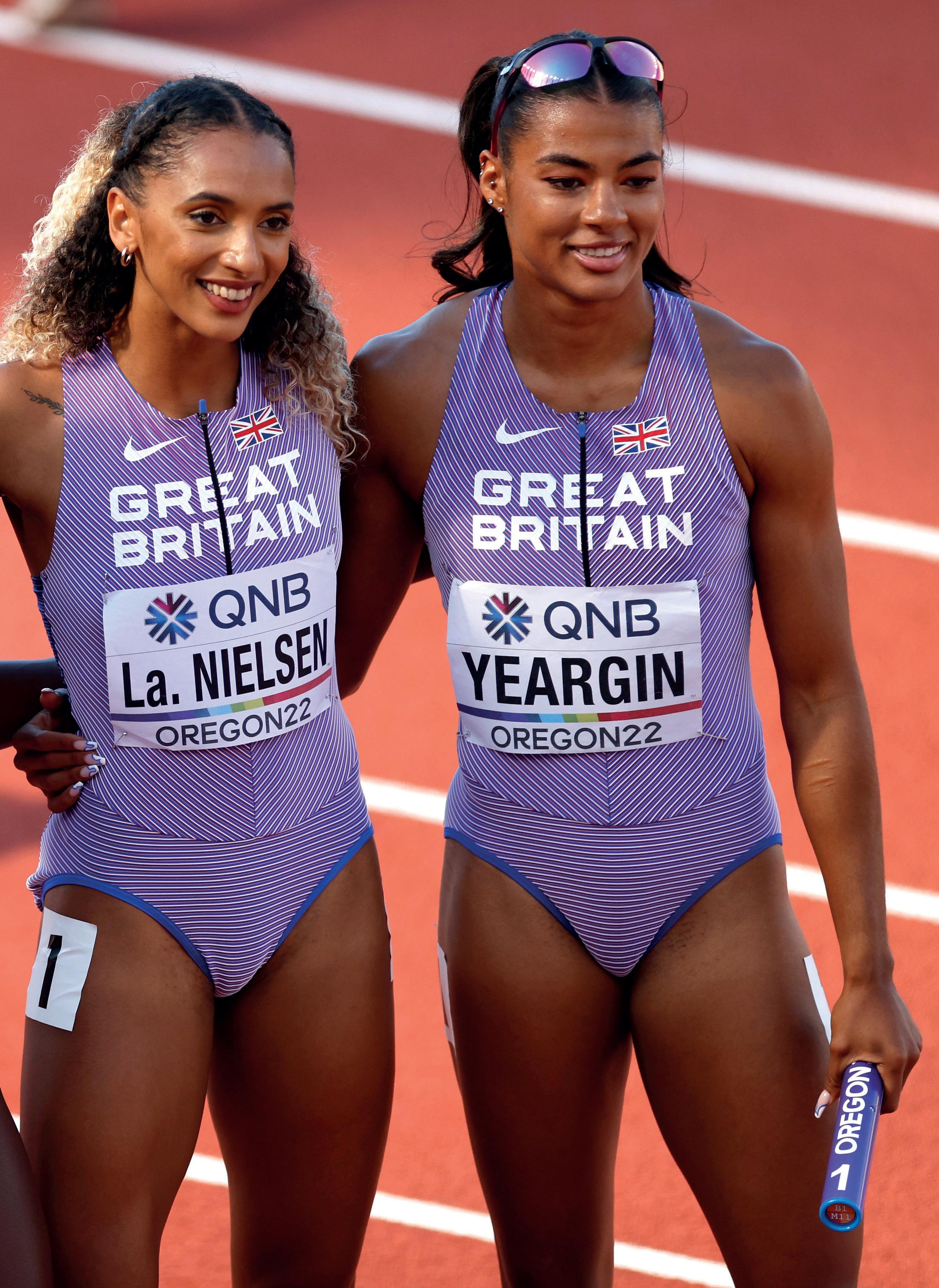
England Athletics launched its 12-year strategy plan in May 2021. Covering the period from 2021 to 2032 and titled Athletes and runners at the heart, the strategy followed extensive consultation with a multitude of stakeholders across the sport.
The length of the plan was a conscious decision. “This strategic plan was produced with a longer-term vision on the key challenges and opportunities ahead, rather than the traditional four-year perspective,” England Athletics said when publishing the document.
“We recognise that, to deliver sustainable success, we need to give strategies and programmes longer to embed and take root.”
The strategy identifies five key focus areas in which the national governing body will look to improve and develop the sport. These are:
1 Clubs, club leaders and facilities
2 Competition
3 Coaches and officials
4 Participation: young people and running
5 Talented athletes
According to England Athletics, each of the five areas was chosen as it has its “own unique challenges and opportunities, yet also the opportunity to positively influence the success and growth of the other areas”.
There are now over 200,000 registered runners and over 3,000 groups on the RunTogether platform
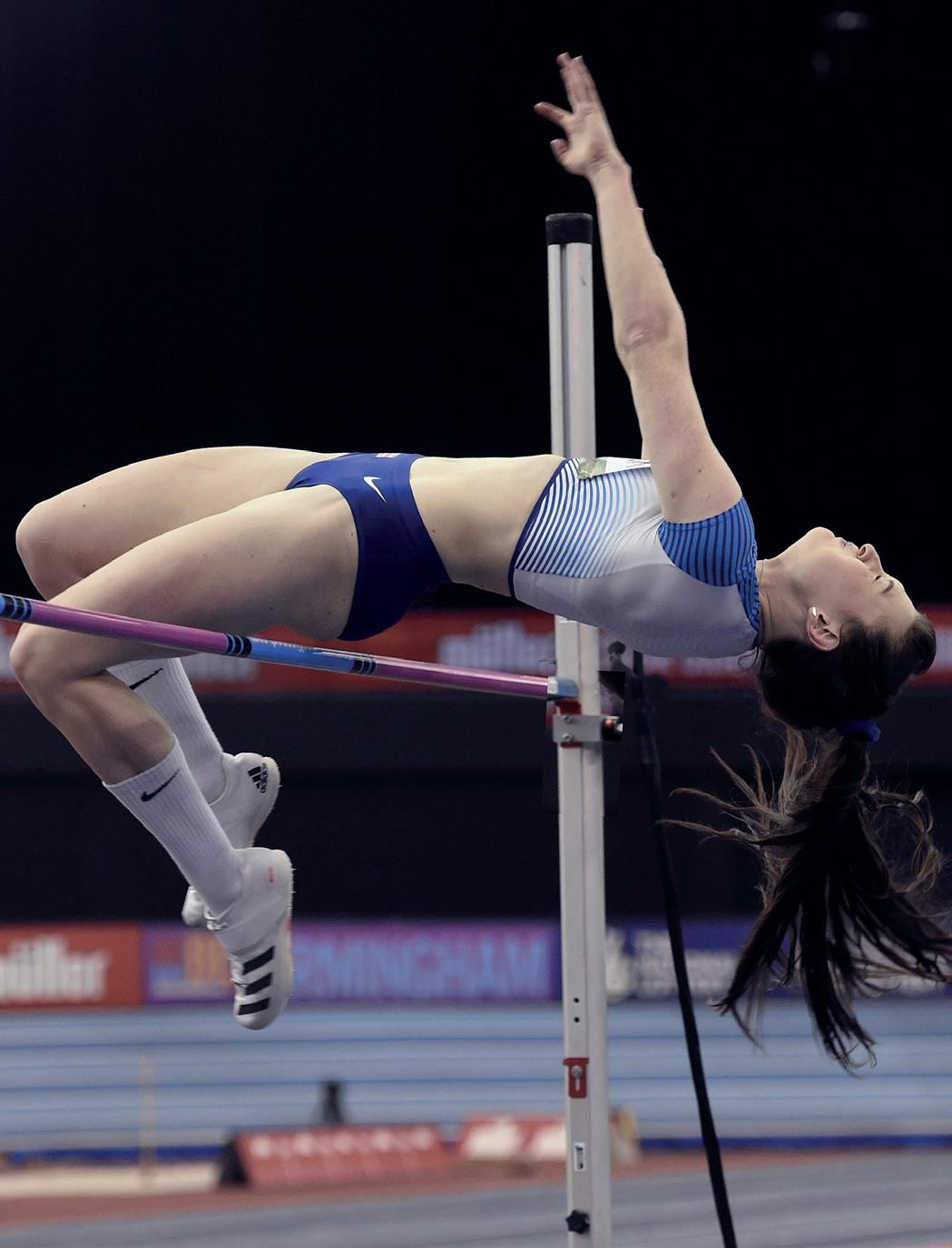
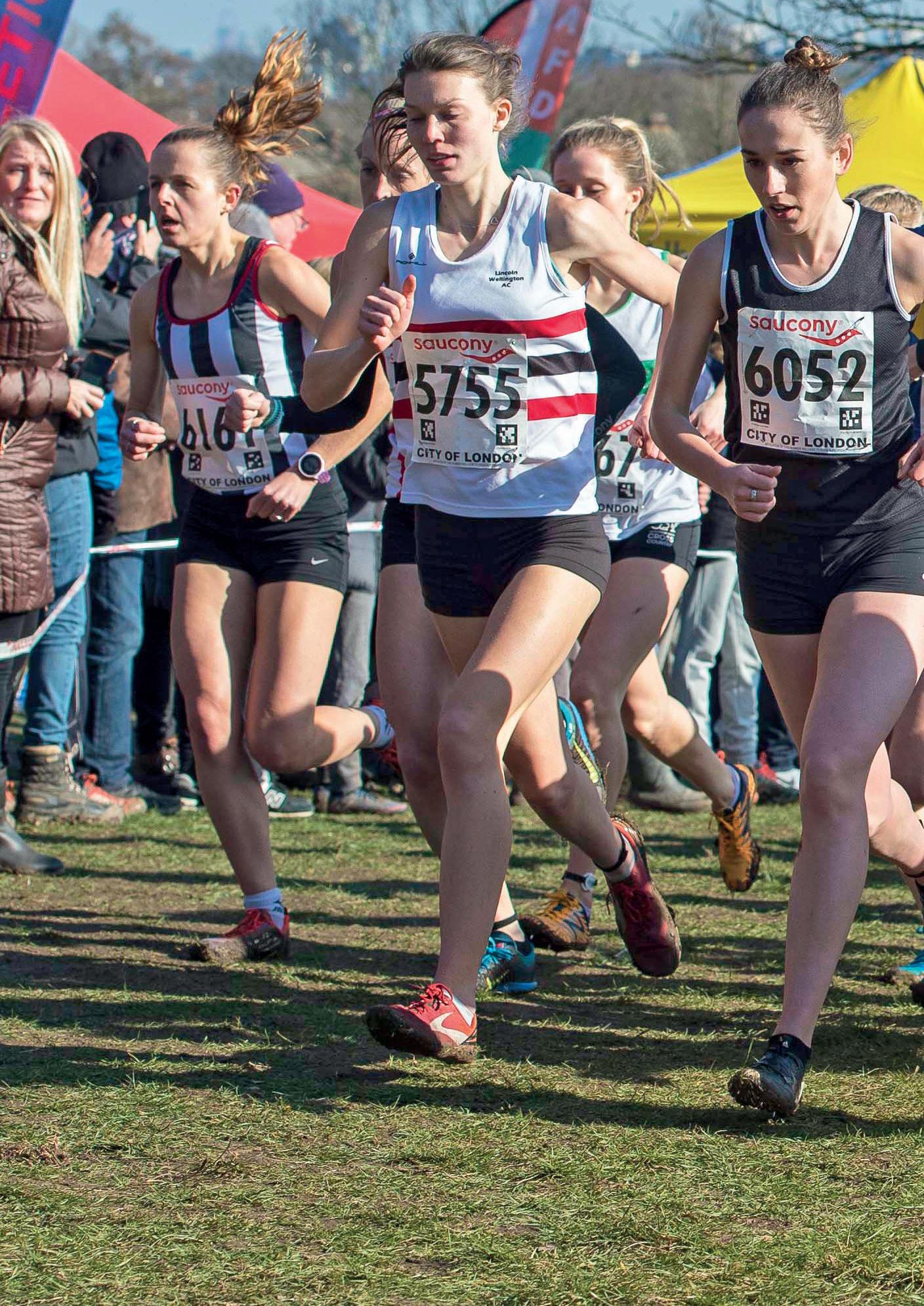
In its strategy, England Athletics outlines an ambition of establishing and nurturing a “worldrenowned infrastructure of athletics and running clubs, competitions and coaches”. At the time of the publication of the strategy, there were 1,800 affiliated clubs and member bodies across the country. Of those, around 30% of clubs were engaging directly with the programmes and services provided by England Athletics. 200 facility providers were also working towards gaining TrackMark – the quality assurance scheme for outdoor athletics facilities – to ensure club environments are as safe and supportive as possible.
When it comes to participation, the strategy details how the total number of regular runners in England “continues to hover around 7 million”. At the same time, the number of registered athletes (those belonging to a club) had reached a high of 190,000 by 2019. The figure, however, had dropped to 142,000 in 2020 due to COVID-19 pandemic.
The strategy sets out targets of having 9 million regular participants in athletics by 2032, with 250,000 registered athletes (affiliated to clubs) by 2032.
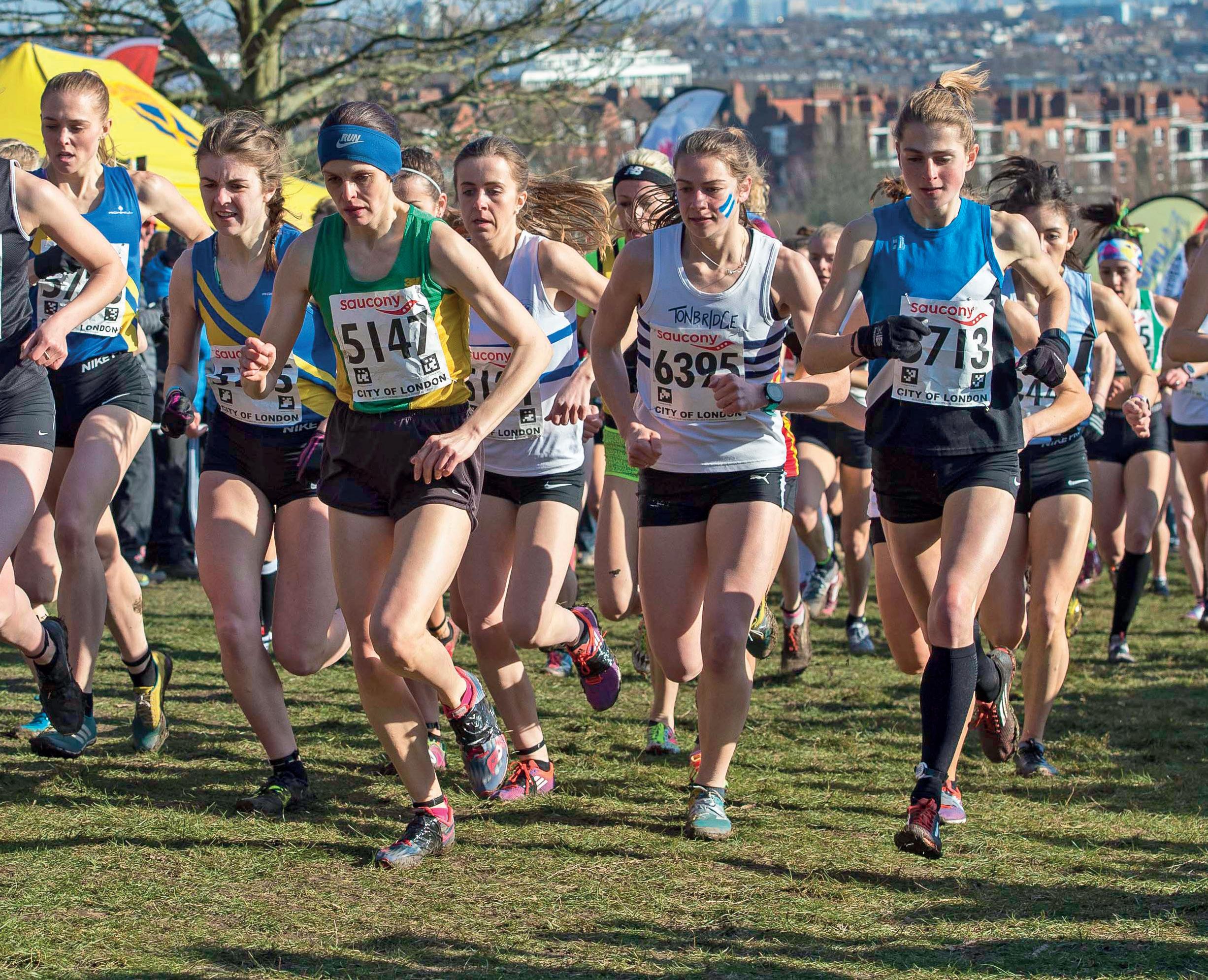
It has now been three years since the strategy’s publication and a recent progress report (December 2023) charts the progress made in the different key focus areas.
Among the biggest success stories is how the NGB has approached hitting its targets across clubs and facilities. By December 2023, England Athletics had already surpassed its annual target of having 1,460 affiliated clubs and 300 affiliated member bodies for the 2023-24 period. A further 15+ clubs are ready to be affiliated in 2024.
There has also been investments in facilities to support the growth in the number of clubs. “We have invested over £1 million per year (since 2021) to develop new and existing clubs,” England Athletics said. “This includes around £100,000 invested into clubs thanks to our 2023 Club Improvement Fund and Facilities Investment Fund which have leveraged an additional £500k. The Club Hub section of our website continues to prove itself as a valuable asset in supporting athletics and running club volunteers, with over 50,000 page views per quarter.
“Separately, the TrackMark process has been completed by 132 tracks around England, including the majority of key competition venues, meaning they meet the quality standards set by UK Athletics. All affiliated clubs are now also working towards our Club Standards, which is particularly pleasing as the welfare of everyone involved in our sport – from participants, to officials, to volunteers – remains a priority for us.”
England Athletics now has 170,000 registered athletes, which represents an increase of 30,000 since 2020. There are also more than 200,000 registered runners and over 3,000 groups on the RunTogether platform.
Importantly, there have also been inroads into making the sport more inclusive and ensuring people of all backgrounds are getting involved in the sport. “We continue our support of Sporting Equals’ British Ethnic Diversity Sports Awards (BEDSA) and Race Representation Index where, in April 2023, we were graded “B” and second across all participating NGBs,” the organisation revealed.
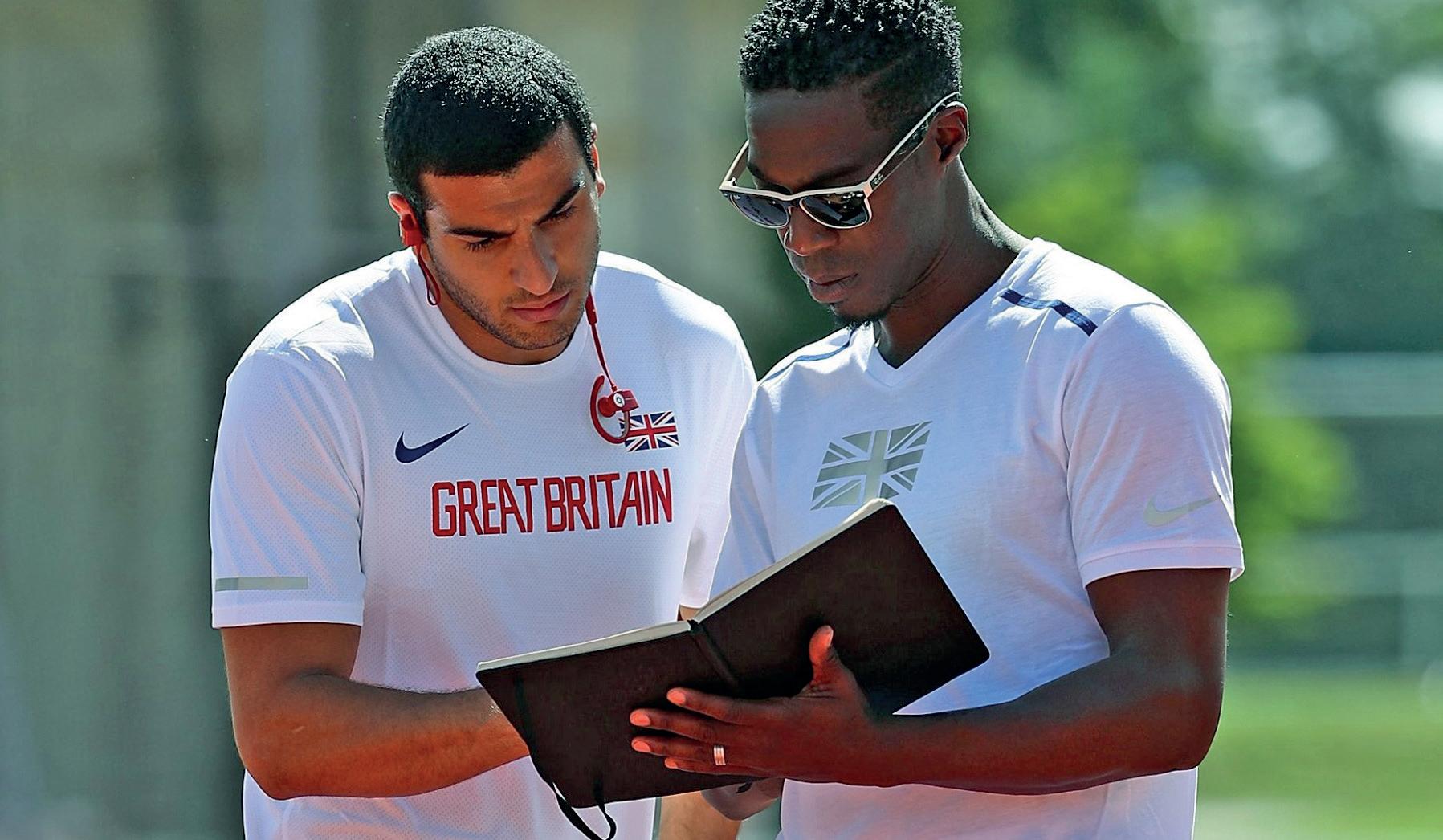
The strategy sets out plans to grow athletics at all levels
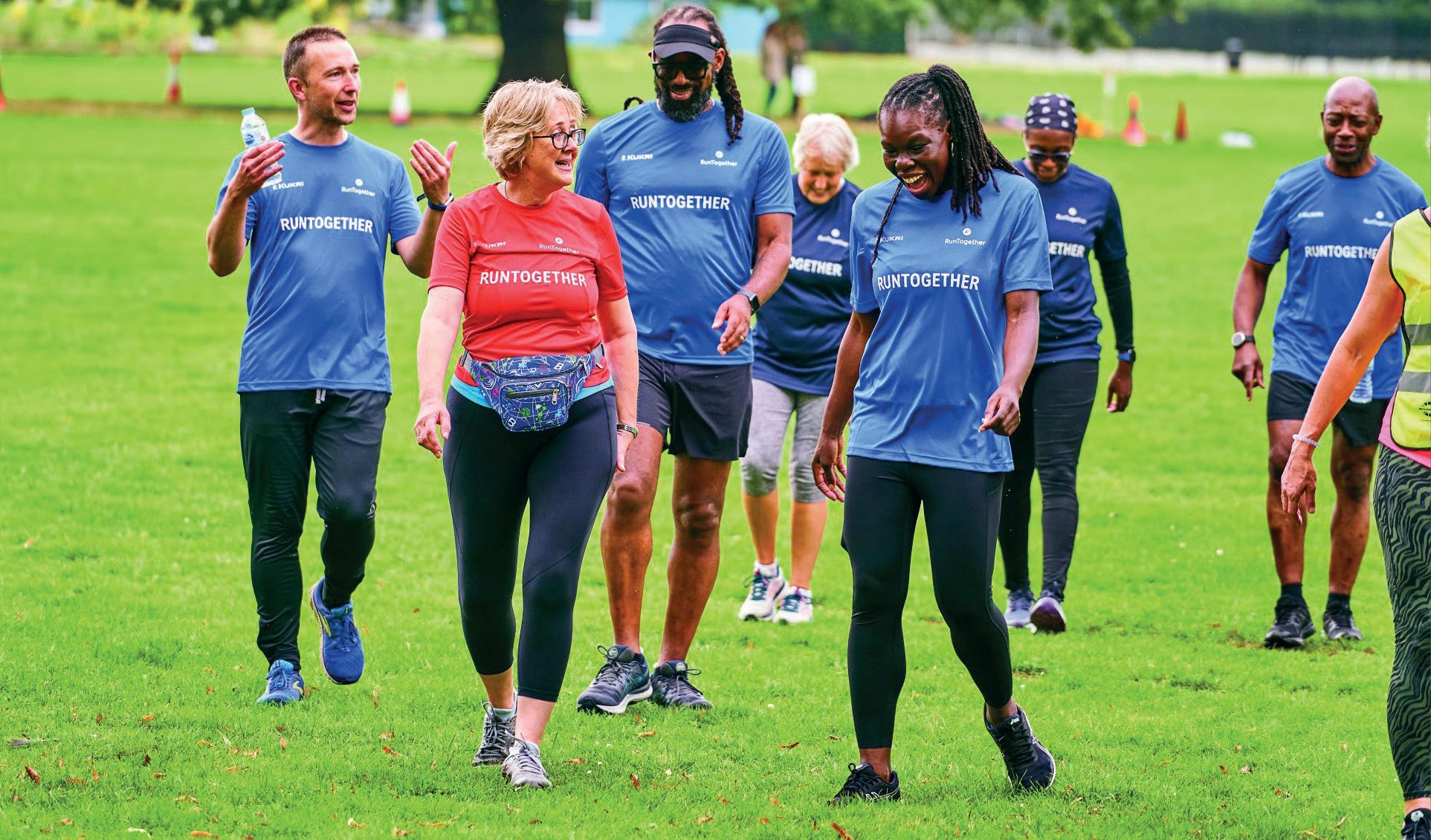
As the “Lionesses effect” has shown – with the number of women and girls’ football teams in England doubling in seven years thanks to success of the national team – role models and inspirational athletes can have a hugely positive effect on grassroots participation. Hence, it is important that there is a established pathway for those showing promise in the different disciplines of athletics.
England Athletics’ strategy outlines an ambition of supporting more people in improving their performances and “feeling the pride of wearing an England vest”, whatever their discipline, background or event group.
“Our focus is on building quality environments at a local and regional level,” England Athletics says. “Since the publication of the strategy, we have supported around 1,000 athletes and paraathletes on the talent pathway and England representative teams in 2023. We are continuing
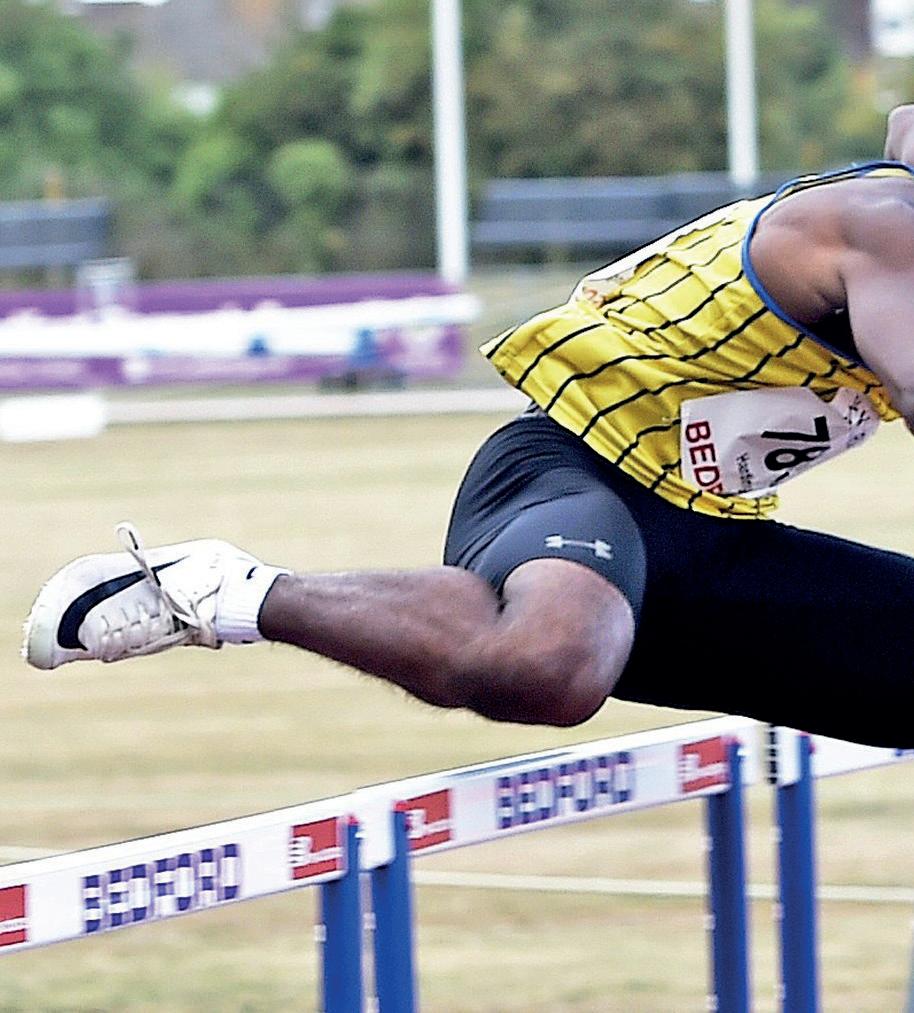
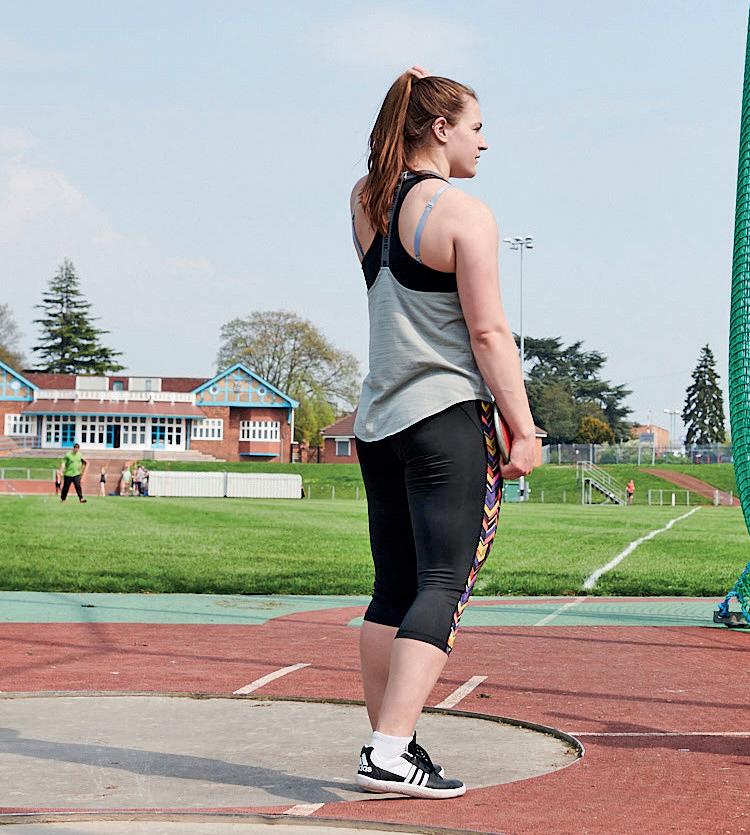
to deliver a structured programme of support for England Teams, while a new talent development plan is in the process of being finalised.
“On the International stage, Team England secured a record-breaking medal haul across the athletics events at the 2022 Commonwealth Games in Birmingham, winning seven gold medals along with 15 silver and 12 bronze.”
As well as providing plans to improve the facility strategy, making the sport more inclusive and increasing participation, the strategy also outlines targets for a range of other areas. One of these is environmental sustainability.
Here, the NGB is on a mission to ensure that a minimum of half (50%) of all clubs are engaged with England Athletics sustainability guidance and initiatives by 2026. This extends to both regional and national events, where it is

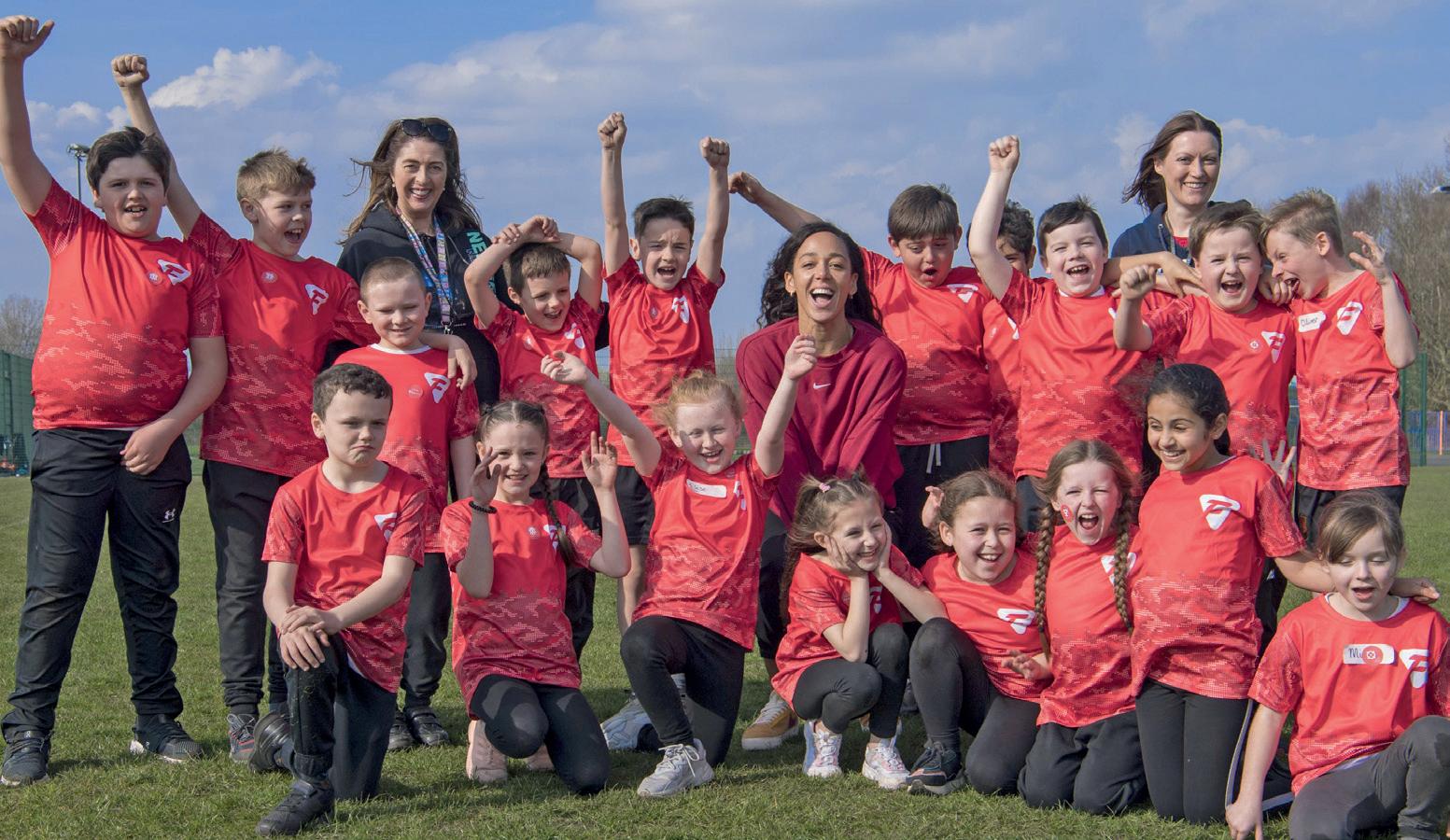
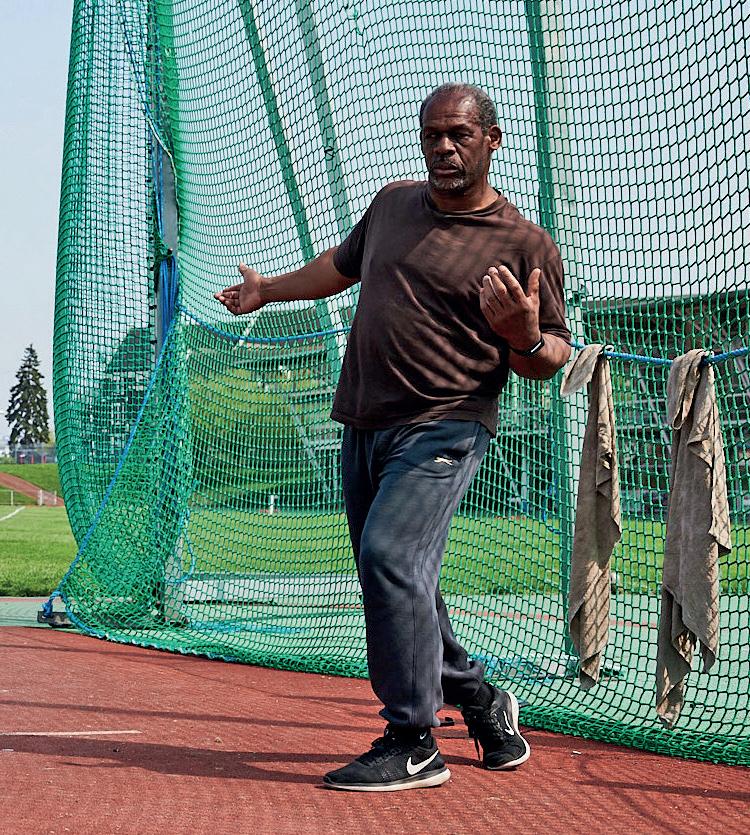
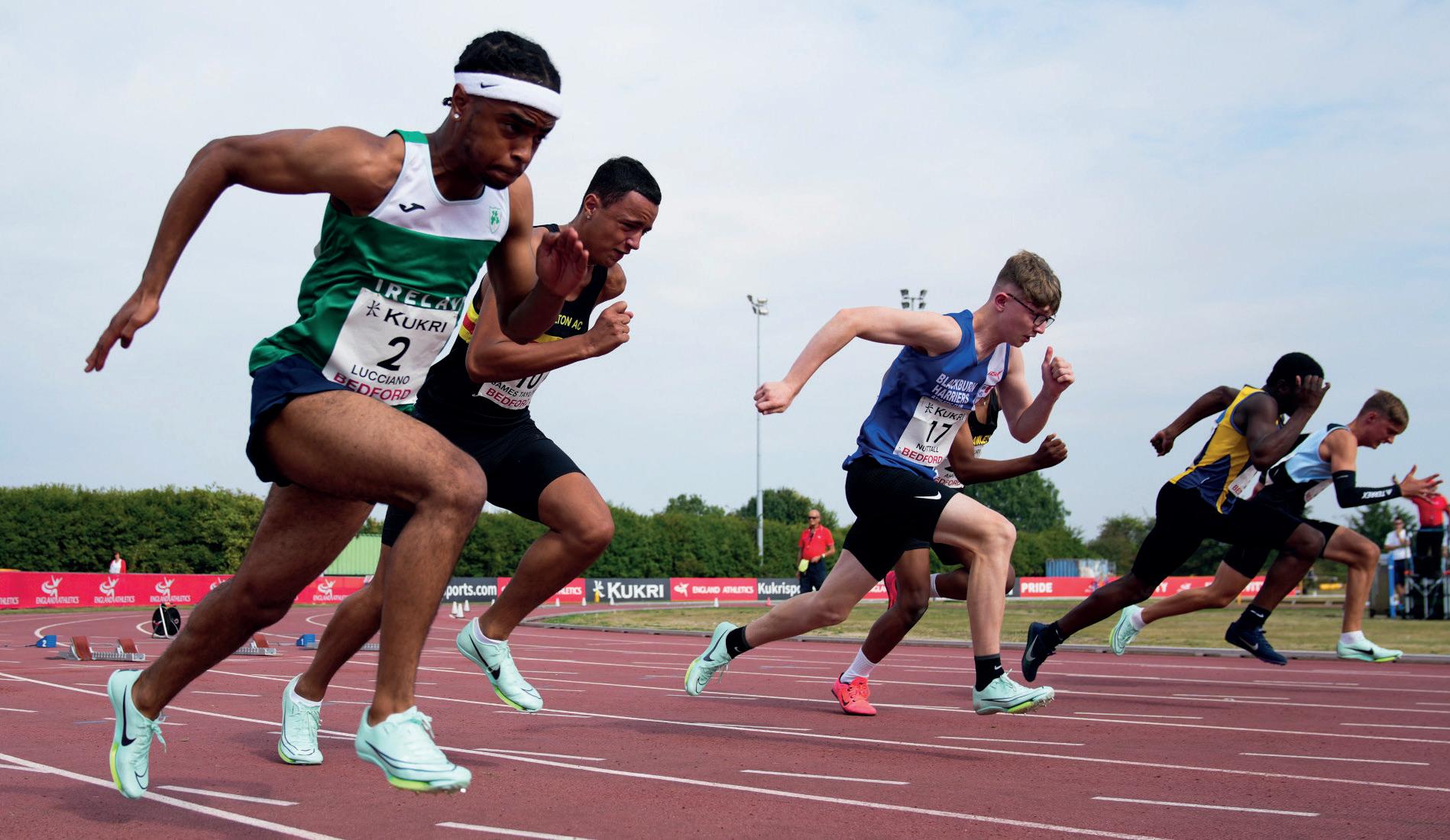
introducing a sustainability indicator, to be used by race directors and competition providers.
Reflecting on the last two and a half years of delivery, Gary Shaughnessy CBE, Chair of England Athletics, said: “I’m happy with the progress we have made against the strategy to date, and we are tracking well to achieve our vision by 2032.
“The board and I are committed to being open and honest with our members, so it was important for us to share a transparent report of our strategy progress. While we have plenty of milestones to celebrate at this point, we acknowledge there is still plenty of work to do and we are mobilising to address the areas where we are falling short.
“Underpinning the key focus areas outlined above is the investment of our income, and I’m pleased to report that we remain financially stable thanks to continual management of our cost base. We are careful to ensure the majority of our revenue is invested back into the direct
delivery of our key focus areas across the sport, and we remain cautiously optimistic about our financial position enabling the success of our strategy. That said, we are not complacent in this area, and we are actively in the market for commercial partnerships to bolster our financial stability and resilience for the years to come.
“To get our sport back on its feet after the COVID-19 pandemic took a gallant effort by everyone involved in athletics, proving that regardless of whether you favour track or road or field, we can achieve more when we move together. We now need to maintain this energy and focus our efforts on enhancing experiences and creating new opportunities in order to really power the potential of our athletes.
“Looking ahead to the next nine years, we have some even bigger goals to achieve, and we are appreciative of the continued and collaborative support of everyone involved in our sport.”
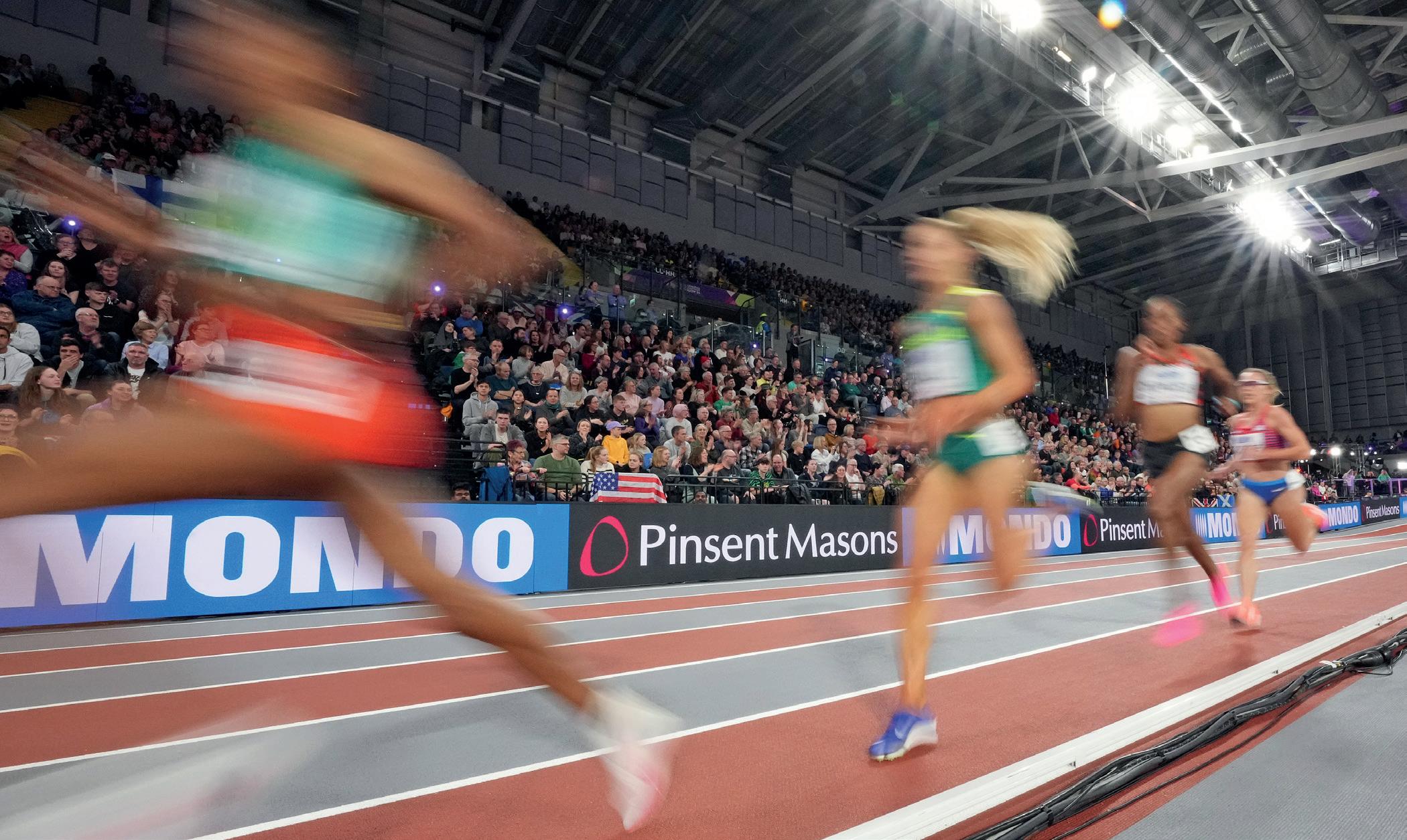
When Devynne Charlton of The Bahamas broke the 60m hurdles world record at the 2024 World Athletics Indoor Championships in Glasgow this March, she also created another landmark statistic. It was the 300th world record to have been broken on an athletics track produced by Mondo. It was in 1972 when the Italian track-and-field surface and equipment specialist celebrated its first world record, in the men’s 4x200m relay in Barletta, Italy where the home team made up of Pietro Mennea, Franco Ossola, Luigi Benedetti and Pasqualino Abeti clocked a time of 1:21.50. Now, 299 world records later, the company is regarded as the best in its own field, tasked with providing athletes with tracks that produce premium performances at some of the world’s greatest sporting events. Later this year, a Mondo track will host athletes at the Paris 2024 Olympic Games.
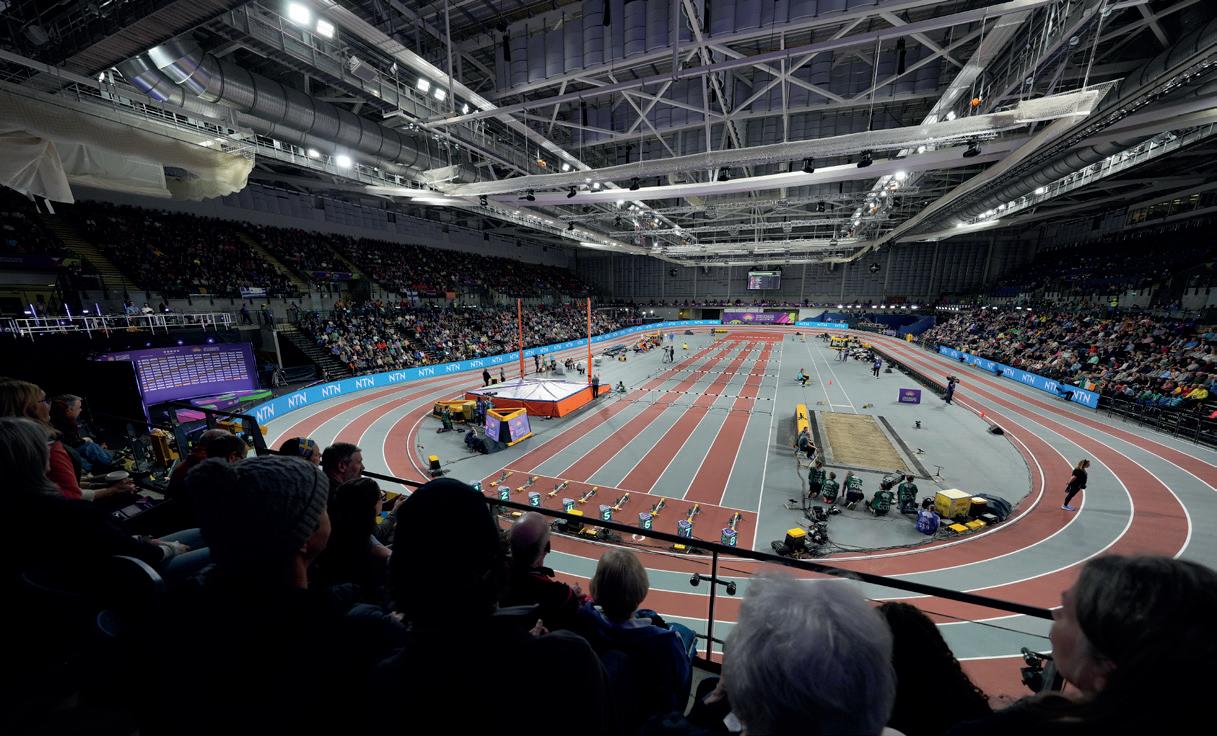
The 2024 World Athletics Indoor Championships, held at the Commonwealth Arena in Glasgow in March, marked a significant landmark for Mondo, the specialist athletics track manufacturer
Based in Alba in the northwest of Italy, Mondo has partnered with World Athletics since 1987. It is now in the process of producing the 17,000sq m track for the Paris 2024. It will have a striking design – the host city requested that the track should be made of three colours: two shades of purple (one lighter, closer to lavender, and the other one darker), and grey, which will be used on the outer side of the track.
The most impressive aspect of the track, however, is what makes Mondo the preferred choice of so many elite events: its ability to provide a comfortable experience for athletes, while still allowing recordbreaking performances. At 42% shock absorption, the track provided for Glasgow 2024 was Mondo’s softest ever for a major event. Yet, it produced overwhelmingly fast results, proving that to achieve speed, a track doesn’t need to be hard.
“Mondo definitely isn’t fast because it is hard,” says Maurizio Stroppiana, vice president of sports at Mondo. “Mondo is super soft and super fast.
“We measure the quality of our work from athletes’ personal bests. If they succeed, it means that our products contributed and allowed them to perform at their best. World records represent the cherry on top of the cake.”
Before the 2024 Olympic Games, athletes will have the opportunity test another Mondo track at the European Championships in Rome, Italy, which will be held from 7 to 12 June.
How Can You Reduce Your Carbon Footprint Without Sacrificing Light Quality?

Get the whole story at musco.com/we/climate-pledge-arena/
“Musco is an industry standard. In my world, it’s the go-to for any project of this size and signi cance.”
–R andy Foster Director of Production
Musco’s TLC for LED® sports lighting system helps stadiums, arenas and facilities of all sizes achieve their sustainability goals without sacrificing light levels, light quality, and overall reliability.
In fact, Musco recently helped Climate Pledge Arena—home to the Seattle Kraken of the National Hockey League (NHL) and the Seattle Storm of the Women’s National Basketball Association (WNBA)—become the first certified net-zero carbon arena on the planet.
















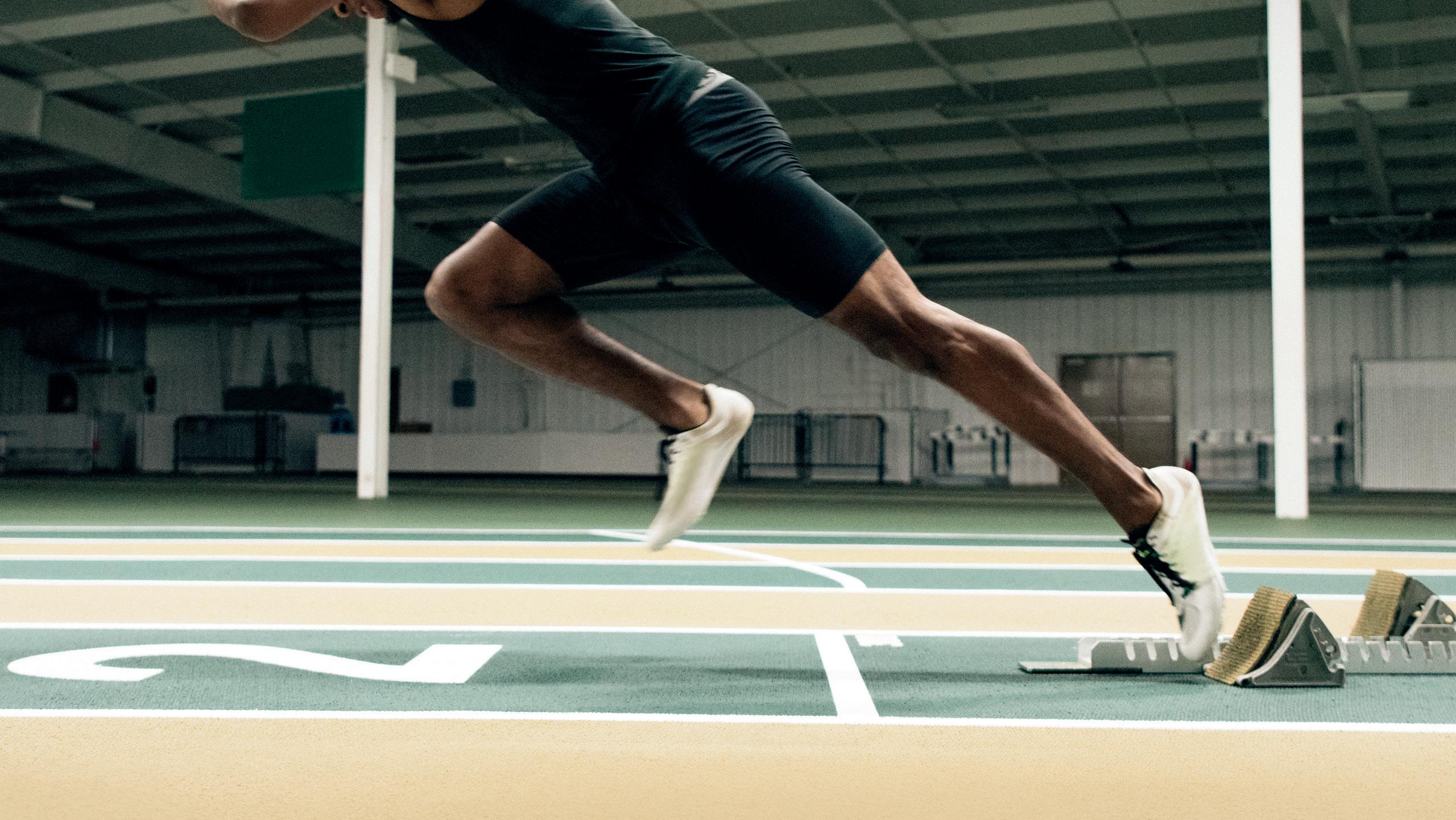



If you’ve walked into a new leisure centre, which doesn’t look much like a traditional leisure centre, the chances are that Alliance Leisure has had a hand in it. Serving the industry for 25 years, the leisure development specialists are behind some of the most exciting, forward-looking physical activity spaces in the public sector today. From climbing walls and interactive assault courses to tenpin bowling and even spas, the company is reshaping the public leisure landscape. At its helm are two industry stalwarts – CEO Sarah Watts and MD Paul Cluett – with a passion for the transformative power of public sector facilities on the health and wellness of individuals, communities and the nation as a whole.
SW: I launched Alliance Leisure in 1999 after the birth of my third child. I’d been working at Bristol City Council as the Assistant Direct Services Organisation Manager for five years and had seen how ageing leisure centres were starting to fall out of favour with the public. These facilities, typically comprising a sports hall,
swimming pool and gym, were dated and uninspiring. They were losing ground to private health and fitness clubs offering more exciting and relevant facilities. I was sure there was a way to help local authorities evolve their centres to keep pace with trends and better align themselves with what the public wanted. The result was the launch of Alliance Leisure offering funding mechanisms to local authorities to enable them to develop their leisure facilities. Our first project was securing £1 million for Hull City Council, stepping in after their funding for three leisure centre refurbishments unexpectedly fell through.
SW: After a few years, funding became much cheaper to access thanks to the launch of the Public Works Loan Board (PWLB). It marked a crossroads for the business. In addition to providing financing, we’d been refurbishing and re-purposing facilities for some years, mainly modernising gyms and converting underutilised squash courts into more usable, revenuegenerating spaces such as soft play. With the launch of the PWLB, we pivoted the business to become the industry’s first specialist development partner.
With Paul Cluett joining us in 2008, we’ve evolved to become the UK’s leading expert in public sector leisure development. Our journey has been peppered with industry firsts, including building the first public sector spa for Pendle Leisure Trust and Europe’s first Flight Tower with multiple descents, including a zip line and free fall, as part of a £5 million redevelopment of Salt Ayre Leisure Centre for Lancaster City Council. We also delivered the £17 million destination waterpark SC2 in Rhyl for Denbighshire Leisure.
Alliance has delivered 130+ projects through the UK Leisure Framework in the past five years


PC: Being appointed as the leisure development partner to the UK Leisure Framework (UKLF), which is owned and managed by Denbighshire Leisure Ltd (DLL), has truly been a game-changer for us. We’ve seen the value of our projects increase from averages of £1-2 million to projects now in excess of £40 million.
As the UK’s first development framework dedicated solely to leisure, the UKLF offers a comprehensive solution for leisure developments, and with a framework cap of £2 billion we envisage delivering many more projects over the next few years. Open to all UK public sector organisations, it helps mitigate investment risk by utilising expertise in leisure regeneration and maximising efficiencies throughout the development process. Streamlining the traditional design and build process, the framework avoids the competitive tender process. This can reduce procurement time by as much as six months allowing local authorities to make efficiencies in the early stages and reduce inflation costs.
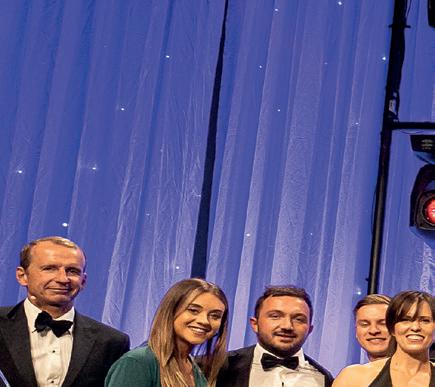
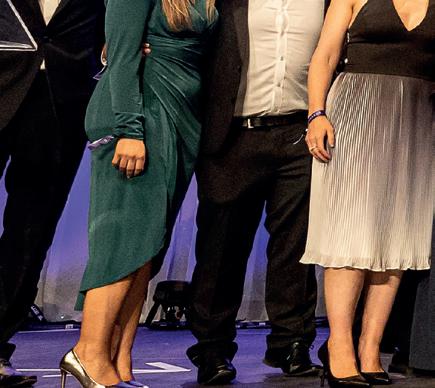
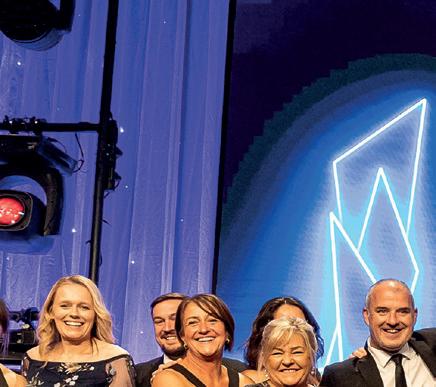

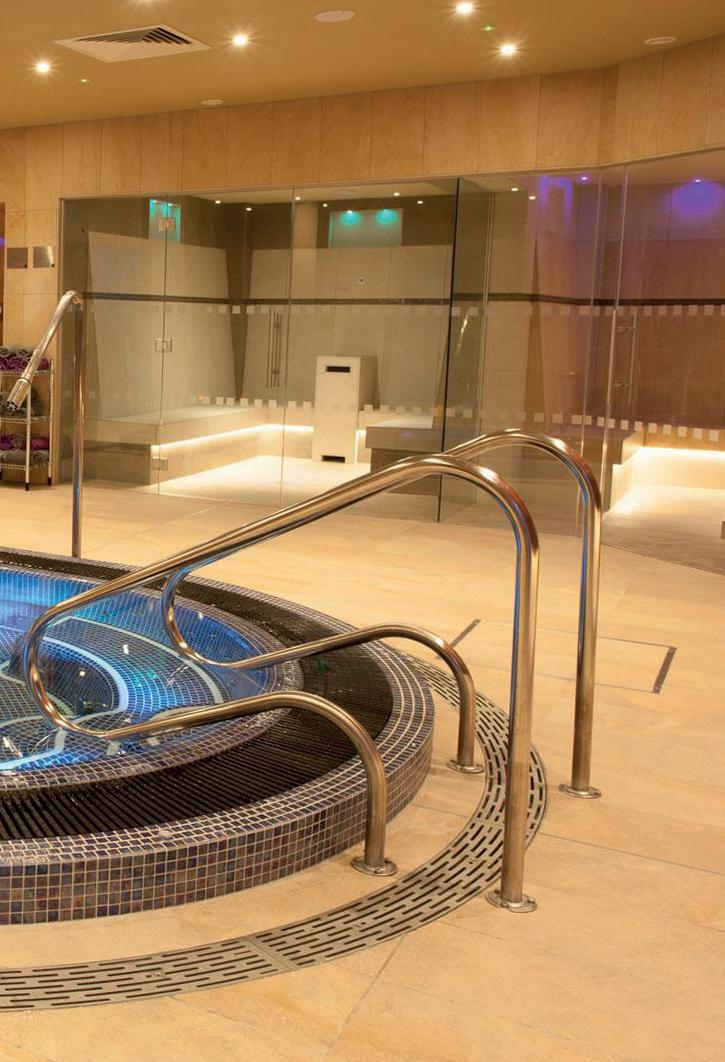
All suppliers appointed to the UKLF have extensive experience in the leisure industry, so decisions, designs and execution are all informed by years of best practice. The framework also takes a holistic approach, supporting all aspects crucial to successful and sustainable leisure development, including design, business planning, funding, construction and marketing.
Over the past five years alone, we have delivered over 130 projects through the UKLF, with an additional £500 million currently in development, planning or construction phases. Many local authority teams are thinly stretched and adding a multimillion pound leisure development project to their workload is often beyond their capacity. Under the UKLF, we lead project delivery from concept to completion and even in the months beyond, through our TA6 support team to ensure facilities are successful and sustainable in the long term.

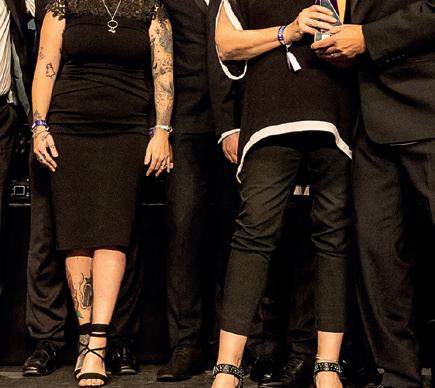
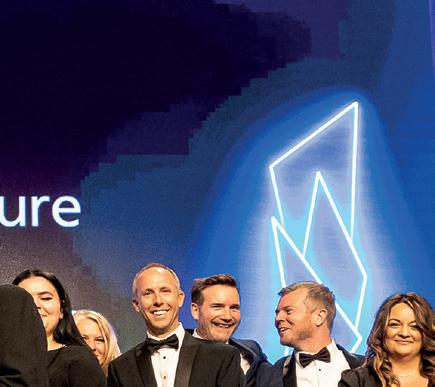
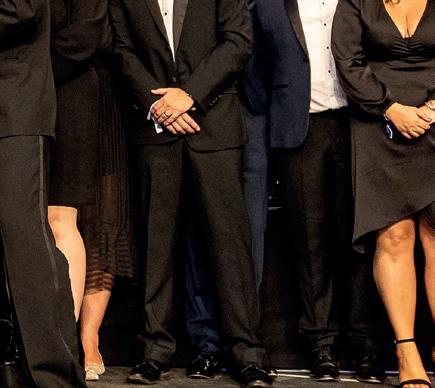
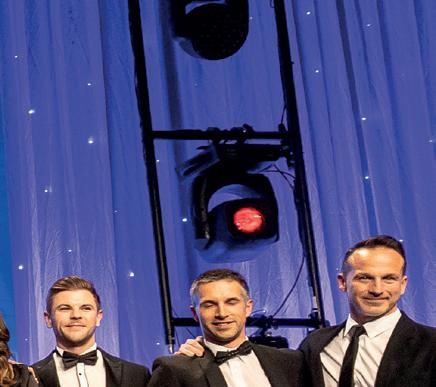
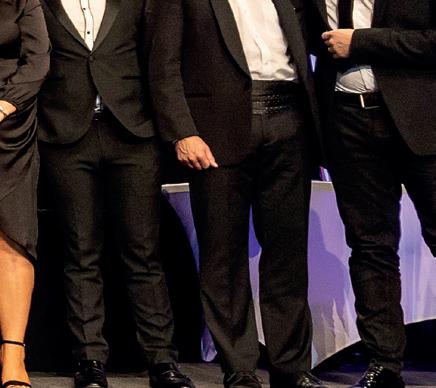


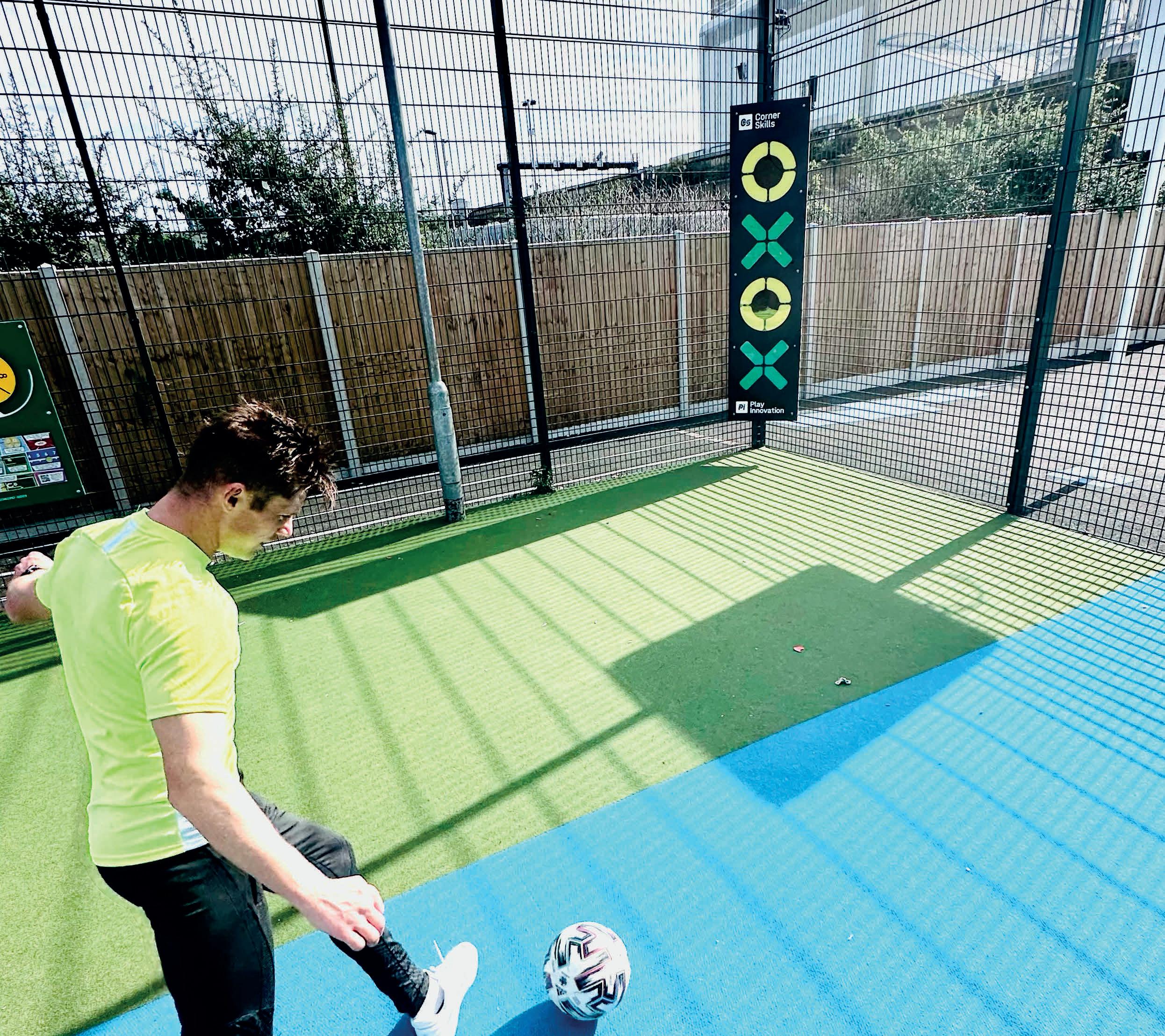
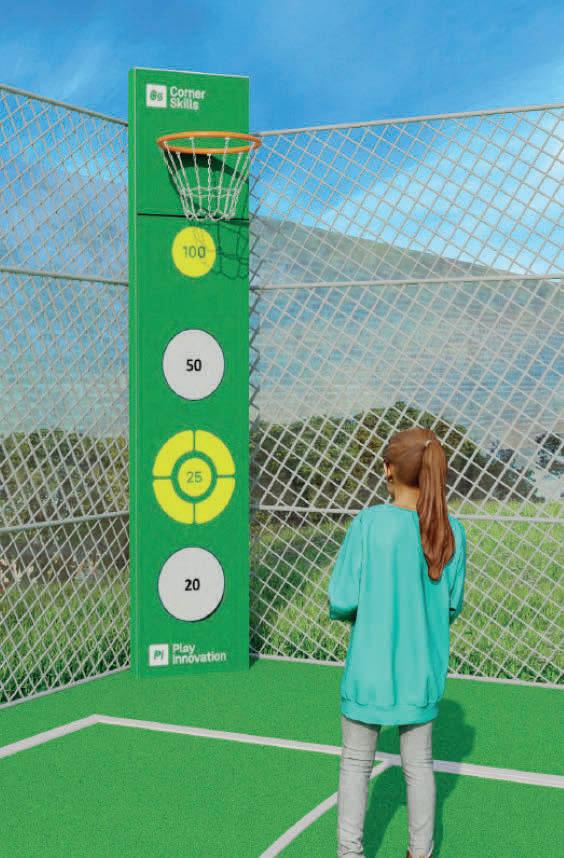
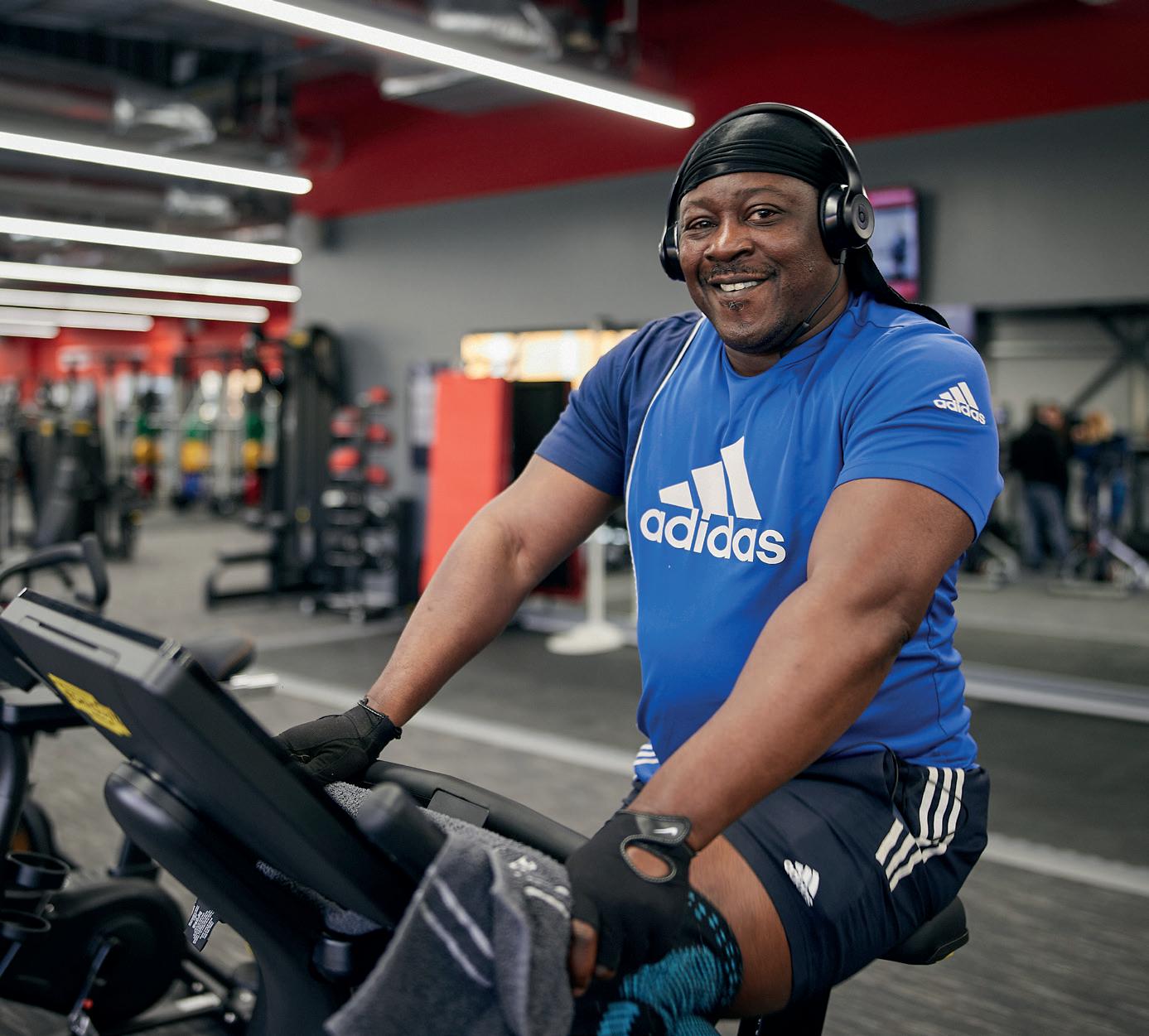
What projects are you most proud of?
SW: There are lots of projects that make me proud, but the redevelopment of Pendle Wavelengths in East Lancashire in 2007 is particularly special. The project included Inside Spa, the first spa to be offered in a public sector leisure facility. Back then, spa was still in its infancy and considered exclusive, certainly not something to be found in one of the most deprived areas of the UK. It was high risk, but Inside Spa proved hugely successful and went on to win numerous awards. It marked a new era for health and wellness in the public sector.
PC: Like Sarah, I can name many projects that are memorable for their innovation and impact, but what I’m most proud of is the lifeline we offer leisure services by improving the efficiency and sustainability of their facilities. Sarah mentioned SC2 earlier which was a brand new waterpark on the sea front in Rhyl that played a critical role in Rhyl’s wider waterfront regeneration. The first of its kind for local leisure provision, it included a large indoor waterpark with thrill seeking rides, an outdoor splash pad, food and beverage outlets, as well as the first TAGActive indoor assault course in North Wales and the UK’s first JuniorTAG. The success of this and our other projects demonstrate that redevelopment and reinvestment in leisure provision can yield economic, health and social cohesion benefits for communities, offering an invaluable return on investment. With extensive research and consultation – both with users and non-users – we create centres with a facility mix tailored to community need, that appeal to a broader population base and are economically viable.
Alliance has delivered 250+ projects with an investment value of over £370 million

We are a tight knit community and I’m proud that we have been able to maintain a sense of family as the business has grown
What does the future look like for Alliance Leisure?
PC: The sector is increasingly aligning with health and wellbeing, and the spaces we create are reflecting this change. That goes beyond adding a consultation room here and there; it’s about developing centres that truly reflect local need with a range of relevant health, wellness and activity services to offer something for everyone in that community.
SW: I always say my greatest achievement is my three daughters, but Alliance Leisure is my fourth child. Since launching the business 25 years ago, we have delivered more than 250 projects with an investment value of over £370 million. With a current turnover of £100 million, we are on track to reach £150 million next year. This level of success only comes with a strong team. Both Paul and I actively nurture talent and strive to create a culture which empowers people to thrive.
We are a tight knit community and I’m proud that we have been able to maintain a sense of family as the business has grown. Our focus now is on steering Alliance through this next stage of growth, while upskilling key members of the team to ensure its continued success in the future.

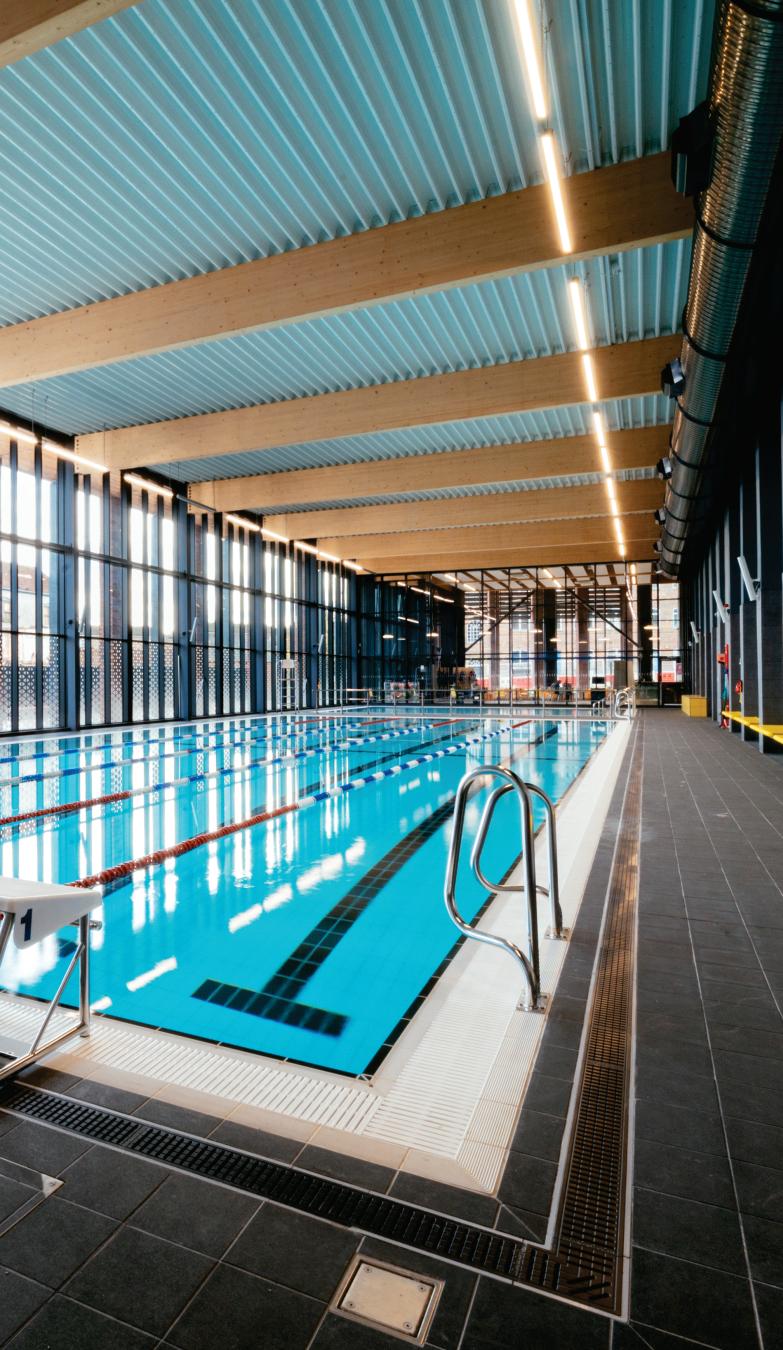
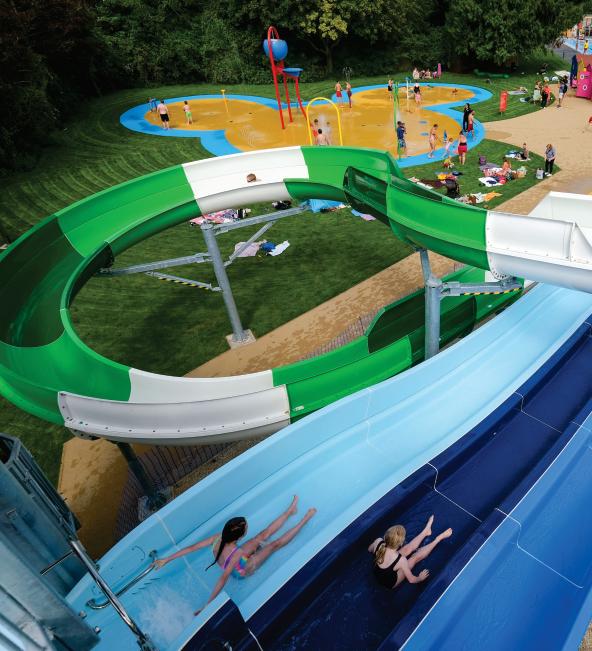
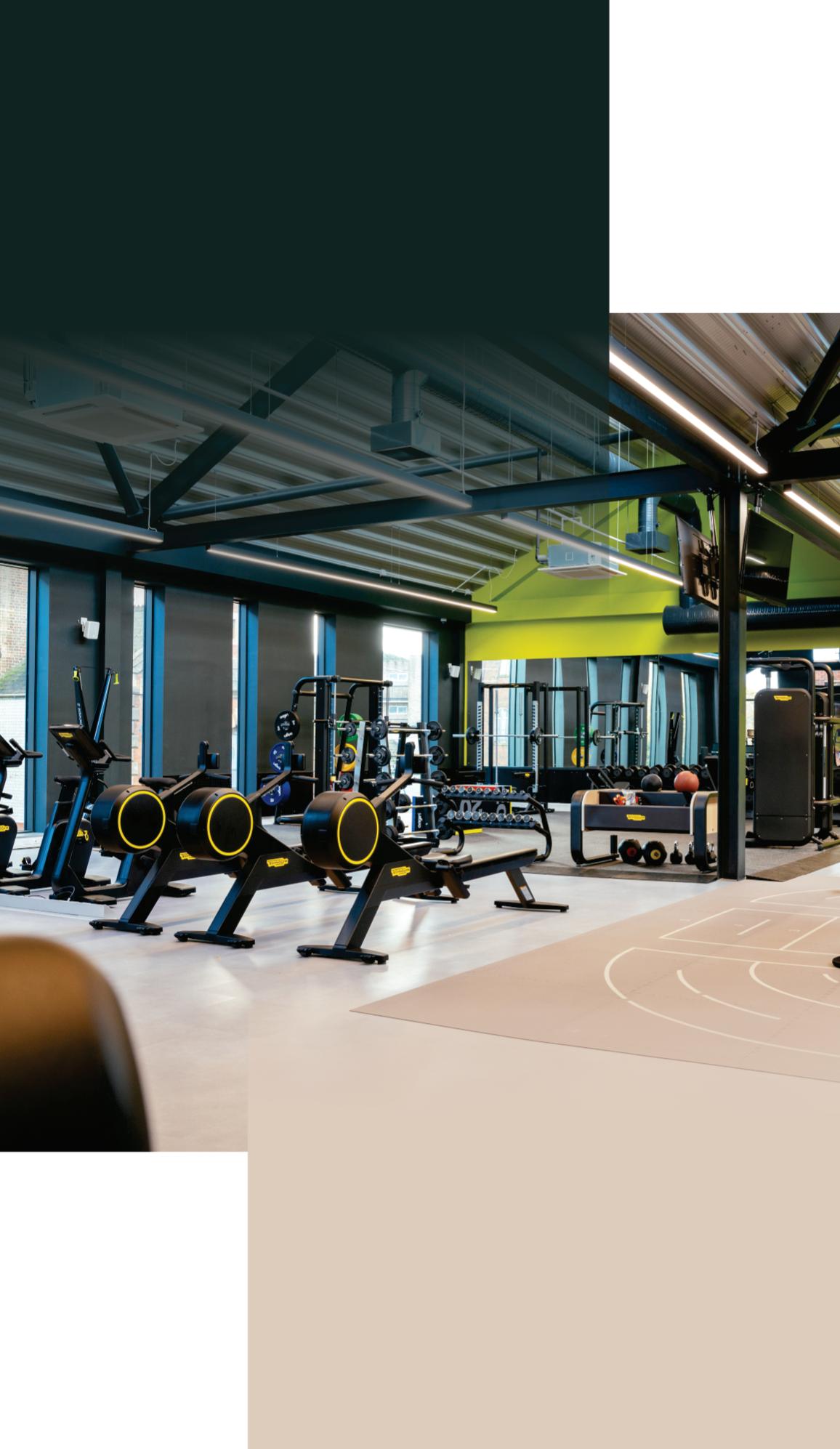



Sport and physical activity can have a hugely positive impact on society, from improving the physical and mental health of individuals to providing social connectedness within communities. An oft-quoted figure is that every pound invested in community sport and physical activity generates four pounds in social and other values. According to estimates, sport and physical activity delivers an annual contribution of £85.5bn to the UK economy. Yet, that figure could be much higher. Sport England’s Active Lives reports – and their predecessors, the The Active People Surveys – have shown that activity levels have remained stubbornly stagnant for decades. The proportion of people deemed inactive (those who fail to achieve 30 minutes of moderate intensity physical activity per week) currently sits at around 25%.
Should we come up with new ways of utilising spaces, in order to finally shift the dial on physical inactivity?

Physical inactivity isn’t a UK problem, however. A global report by the Active Healthy Kids Global Alliance compared 57 countries from six continents to assess global levels and trends in child and adolescent physical activity. It showed that children and adolescents around the world are not moving enough to promote healthy growth and development, and the COVID-19 pandemic


only made matters worse. This is partly down to modern lifestyles – including increases in digital screen time, the growing urbanisation of communities and the rise in automation of previously manual tasks.
A lot of money and effort has been spent on different types of participation programmes to get people more active. These often target particular groups of people who are at a disadvantage when it comes to opportunities to take part. Investments have also made in creating new – and improving existing – facilities.

But if these efforts are having limited success.
Sport England figures show a 1.3% increase in adult participation in the seven years between 20152022 – and the growth is nearly entire thanks to increases in active travel, cycling and walking. So, should we be looking at different types of facilities? Could it be that changing societies need new ways of thinking when it comes to facilities? New ideas to encourage more people to be active? Perhaps the designs of spaces and facilities should be aimed, even more, at providing entirely new, equitable, accessible, inclusive, flexible, and attractive places?
SportsNation collected some examples of fresh, innovative ways of getting people active. They range from a clever use of new technology to a solution that removes screens and technology entirely.


I thought we could use this laser technology to introduce a gaming-like scenario within actual sports

Kenfig Table Tennis Club (KTTC) in Wales is using modern laser technology to help make the sport even more appealing to young people. The club, launched in 2022, has players from 10 years-old up to seniors, but the majority are aged over 60.
Thanks to Sport Wales’ Be Active Wales Fund – which uses National Lottery moneyKTTC can now incorporate laser guided play into their sessions. Laser table tennis uses a three colour laser to project graphics and animation onto a table tennis table. It can be used as a training aid to direct the player and use graphics to show where to play the ball.
Simon Lau, Kenfig Table Tennis founder, said: “People have the impression that kids are stuck in their bedrooms, gaming on the phone or on a computer. I thought we could use this laser technology to introduce like a gaming scenario within actual sports.”
KTTC received £9,354 from Sport Wales for the project. As well as funding equipment, including a laser scanner and computer, the money has also been used to buy new table tennis tables.

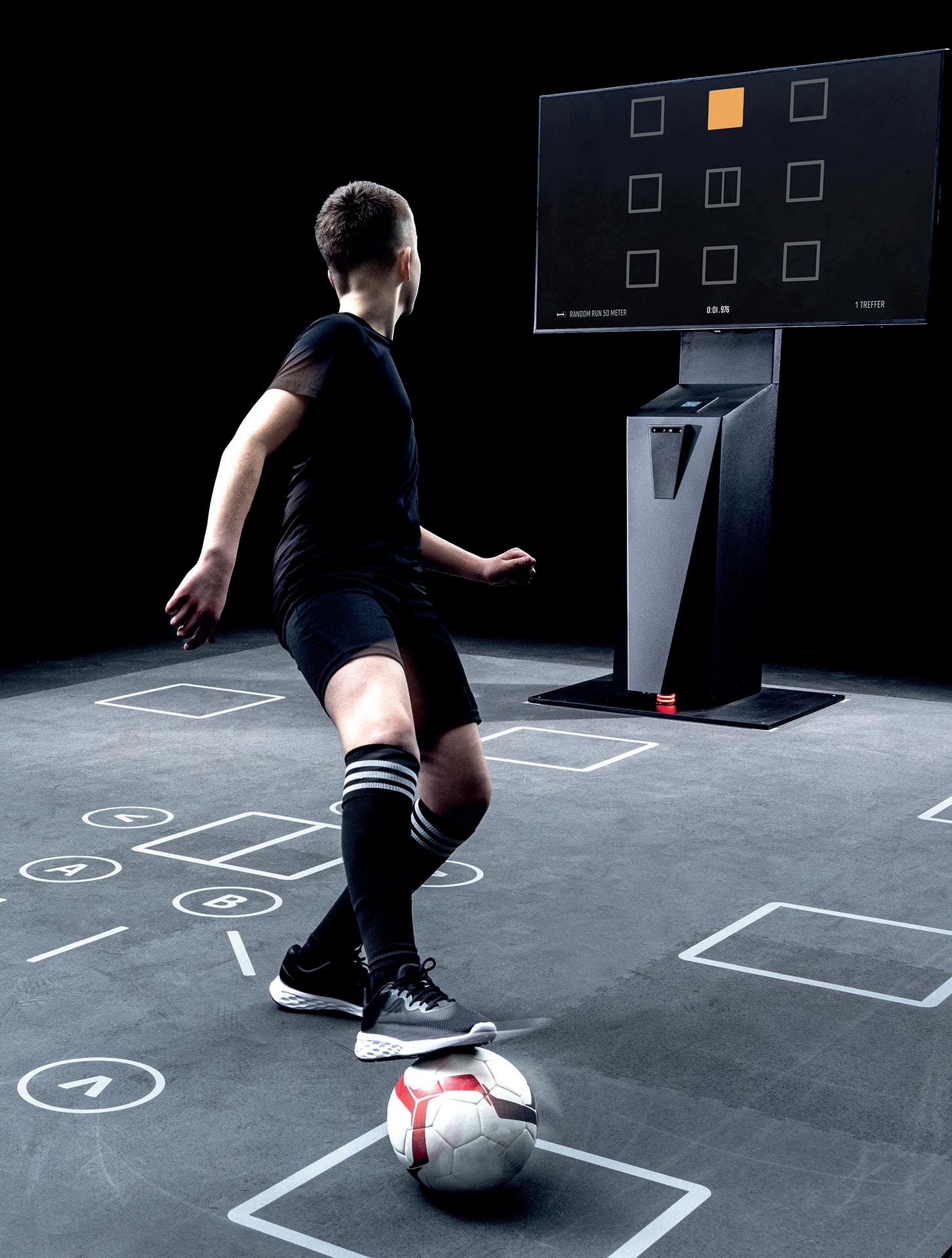
Our solution can help develop a wide range of skills, from reaction times, power, agility and endurance
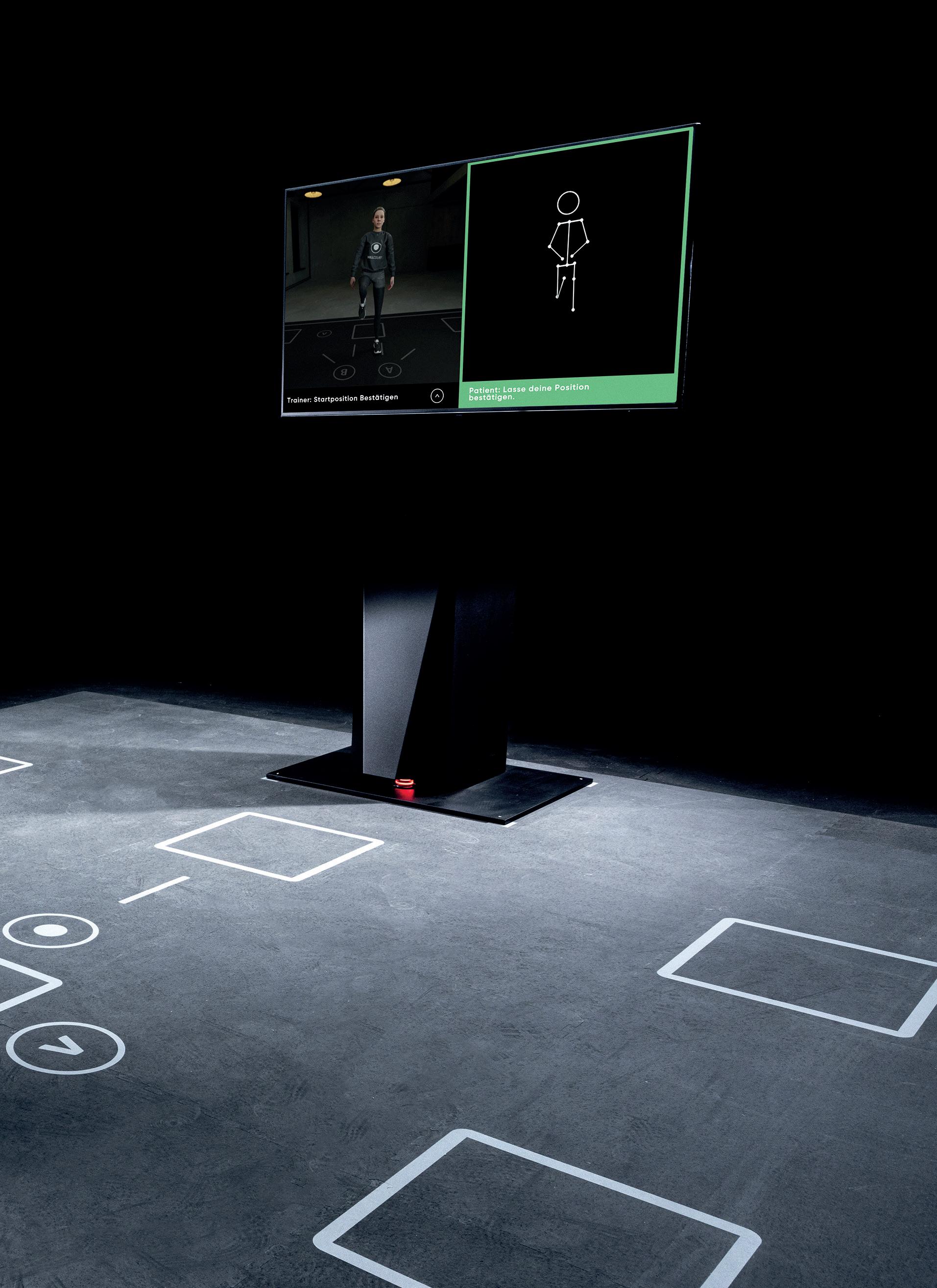
SkillCourt, which launched on the UK market earlier this year, has been designed to combine elements of visual, cognitive, and motor skills in order to create an effective – but fun – brain training system. Described as a “laser-based training and diagnostic tool”, the aim is to promote both motor and cognitive development in athletes and children – as well as patients in medical settings.
By programming games and building games, SkillCourt gets people moving by having them solve cognitive, visual and motor tasks in an engaged way using tech and gamification. It features several artificial intelligence (AI) and other types of sensors to precisely record the movement of people in space, allowing targeted exercises, tests and training options.
With flexible installation options, SkillCourt can occupy any area sized between 3m x 3m and 20x20m. It can also be installed on pretty much any type of surface.
“The brain is essential for interacting with the environment,” SkillCourt says. “Our solution can help develop a wide range of skills, from reaction times, power, agility and endurance to troubleshooting and decisionmaking. That’s why it not only gets people active, but can also help people to learn actions, from crossing the street safely to making the right decisions in sports.”
Play Innovation has created a selection of target games, designed to provide innovative, inclusive and educational physical activity opportunities. The games can fit to almost any existing rigid fence or wall and require a space of just 5m x 4m.
“The purpose behind our Target Games is to make a difference to people’s lives, promote key life skills and positive outcomes whilst having fun, without the use of electronics,” says Marco Boi, Play Innovation founder.
“The range includes games such as Street Snooker X, Crossbar King, Street Pool and Tennis Star games, which have all been created to enhance various essential life skills, from goal setting and concentration to strategic thinking.
“The games can be added to any MUGAs and other sports and play areas, transforming them to true multi-activity spaces.”
One of the latest additions to the innovative games is the Corner Skills range. Corner Skills have been designed to maximise space in existing MUGAs or ball courts. Utilising available space – such as corners and other “dead spaces” within play areas and ballcourts – Corner Skills inspire children to be physically active and encourage them to use their imagination to create their own versions of how to play the games.

The games can be added to any MUGA and other sports and play areas, transforming them into true multi-activity spaces
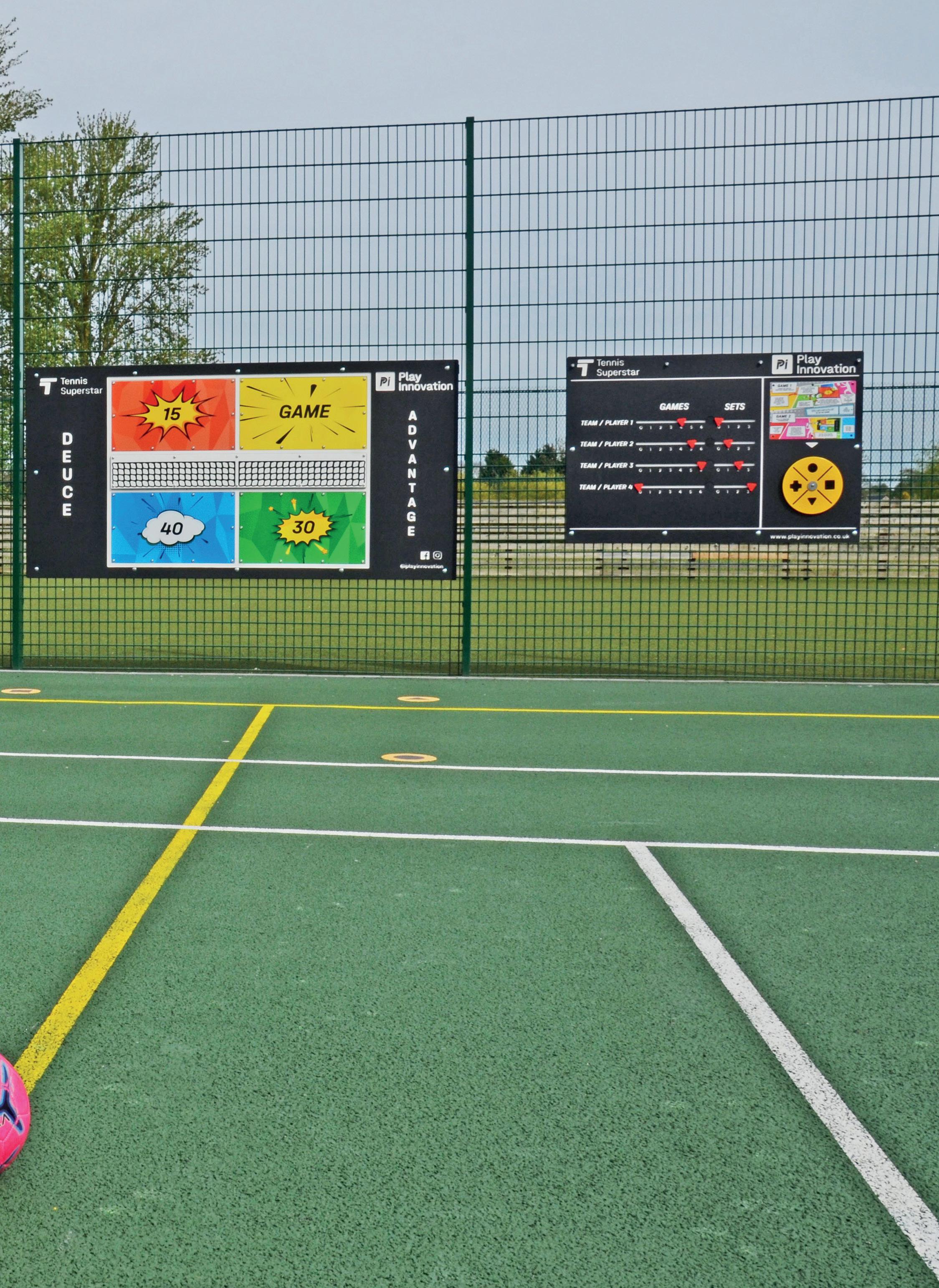
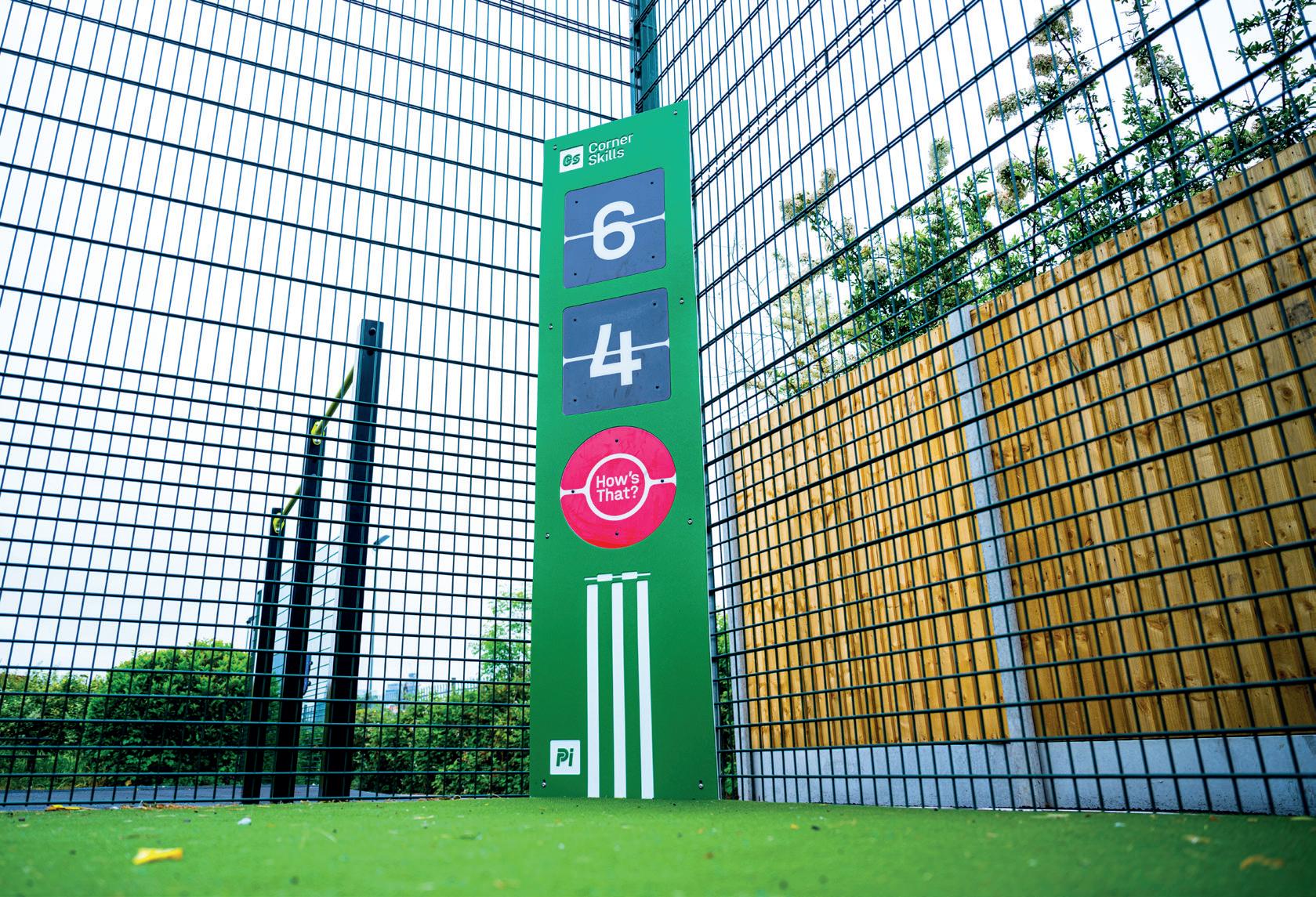
CASE STUDY
Lü interactive playground utilises tech to encourage physical activity and socialisation
Lü produces audio visual systems designed for active environments. Each system includes a projector, a movement detection camera and a light and sound module to create immersive, interactive spaces where children can get physically active while learning new skills.
There are three options, ranging from two permanent set ups – Lü Üno and Lü Düo – to the mobile Lü Möbil.
Each Lü system includes:
l High definition 5,200 lumens encased laser projector allowing for a 12ft by 19ft giant projection.
l Movement detection camera allowing interaction with the projection.
l Multi-coloured LED lighting system with moving lights providing ambiance for Lü’s interactive content
l Powerful 2,400 watts, dual speakers high quality sound system

Children who otherwise do not move much at all are the ones we can really engage with Lü
l Microphone headset allowing to cast a voice on the sound system l Internal computer with device mirroring capacity
“The Lü transforms the room into a completely different world,” says Christoph Wulf, children’s sports coach at SC Bayer 05 Uerdingen – one of the clubs that uses the system.
“Children can become characters that they usually play at home. It really complements the sports lessons extremely well and the children who otherwise do not move much at all are the ones we can really engage with Lü.”
The AMNIS Series is the DarkSky accredited high-performance flood light designed to provide powerful illumination for sports grounds, while minimising light pollution and alleviating obtrusive light.
End-to-end project solutions
Bespoke control systems
Full lighting design service
DarkSky Accredited flood lights
Installation & maintenance packages
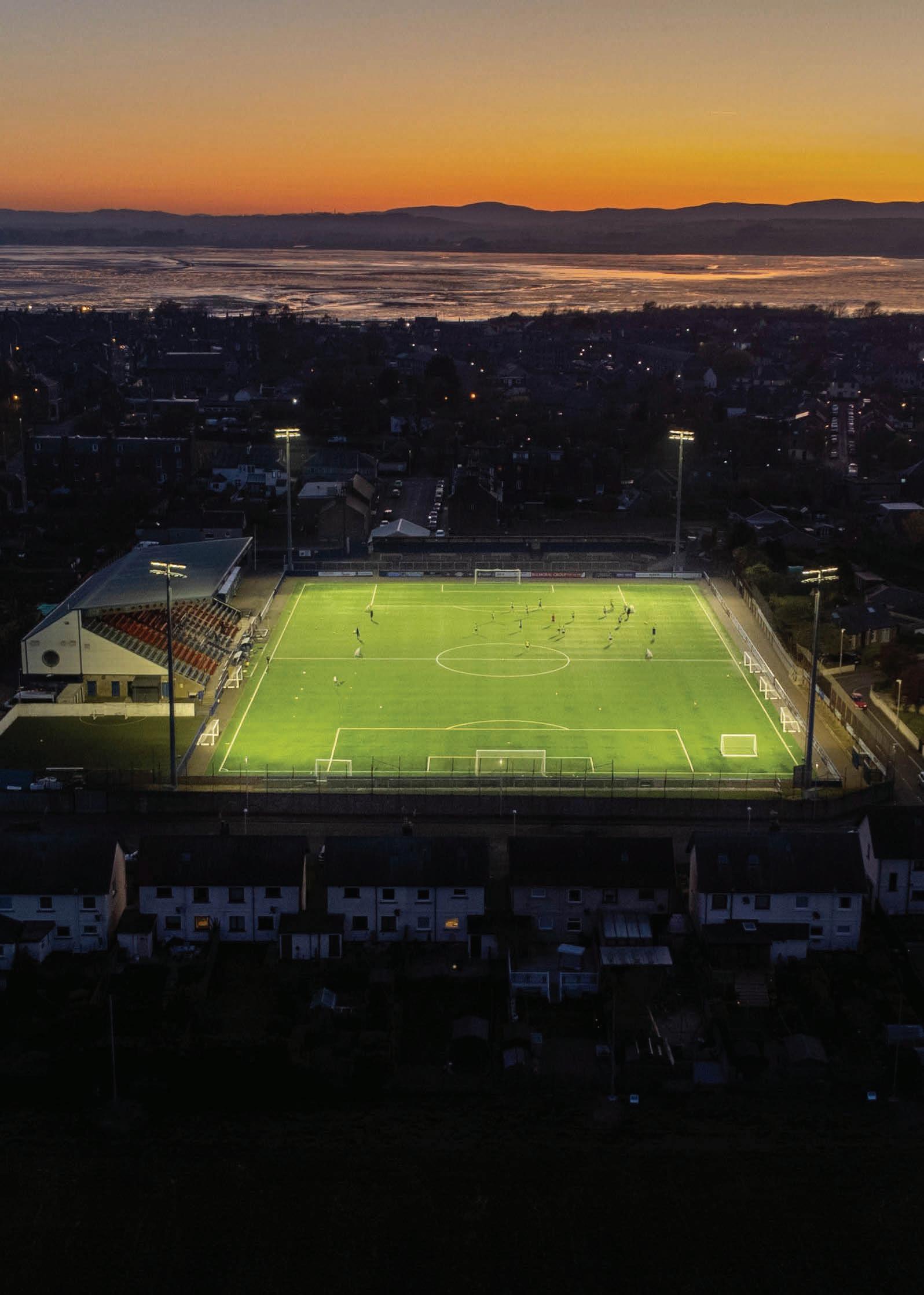

From sports clubs and local authorities to commercial operators, there
is a growing demand for cost-effective and flexible sports facility solutions – both for temporary and permanent use
In a rapidly-changing sports facility and event landscape, adaptability and costeffectiveness are becoming key. The increasing costs in raw materials and energy use are playing an ever-growing role in the types of facilities being built – both from a capital outlay and an operational point of view.
As a result, from grassroots clubs seeking to expand their facilities to commercial venue operators aiming to accommodate diverse events, those planning a facility project are seeking alternatives to the traditional approach of permanent construction. Enter modular and temporary buildings, which often offer a solution that combines flexibility, affordability, and efficiency.
Modular structures, characterised by prefabricated components assembled off-site, as well as fabric-covered domes, known for their versatility and rapid installation, are offering sports clubs and venue operators an alternative approach to their infrastructure needs.
One of the most compelling aspects of modular and temporary buildings is their inherent flexibility. Sports clubs often face fluctuating membership numbers, seasonal variations, and changing activities. With modular buildings, they have the freedom to adjust spaces, add amenities, or even relocate facilities.
In an era where financial prudence is paramount, modular and temporary buildings also present a cost-effective alternative to traditional construction
methods. The prefabricated nature of modular components streamlines production processes, significantly reducing construction time and labour expenses. Moreover, the ability to install these structures on a temporary basis eliminates the need for expensive land purchases or longterm commitments, making them an attractive proposition for sports clubs and venue operators operating within constrained budgets.
Beyond their economic advantages, modular and temporary buildings can also be designed to incorporate sustainable solutions, aligning with the growing emphasis on environmental stewardship. The off-site fabrication of modular components can reduce on-site waste generation and disturbance, minimising environmental impact and potentially promoting eco-friendly construction practices. Additionally, the modular design allows for easy disassembly and reuse, facilitating resource conservation and reducing the carbon footprint associated with traditional demolition and disposal methods.

Fabric-covered domes, often constructed with lightweight materials and efficient insulation, can enhance energy efficiency and reduce operational costs over the building’s life-cycle. Their translucent membranes allow ample natural light
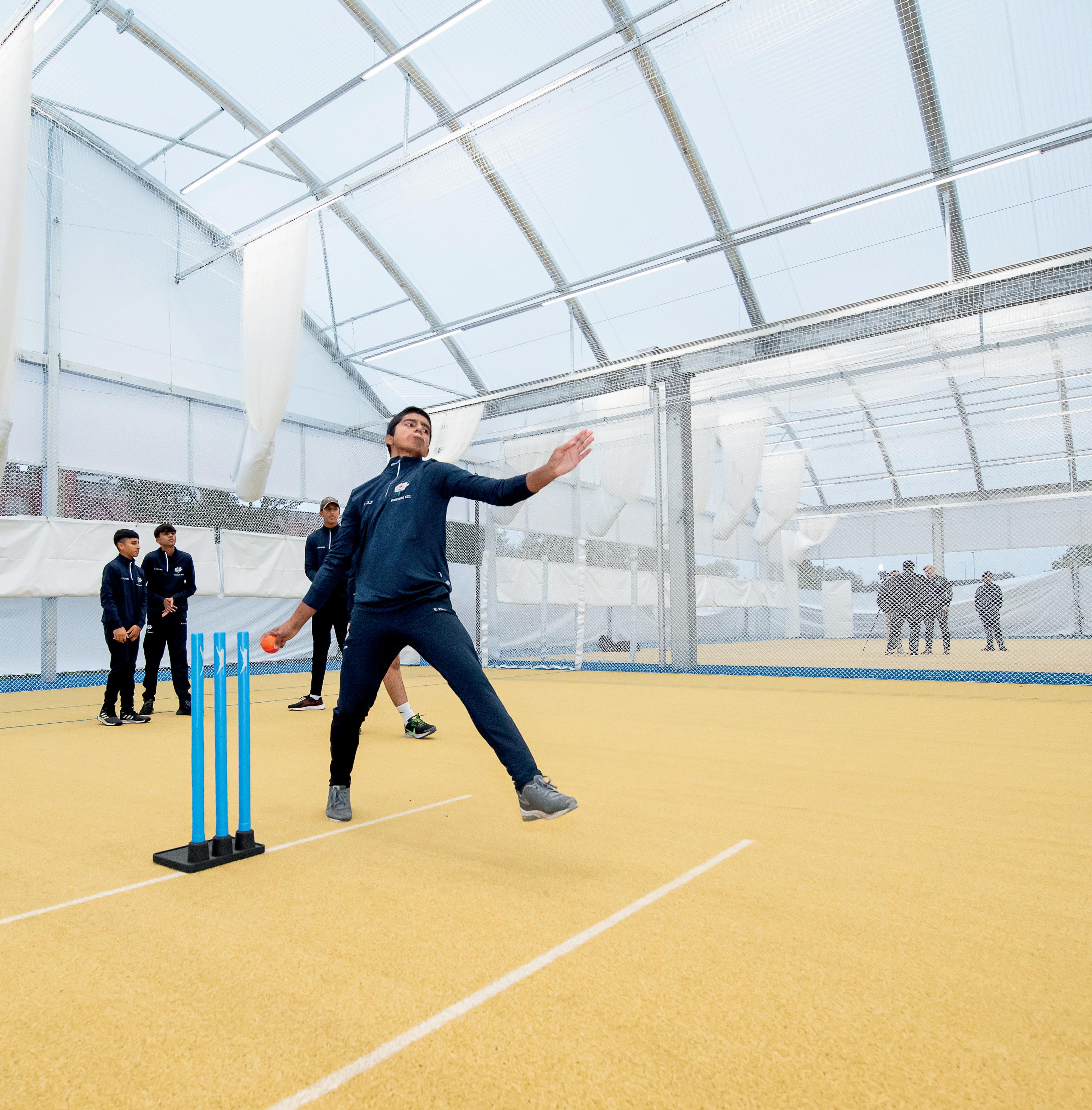
to penetrate, reducing reliance on artificial lighting and creating a comfortable, inviting environment for users. By embracing modular and temporary solutions, sports clubs and venue operators can demonstrate their commitment to sustainability while achieving their operational objectives.
As the sports and events industry continues to evolve, the versatility and cost-effectiveness of modular and temporary buildings position them as indispensable assets for sports clubs and venue operators alike. By prioritising flexibility, affordability, and sustainability, organisations can unlock new opportunities for growth, innovation, and community engagement.
Fordingbridge creates canopy for world’s first hybrid cricket facility
Anew hybrid cricket facility – the first of its kind in the world – has been unveiled at a popular community cricket ground in Bradford Park Avenue in Yorkshire. The hybrid cricket dome features an impressive 10 practice bays, which will double capacity at the ground to provide sessions for 10,000 local people each year.
In 2022, the ground saw only 178 days of cricket because of inclement weather. But thanks to the new dome, envisaged by TotalPlay Ltd and funded by the ECB, Bradford Park will now be able to facilitate year-round play.
Leading canopy provider, Fordingbridge, designed, manufactured, and installed the dome’s vast 42m x 42m canopy, transforming it into a true all-weather facility. The canopy structure – one of the largest of its kind in the UK – is covered by the company’s unique Opal 60 fabric that is not only water and windproof,but also screens out harmful UV rays to provide protection for players come rain or shine.
RAMS Rugby FC was originally set up in 1924 by the “old boys” of Reading School in Berkshire. While it has pride in its heritage, it is an ambitious, forward-thinking rugby club. It has a strong community spirit and offers a training and playing programme for all ages: from over 500 “minis” and junior players through to three senior sides.
As a busy sporting hub, full of atmosphere and energy, the facilities are well-used and an important part of Reading’s rugby landscape. Also, with a culture rooted in coaching, the quality of its premises and facilities are of utmost importance.
Chair, Andy Lynch, has a mission to continually develop the club. He highlighted how the club’s three floodlit pitches continued to require a lot of maintenance, particularly with the inclement British weather and high impact, constant usage. The committee agreed that this cost could be partially offset by investing in a covered training space with a 3G floor.
The end result is an innovative space, supplied by SAPCA member, Smart-Space. The 20m x 40m x 4m
A “temporary” structure standing the test of time
Often considered to be a temporary solution, a fabric-covered sports structure can last decades.
In 2009, The Change Foundation instructed CopriSystems to design and install a state-ofthe-art indoor cricket facility that would help to grow their Refugee cricket programme.
The building provides a safe environment for children seeking asylum to build relationships through sport and develop their cricket skills at the same time. Now, 15 years since it was built, the indoor cricket facility is still standing strong, thanks to a regular clean and service.
The facility still plays a significant role in engaging marginalised young people through the power of sport but is also used to bring the broader local community together through a programme of multisports including walking netball, intergenerational table tennis and visually impaired rugby.
Throughout the year, the facility is hired out to coaches and clubs for cricket training, particularly
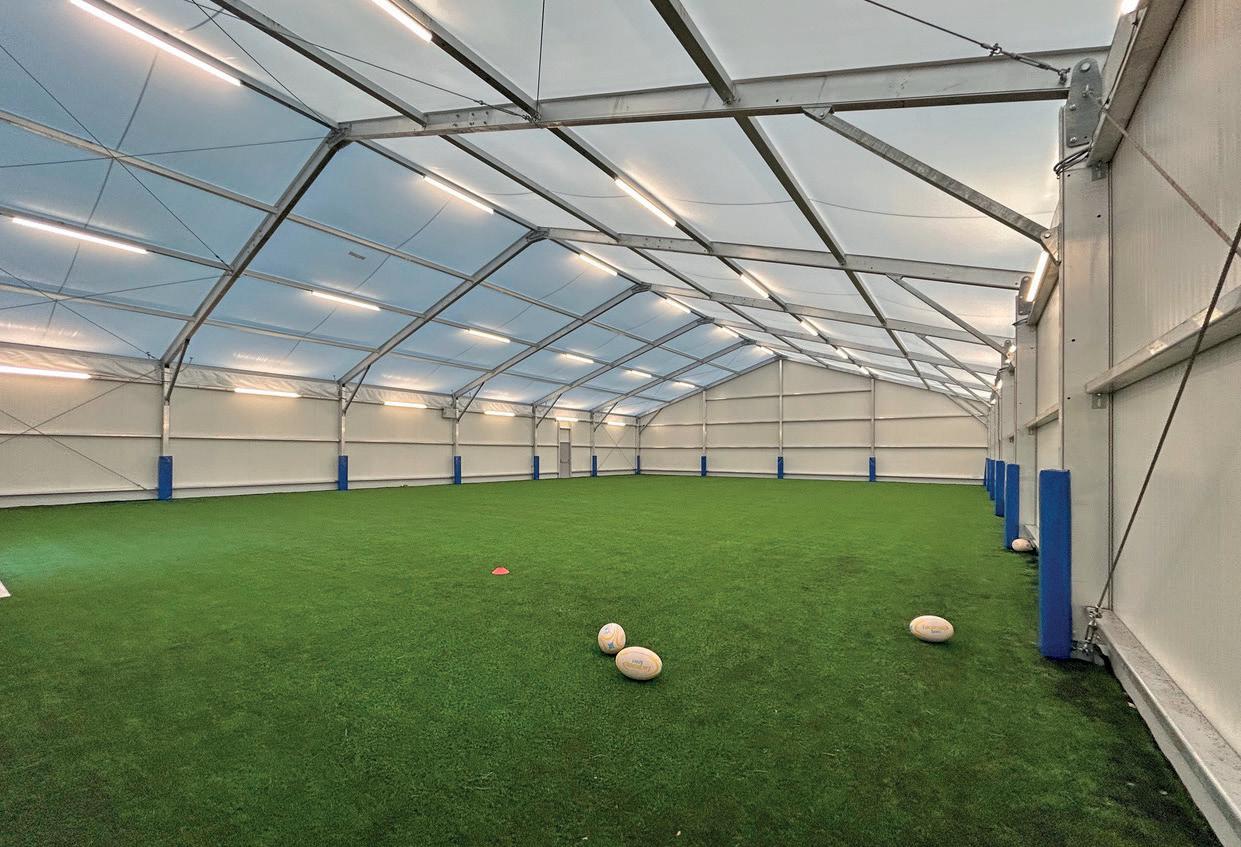
training facility is also a more affordable solution than a previously explored, high-cost, open-air 3G pitch.
Lynch said: “We use the Smart-Space building for general fitness training, skills and drills and line-outs for the whole club, all ages. It’s an ideal size with plenty of open, overhead room which makes lineout practice possible. We have the option to dryline it at some stage and have already added post protectors which is really important in our sport.”
The RAMS Rugby operational team is now looking at ways in which the building can be monetised and used as a potential revenue stream to create additional funds. This will cover the costs of the building itself but also raise vital funds for the club.
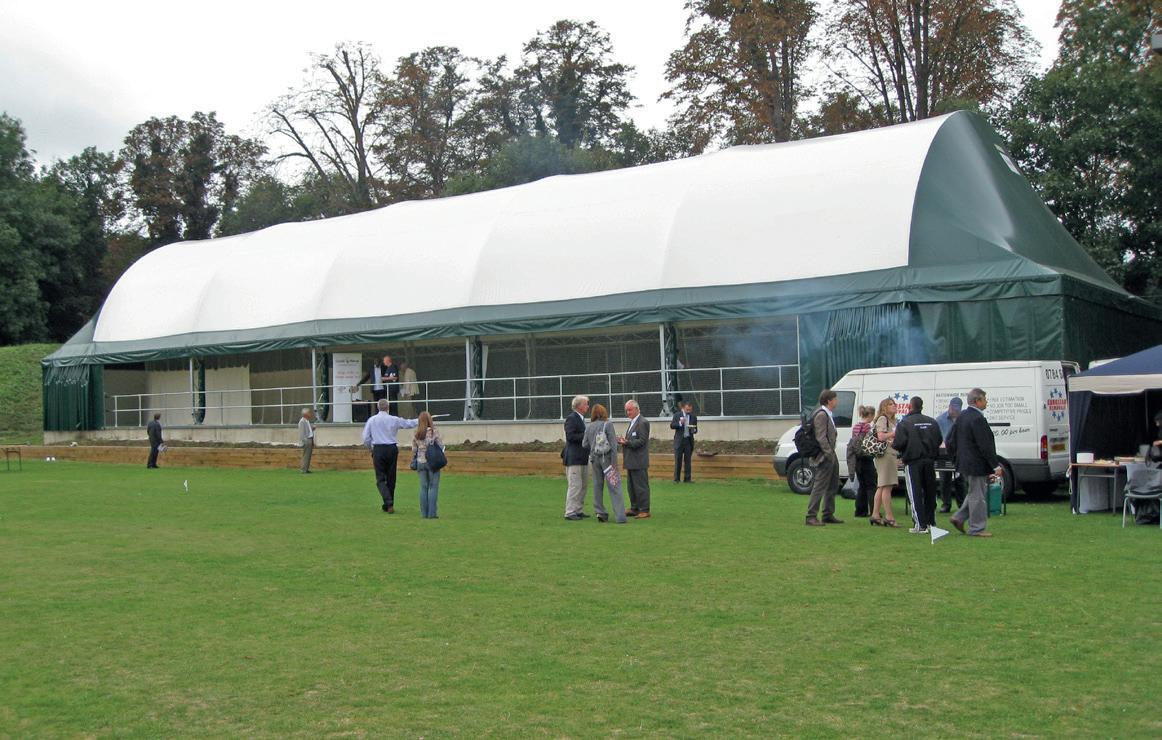
in the winter off-season and schools use it for their own programme of sport, which has never been more useful than during the recent months of rain, waterlogged pitches and slippery concrete courts when indoors was the only option to keep children active.
The original brief had cricket in mind but, as this case study is proving, an investment in any indoor structure can help to grow all sports at all levels of ability and for all members of society.
Thinking of installing or upgrading padel court facilities?



Our specialist teams look after every aspect of your project from site survey to installation.



Our solutions are fully weatherproof, protecting courts from rain, wind, and sun.
Each of our canopies comes with an industry leading 25-year guarantee

Why not talk to the UK’s leading provider of padel court canopies? Transform your vision into a reality. Get in touch today…
Our design teams create bespoke solutions to meet your exact needs.


All our projects meet the highest sustainability standards.
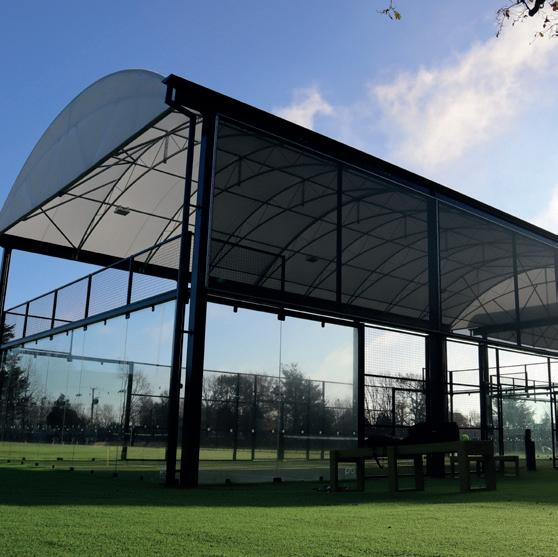

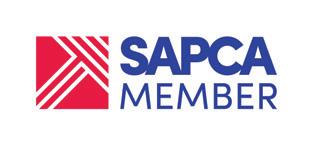


Hallgruppen provides solutions for a wide range of sports and activities

Hallgruppen, a leading provider of custom and standard sports buildings, is undertaking a strategic expansion into the UK market. The Norway-based company delivers both temporary and permanent structures that meet the diverse needs of athletes and sports enthusiasts.
Among its innovations is an adapted sports building solution for outdoor padle tennis courts, which it has rolled out in Denmark. The specially-designed cover is designed to make the courts accessible year-round, regardless of weather conditions. The structures are characterised by 9m high legs to ensure conformity to the industry standard required for a padel facility.
It also built a 74-meter-wide football pitch in Iceland, an environment known for its harsh environment and weather conditions – which include frequent storms and earthquakes. Completed in 2018, the robust structure has withstood the challenges, underpinning Hallgruppen’s focus on safety and long-term performance.
According to Lars Dalgaard, Hallgruppen CEO, the company has now recognised “a significant market opportunity in the UK”.
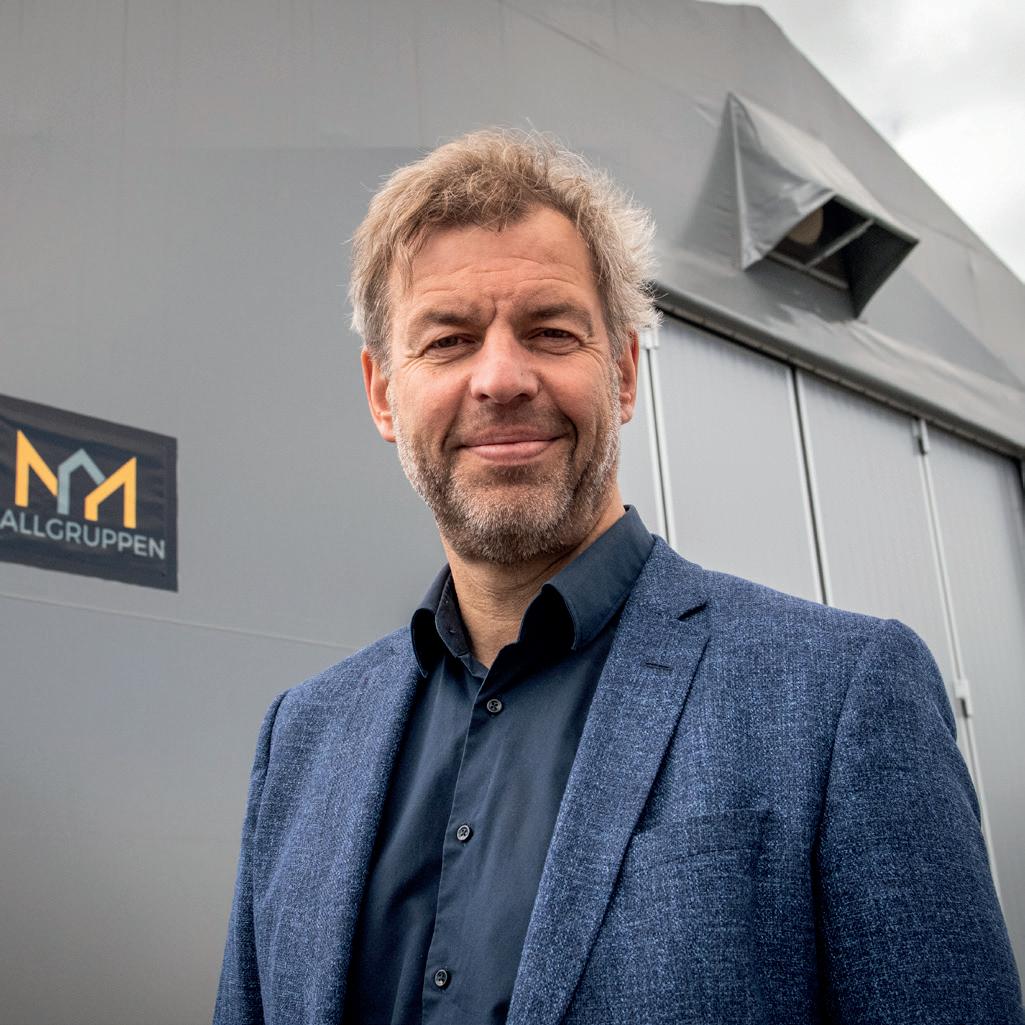
“Our research indicates a growing demand for affordable sports facilities in the UK, Dalgaard says. “We are excited to introduce our solutions that combine quality with quick construction times, offering a viable alternative to traditional building methods.
“Since establishing our office in the UK in 2022, we have seen how our innovative approach makes us a strong competitor. The presence of robust competition is vital, as it drives us to continuously improve and innovate.
The UK office is one of Hallgruppen’s 19 locations, which include Norway, Sweden, Denmark, Finland, Ireland, the Baltics and Germany. The company has provided its solutions to more than 80 countries.

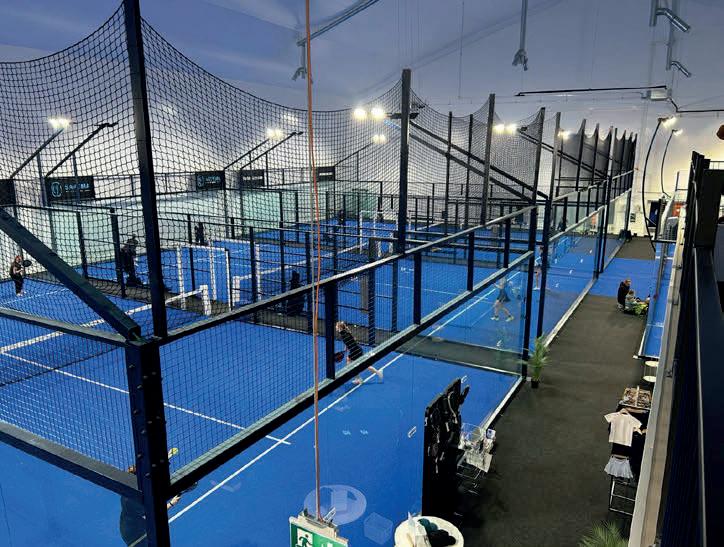
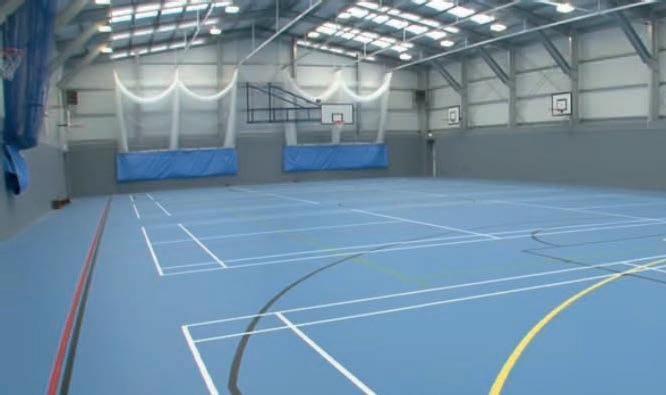

Talk to our friendly and professional advisers - we can guide you on the best options from a range of solutions. Our local supply chain and experienced, reliable teams make us quick and responsive. We are also completely flexible: you can hire or purchase (or switch whenever you like) and you can off-hire at any time. We do everything - temporary and permanent structures, building only to turnkey solutions.
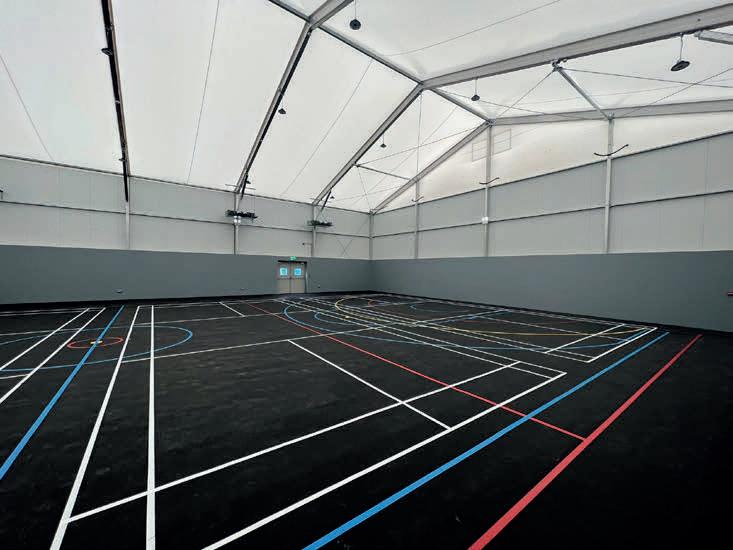
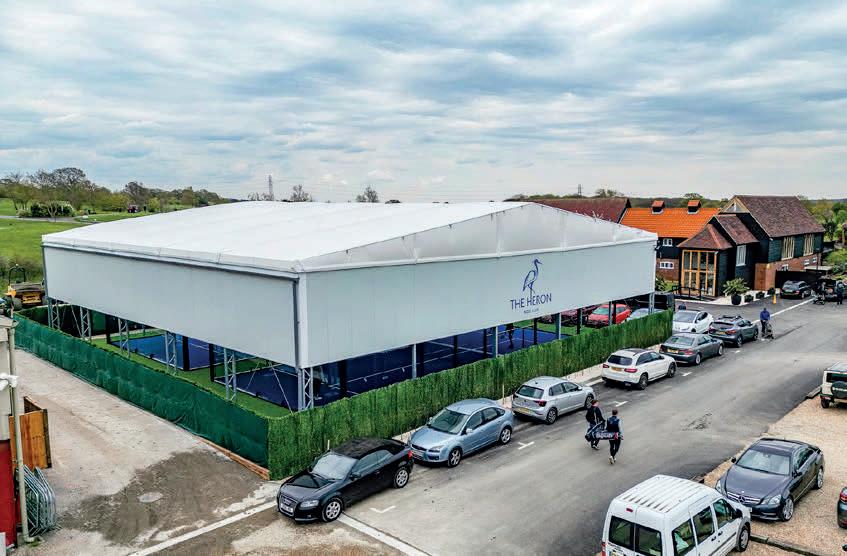




Maintaining a playing surface, court or track is crucial in order to protect both the users and the investment made in the facility

Correct maintenance of any sports or play surface is essential to ensure optimum performance and longevity, which in turn delivers value for money. The same also applies to other aspects of a facility, such as lighting, interiors and equipment.
It is important to understand what maintenance is required across your facility and how often, including what needs to be done by the facility owner or manager, and when professional maintenance specialists might be required. The cost of maintenance equipment and any ongoing maintenance costs should be factored in at the start of any project.




maintenance helps identify and address potential hazards such as tears, seams, or uneven patches that could lead to player injuries if left unattended.
3 Optimal performance:





Athletes demand consistency and predictability from their playing surfaces. Regular maintenance ensures that artificial sports surfaces maintain their intended performance characteristics, such as traction, ball bounce, and shock absorption. By keeping these surfaces in top condition, players can perform at their best, enhancing the overall quality of competition.
Remember to follow the maintenance instructions provided by the manufacturer and/or contractor – especially as this may vary from product to product, even for similar types of surface.
There are four main benefits of ensuring a regular, appropriate maintenance programme.
1 Prolonging lifespan:

Just like natural grass fields, artificial surfaces degrade over time due to regular use, weather conditions and other environmental factors. However, with proper maintenance, the lifespan of these surfaces can be significantly extended. Regular cleaning, brushing, and infill redistribution help prevent compaction, uneven wear, and deterioration of the playing field.
2 Ensuring safety:



Beyond functionality, the appearance of sports surfaces plays a significant role in shaping the overall experience for athletes and fans. Well-maintained surfaces not only look more visually appealing but also convey a sense of professionalism and pride in the facility. The aesthetic appeal of a wellmaintained surface contributes to the ambiance.

Safety should be a non-negotiable aspect of any sporting activity. Maintaining artificial surfaces is crucial for minimising the risk of player injuries. Over time, infill materials can become displaced, creating uneven playing surfaces that increase the likelihood of slips, trips, and falls. Additionally, proper


The Sports and Play Construction Association (SAPCA) has produced a wide range of guides which cover the installation and maintenance of a variety of sports facilities and playing surfaces. These documents provide a reference point for facility operators, as well as technical guidance for contractors. If you need a contractor, SAPCA’s extensive list of verified members includes a choice of specialist maintenance partners, including dedicated maintenance providers and installation companies with end-to-end maintenance solutions. The membership list for manufacturers and suppliers of maintenance equipment can be browsed at: www.sapca.org.uk/members/



Data – key to unlocking the power of maintenance
Globally, turf managers are constantly having to adapt to the challenges of maintaining elite sports surfaces in a way that is sustainable and future proof. STRI Group has been conducting scientific investigation and research into the improvement of sports surfaces since 1929, providing solutions and strategies for golf


clubs, equestrian tracks, tennis courts, elite pitches in stadiums, and schools and grassroots facilities.
With years of research, STRI firmly believes that data is key to success, evidenced by the approach to managing the King Abdulaziz racetrack in Riyadh. As principal contractors for Saudi Arabia’s first turf racing track in 2019, STRI Group conducted continuous track monitoring and maintenance measures throughout each racing season.
Bringing back the ‘unusable’
Replay Maintenance is always up for a challenge and transforming the unusual, unloved, and unusable back to ‘as new’. When Center Parcs Elveden Forest approached Replay about their leaf and moss-covered synthetic turf Segway Track, Replay was eager to show what its specialist Renovate and Rejuvenation processes could achieve, at a fraction of the cost of resurfacing.
The sand filled synthetic surface located in the leafy forest with limited sunlight provided the perfect environment for moss growth. When moss takes hold, it can be difficult to eliminate. Couple this with all the leaves and tree debris accumulating on the surface, the deterioration accelerated, and the area became unsafe and unusable.
Replay carried out an assessment and, as in most situations, if the construction and turf quality are good then any surface can be restored
Faced with unpredictable weather, the track remained resilient due to the strict monitoring and maintenance implemented. This included daily moisture, penetration and sheer values, grass length, firmness, top and lower layer stiffness measurements and monthly soil chemical and physical analysis. Data collection was paramount in ensuring consistent track conditions and it has enabled the fairest and safest racing environment for equine athletes and their jockeys.
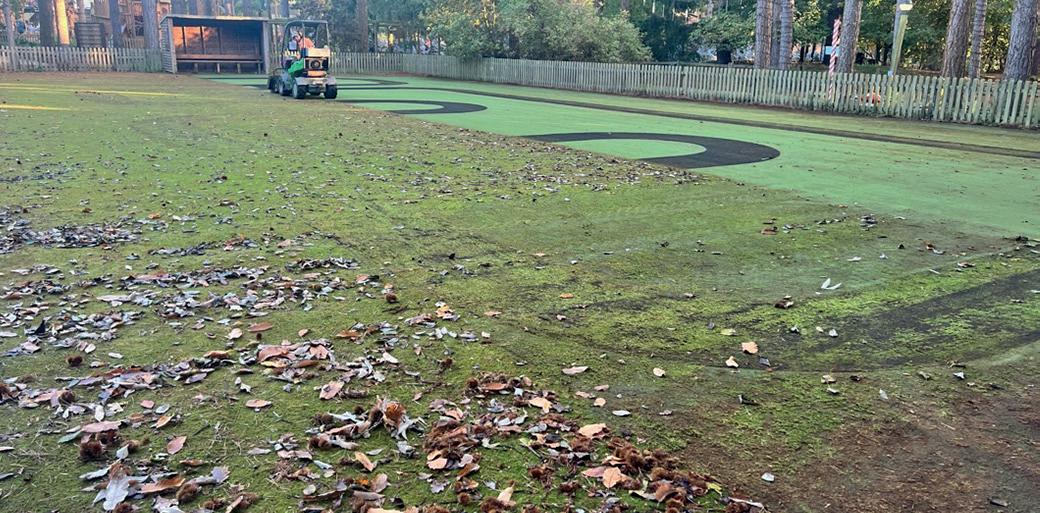
by Replay’s specialist maintenance processes. Not only saving the client thousands but also extending the usable life by many more years.
Jon Holloway of Center Parcs said: “Both the Segway track and artificial grass tennis courts at Elveden Forest are now maintained to the high standards that our customers have come to expect from a Center Parcs village – thanks to Replay Maintenance.”
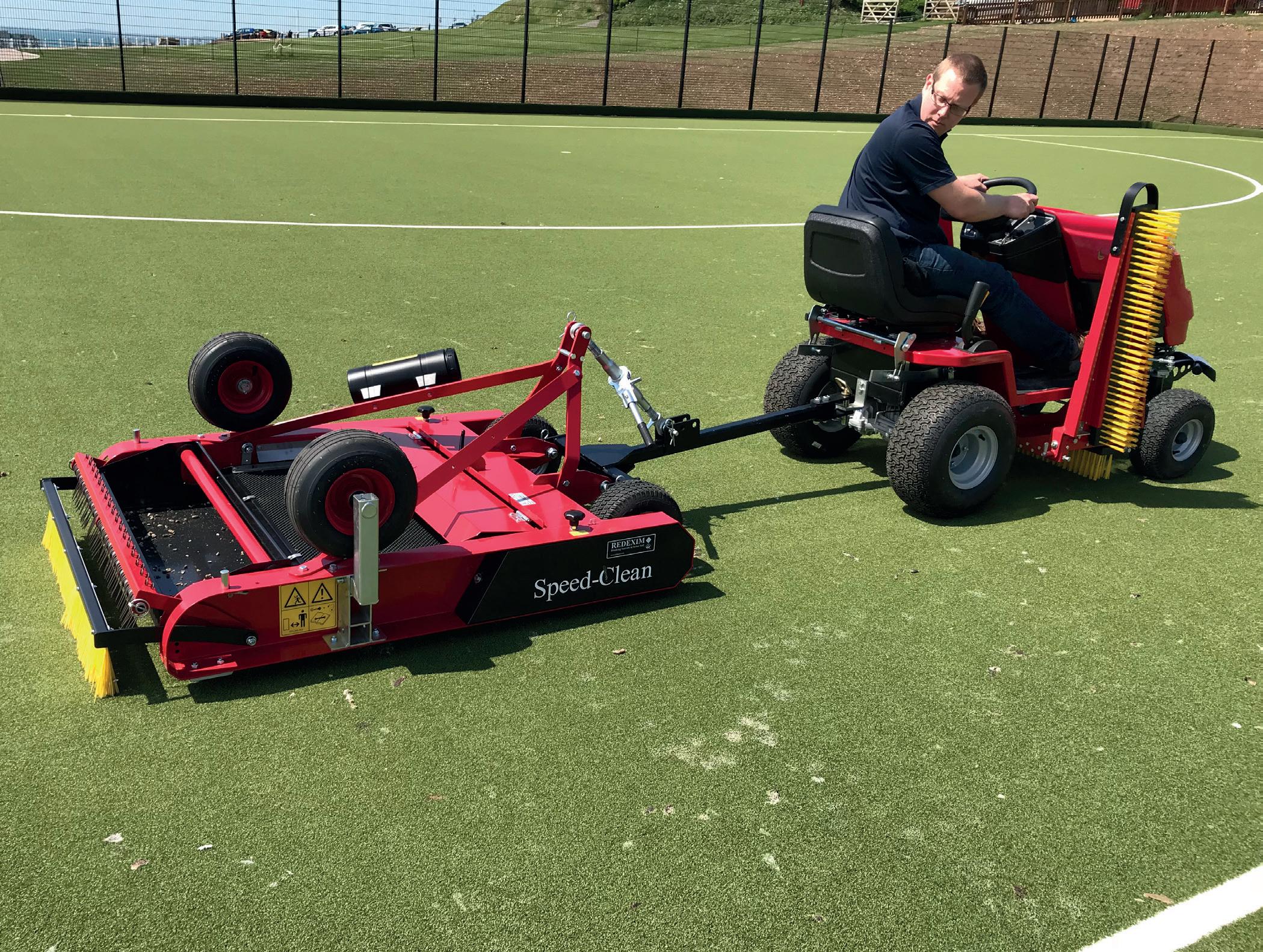
The unprecedented rainfall across the UK this winter will have diverted a lot of games, competitions and general play to synthetic surfaces, putting additional strain on pitches. The results of the extra usage may only be coming to light now, as we head towards the spring.
The combination of damp conditions and increased usage can exacerbate the usual compaction and drainage issues, making maintenance a must for the restoration of safety and playability. The chances are the surface will not have been thoroughly cleaned since the previous summer. When drier days present, the opportunity arises to carry out necessary infill management tasks, including the collection of dust and lighter particles which can, and should, now be carefully removed.
The Redexim Speed-Clean is a land-driven surface sweeper which efficiently lifts and separates infill and contaminants in a single pass. Utilising a paddle brush system, infill is lifted from the pile where detritus is separated via an oscillating sieve and collected in bins
on the rear of the unit. With clean infill returned to the surface, permeability and playability are enhanced.
As the industry moves away from intentionally added micro-plastic polymeric infills towards alternative specifications of infill, more management than simple debris removal is required. Due to their more mobile nature, and increased susceptibility to bacterial and airborne contamination, natural infill materials such as cork or rubber will need a more intensive clean to maintain performance and player safety.
That’s where tools such as the Redexim Verti-Top come into play. Where once it would be considered a ‘specialist’ tool, cleaning systems such as the Verti-Top will become a weekly usage item. Available in a 1.2m or 1.8m working width, the Verti-Top lifts the top 15mm of infill, separating contaminants and smaller particles such as dust and hair thanks to an integrated vacuum. The cleaned infill is then dropped and brushed back into the surface, leaving a clean, level and aesthetically pleasing finish ready to support a busy season of play.
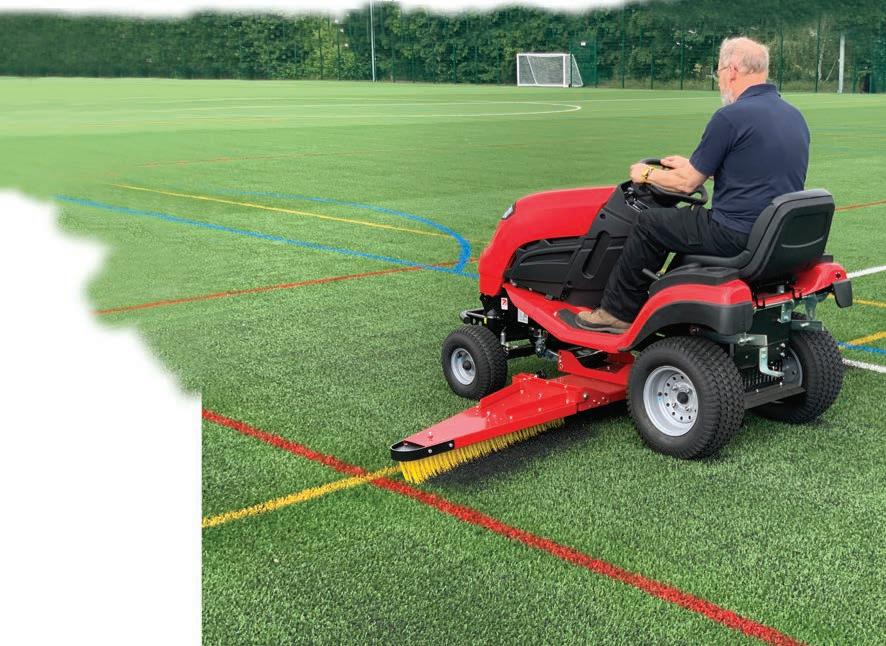






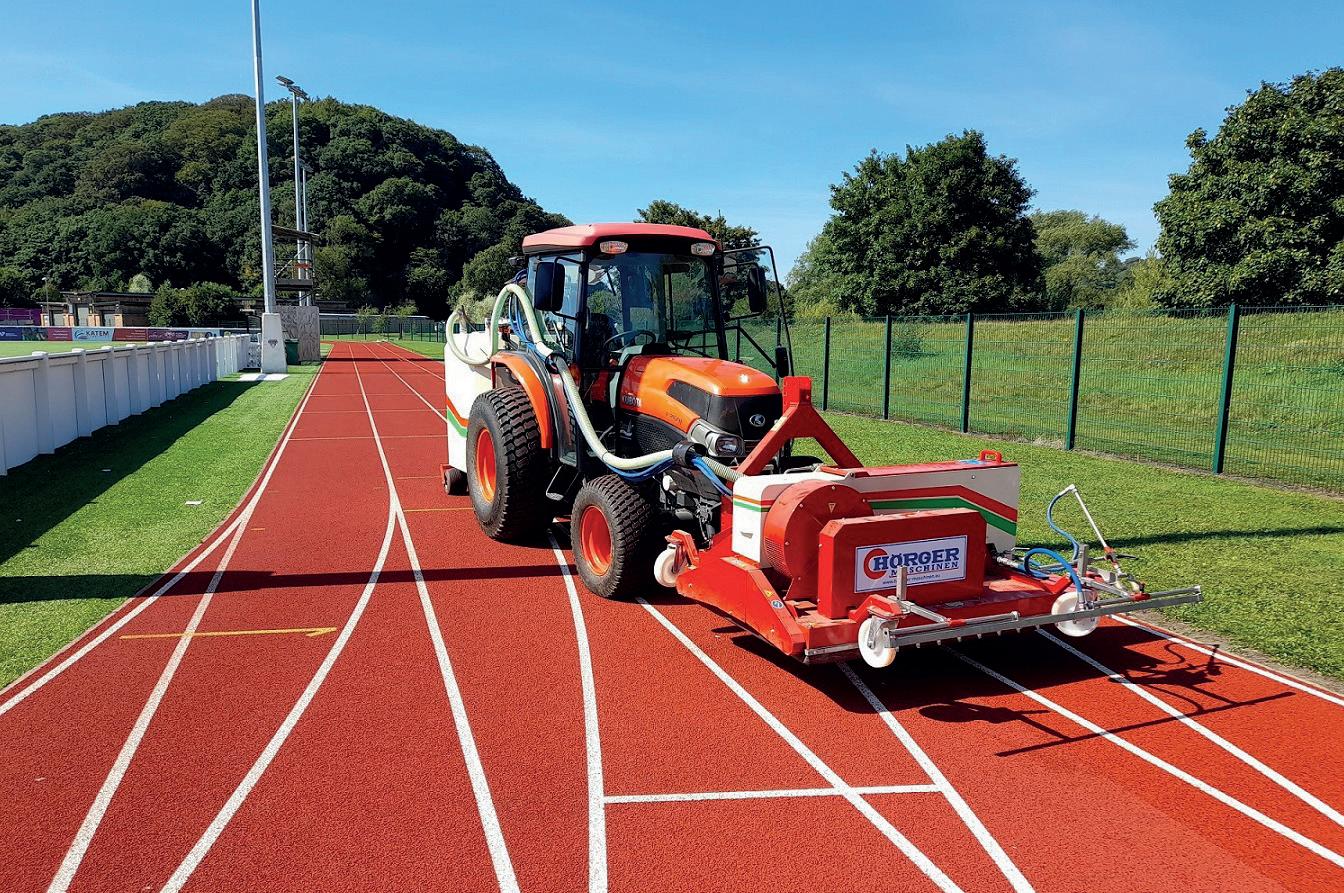
With the outdoor athletics season here, it is essential to carry out maintenance on facilities to ensure they are a safe and optimal surface for the athletes. Throughout May, SAPCA member SIS’s expert maintenance team, SISPlus, is starting to complete
more work on athletics facilities with its most common athletics maintenance service, HydroClean. HydroClean is a deep clean service achieved with specialised highpressure water cleaning equipment, resulting in the removal of embedded dirt, debris, and organic contaminants. SISPlus maintenance
Britannia Paints plays its part in LTA’s Park Tennis refurbs
SAPCA member, Britannia Paints, has supplied its products to a number of the LTA’s Park Tennis projects.
The Park Tennis Project is a nationwide investment programme by the UK Government and LTA Tennis Foundation, delivered by the LTA, to refurbish public tennis courts and open the sport to many more people.
More than 1,500 courts across Britain will be transformed and reopened to the public – and SAPCA member, Britannia Paints, has played its part in a number of them.
The projects involving Britannia’s Decatone SR60 Tennis Court Paint include those in Manchester, Conwy, Wirral and Wrexham. Britannia Paints worked in partnership with Francis Coatings on a number of the projects.
The £30m Park Tennis project is a key part of how the LTA plans to deliver its vision of ‘Tennis opened up’ and mission to grow tennis by making it relevant, accessible, welcoming and enjoyable.
visits are always completed with industry-leading machinery, with the HydroClean being performed with the Horger KBR.
As well as increased performance, HydroClean provides many other benefits. These include extended lifespan of the facility, enhanced safety and improved aesthetics.
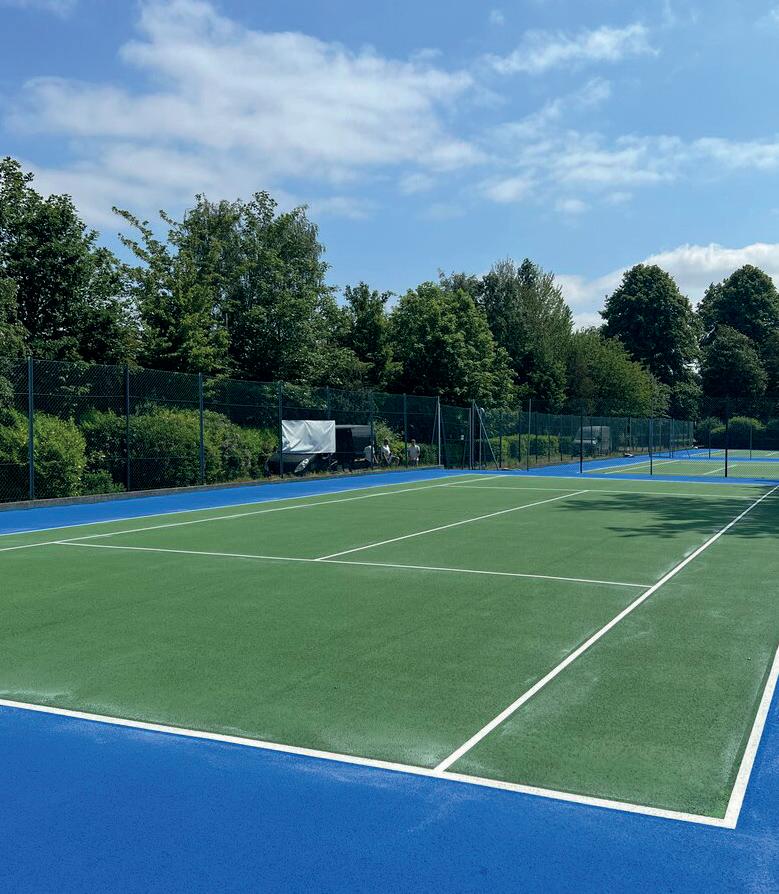
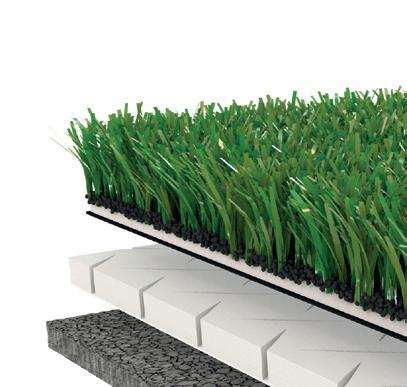
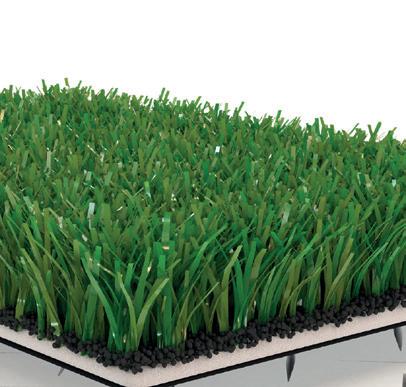

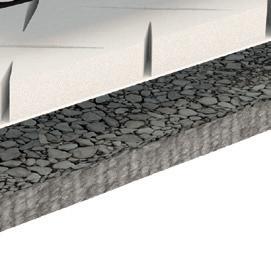


ARTIFICIAL TURF
FILLING GRANULATE
SHOCK PAD
SUPPORT LAYER
Especially for artificial turf sports grounds: The Trocellen XC & XC Plus series includes high-quality shock pads made of closed-cell, chemically cross-linked polyethylene foam. ProGame shock pads are delivered in rolls of 2-meter width and tailored length to meet the requirements of the field. The combination of the unique XC-punched polyethylene foam guarantees excellent drainage properties, quick and easy installation, and very high dimensional stability.
The wide range of thicknesses (6 – 14 mm) and densities (30 – 90 kg/m³) caters to the requirements of a variety of sports.
TROCELLEN ProGame Shock Pads
TROCELLEN GmbH | Mülheimer Straße 26 | D-53840 Troisdorf T +49 2241 2549 000 | F +49 2241 2549 099 | progame@trocellen.com



Take a look at our references https://progame-shockpads.com



Elevate, the UK’s largest tradeshow for fitness, sports performance and physical activity will be held for the seventh time this year
Launched in 2016, Elevate was designed to act as a catalyst for uniting the physical activity, fitness, and sports therapy sectors. The idea was to bring both decision makers and suppliers from the different areas into a single space.
“We describe Elevate as an arena of opportunity, showcasing ideas, technology, and innovation from leading suppliers and thought leaders under one roof,” says Lucy Findlay-Beale, event director.
“Within the industry, there’s a notable surge in collaboration, education, and standards. We are particularly seeing this geared towards health, reflecting a concerted effort to support the health agenda.
“This dynamic shift underscores a commitment to holistic wellbeing and collective progress. The connected approach of the sector shows its strength and deeper understanding of its importance and power.”
In addition to the large exhibition floor, which will this year showcase more than 200 product and service providers, Elevate features a wide-ranging educational programme. For 2024, the programme will be delivered across four different “theatres”.
Called the Thought Leaders Conference in previous years, Debate is the hub for tackling the industry’s
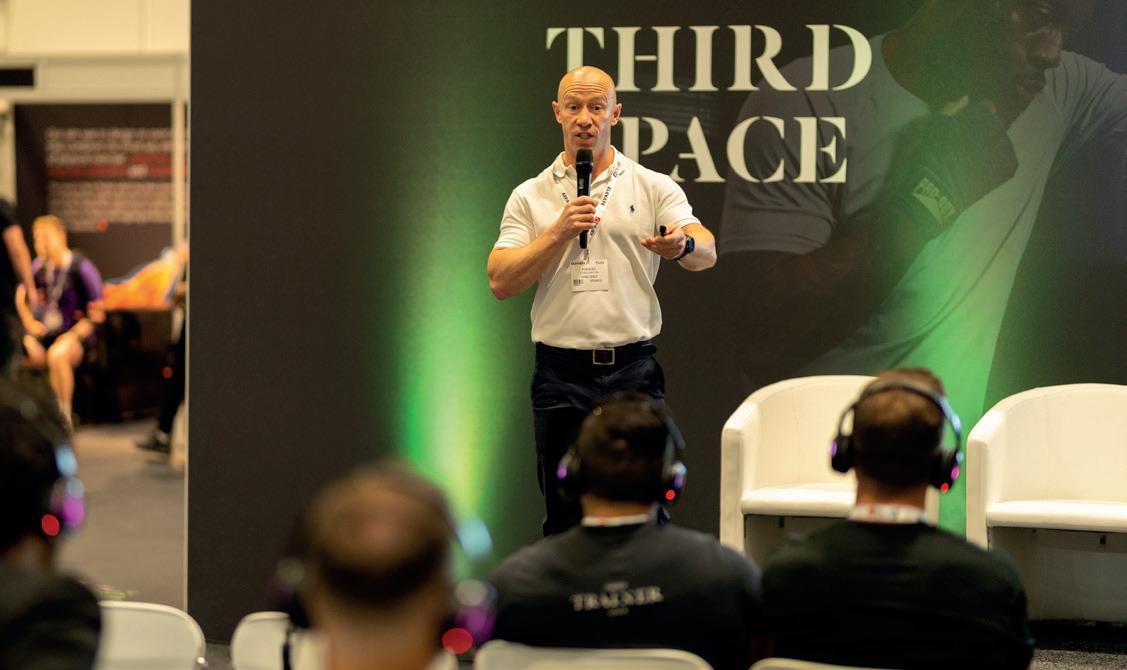

most pressing topics. Sponsored by Myzone, the stage will host the keynote session featuring David Stalker, president of EuropeActive; Huw Edwards, CEO of ukactive; and Tara Dillon, CEO of CIMSPA. It will also host the leading discussions on Women in Sport, the future of leadership, the pivot to health, the relationship between physical activity and obesity, mental health, and sustainability.
Previously known as The Business of Physical Activity, Generate focuses on the business side of fitness. Dive into retention strategies, AI integration, social media best practices, technology utilisation, staff recruitment and upskilling, and how to use your data and modernise your facility.
Formerly Activating the Nation, Collaborate – sponsored by Life Fitness – emphasises community engagement and health promotion. Topics include the use of gamification, the importance of inclusive language, integrating fitness into healthcare, supporting those with long-term health conditions, and mental health advocacy.
Accelerate focuses on optimising personal performance and wellbeing. Through the programme, delegates will be able to learn about topics such as long-term
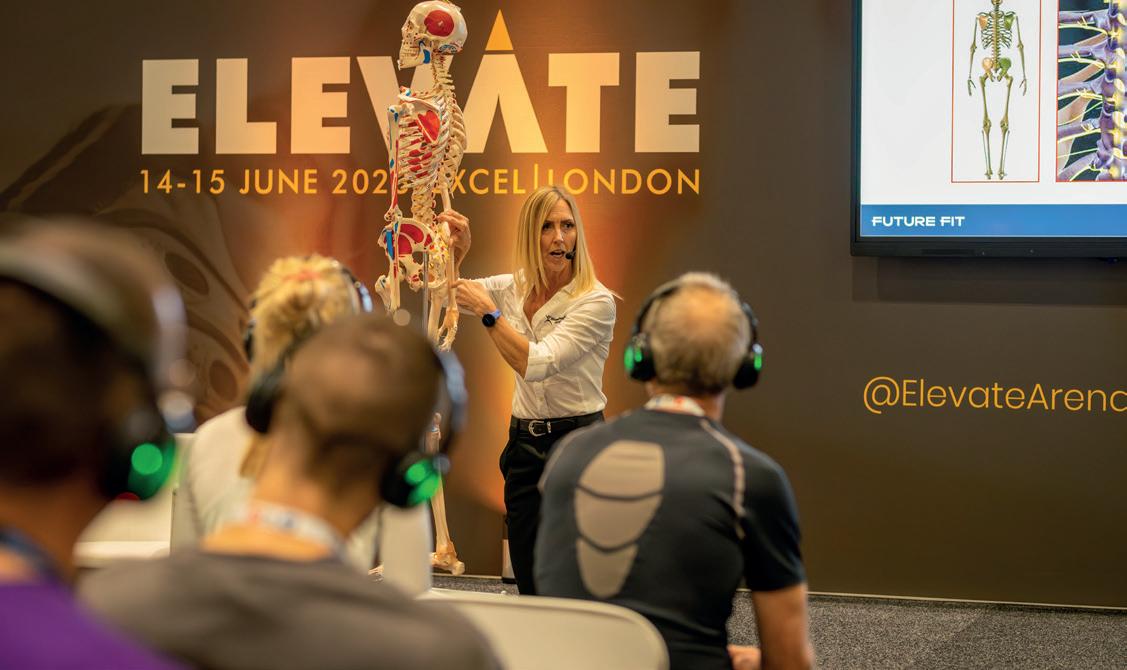

behaviour change, sleep optimisation and menopause.
In addition to the four Elevate-created theatres, there are a number of standalone theatres offering more than 10 streams of content – and all are free to attend. The partner theatres will feature Kidztivity, bringing engaging content to support children and young people in being active. Active Aquatics, presented by RLSS, Swim England, and STA, will dive into aquatic fitness. Third Space will host bespoke training for PTs and PT businesses, sharing insights from the best in the UK and Heart Centred Business is back to help businesses increase revenues and smart marketing.
Technogym returns with its education space, showcasing innovation, data, and the latest wellbeing trends. 2024 will introduce Quoox education, allowing attendees to explore its software and solutions and join discussions on key themes and client challenges.
New for 2024 Elevate is its strategic partnership with the Include Summit, the conference committed to promoting equity, diversity, and inclusion (EDI) in sport. Through the collaboration, Elevate will integrate four exclusive sessions curated by Include Summit into its educational offerings, with each session specifically focusing on EDI topics. Elevate is thrilled to join forces with Include Summit to enrich its educational content and provide valuable insights into EDI practices across its sectors.
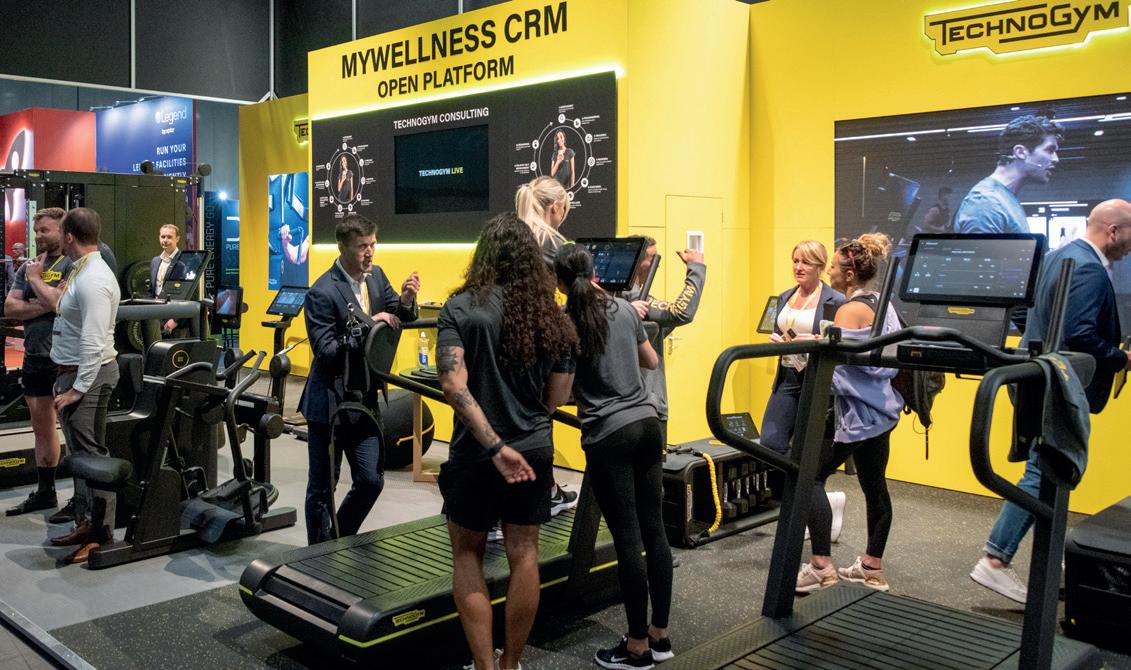
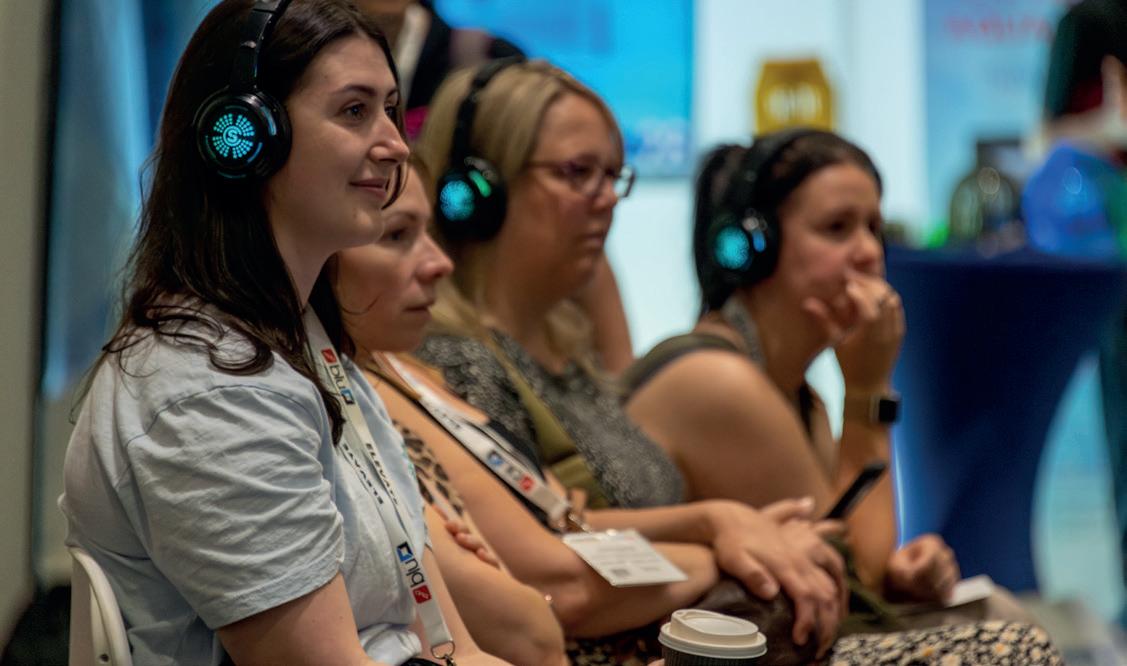
200+ leading suppliers 200+ expert speakers 14 streams of educational content
● Adam Blaze – CEO, Activity Alliance
● Ali Jawad – Paralympic powerlifter
● Baz Moffat – CEO, The Well HQ
4 main theatres
7,000 decisionmakers
● Catherine Fermer – Operations Director, The Gym Group
● Dr Davina Deniszczyc – Charity and Medical Director, Nuffield Health
● Duncan Kerr – CEO, Wave Active
● Eve Sukhnandan – Global Chief People Officer, PureGym
● Guy Griffiths – Director, GG Fit
● John Oxley – CEO, Life Leisure
● Katherine Knight – Director, Intelligent Health
● Martyn Oakey – Head of Fitness, Everlast
● Michelle Dand – Product and Programme Manager, David Lloyd
● Oliver Patrick – Co-Founder, Future Practice
● Sarah Roberts – Head of Fitness, Places for People Leisure
● Sarah Watts – CEO, Alliance Leisure
● Tanya Martin – Head of Insight & Innovation, Women in Sport www.elevatearena.com
Active Insight is looking forward to delivering 3 sessions over the 2 days of Elevate. Utilising data from Active Insight’s Consumer Insight Panel, Julie Allen, Business Development Director will be joined by industry experts and hear directly from operators for a session focused on lapsed members – why members are prepared to pay for a membership they’re not accessing followed by a session on Data Driven Decisions on day 2. Meanwhile, David Monkhouse, Director, will be chairing a session looking at participation and how data informs participation strategies. “We are delighted to support and contribute to the Elevate speaker programme – we have a wealth of consumer insight generated via our consumer insight panel but also Moving Communities and other research that we conduct, we are looking forward to sharing this data and turning it into actionable insight for attendees to improve, develop and drive their customer experience forward,” said Julie Allen. www.active-insight.org
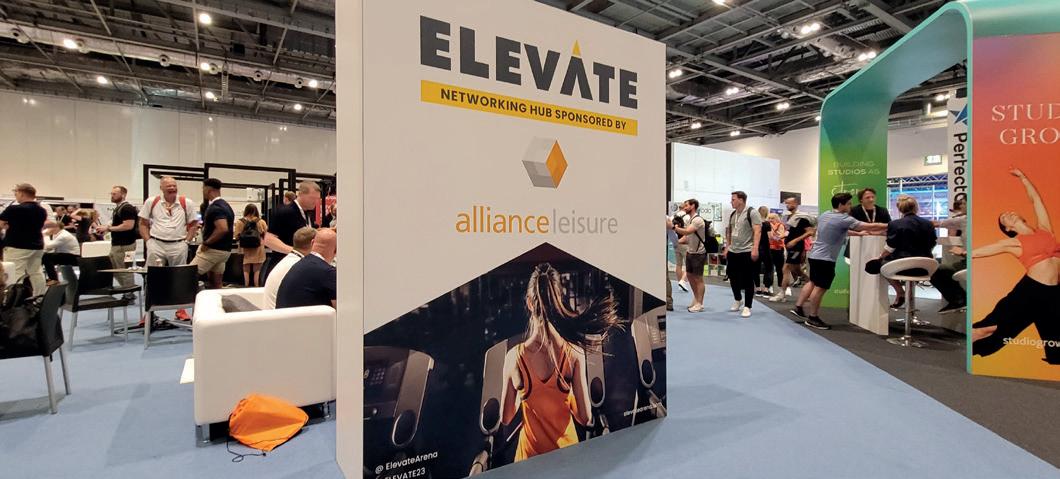
Alliance Leisure will be sponsoring the large networking lounge located in the centre of the Elevate show floor, where the team will also be hosting their own meetings and generally catching up with industry friends.
Across the two days of the show, Sarah Watts, MD; James Foley, Commercial Director and Paul Woodford, Strategic Engagement Director will also be contributing to various panel debates sharing insights and experience around a wide range of topics including sector trends, sustainability and facility design. www.allianceleisure.co.uk

BOX12 is a technology-led boxing for fitness solution that combines boxing techniques and functional training to fully optimise a member’s workout potential. Consisting of 12 x 3-minute rounds, BOX12 is accessible 24 hours a day, that allows members to train on their schedule and uses virtual coaching screens to guide them through a full-body workout in just 36 minutes. Founded by Jamie Cartwright and Jon Eade, BOX12 consists of the POD and the In-Club Solution. The POD is a free-standing, space-saving, boxing and functional fitness unit. Ideal for smaller spaces, for both commercial and personal use. The In-Club consists of a rolling circuit that takes 36 minutes (12 x 3 min rounds), the virtual coaching screens instruct the member through a boxing and functional workout. BOX12 prides itself on being inclusive with no gender divide. The workouts are fun, change monthly and provide a positive and safe environment for boxing. www.box12fitness.co.uk
Do you need more members for your gym? If so, pop to stand H15 and have a chat to Creative Fitness Marketing. They have a unique way of getting new members for gyms quickly and cost-effectively, using a 360-degree marketing and sales approach. On average they sign up between 150 and 400 new members for their clients in only 6 weeks, increasing their ongoing monthly revenue by between £1,500 and £5,000!
How do they do it?
Multi-faceted marketing. 10 marketing mediums deployed simultaneously. Complementary approach of features AND benefits-based marketing.
On-site sales team using an empathy-based selling process. Industry-leading close rate of 80%. www.uk.cfm.net
At Elevate this year, Balanced Body, global leader in Pilates equipment and education, will be on stand E10 showcasing its leading Group Pilates Reformers and its newly launched Group Reformer Pilates education programme which has been endorsed by Active IQ and is specifically designed to up-skill instructors already teaching in a fitness setting. Balanced Body certified trainers will be on stand demonstrating the Balanced Body Allegro and Allegro II Pilates Reformers, both with and without the addition of a Tower. You can also find Balanced Body on the speaker programme, as Christine Crooks, Pilates Fitness Programmes Manager will be speaking in the Accelerate Theatre on Wednesday 12th June at 2.30pm. www.pilates.com
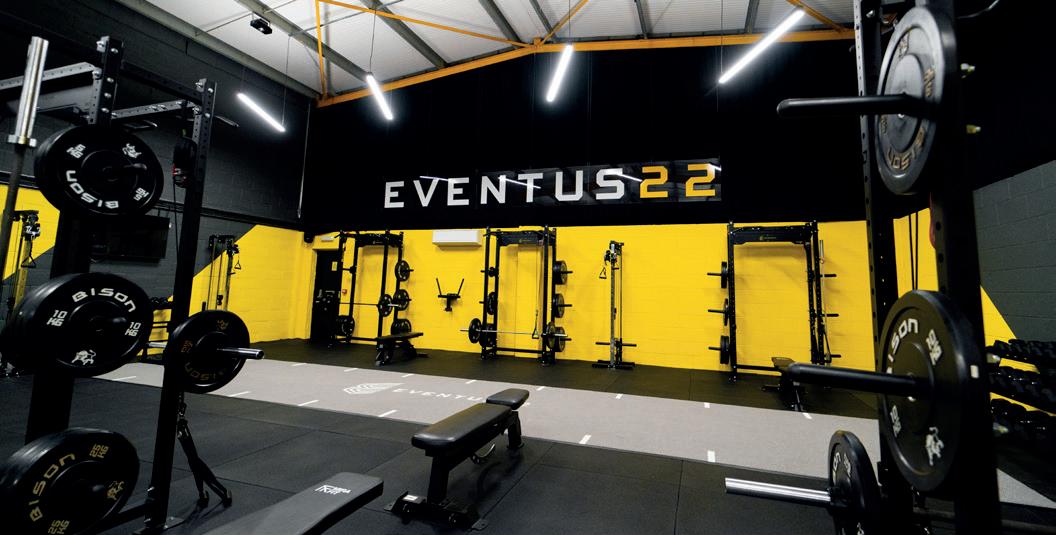
Layrd Design is a commercial interior designer specialising in gym and leisure design and fit-out. It recognises that you need to make an impact and set the tone of your brand for your members’ experience from the second they enter the space. Every detail from the wayfinding, lighting, changing rooms and gym floor should be considered and consistent with the brand and concept. Ahead of Elevate, Layrd launched an exclusive Gym Design Package which simplifies the design process with a fixed price. At Elevate, Layrd will be hosting 20-minute discovery taster sessions with a gym design expert. www.layrddesign.co.uk
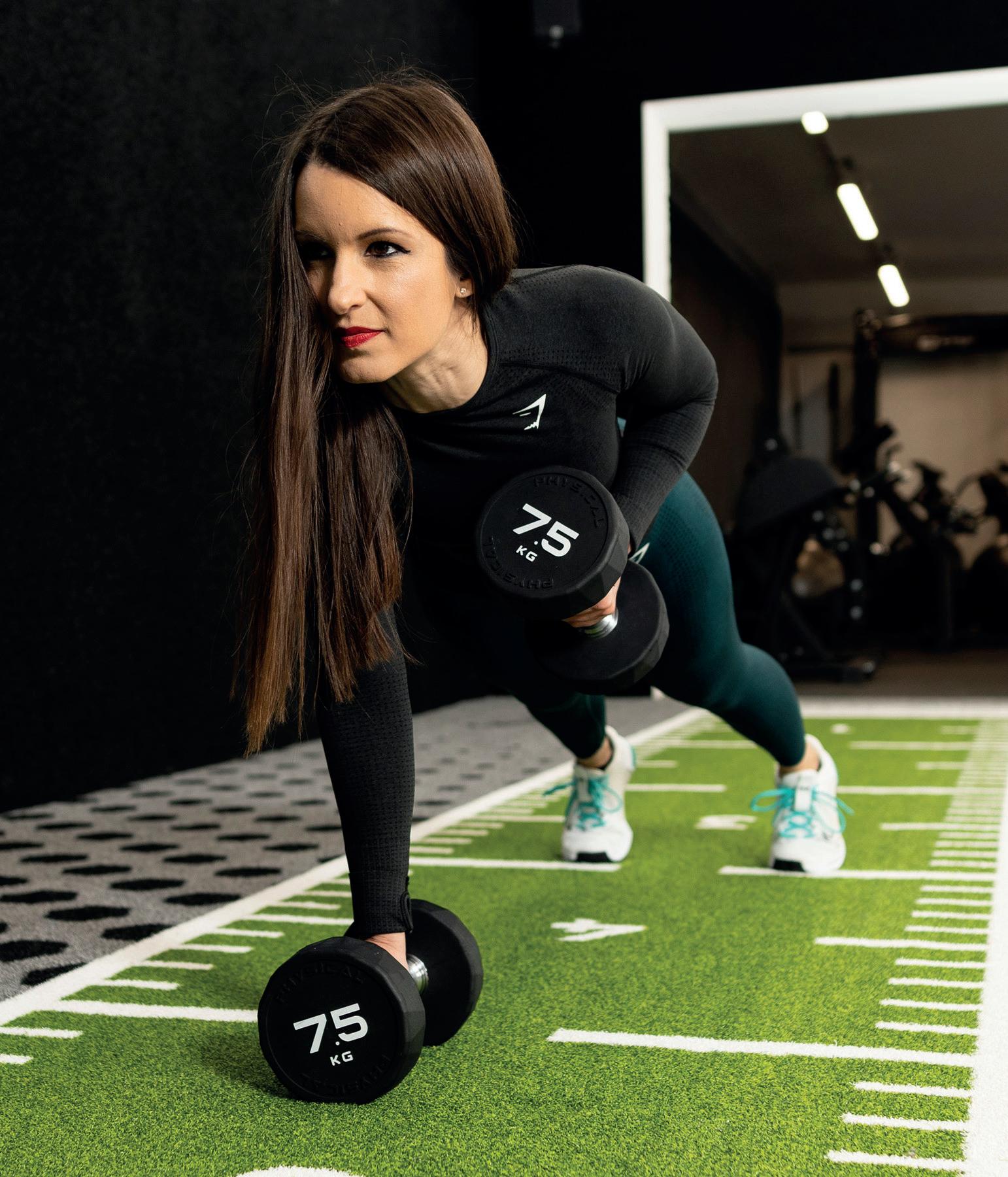
Physical prides itself on being First for Fitness Solutions, and its stand at Elevate will take that a step further still, with a new zone showcasing a range of in-club wellness solutions. Body composition analysis comes courtesy of a new partnership with seca TRU, while Power Plate is working closely with Physical to bring a range of wellness opportunities to the stand. Meanwhile, bridging the gap between fitness and wellness is Teca Fitness – another new Physical partnership – with its StandUp equipment perfect for movement breaks that train the whole body, without even having to change into gym gear. And of course, from a fitness perspective, Physical has you covered whatever your needs. It’s impossible to showcase 1900+ products on one stand, but get ready to explore exceptional Ecore gym flooring, Exigo’s multi-functional lifting station, and a wide range of Physical equipment with a spotlight on the new RBX Performance range. www.physicalcompany.co.uk
Myzone is attending Elevate to meet with industry friends old and new, deliver product demonstrations and showcase the launch of MZ-Open, a new, open access function that enables anyone to join Myzone’s heart rate training ecosystem direct from their Apple or Android smart watch. Myzone is also sponsoring Debate. Formerly known as the Thought Leadership Conference, Debate provides a platform for hosting discussions, sharing insight and generally encouraging thinking that goes beyond the norm, breaking down barriers and pushing possibilities into new territories. Speaking about the show, Jonathan Monks, Director of EMEA, Myzone, says: “Elevate provides the perfect environment for connecting with hundreds of industry professionals face to face, delivers cutting edge education and thought leadership whilst also showcasing all the latest innovations that will shape the future of the sector. The two days delivers so much value, it’s a must-attend for me.” www.myzone.org
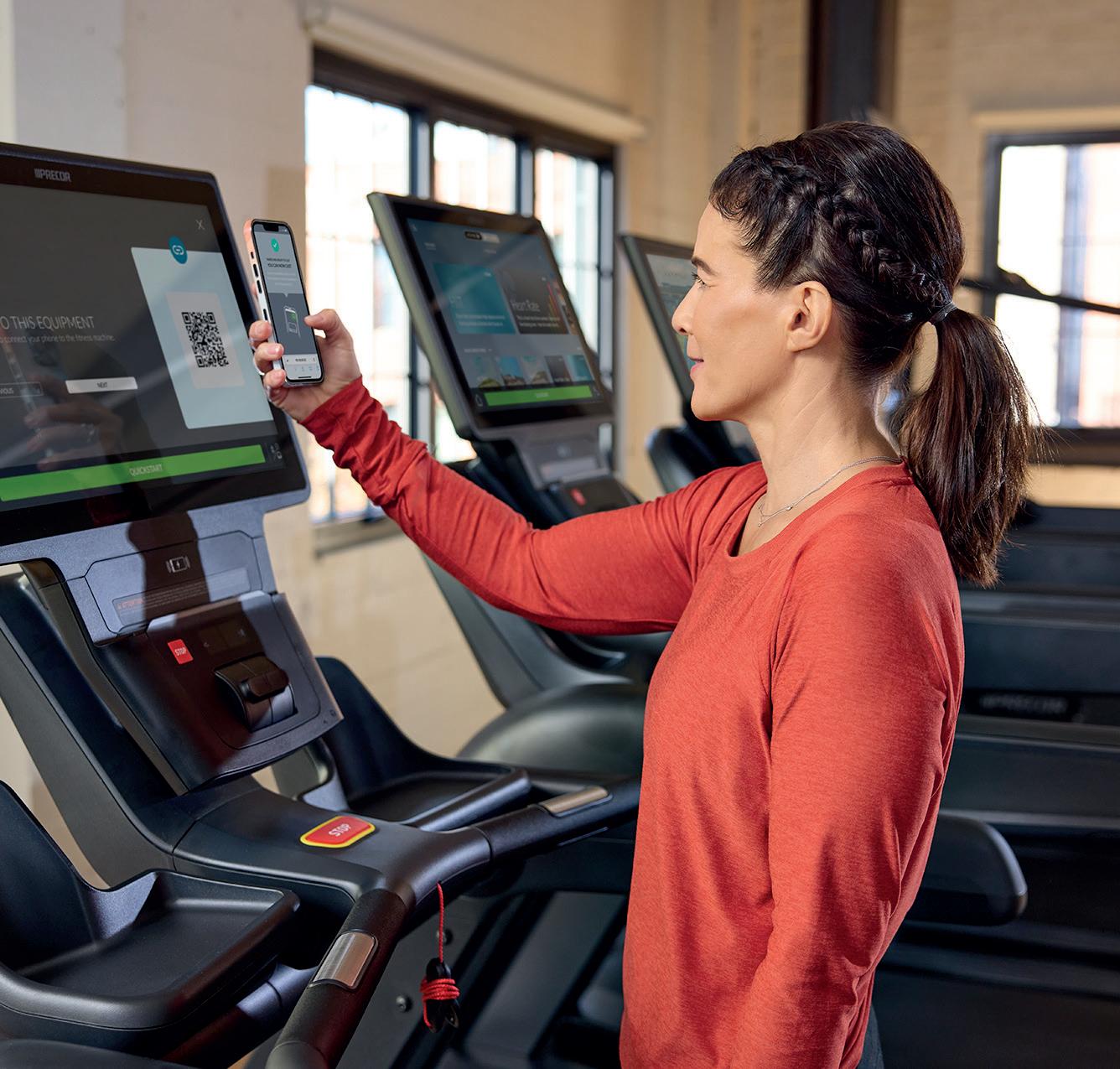
Precor is excited to be showcasing a range of new fitness equipment at Elevate this year. Highlights will include a selection of cutting-edge products specifically tailored for glute training, and developed in partnership with Glutebuilder, a trailblazer in innovative and biomechanically focused designs. They will also be demonstrating their next generation cardio consoles, featuring PrecorCast™, which seamlessly and securely enables exercisers to cast content from their mobile phone on the big screen. Precor will also be previewing their brand new Resolute™ Dual Adjustable Pulley. Incorporating a modern, refined design, unparalleled durability, and a comprehensive set of features, the Resolute™ Dual Adjustable Pulley has been created to meet the evolving needs of today’s exercisers. www.precor.co.uk
Royal Life Saving Society UK (RLSS UK)’s purpose is to enhance communities, so everyone can enjoy being in, on and around water, safely; because every life is worth saving. Our work is vital in every city, town, community and home. RLSS UK has a proud history of helping to reducing the number of lives lost to drowning. Our mission is to be the leader in lifesaving and lifeguarding in the UK and Republic of Ireland. Sharing our expertise and knowledge with as many people as possible, giving everyone the potential to save lives and enjoy water, safely. www.rlss.org.uk
The Sports and Play Construction Association (SAPCA) is the UK’s trade association for the sports and play construction industry. The association’s 220+ members are responsible for building the UK’s sports and physical activity facilities – from 3G pitches, padel courts and athletics tracks to leisure centres and large-scale stadiums.
All SAPCA members are carefully vetted for excellence and are committed to SAPCA’s Codes of Practice and guidelines – ensuring they work to the highest standards. SAPCA and its members set the standards for excellence in the design, construction and maintenance of sports and play facilities across the UK. The SAPCA team will be at Elevate – come and see us to find out more about the work of the association. www.sapca.org.uk

Transform Your Fitness Space with ServiceSport UK!
In a world where member satisfaction is key, it’s easy to fall for the latest trends and chase perfection. At first, this can be achieved by purchasing new equipment, but not many gym operators are blessed with the finances to replace their equipment every five years or so. As a result, that once beautiful looking, and fully functional kit can start to look worn and suffer from countless defects leading to members cancelling their membership and moving to a rival that offers better equipment. It’s a vicious cycle! ServiceSport UK offers a cost effective way to breathe new life into old gym equipment and achieve five star member satisfaction. Visit the ServiceSport stand at Elevate and and ask about the gym equipment refresh process. www.servicesport.com
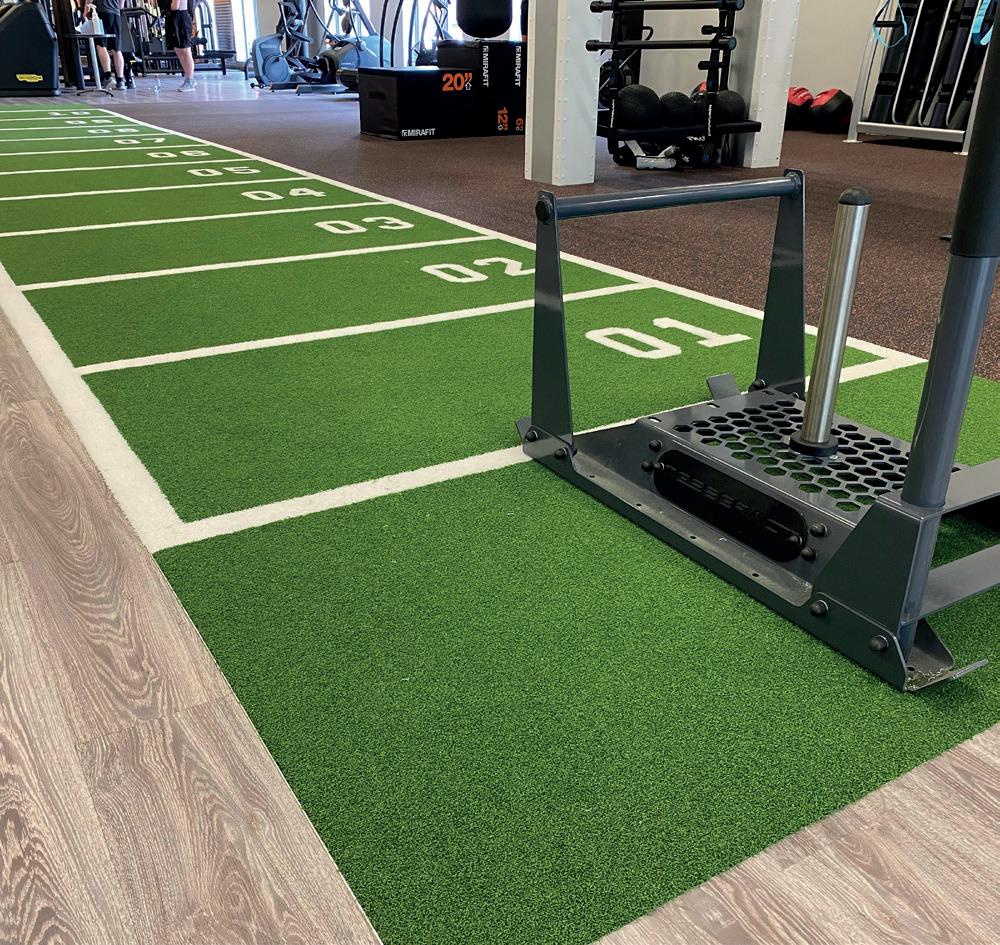
Sterling Turf designs and manufactures hightech, durable Synthetic Turf for gyms and sports venues. We combine the best raw materials, with a passion for creating the ultimate quality turf.
Our DuraMax™ sled track turf is a market leading high density, heavy weight sports turf, which combines the latest fibre technology, resulting in a high performance gym surface that’s built to last. DuraMax™ is created for both indoor and outdoor installations, to use as a sprint track or complete gym flooring to enable functional fitness over large areas. Whatever the shape or size of your space; big or small, we have an option to suit. We have a wide range of designs available with options for customisable layouts and branding…. the possibilities are endless!! Come pay us a visit to see how our team can work with you to create a gym flooring that really stands out from the rest. www.sterlingturf.com
Institute of Swimming, in collaboration with Swim England, will be exhibiting at Elevate 2024 to help enhance the prominence of aquatics within the leisure industry. Visit stand F46 and take a deep dive into the dedicated aquaticsthemed area, featuring insightful talks by industry experts throughout the exhibition. You’ll also have the opportunity to meet the IoS team and discover a range of aquatics offerings, from teaching programmes to pool plant courses and bespoke solutions. www.swimming.org/ios
Swimming Teachers’ Association will be represented by its awarding organisation, Safety Training Awards and its training subsidiary, STA Excel. Together, they will showcase STA’s professional portfolio of qualifications in swimming teaching, lifesaving, first aid, and pool plant management. In the Active Aquatics theatre, STA will also be hosting panel sessions on recruitment and apprenticeships. www.sta.co.uk
Swim England is the national governing body for swimming in England, covering every area of swimming. From learners to teachers, athletes to coaches, the organisation supports people to achieve their best in the water. Its tutor programmes and CPDs ensure everyone involved in the delivery of swimming is highly trained. It also supports the swimming providers with information on facilities and best practice. Swim England’s research team provides detailed information to help develop new initiatives that encourage more people to go swimming. www.swimming.org
Born out of a passion for clothing, Taylor Made Designs exists to create desirable corporate clothing and brand-enhancing merchandise. With more than 30 years of experience in supplying the leisure sector, Taylor Made Designs offers an end-to-end garment management service, with design consultations, storage and fulfilment, in-house branding and an online ordering platform all ‘Taylored’ to your brand.
TMD helps your staff not only look their best but feel their best, with our Leisure Essentials Range designed and created for the people who wear them. Our affordable, comfortable, and stylish Leisure Essentials Range is the perfect addition to a leisure setting, with our in-house branding we can ensure quality and efficiency every step of the way. www.taylormadedesigns.co.uk

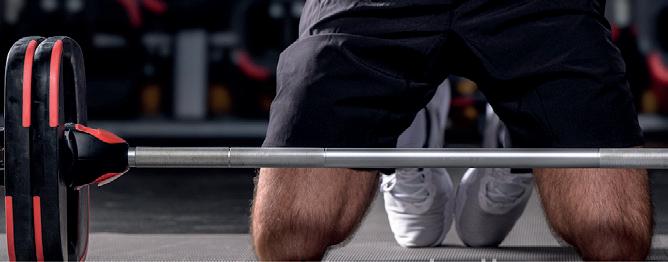

SportsNation attended the physical activity sector’s leading networking event, which this year celebrates its 10th anniversary
March 2024 marked the 10th anniversary of Active-net. The event was set up to assist the formation (and strengthening) of partnerships and relationships, while offering insights into enhancing the consumer experience through quality speakers, registered CPD, debates, informal networking and curated meetings.
This year’s edition, taking place on 27 and 28 March, was a great success, having sold out for the second year running at Eastwood Hall in Nottinghamshire. The theme for Active-net 2024 was aimed to address the challenges faced in recruiting and retaining quality team members and the data that sits behind these decisions and outcomes.

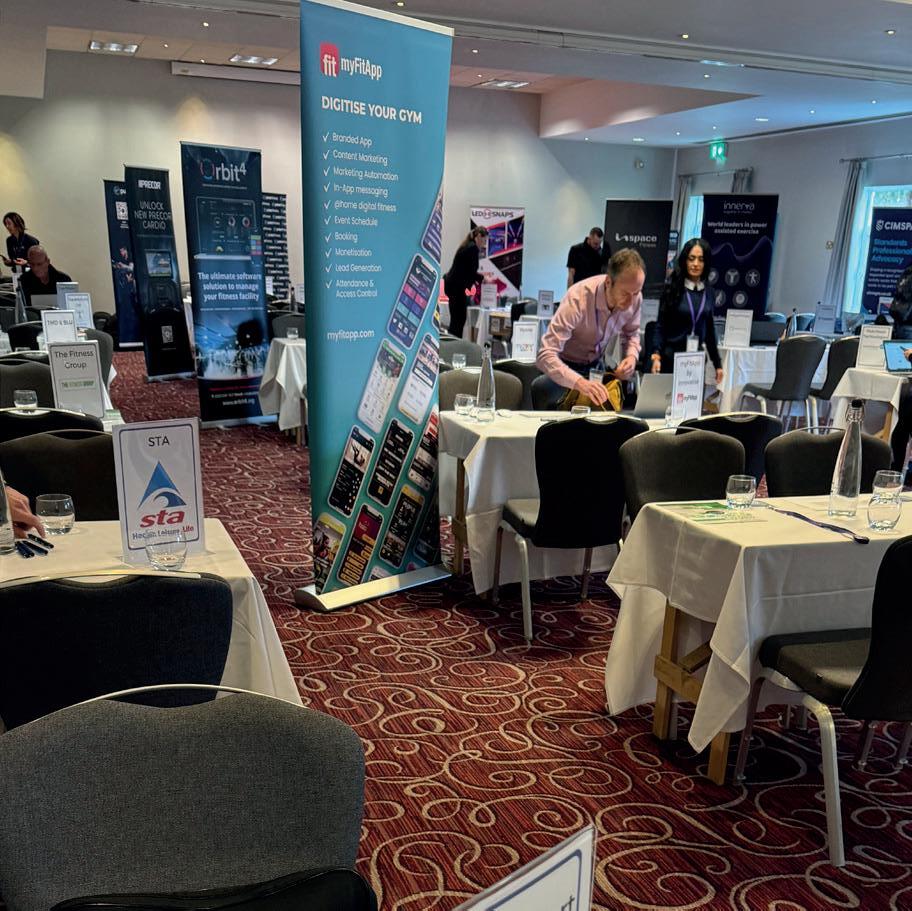
The opening keynote session featured Huw Edwards, CEO of ukactive; Spencer Moore of CIMSPA and Jack Shakespeare of 4Global. The panel discussed the importance of recruiting and retaining great team members.
“It’s well documented that we have record numbers of people on NHS waiting lists and/or are signed off sick from work,” Edwards said. “As an industry we can help with this but one of the challenges in rolling out successful initiatives and pilot schemes such as Prehab4Cancer and MSK hubs is having enough appropriately qualified staff.
They highlighted how, despite all the government funding for training and apprenticeships, recruitment remains an issue for the sector. They questioned whether the sector was being best served by universities – which offer lots of sports science and equivalent degrees – when there are so few jobs available. The message was that a focus on other areas might better serve the industry – as the physical activity sector doesn’t even appear in any career maps or guidance.
Other topics discussed included how a CIMSPA
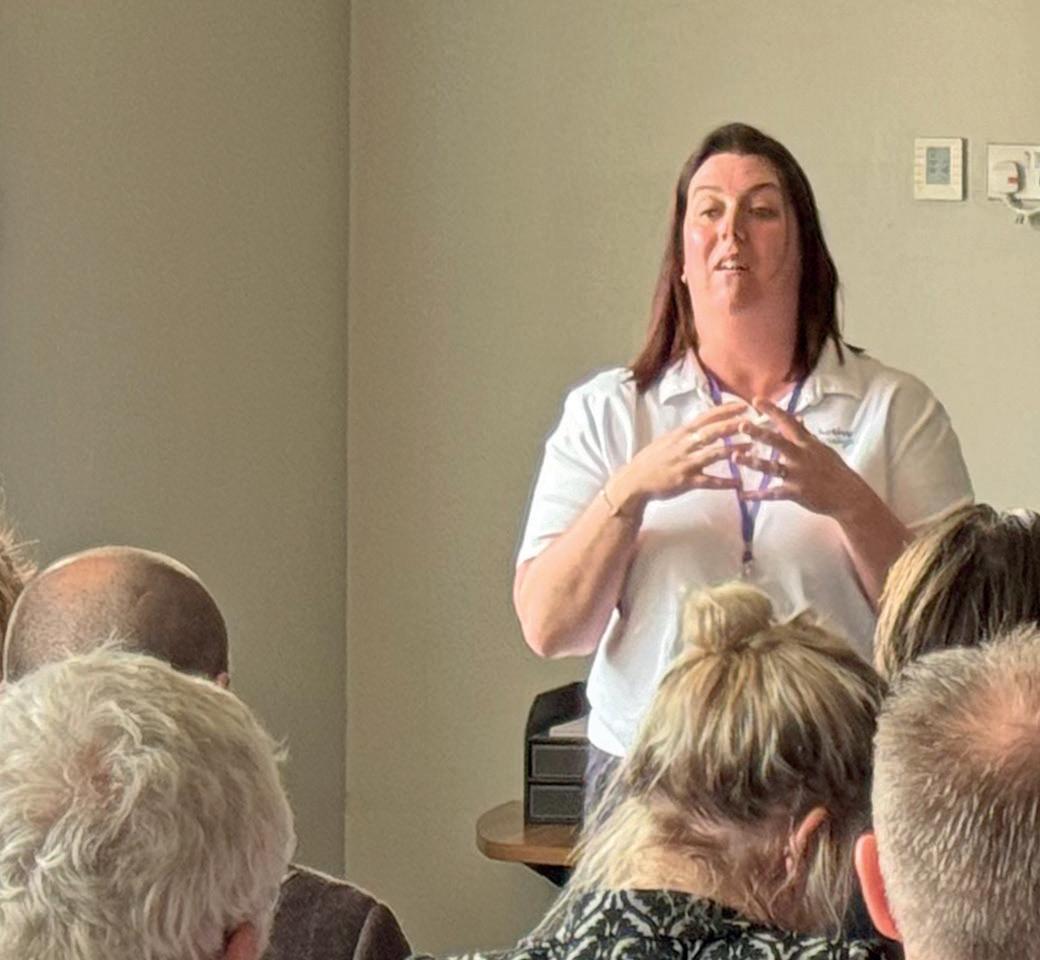

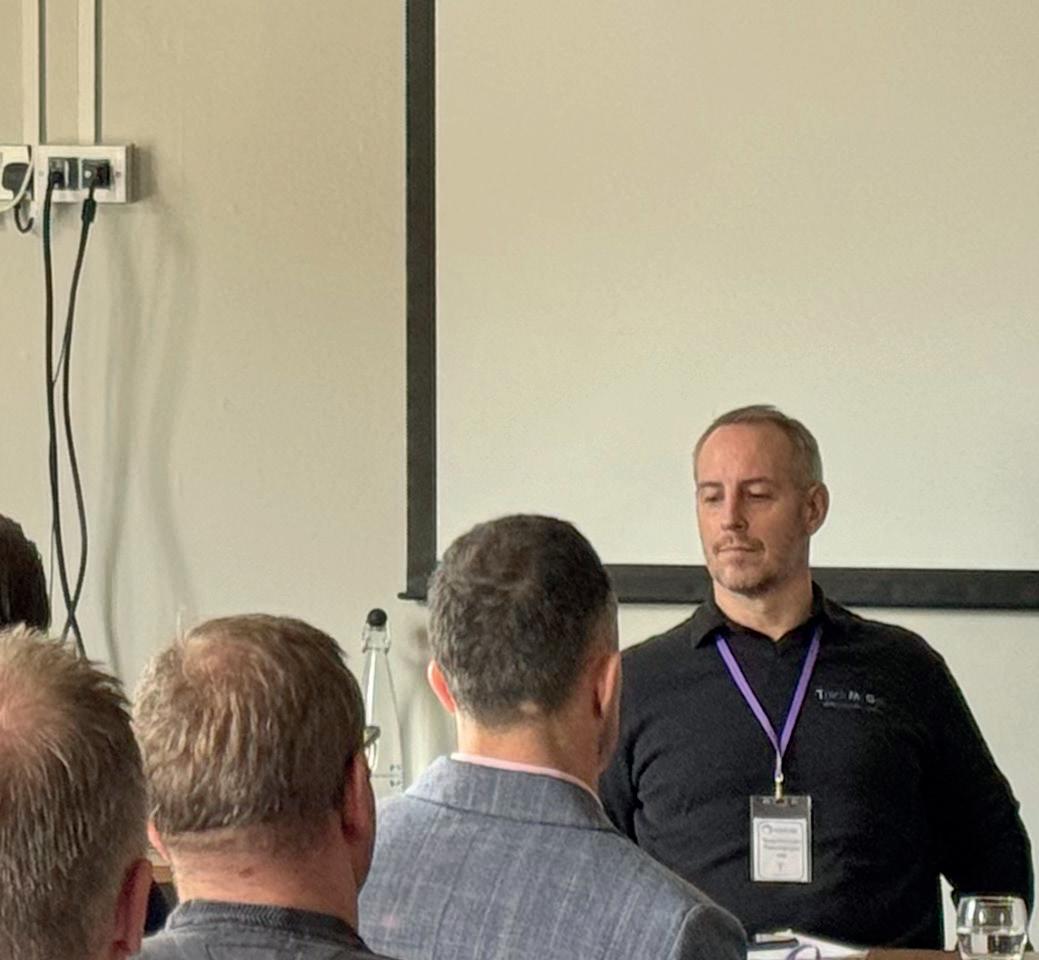
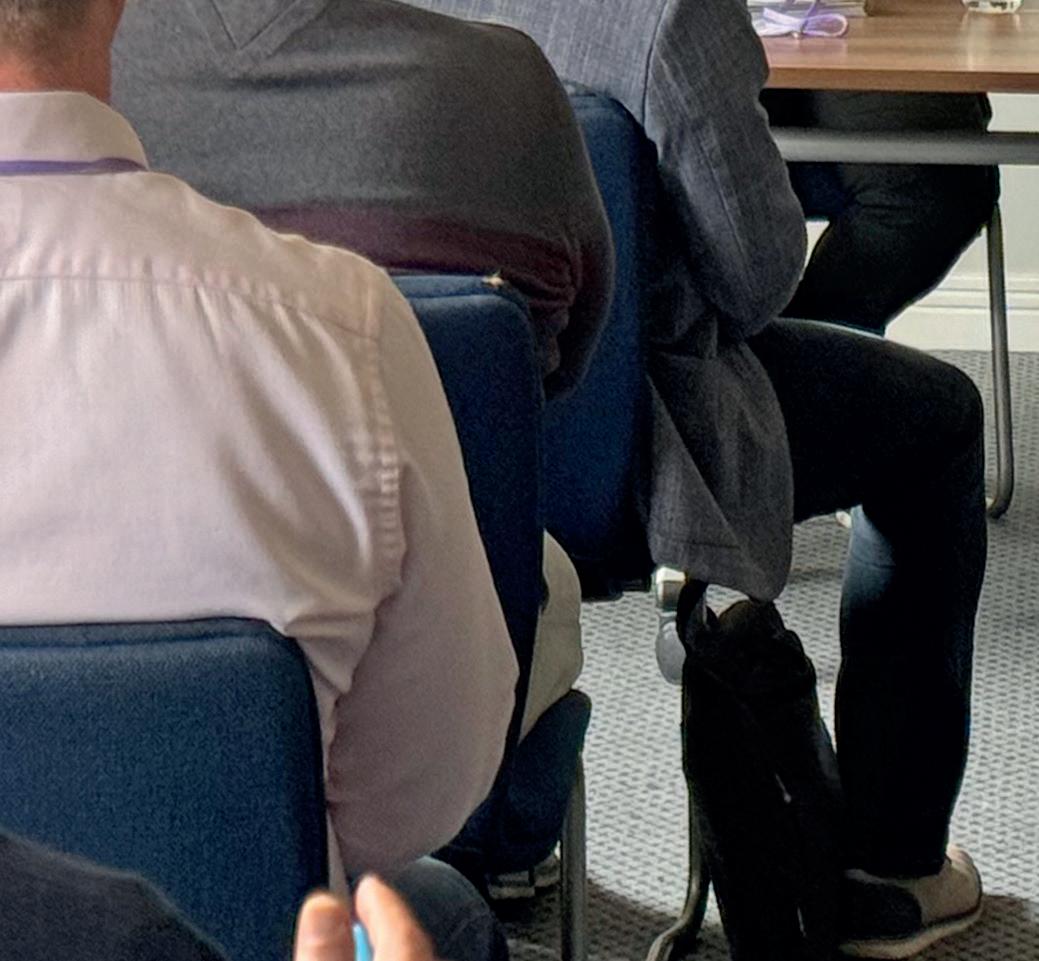
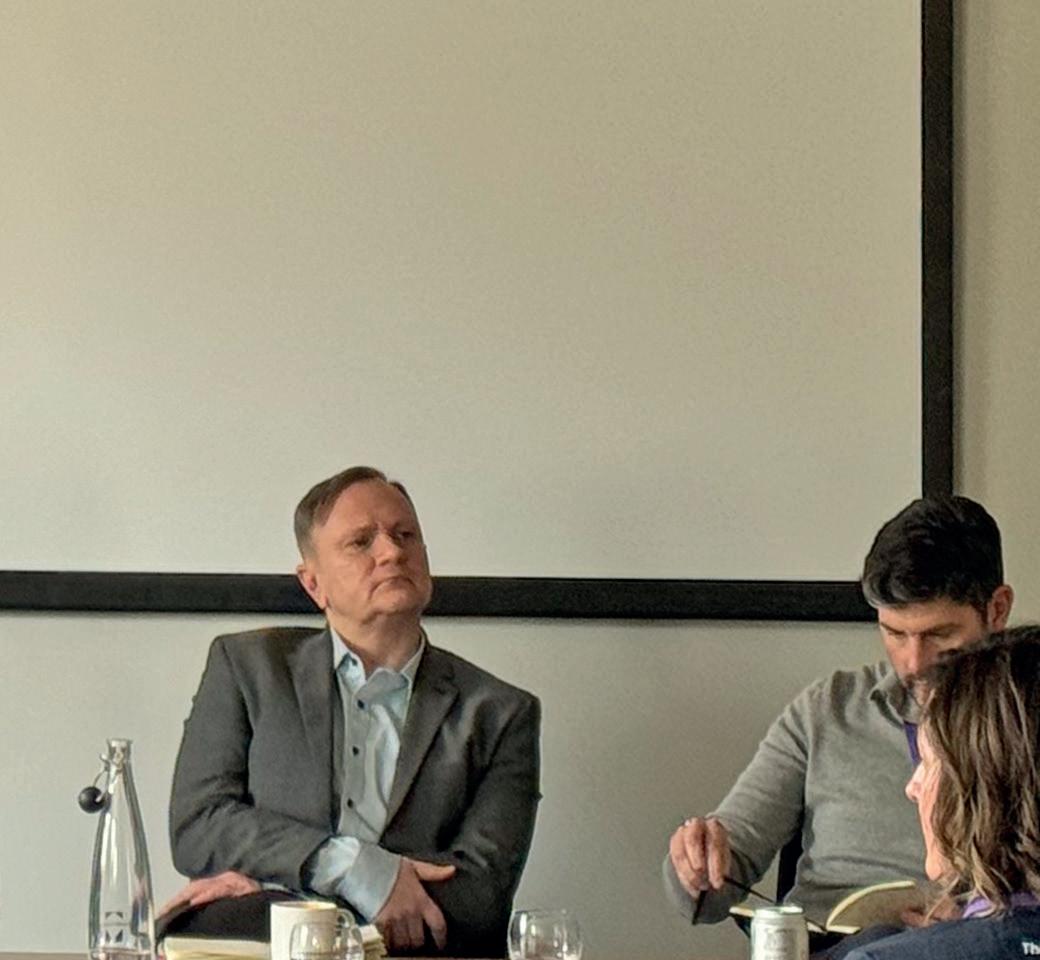
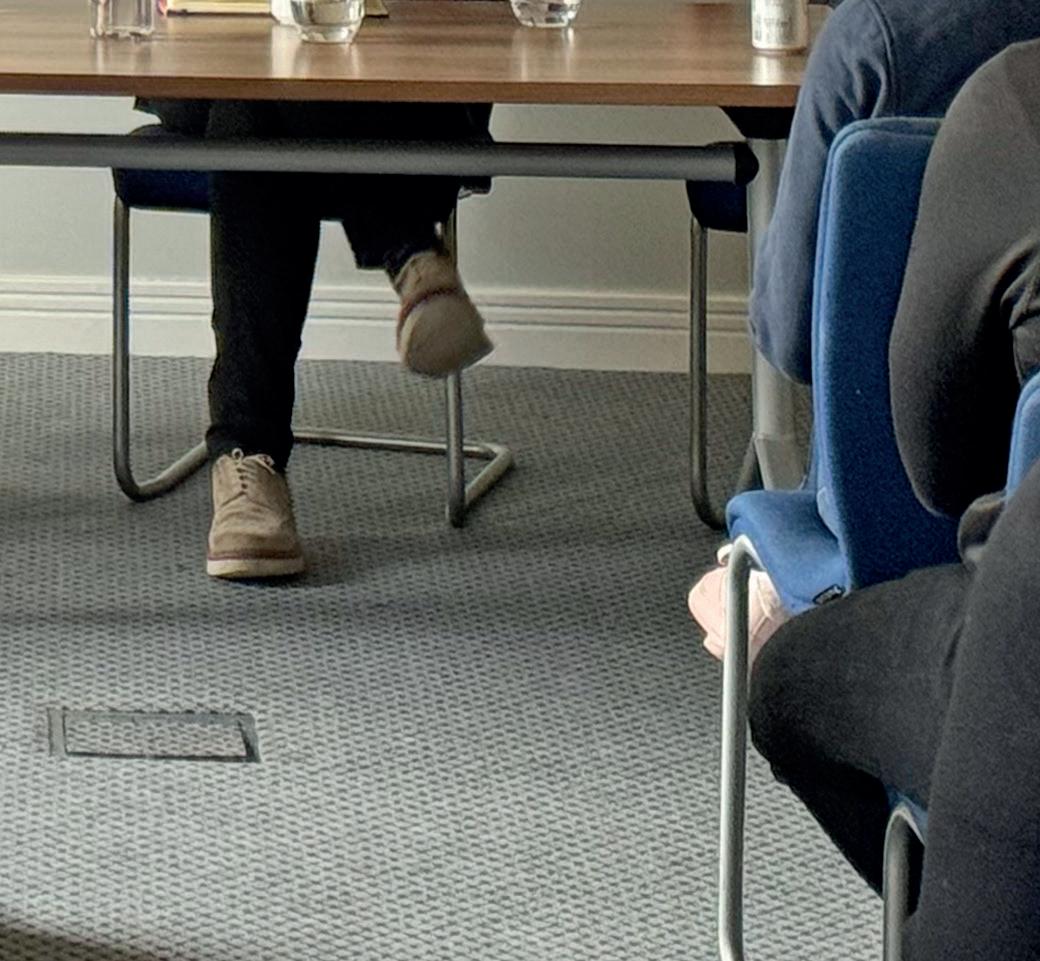

workforce survey revealed that people value recognition over pay (though pay still ranked highly). This mirrors the industry’s view that it has a highly skilled workforce – but there need to be more opportunities to flourish.
There were a number of parallel sessions, before delegates broke off to their one-to-one meetings (allowing operators to meet suppliers). One of the sessions, chaired by Active Insight’s Julie Allen, focused on the importance of data driven insights.
The panel offered delegates a few key points for using data efficiently and accurately in decision making:
● Ensure your data is accurate, reliable and up to date
● Include consumer insights about what people want, so that you can best understand trends and opportunities
● Avoid bias – do not only look at the data that you want to or that suits you.
The panel also highlighted that the current industry data around usage and trends shows that the sector is “heading in the right direction”.
“It is now about scale,” Huw Edwards said. “There is a richness of collaboration and innovation that supports how the sector is evolving.”
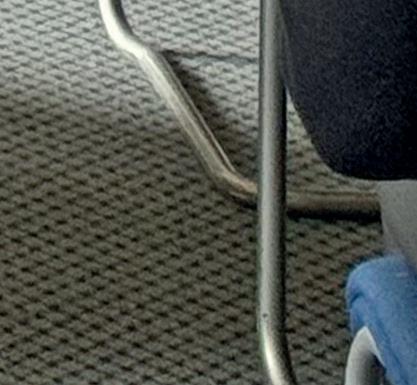
One of the panels discussed the importance of data
Active-net events were set up as a “buyer and supplier event” for the physical activity, health and fitness industries. Each year, they attract buyers and suppliers from all aspects of the industry to meet with one another and aid each other’s expansion and progression.
Thanks to the accompanying seminars and talks, Active-net events also allow delegates to keep up to date with the latest developments within the sector – as well as broaden and strengthen their professional network.
Since Active-net’s launch in 2014, more than 1,000 sector professionals have attended one of its Public, Private and Scottish sector events, while they have also facilitated a total of 6,200 face to face meetings.
The next Active-net event will be held at the Crieff Hydro in Scotland on 25 September 2024. That will then be followed by the Active-net Private Sector event on 27 January 2025, held at the Radisson Blu Stansted. The main Active-net event will then return to Nottingham’s Eastwood hall on 26 and 27 March 2025.
For more information (and to register) on future events, visit: www.active-net.co or contact davidmonkhouse@active-insight.org
Dominic Goggins reports on the biggest ever BASIS Sustainable Sport Conference, held at Emirates Old Tra ord in April
Sustainability has been growing as a priority in sport for the last decade. In a world grappling with the intensifying impacts of climate change, slowly but surely, clubs, venues, governing bodies and funders have recognised that failing to prioritise sustainability is no longer tenable.
This is reflected in the British Association for Sustainable Sport’s (BASIS) membership, which has grown from a handful of clubs and venues at the start of this decade to almost 100 organisations from across the full range of the UK sporting pyramid, including a host of Premier League football clubs and some of the most iconic venues in the world.
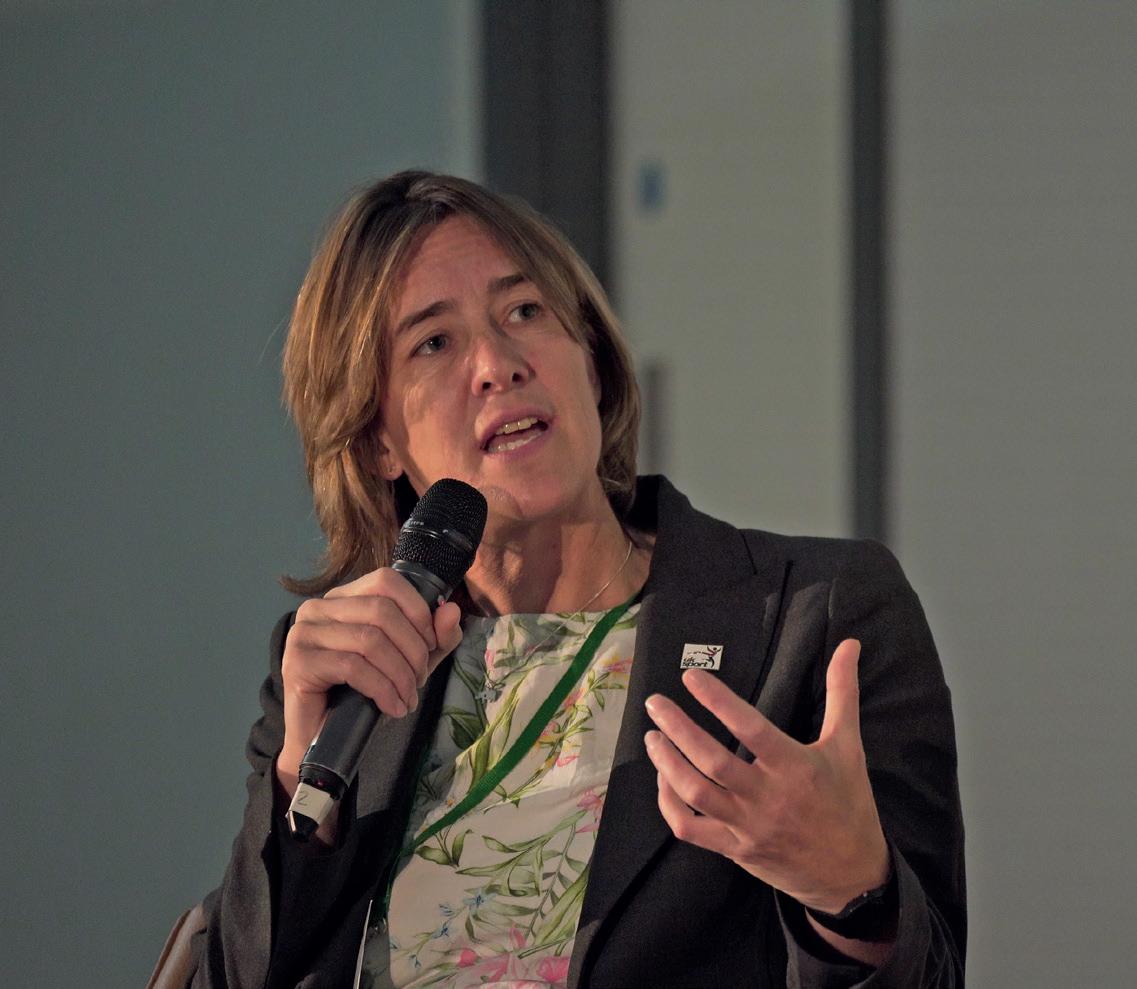








BASIS members gathered at Emirates Old Trafford at the end of April for the association’s annual conference, with more than 220 delegates hearing from 30 speakers and panellists across nine sessions covering the full spectrum of sustainability issues. It was significant for its size – BASIS’s biggest ever conference – and for its atmosphere, with a clear shift from inspiration and intention to action.
Hosted by Today At Wimbledon presenter, Qasa Alom, the conference opened with the promise of support for sport’s sustainability drive from the Minister for Sport, Stuart Andrew. His message was reinforced by Sian Joseph (Deputy Director for Sport at the DCMS) who joined Dame Katherine Grainger (Chair of UK Sport) and Chris Boardman (Chair of Sport England) on the opening panel.
In Grainger and Boardman, conference delegates were able to hear from two sporting giants who are now key players in the funding, direction and success of sport across the country. They offered compelling arguments for mainstreaming sustainable practices throughout the sports sector, with Grainger underlining the importance of the opportunities for collaboration provided by BASIS, and Boardman providing an exclusive preview of Sport England’s new sustainability strategy, which looks set to establish sustainability measures as a condition of future funding.
From policy and politics, the focus shifted to practical action, with panels on transport,









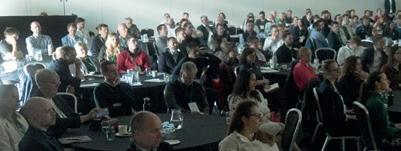
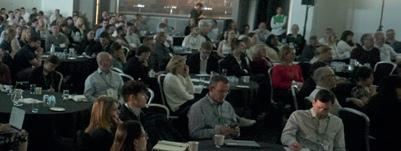


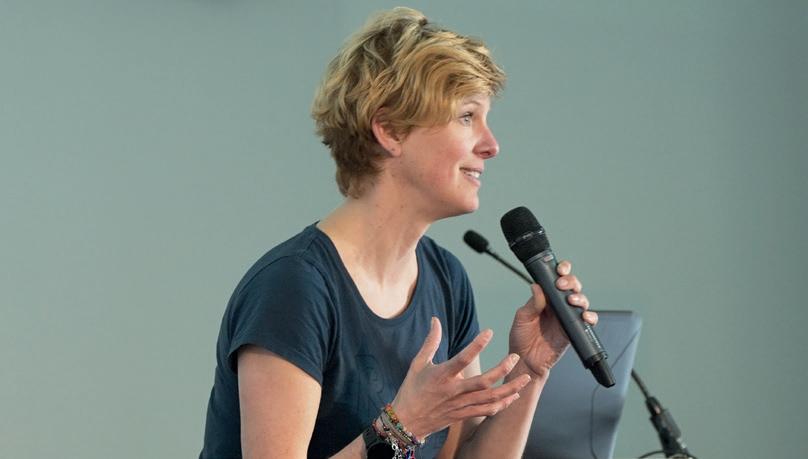
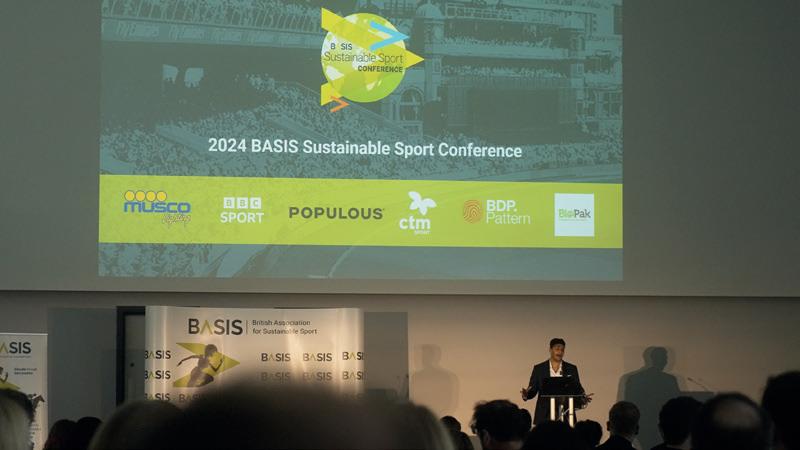


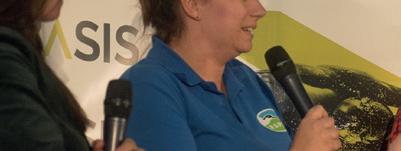
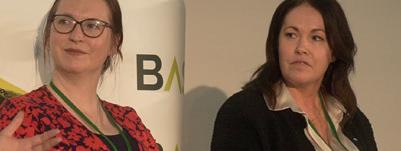

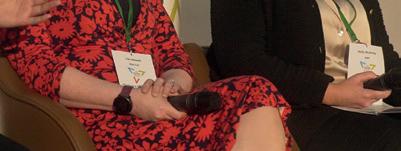
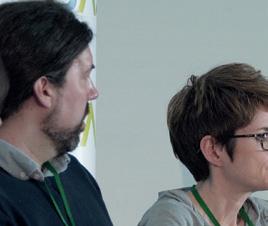

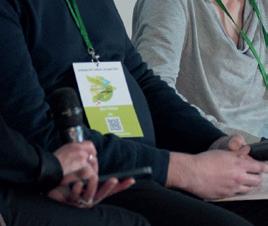

biodiversity, carbon reduction, commercial partnerships and sustainable broadcasting. Each session offered unique insight into the planning and delivery of projects that have a measurable impact and wider application. These ranged from Edgbaston Stadium’s work to encourage spectators to use public transport on event days to The R&A’s efforts to protect and enhance natural habitats at the UK’s leading golf courses (including the astonishing 426 different species – 212 of which are protected – found at Royal St Georges, the venue for the 2021 Open Championship).
Filippo Veglio, Head of Environmental Sustainability at UEFA, talked delegates through the carbon calculator developed by European football’s governing body, before joining a panel discussion which delved into the detail of switching to renewables and combatting supply chain emissions alongside representatives from Silverstone, Lord’s Cricket Ground, and the Royal Yachting Association.
The conference’s panel of athletes, which included Wycombe Wanderers’ midfielder David Wheeler, former GB rower Melissa Wilson, climate adventurer Kate Strong and Indian triathlete Pragnya Mohan turned the spotlight on UEFA and FIFA, calling for stronger leadership to push sport away from fossil fuel sponsorship. The same theme was developed across a number of panels throughout the day, with contributors acknowledging the challenging

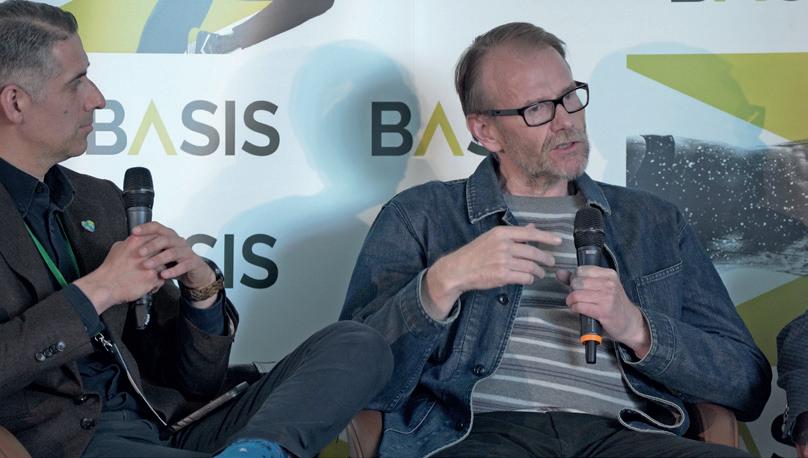

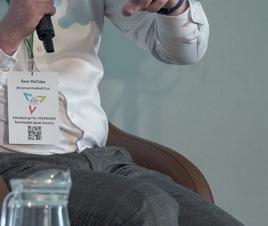
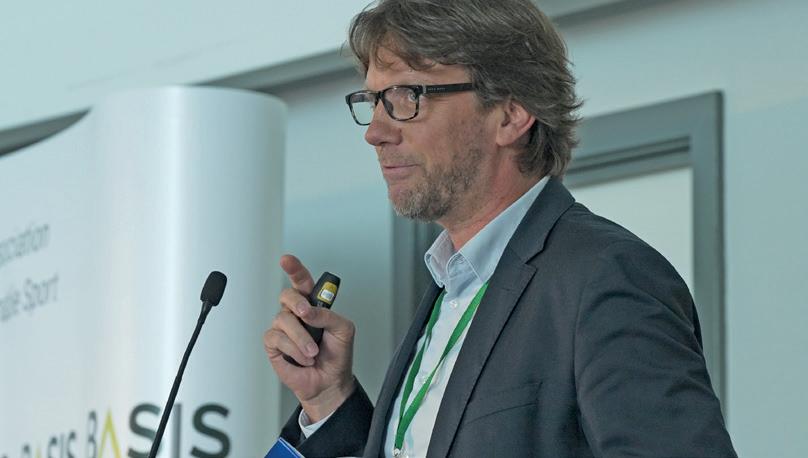
position sport is in – as part of a global economy in which fossil fuels have huge influence; as a sector which is both responsible for emissions and acutely exposed to the impacts of climate change; and as a uniquely powerful point of connection and source of inspiration for billions of people.
Wilson was adamant – sport’s position on fossil fuels should be as clear as its position on tobacco advertising. “Fossil fuel companies have huge power in sport,” she said. “They are also largely responsible for the floods, heatwaves, fires and storms which are threatening sport and everybody who plays and watches it. It makes no sense, and it is of great concern to me that there isn’t more of a red line over fossil fuel sponsorship in sport.”
Dr Russell Seymour, BASIS founder and chair, reflected on this in his closing remarks, summarising that BASIS’ position as the fulcrum for shared action on sustainability in sport across the UK means that “we are the right place to bring people together, develop common positions, share best practice and drive sustainability forward” before thanking speakers and delegates for BASIS’s most compelling and action-oriented conference yet.
The focus now switches to the All England Lawn Tennis Club, home of the Wimbledon Tennis Championships, for the BASIS 2024 Sustainable Sport Awards on 26 September. Nominations are open, tickets are on sale, and sponsorship opportunities remain, with all the information available at www.basis.org.uk/basis-awards.




